15 December 2025
“Young people imagine beyond the limits”
Aaron Rosa works in the Foresight Department at the Fraunhofer Institute in Berlin, specializing in systems and innovation research. He is also a partner in the European project YouthDecide 2040, which will bring together 600 young people from across Europe to envision possible futures for democracy through creative and interactive national workshops. •••
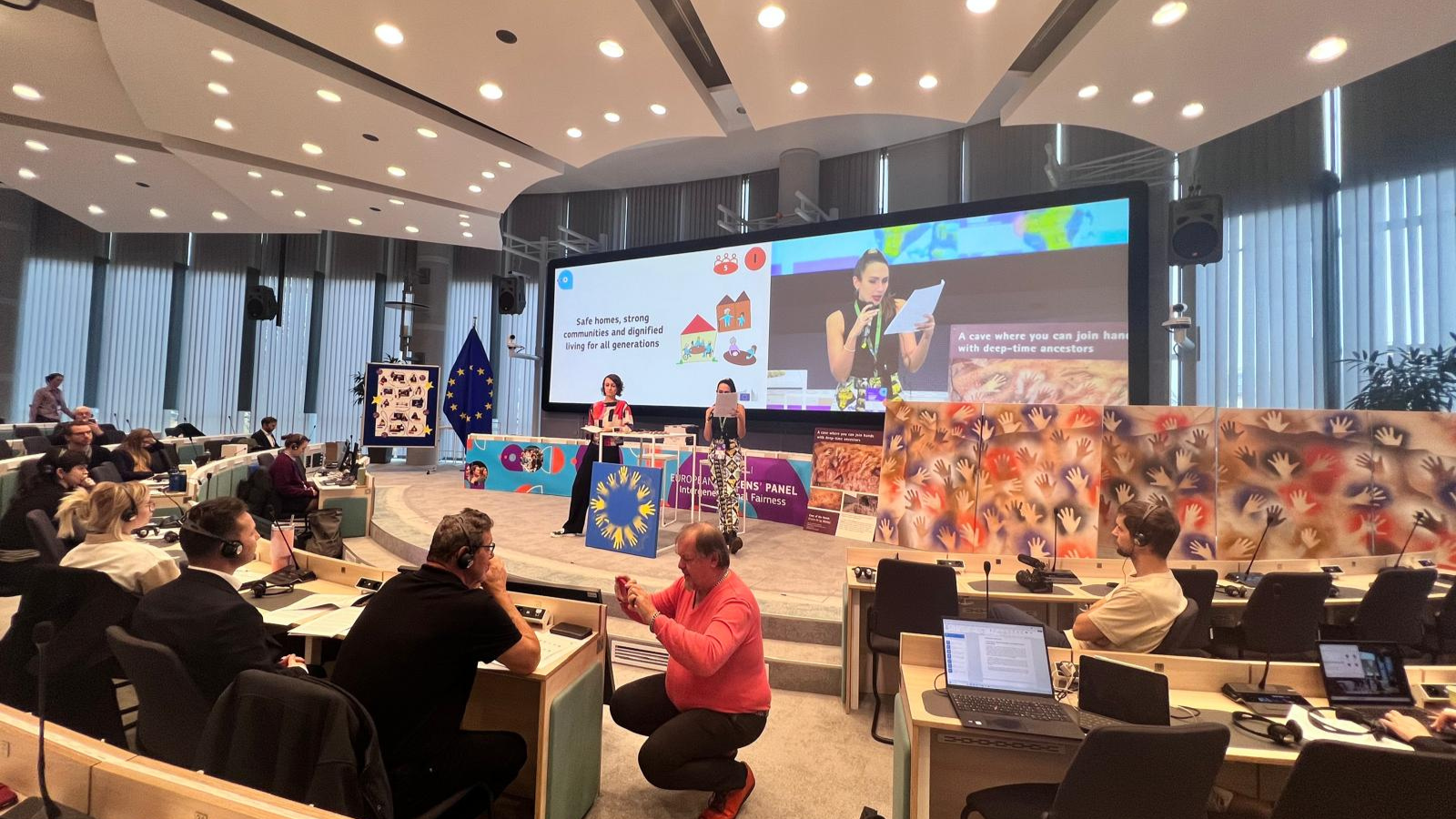
15 December 2025
Designing policies with the future in mind
How can citizen participation move beyond one-off consultations to genuinely shape long-term policymaking? Drawing on her experience at the EU Policy Lab, Erica Bol reflects on the growing role of citizens in democratic debate and the urgency to envision a sustainable future. •••
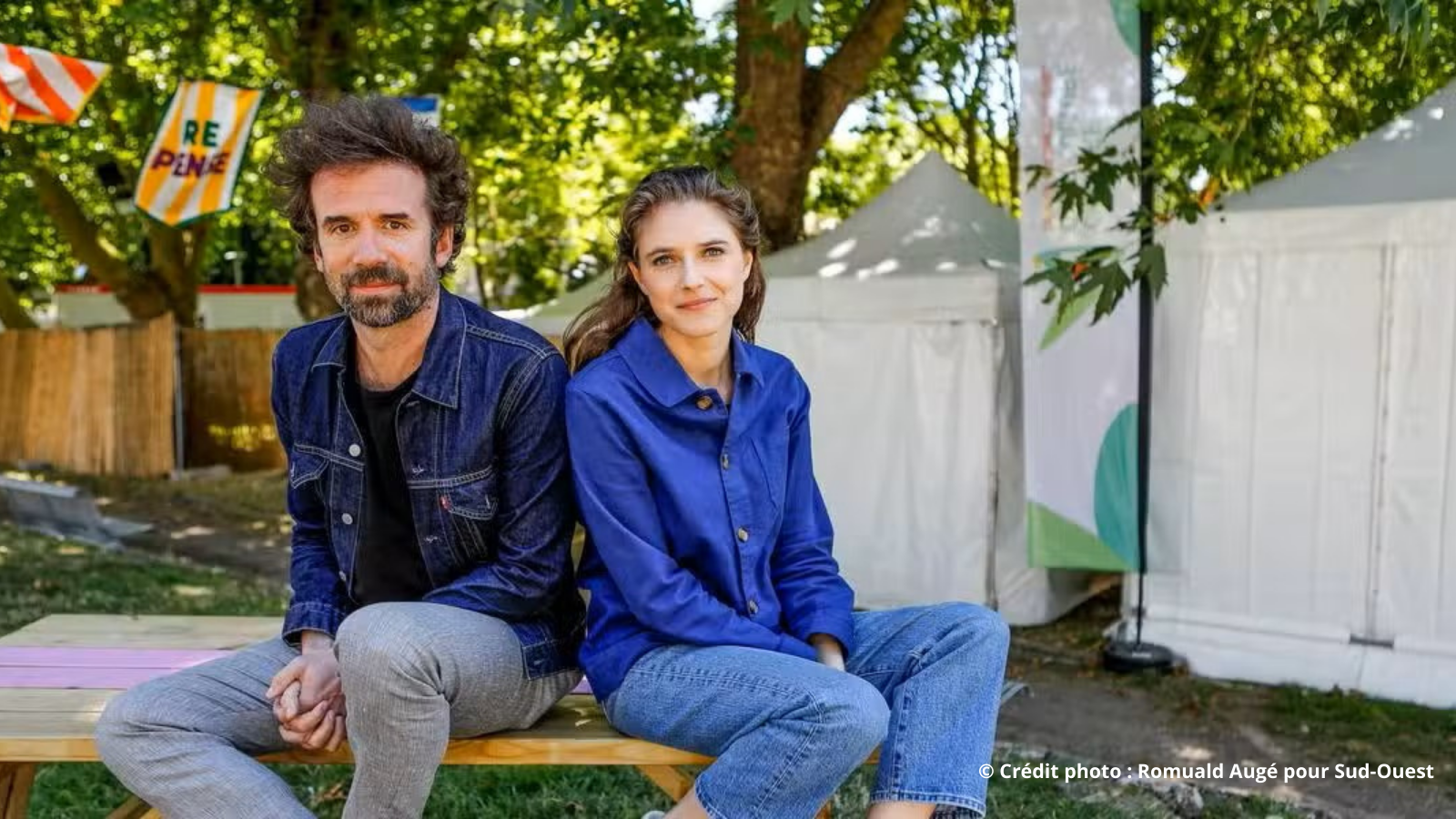
15 December 2025
“We will not save the conditions that make this planet habitable… without saving democracy.”
With their new documentary project Démocratie Maintenant! (Democracy Now!), journalist-directors Paloma Moritz and Cyril Dion are sounding the alarm: if our societies struggle to respond to the climate emergency, it is primarily because our democracies are faltering. •••

5 November 2025
The Youth Citizens’ Assembly on Pollinators Is Officially Launched
For three days, 100 young people aged 18 to 29 from the 27 EU Member States gathered in Brussels. The goal? To understand the decline of pollinators and explore ways to reverse it. •••
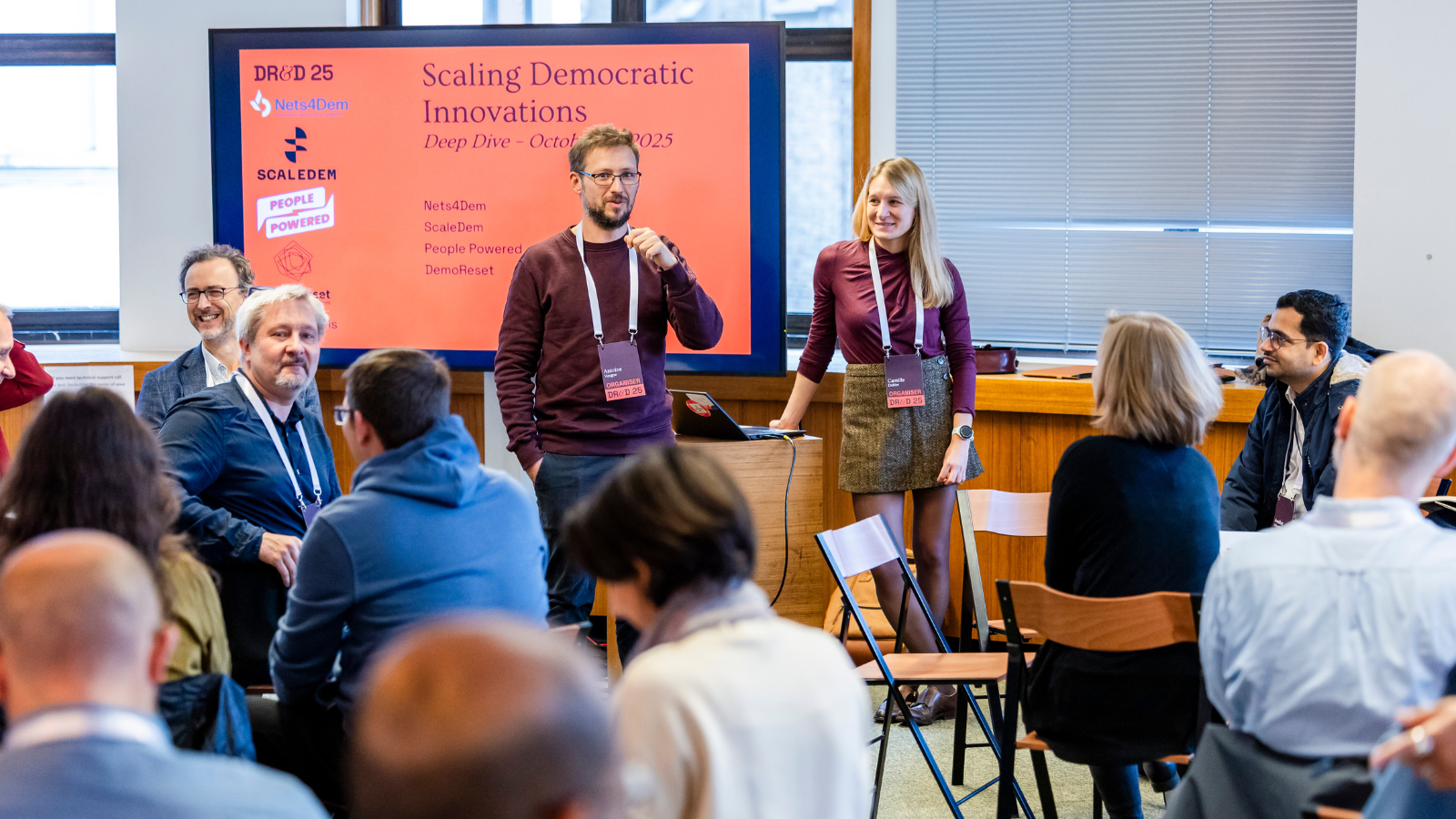
5 November 2025
Democracy R&D conference: A Brussels diary on scaling democracy
Brussels has a unique way of turning big questions into concrete conversations. This October, the city hosted the Democracy R&D Annual Conference - two intense days (15–16 October). •••
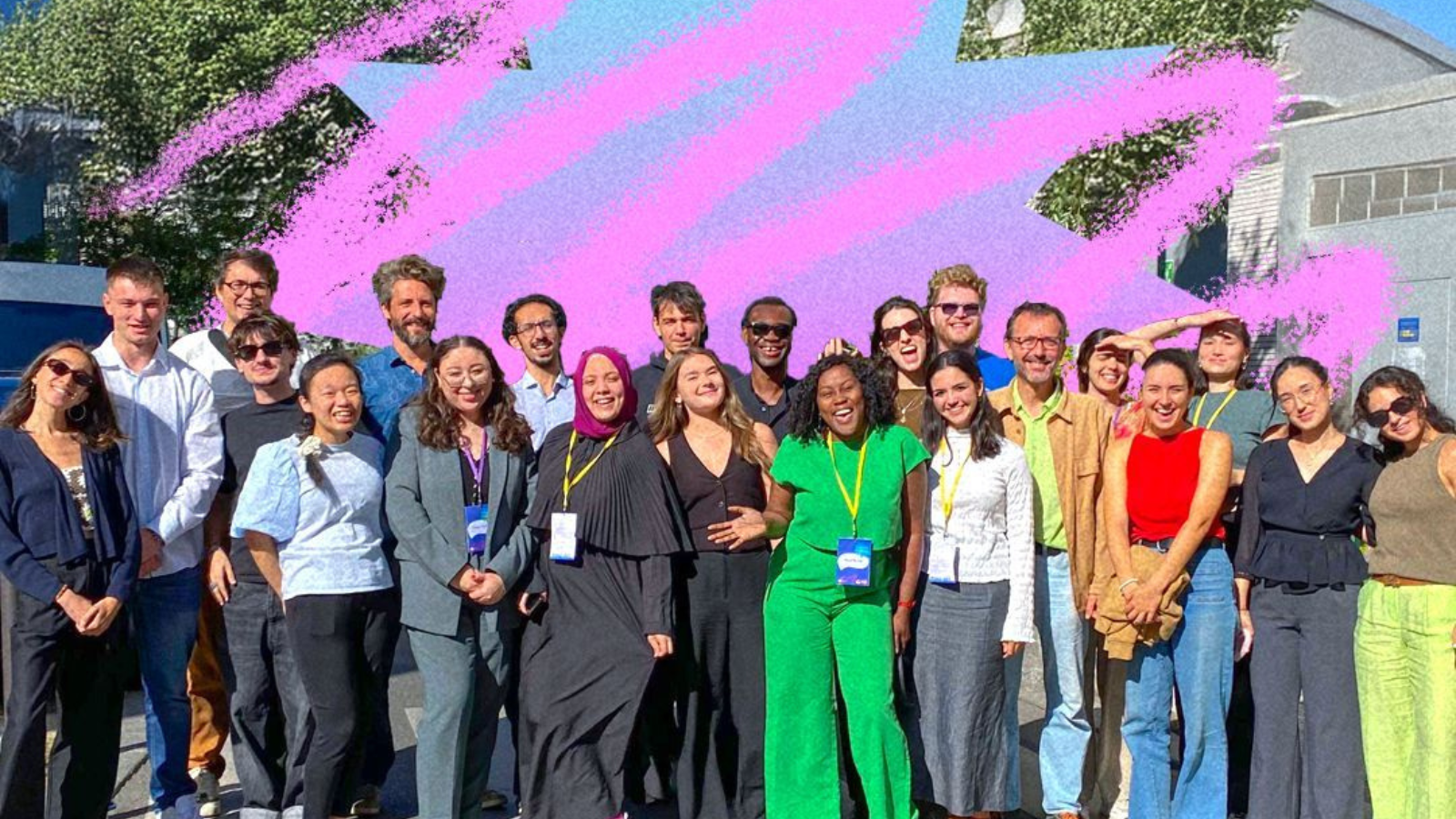
17 September 2025
Giving Young People the Power to Imagine European Democracy in 2040
From Bratislava to Oslo, with YouthDecide 2040, 600 young people from across Europe are co-creating scenarios and strategies to strengthen democratic institutions. •••
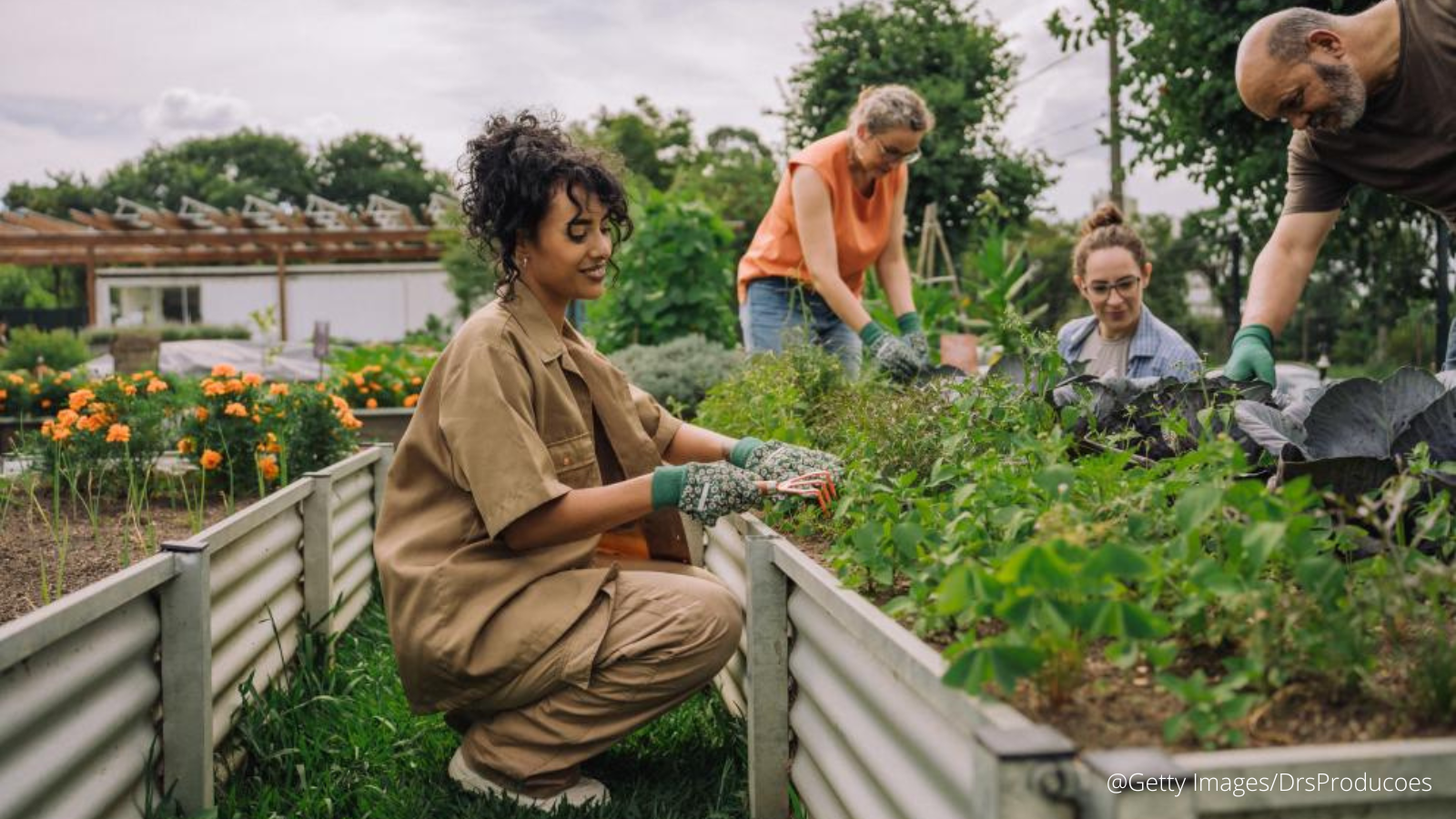
17 September 2025
Young European generations for the future of pollinators
Nearly 40% of pollinating insect populations are now threatened in Europe. In response to this alarming decline, the European Commission is testing a new participatory initiative: an assembly of young citizens from all 27 Member States •••
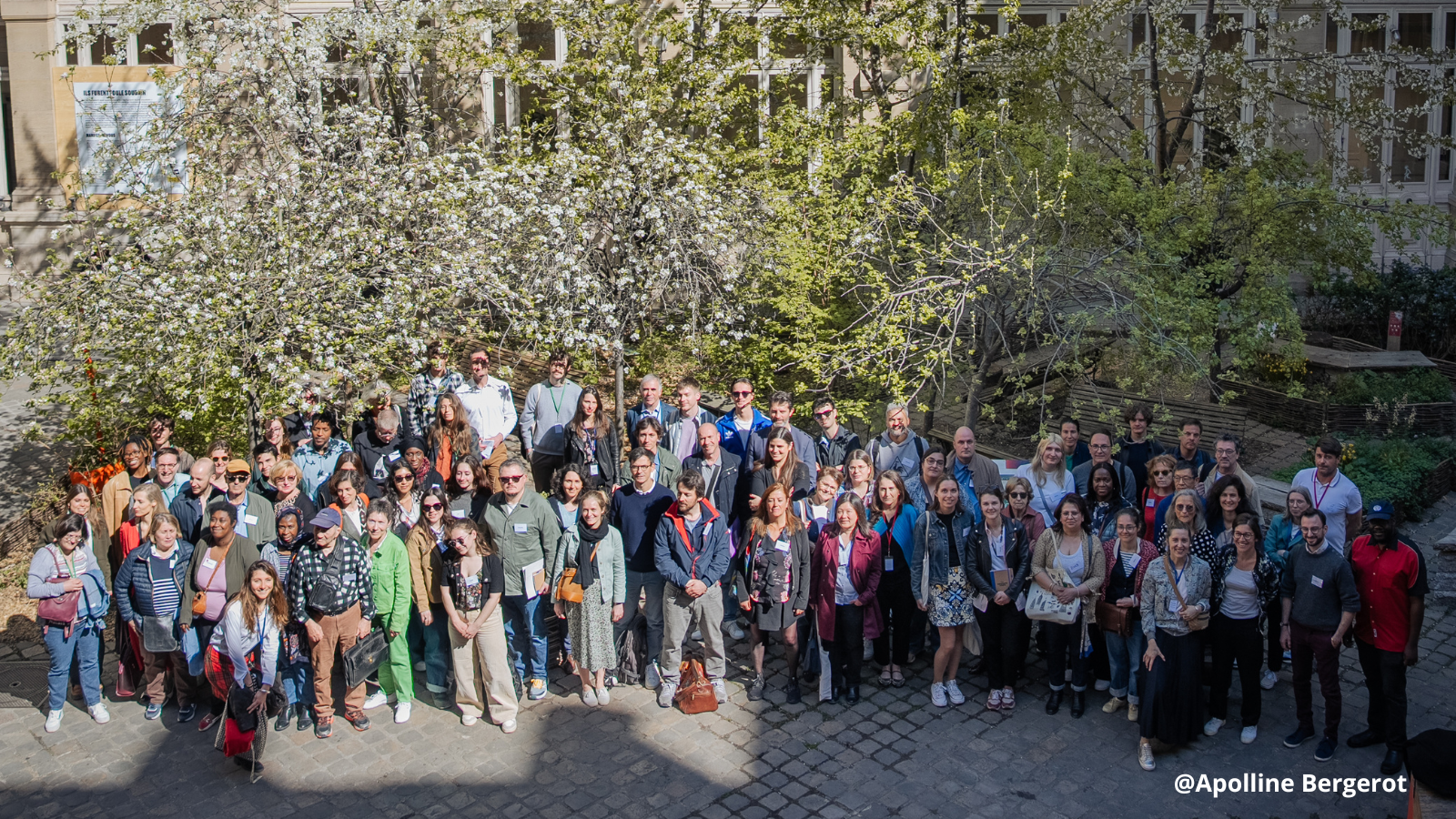
25 June 2025
"Respecting the living world also means protecting ourselves"
In April 2025, the City of Paris launched a Citizens’ Assembly to explore the idea of granting rights to the Seine. Over three weekends, 50 randomly selected Parisians came together to develop proposals aimed at better protecting the river and rethinking how it is used. •••
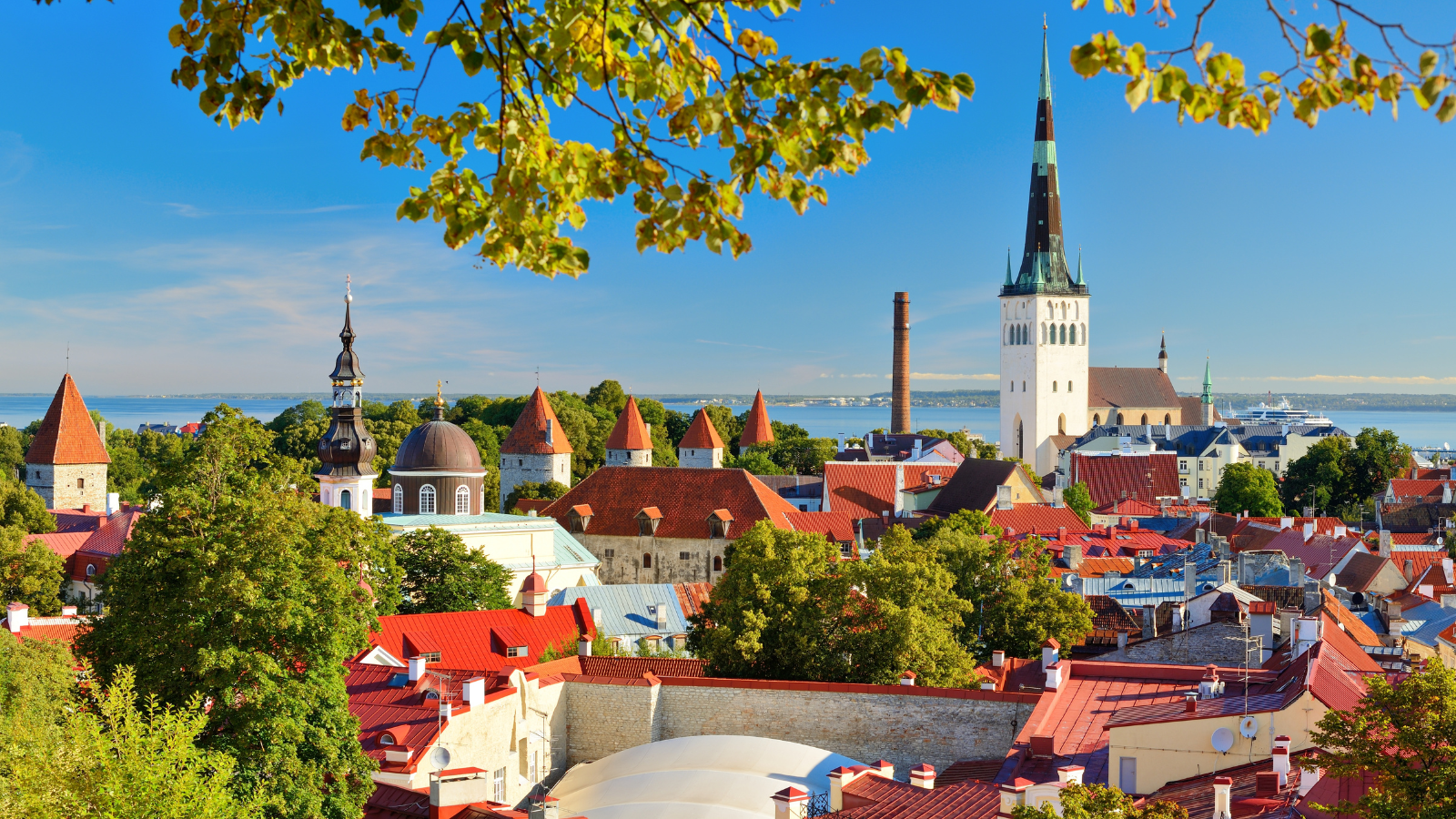
25 June 2025
Anticipating democratic challenges in Central and Eastern Europe
Vladislava Gubalova works at GLOBSEC, one of our partners in the ScaleDem project, funded by Horizon Europe, the European research and innovation programme. •••
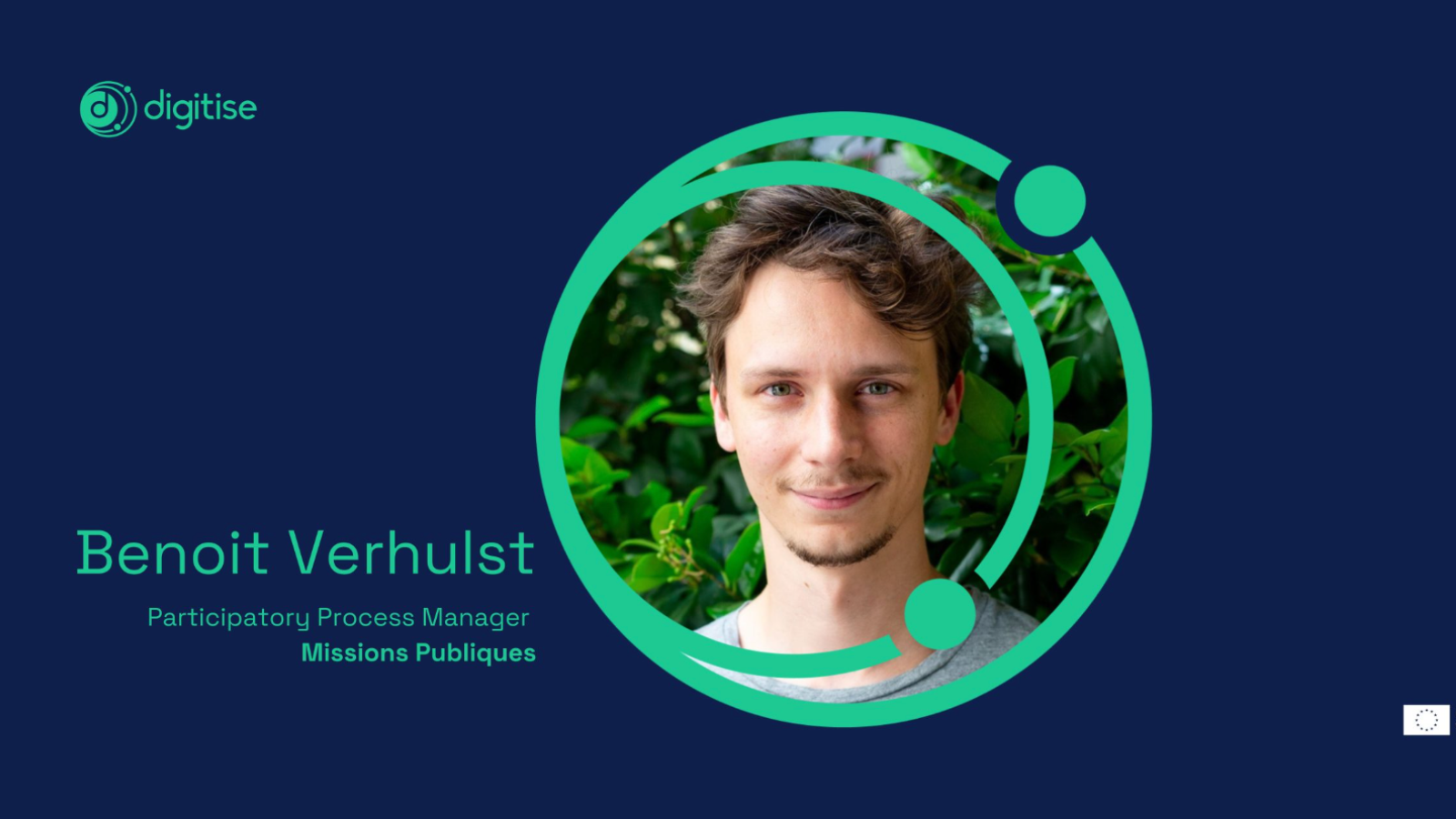
26 May 2025
Bringing Citizens into the Energy Conversation
The European DIGITISE project establishes “energy dialogues” that bring together citizens, businesses, associations, and decision-makers to ensure a structured exchange in which every voice is respected. •••

26 May 2025
A new course for global ocean governance
As the planet faces unprecedented challenges, an ambitious initiative is emerging to bring youth voices into the decision-making process for the future of the oceans. The 2025 Ocean Leaders Fellowship (OLF) •••
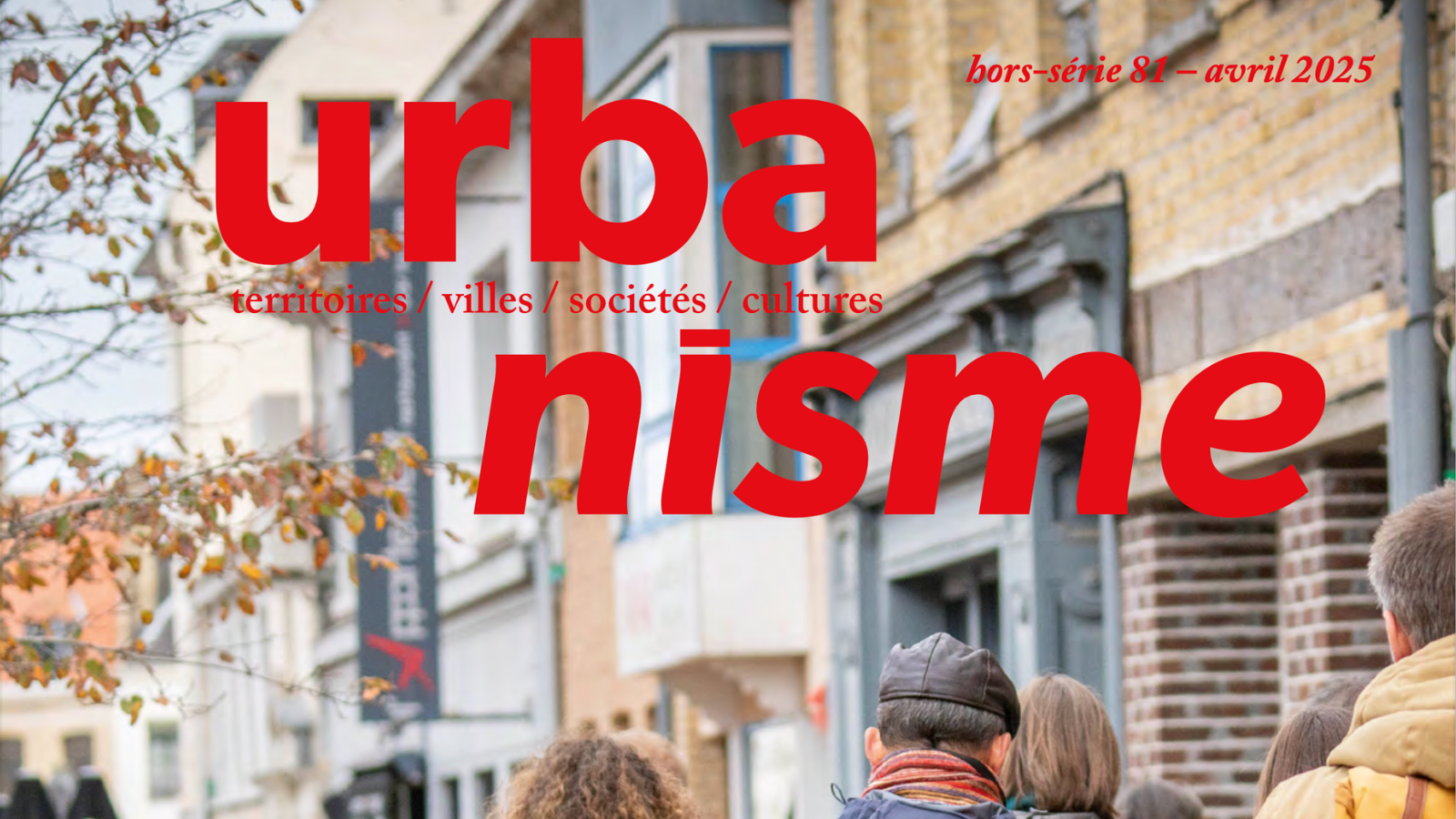
26 May 2025
When residents, biodiversity, and future generations shape the city of tomorrow.
The workshop 'Public Spaces and Voices of the Future: Co-creating Livable and Lively Public Spaces' imagined an open-air laboratory where a role-playing game •••
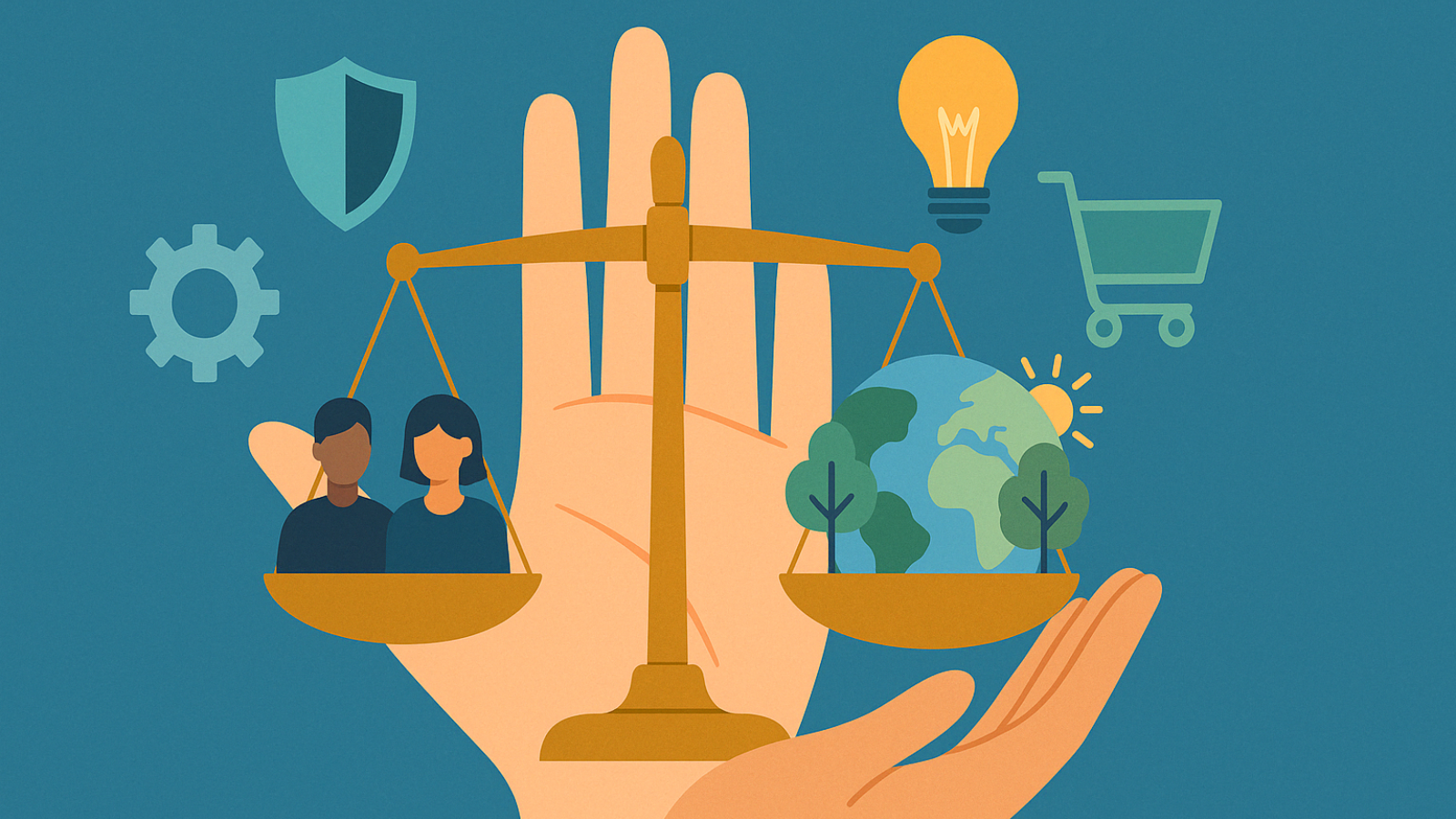
22 April 2025
Rediscovering the path of transformative negotiations
The symptoms of social tensions and democratic crisis are now glaring, even as we face formidable challenges such as the ecological crisis, the digital revolution, and demographic changes. •••
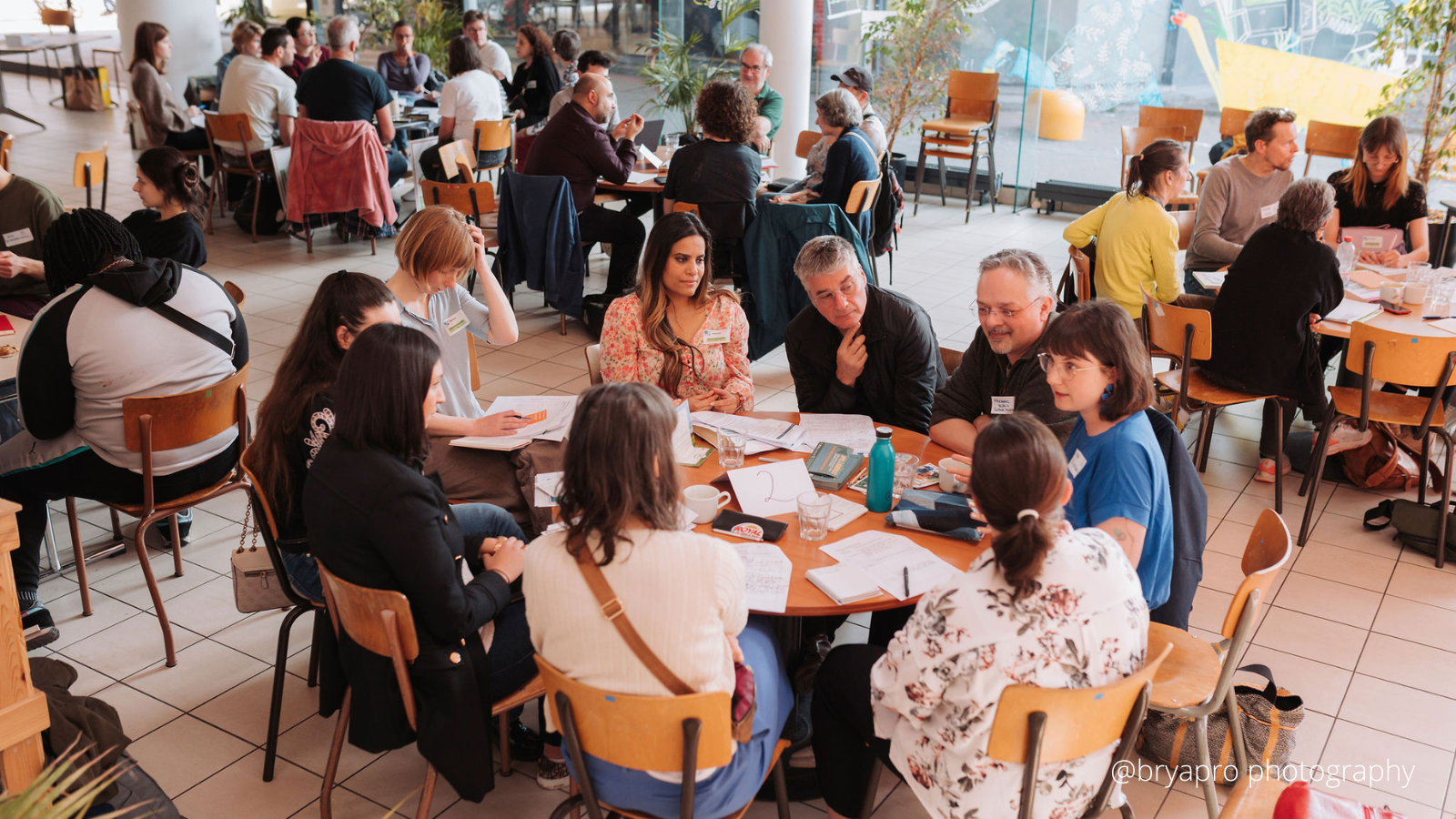
26 March 2025
What if buying new became the exception?
The third cycle of the Citizens’ Assembly for Climate in the Brussels Region focuses on the sharing and collaborative economy. •••
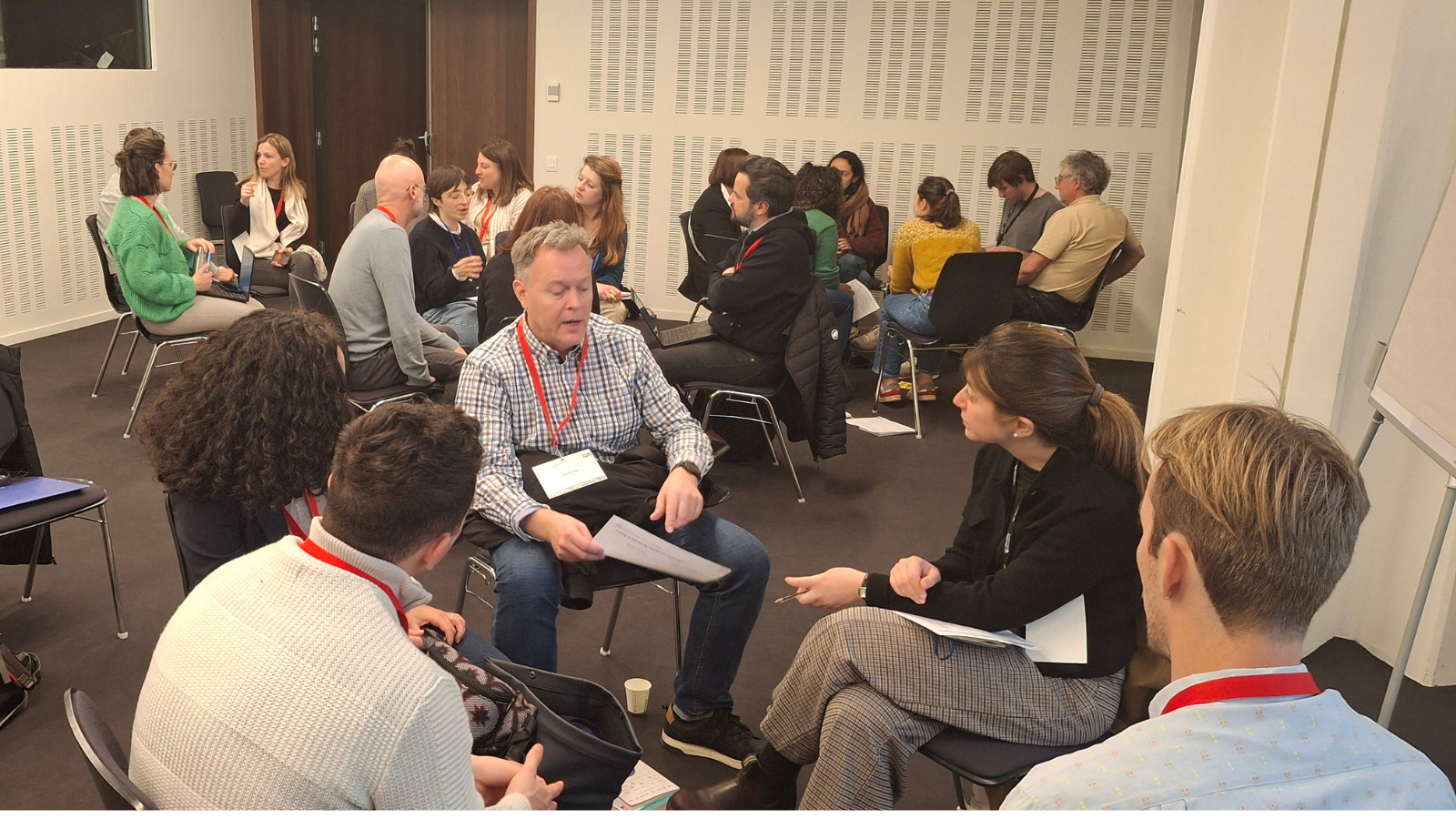
26 March 2025
“Protection and Innovation go hand in hand”
The ScaleDem project examines how democratic innovations can effectively “scale” and reshape governance. In this interview, we delve into the project’s approach with two key contributors •••
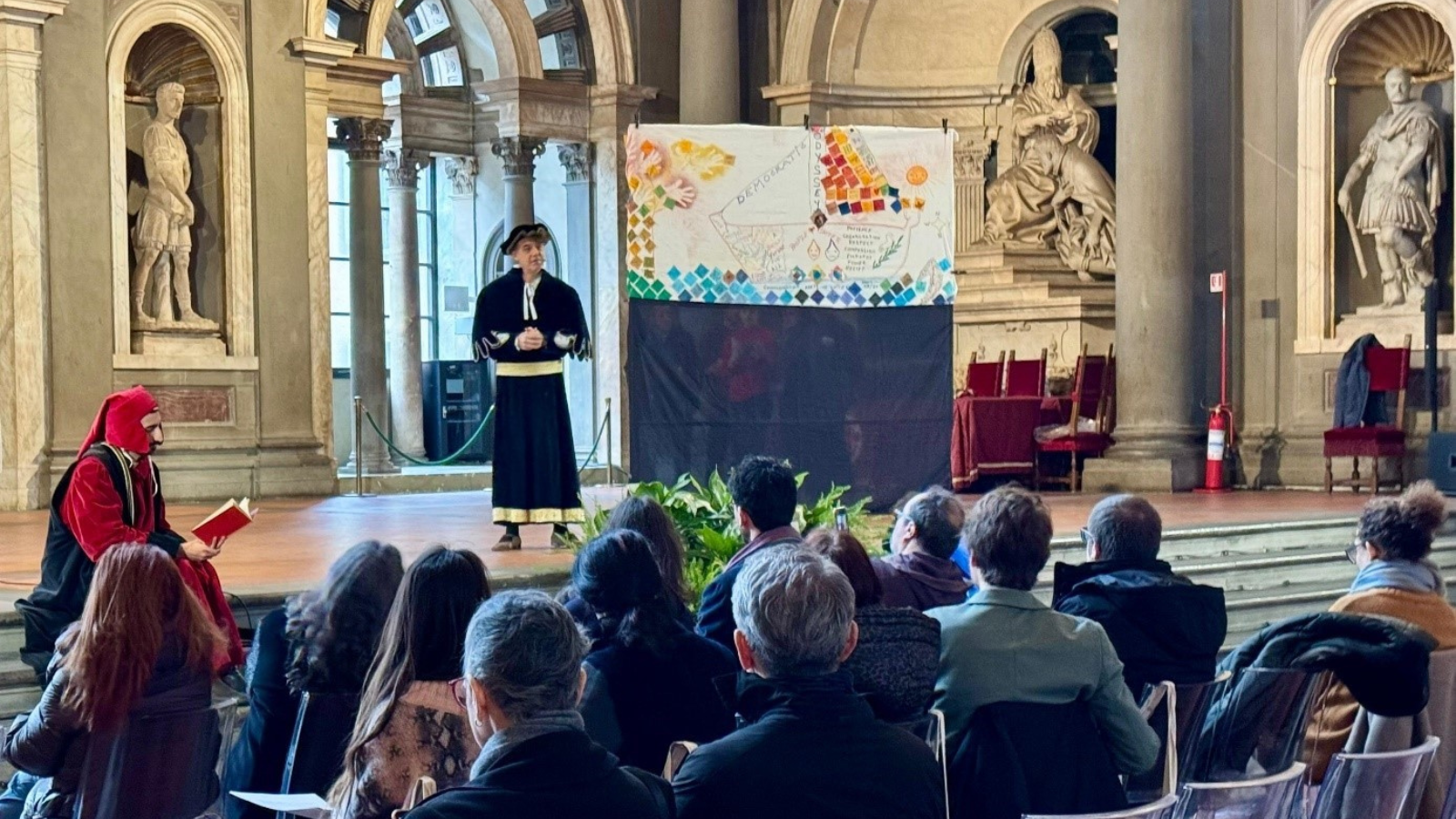
26 March 2025
The Democratic Odyssey: Europe’s Journey Continues
The Democratic Odyssey is a collective European project initiated by the School of Transnational Governance of the European University Institute and Professor Kalypso Nicolaïdis. Its goal: through an itinerant citizens’ assembly, imagine solutions to help the European Union better overcome both current and future crises. •••
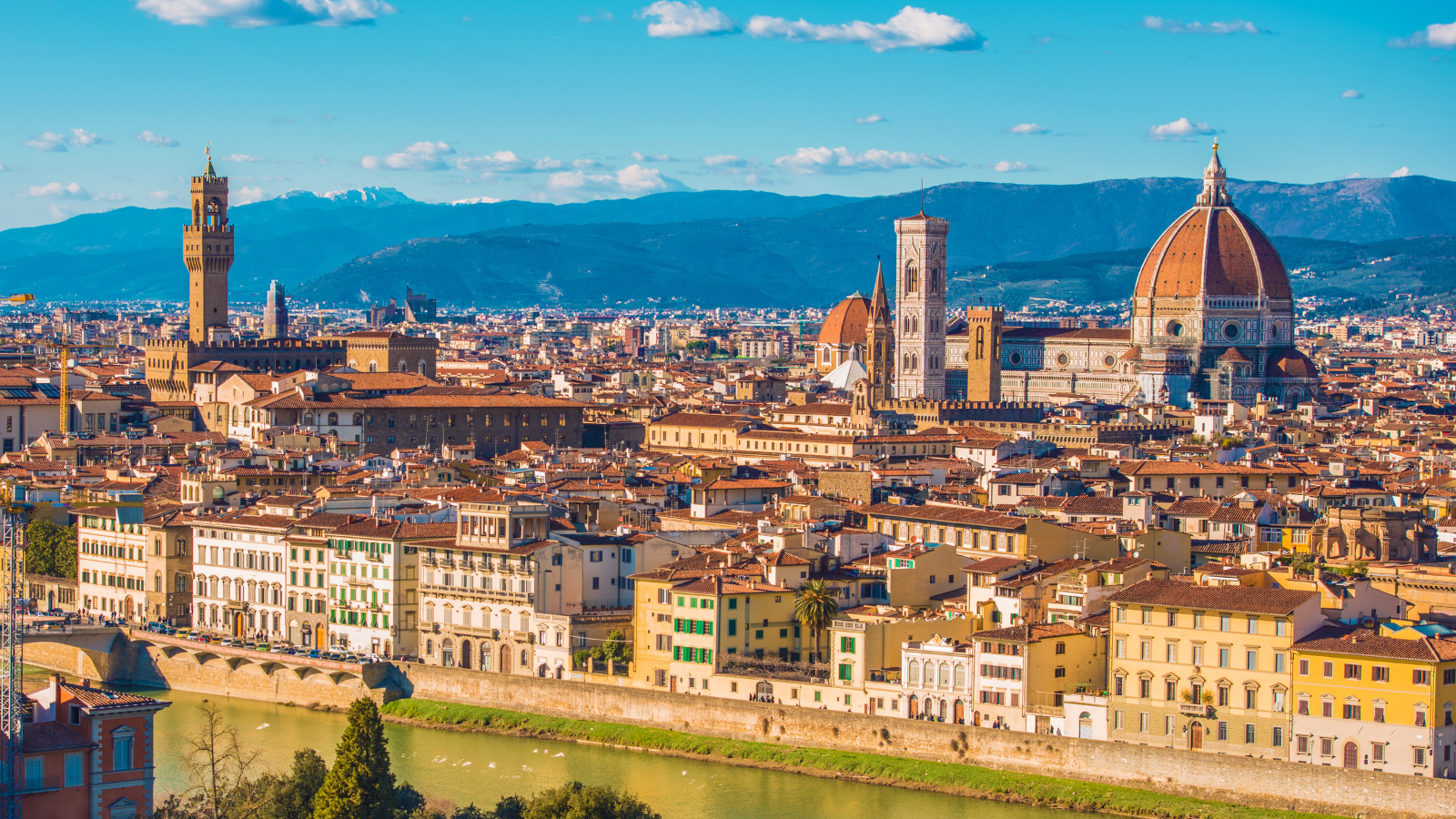
27 February 2025
“Building a 21st-Century Theory of Scaling Democratic Innovations”
In the face of evolving challenges to democracy, the ScaleDem project is exploring how democratic innovations can be effectively scaled. In this interview, Ulrike Liebert, principle investigator at the European University Institute (EUI), and Max Povse, a researcher at EUI’s Florence School of Transnational Governance, share their insights on the project's objectives and progress. •••
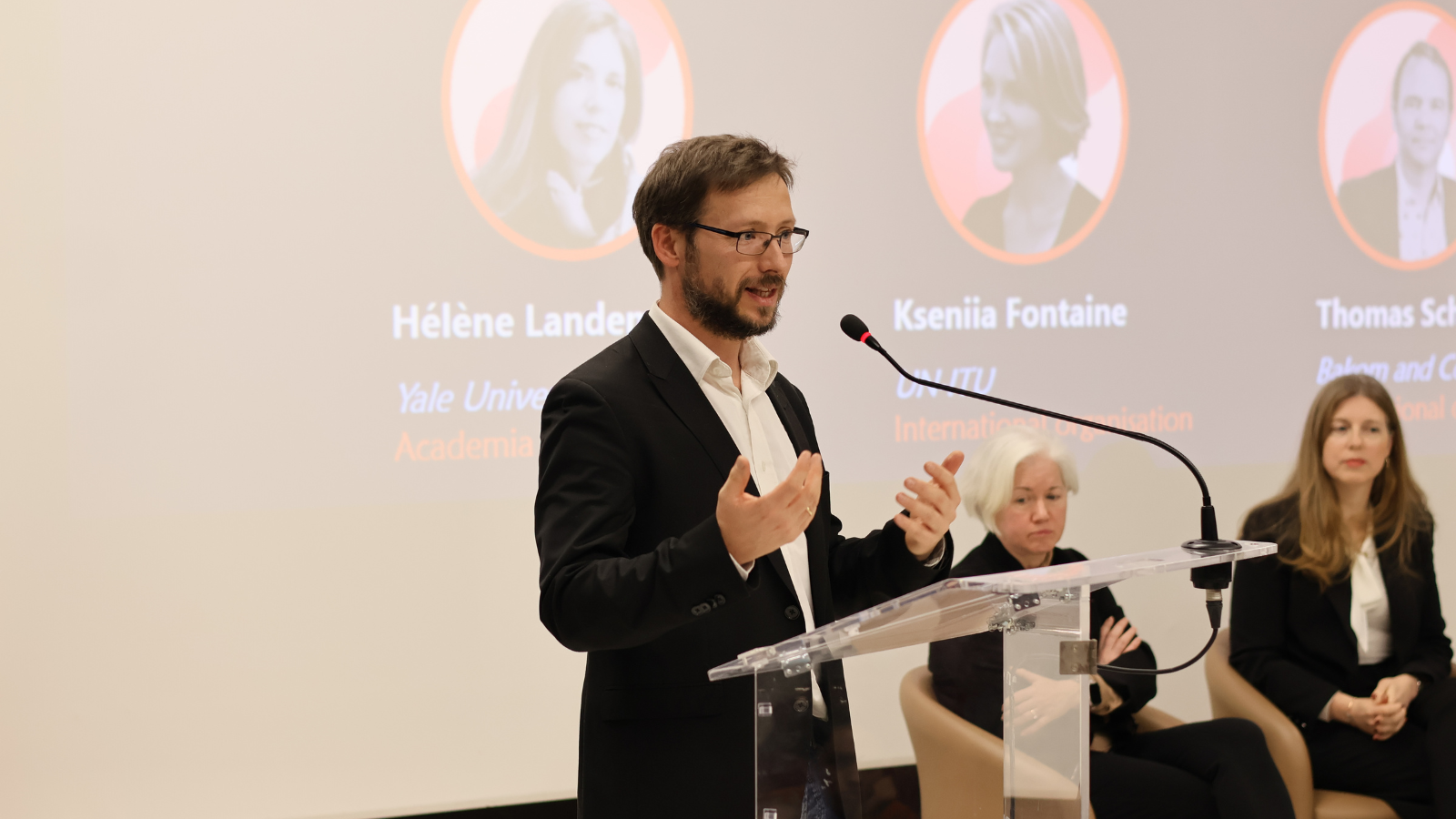
26 February 2025
A Coalition for Inclusive AI
As part of the AI Action Summit, held in Paris in February 2025, Missions Publiques and the Stanford Deliberative Democracy Lab officially launched the Global Coalition for Inclusive AI Governance. •••
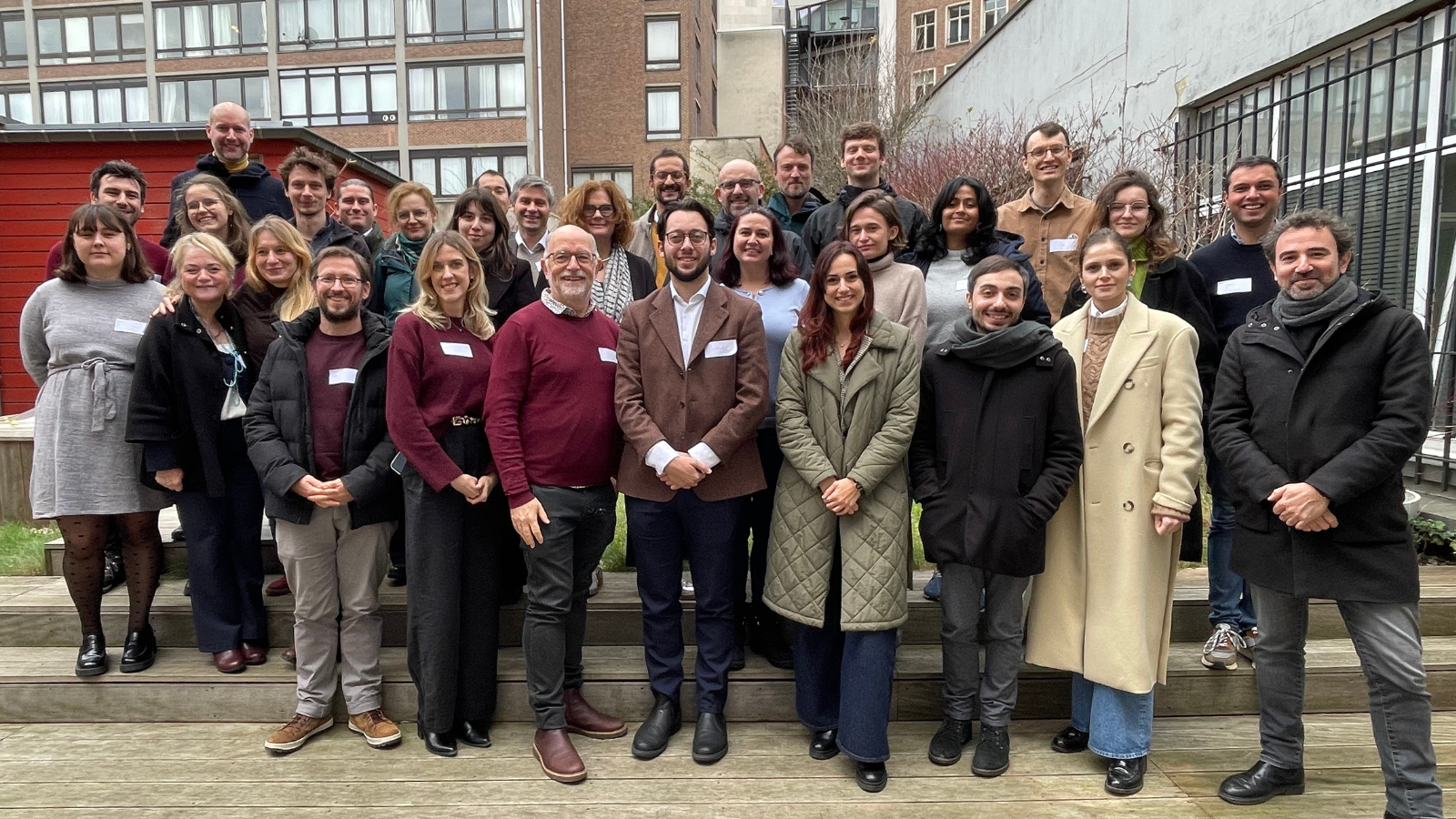
18 December 2024
The Challenge of Scaling Up Democratic Innovations
The ScaleDem launch event took place in early December in Brussels. What is ScaleDem? It is a project funded by the European Union that aims to better connect research outcomes with societal needs in the field of democratic innovations. •••
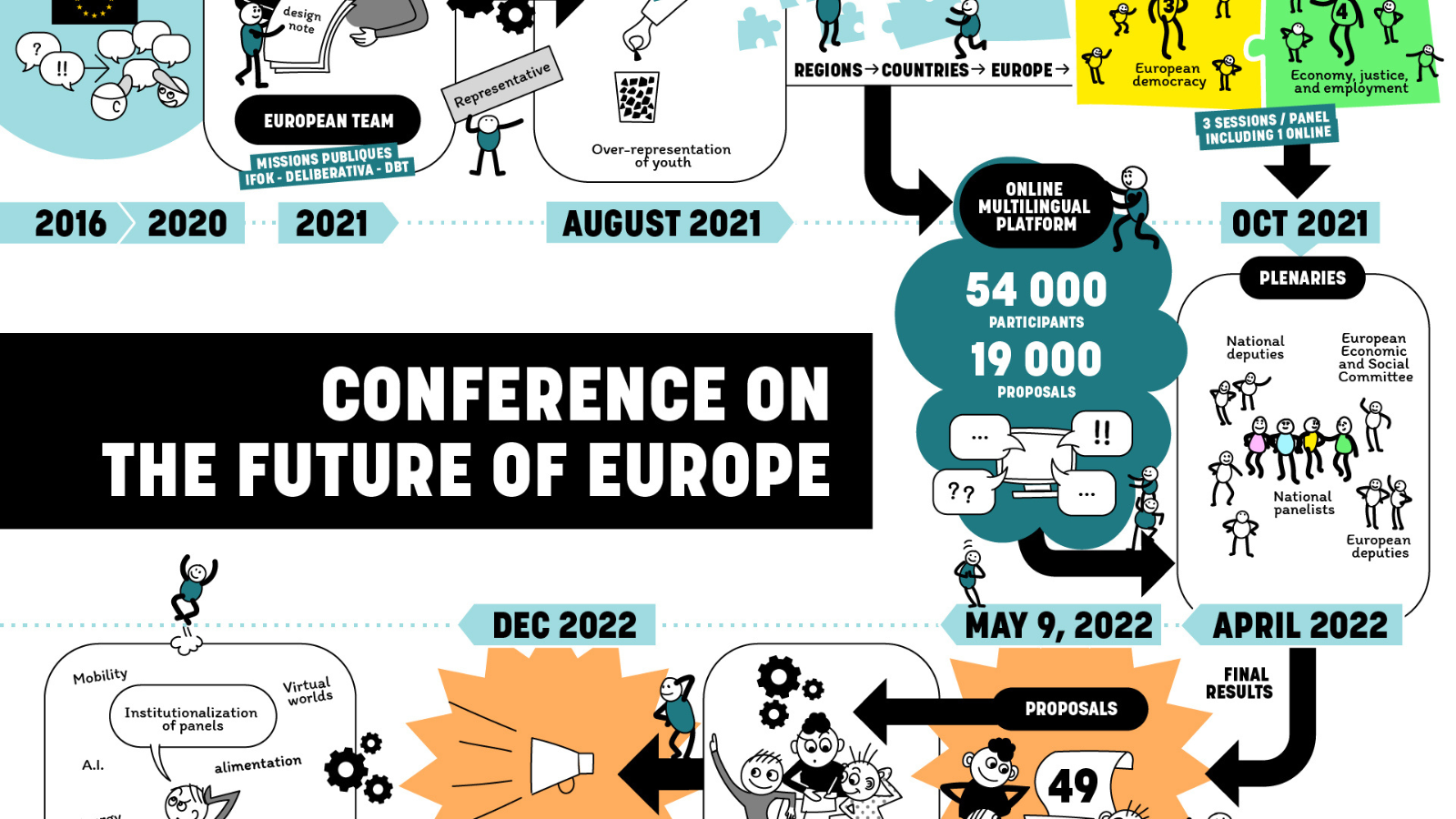
18 December 2024
2021: The Conference on the Future of Europe - 25 YEARS #8
Final, final flashback of our time-travel machine with the Conference on the Future of Europe (CoFE), launched by the European Union in May 2021. •••
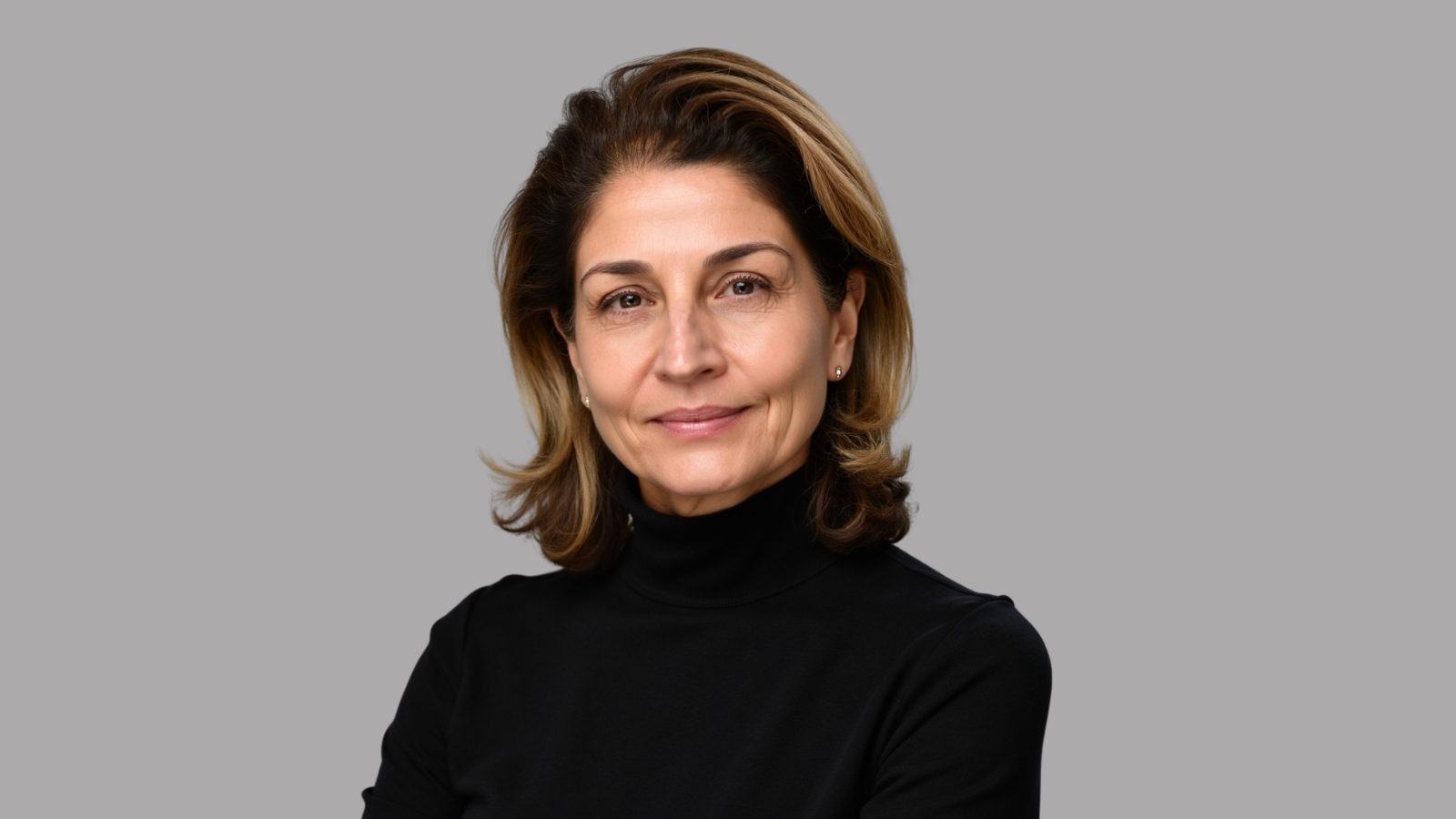
27 November 2024
Meet Marjan Horst Ehsassi
Marjan Horst Ehsassi is the Executive Director of the Federation for Innovation in Democracy (FIDE) in North America. Specializing in democratic innovations, she has studied the impact of citizens’ assemblies in France, Belgium, Canada, and the United States. •••
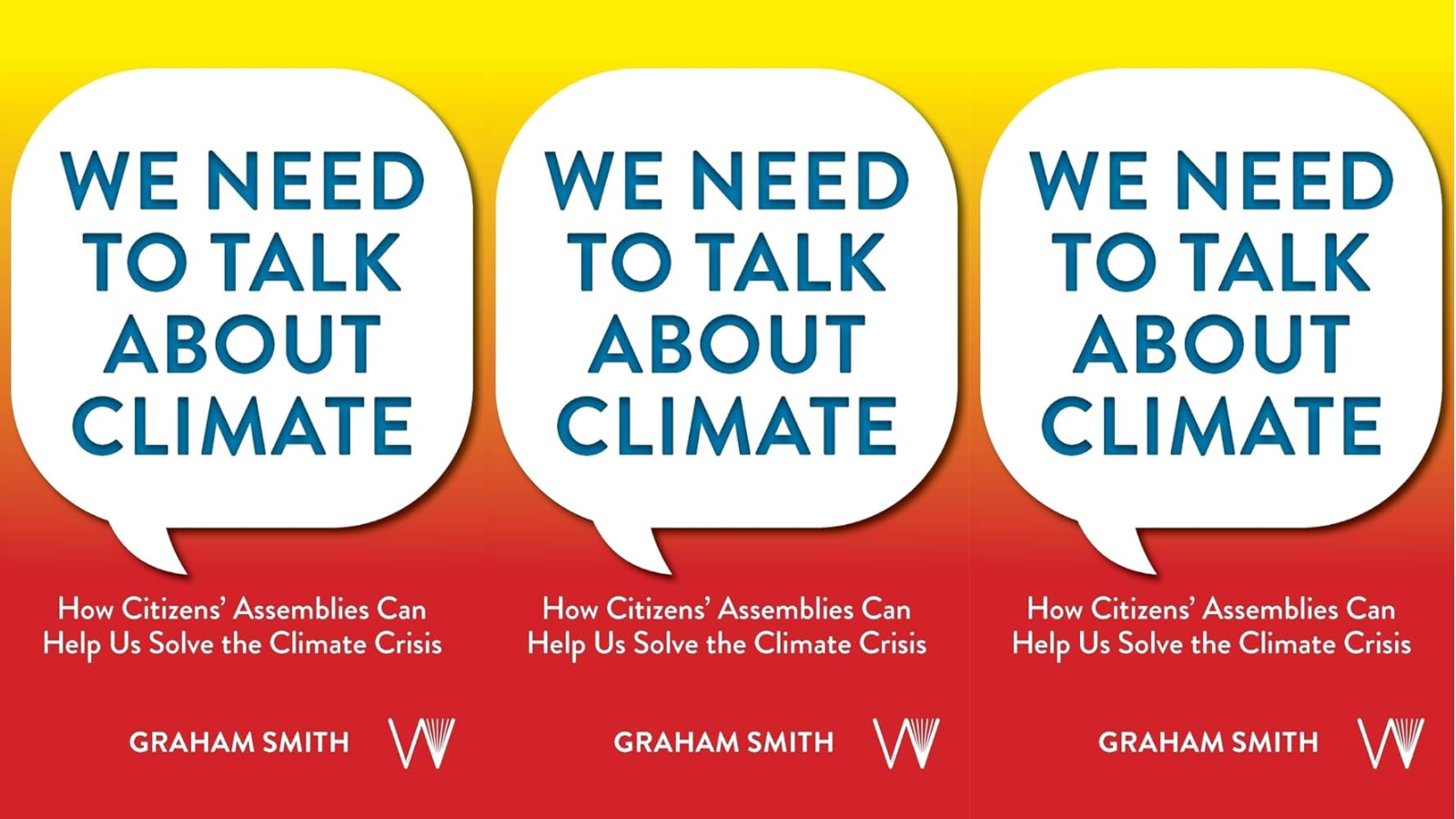
27 November 2024
'‘Citizens‘ conventions are “real utopias”’
Graham Smith is a professor at the Centre for the Study of Democracy at the University of Westminster. Missions Publiques hosted him to discuss his latest book, We Need to Talk About Climate: How Citizens’ Assemblies Can Help Us Solve the Climate Crisis . •••
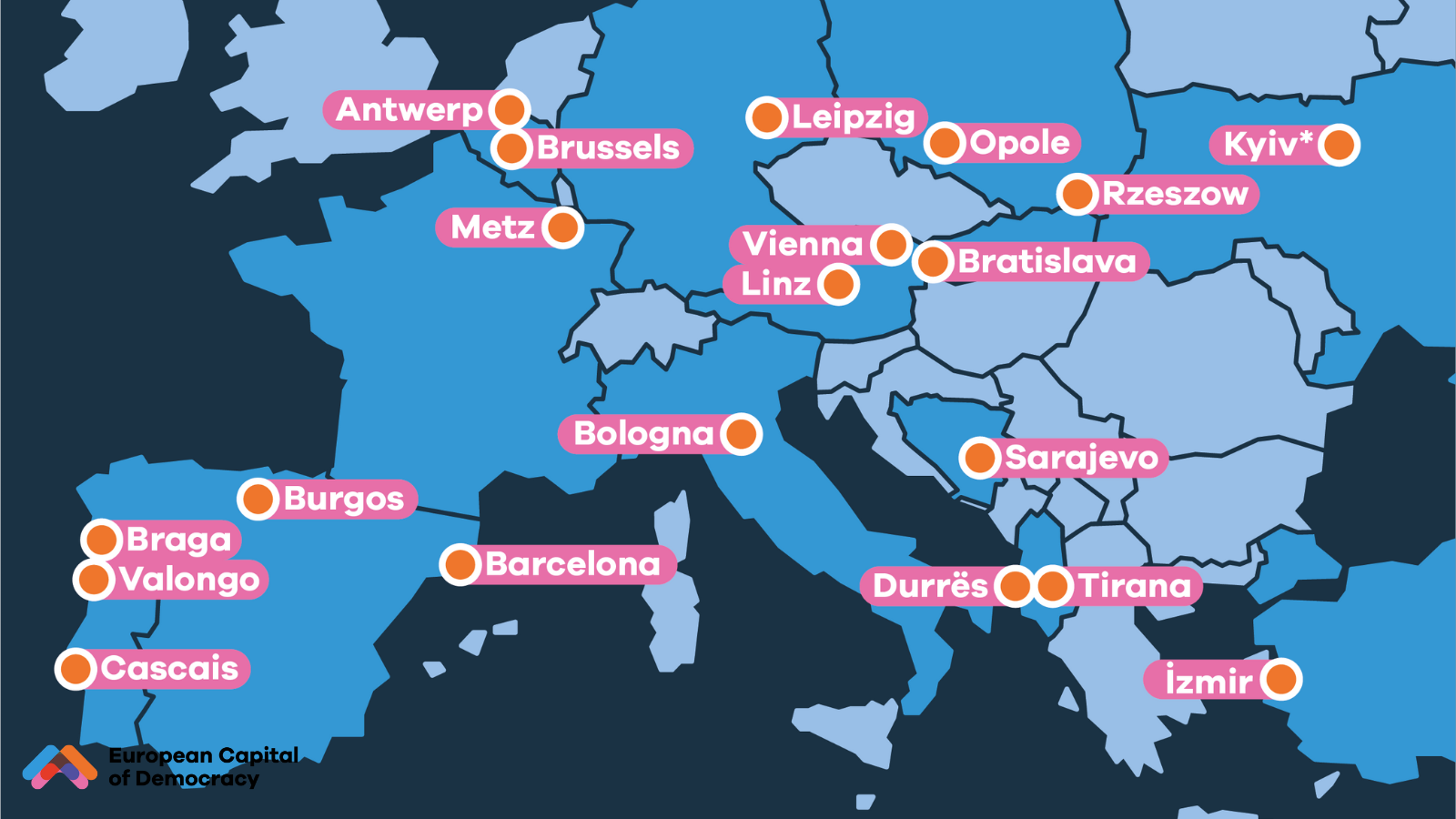
7 November 2024
“Cities are incubators of democracy”
Every year, a European city is chosen as the European Capital of Democracy. We met Stefan Sindelar, president of the EcoD association behind this initiative, and one of our partners in ScaleDem, the European program for democratic research and innovation. •••
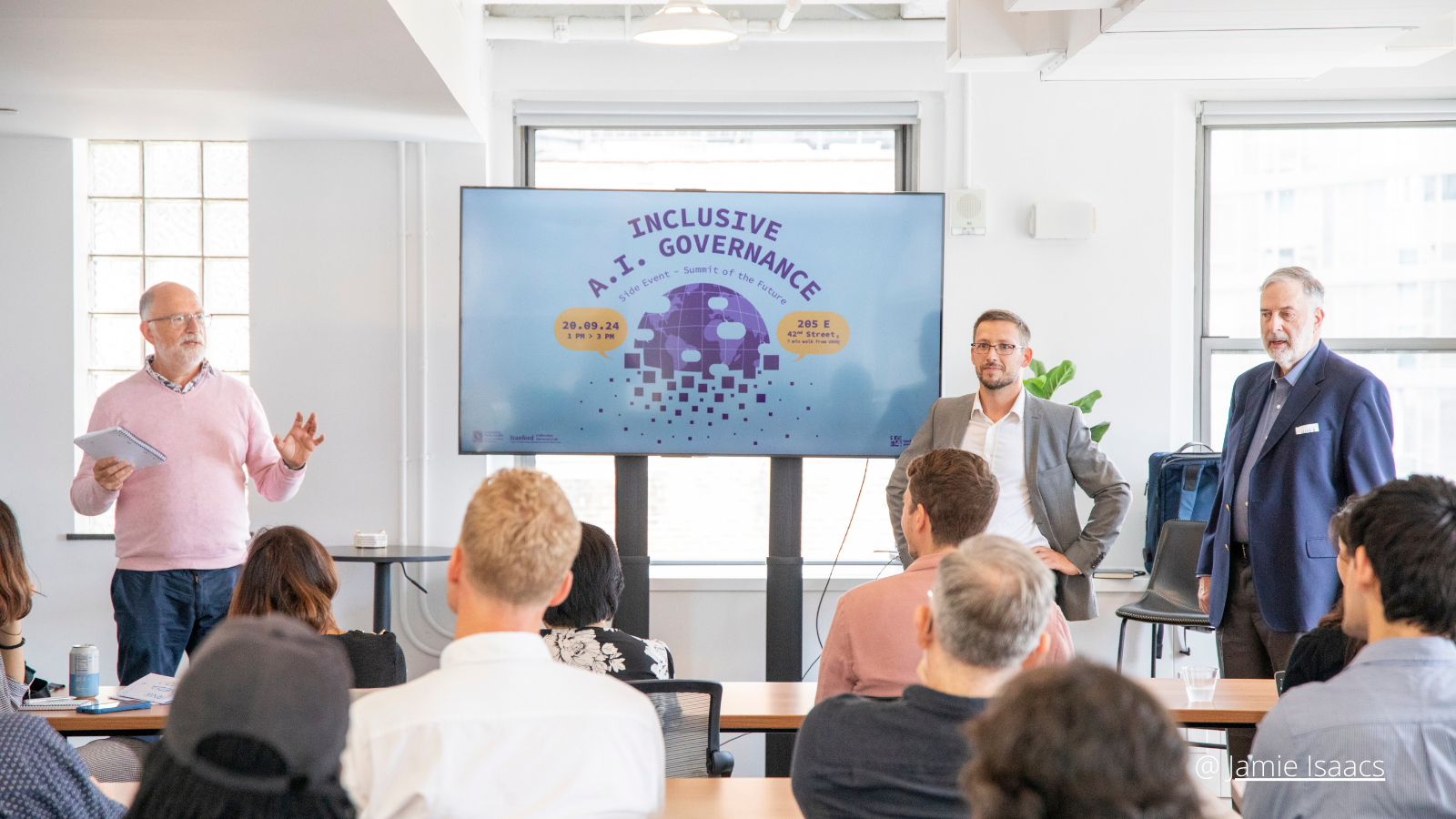
26 September 2024
AI: Towards Inclusive and Ethical Governance?
Artificial Intelligence (AI) has a tremendous impact on humanity. During the UN’s Summit for the Future, a panel of experts from various fields on AI proposed and adopted the Global Digital Compact. •••
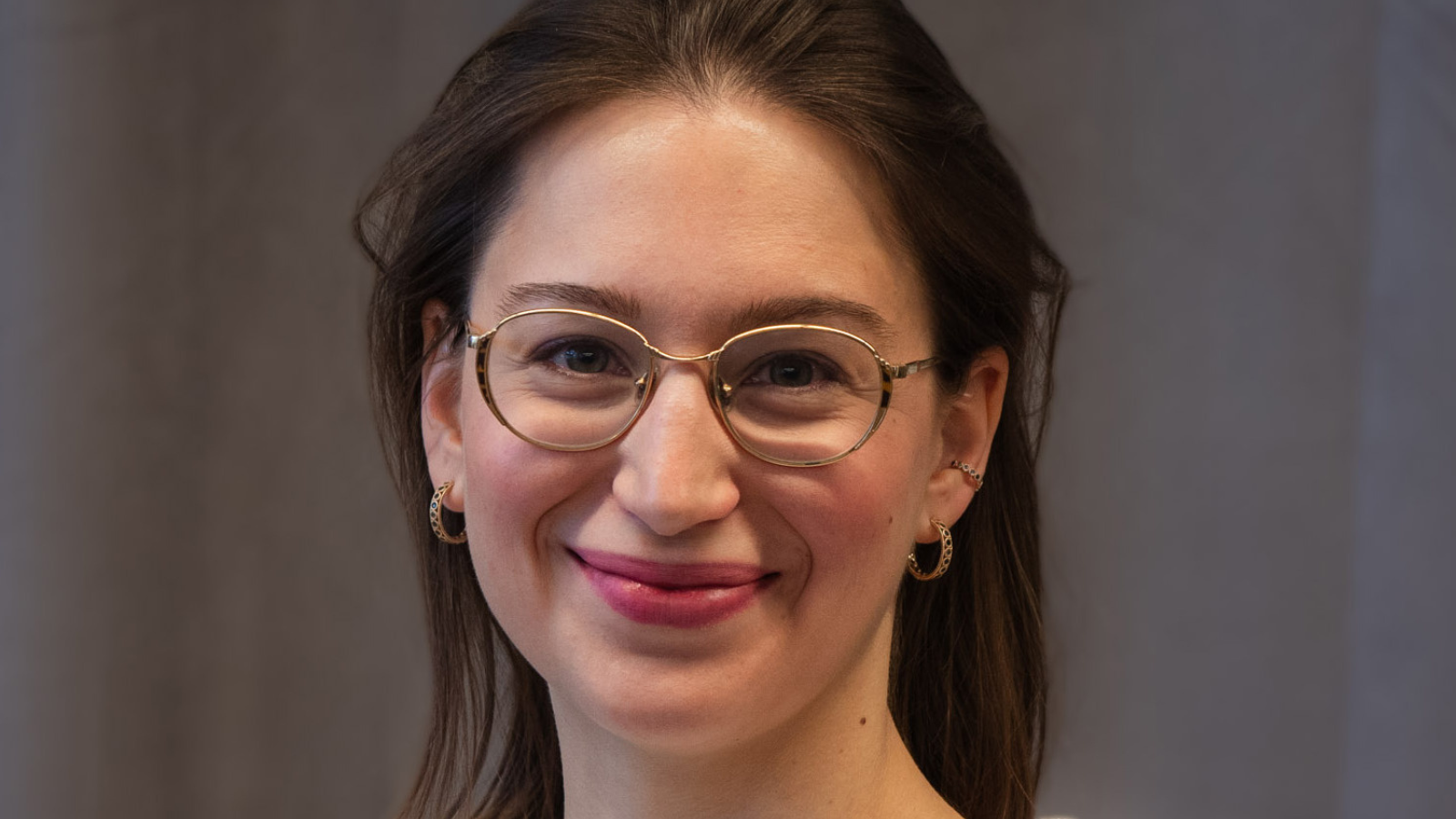
25 September 2024
"We need to rethink how citizens interact and connect with political systems"
Rieke Wönig works at Democracy Reporting International (DRI), one of our partners in the ScaleDem project funded by Horizon Europe, the European program for research and innovation. •••
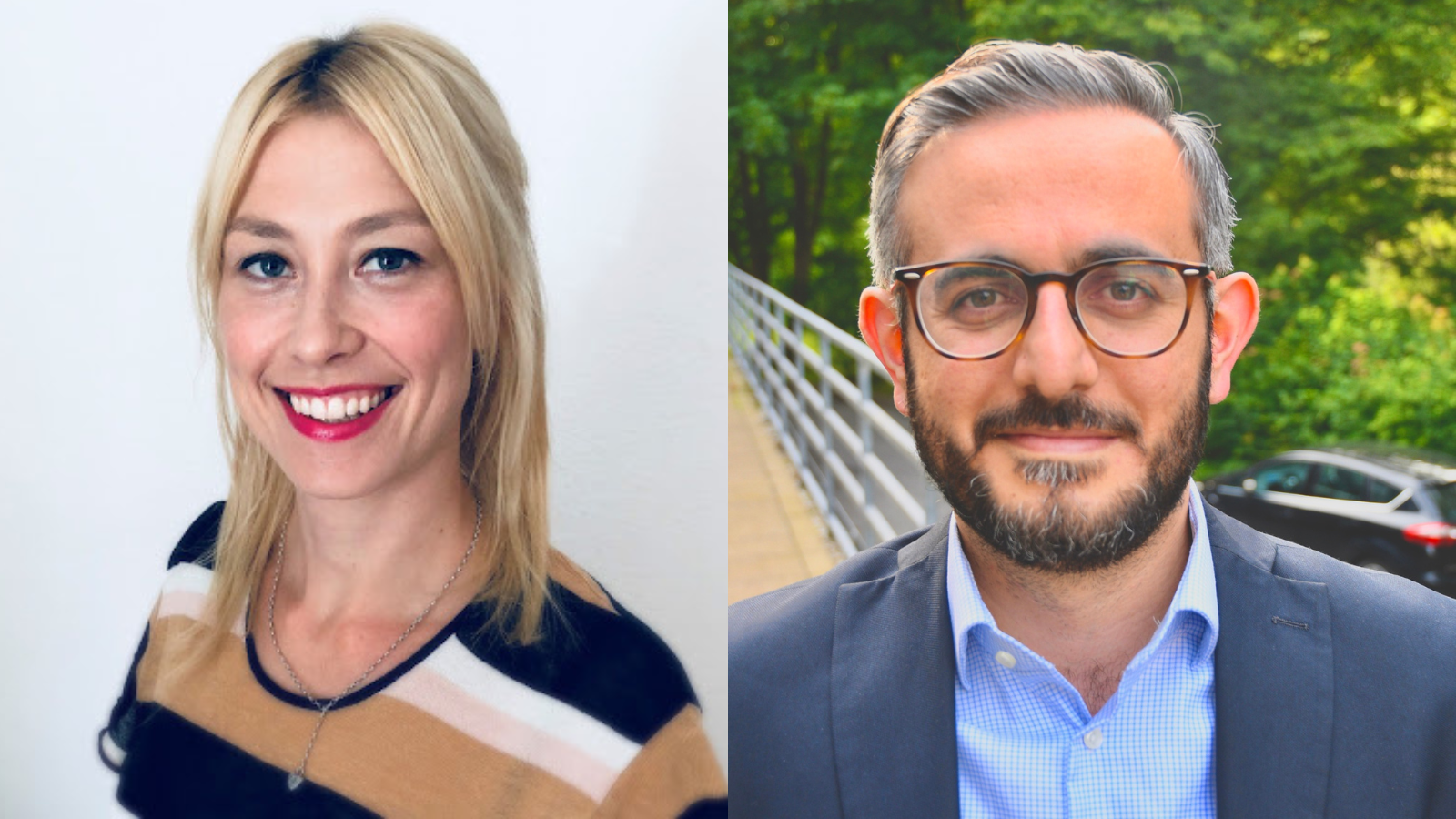
15 July 2024
Meet the Apolitical Foundation
The Apolitical Foundation's mission is to promote "representative political leadership for the 21st century", i.e. politicians capable of building democracies that serve citizens and the planet. •••
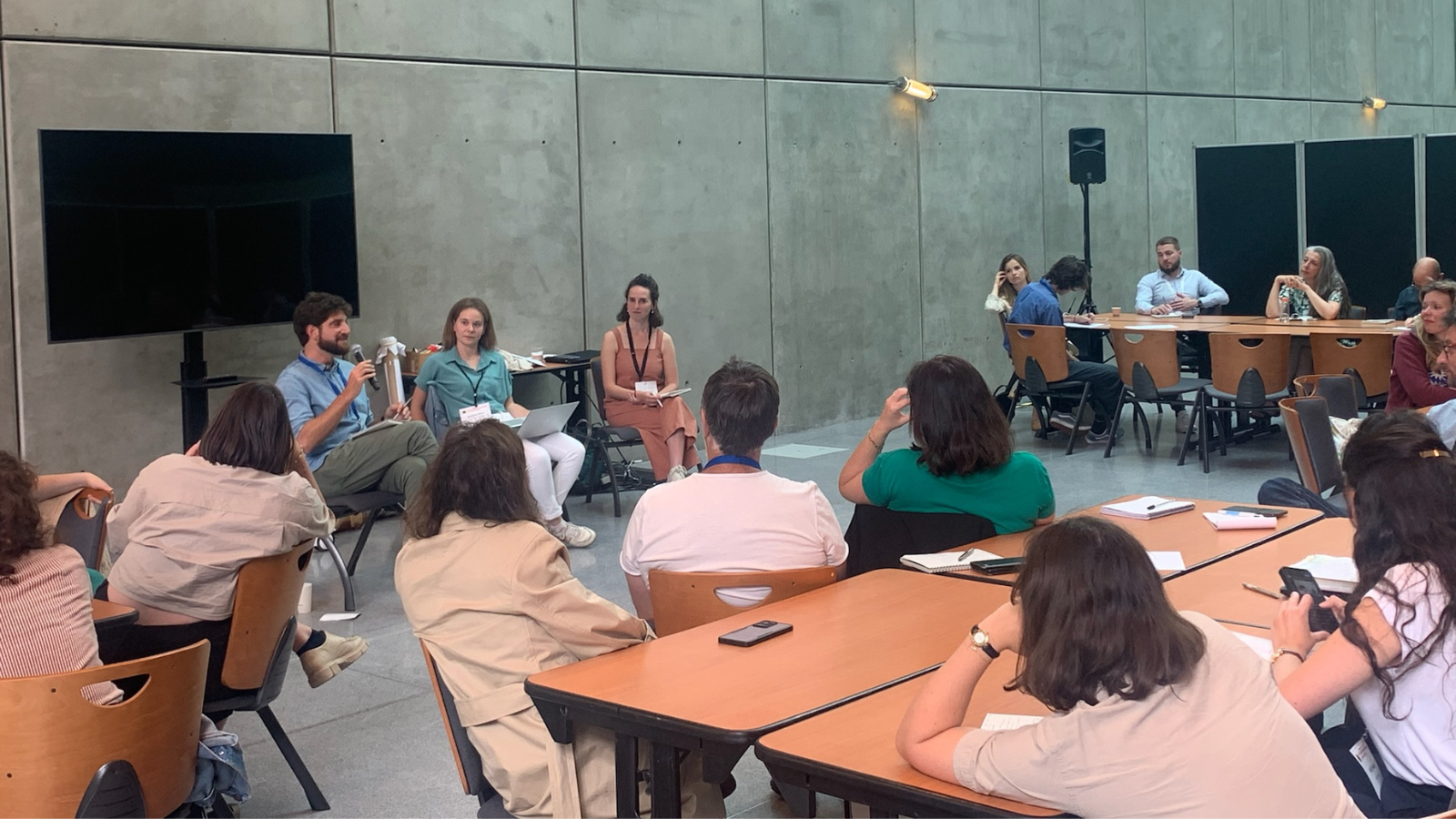
15 July 2024
Belgium: Institutionalizing Participation, Innovation or Fossilization?
Institutionalization is playing an increasingly significant role in participatory processes at both federal and regional levels in Belgium. Is it a relevant lever for embedding participation in the long term? Does it truly secure these mechanisms beyond political uncertainties? We sought the opinions of Manon Salmain and Jonathan Moskovic. •••
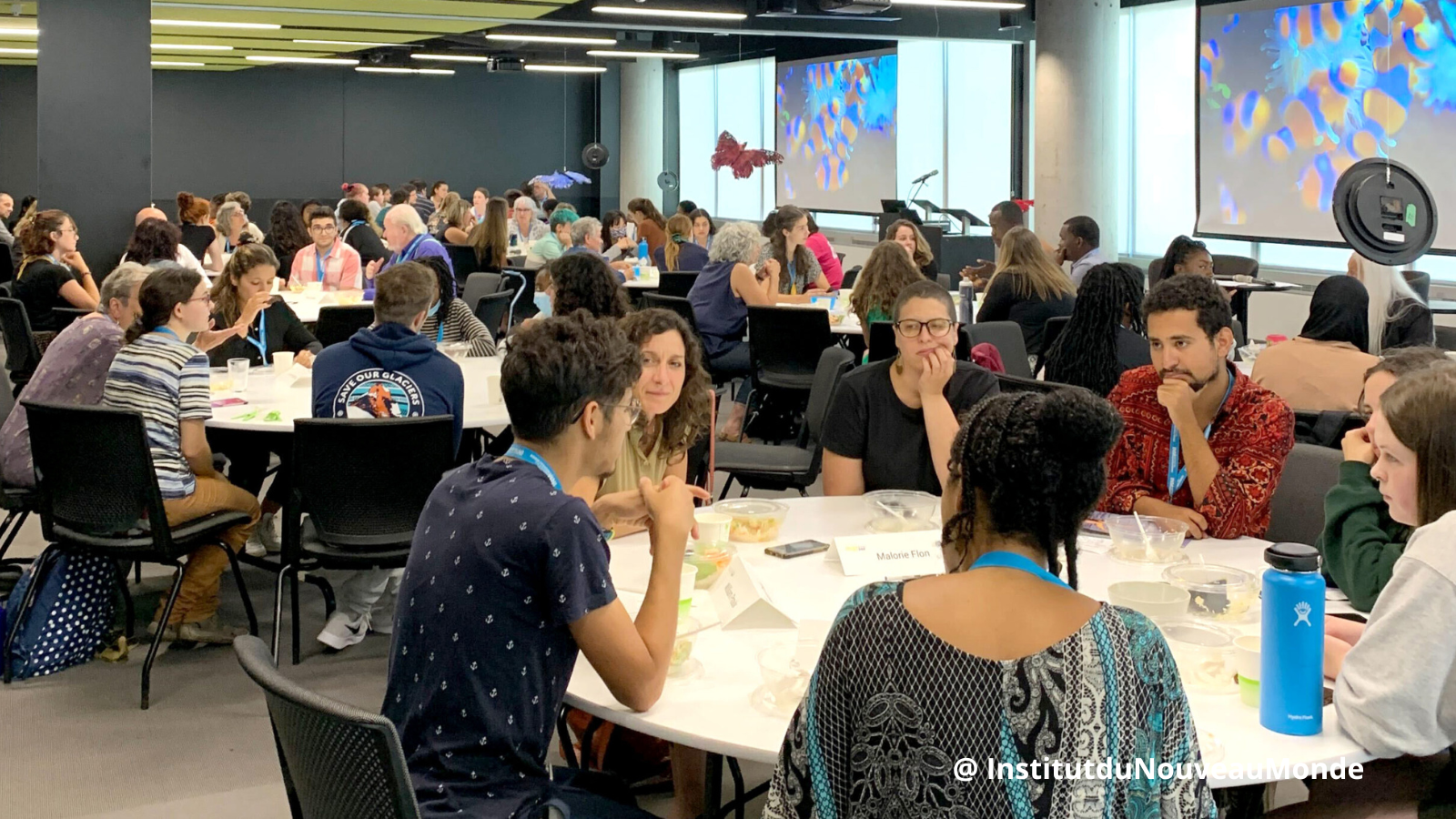
15 July 2024
“Public participation is key to avoiding the cynicism leading to authoritarian tendencies"
The Institut du Nouveau Monde (INM) is a non-profit organization whose mission is to increase citizen participation in democratic life in Quebec. According to its director, Malorie Flon, citizen participation is a key to a healthy democracy, serving as an essential complement to representative democracy. •••
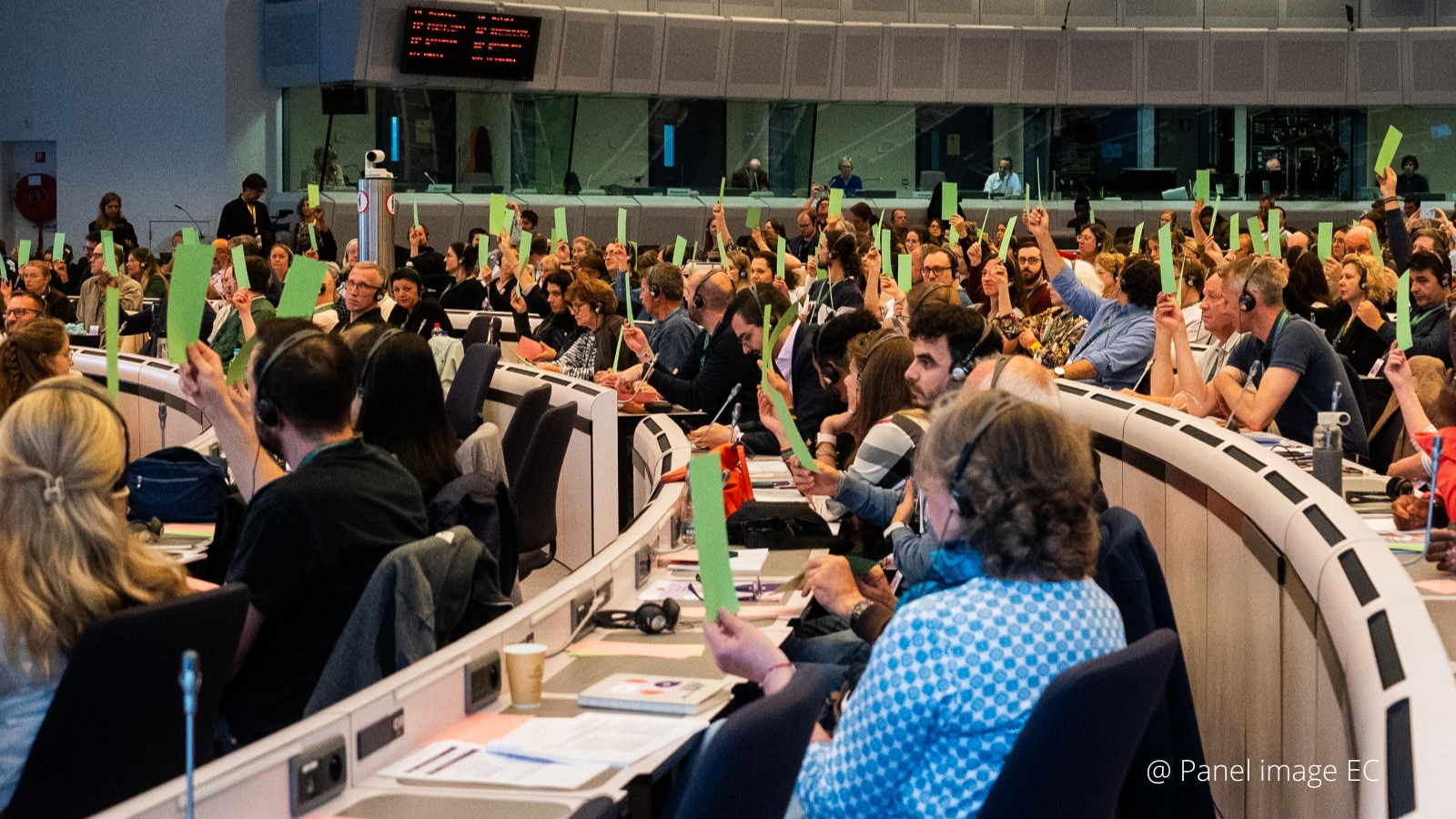
22 May 2024
What conclusions for the European Citizens' Panel on combating hatred?
It is the end of a Citizens' Panel unlike any other. A few weeks before the European elections, 150 citizens drawn from the 27 countries of the European Union submitted their recommendations •••
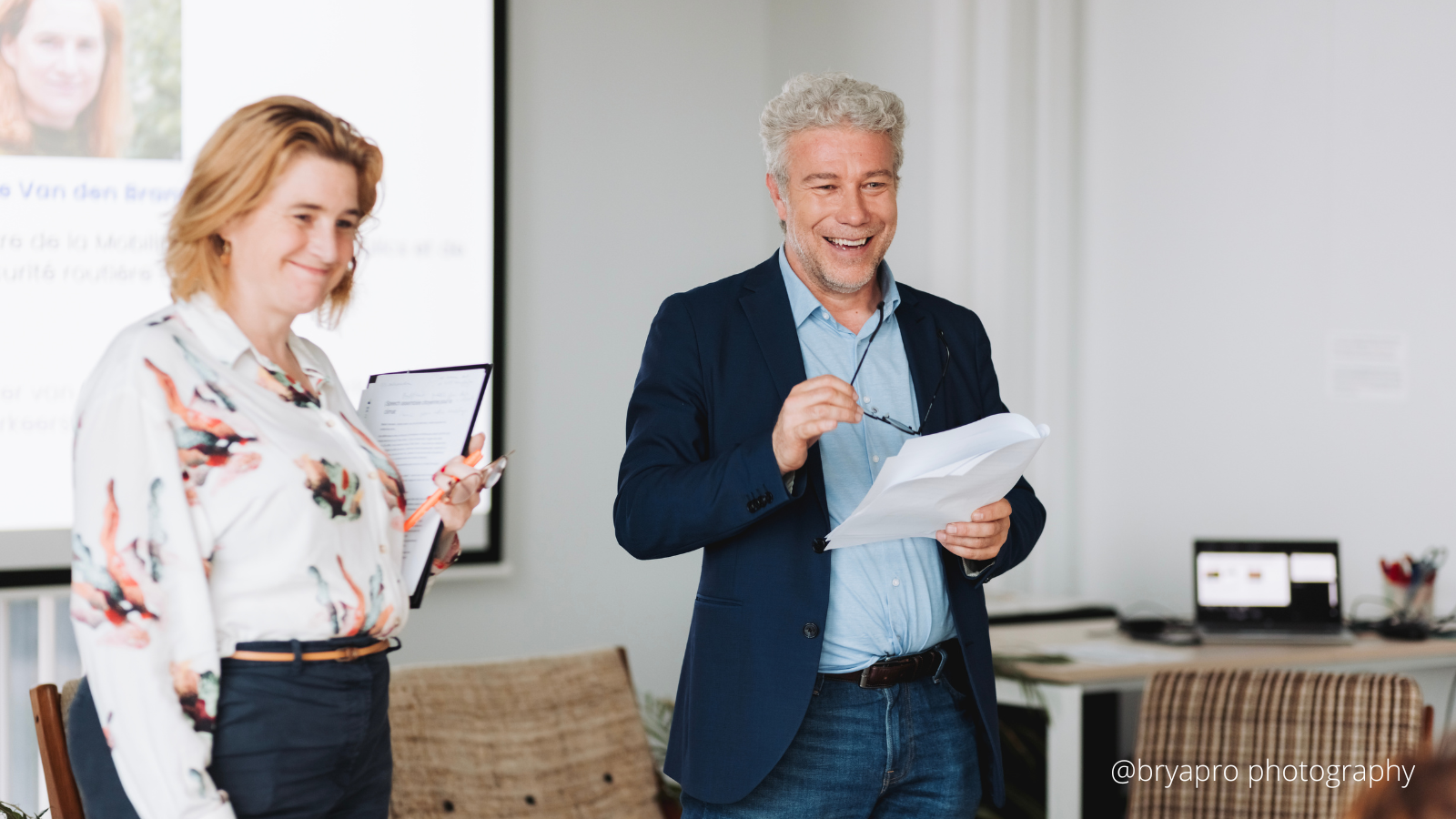
22 May 2024
Citizens' Climate Assembly of Brussels, 1st Cycle Report
As committed, the Government returned to the citizens to update them on the status of their proposals. •••

22 May 2024
"Citizens Can Handle Complexity"
Hendrik Van de Velde is a career diplomat. As part of the Belgian presidency of the Council of the European Union, he was heavily involved in organizing a citizens' panel on artificial intelligence. •••

24 April 2024
How to Listen to What We Cannot Hear?
The topics discussed during deliberative processes often impact the lives of non-humans who are not present and whose voices are consequently ignored. •••
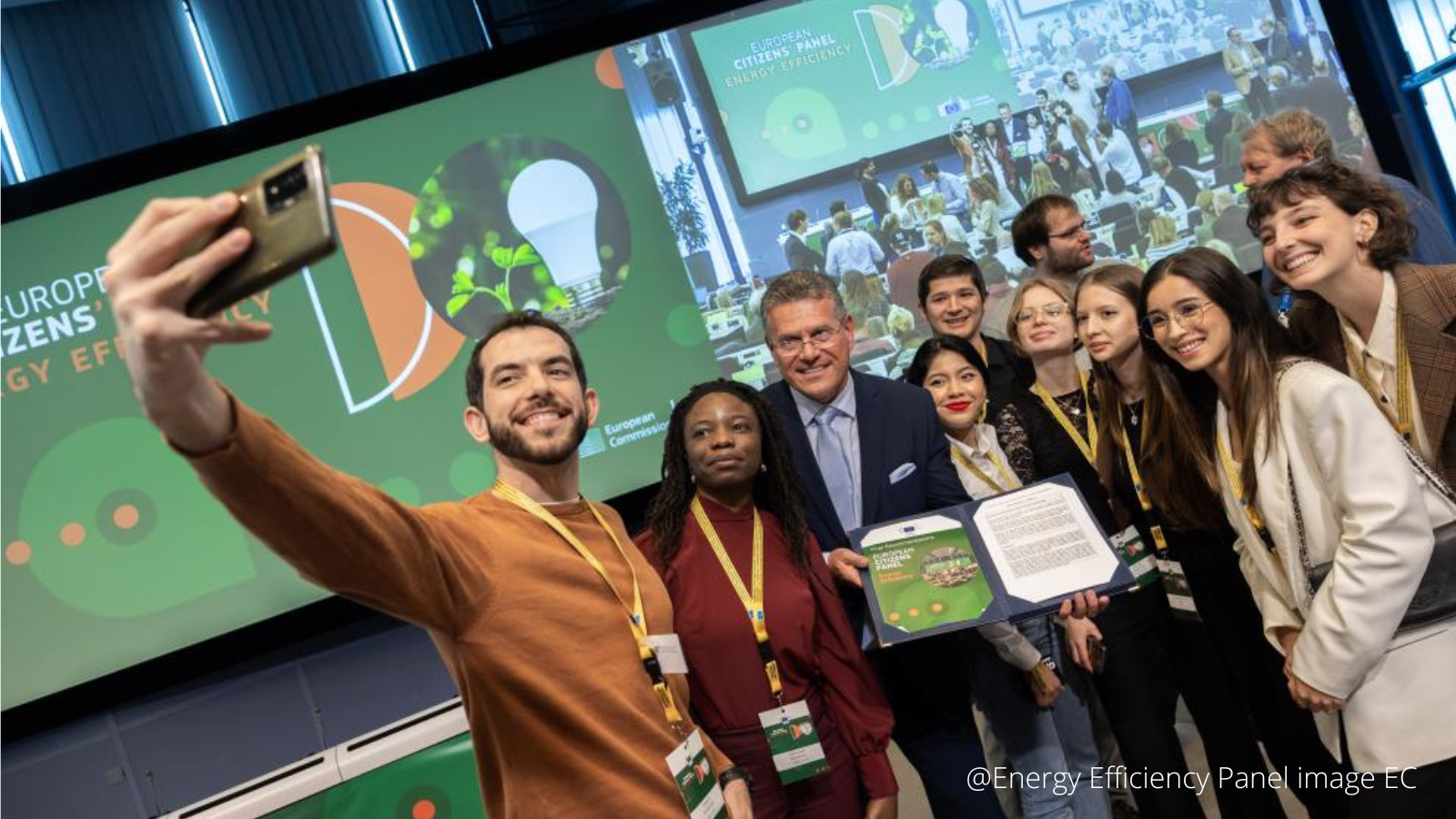
24 April 2024
European Panel: Energy Efficiency First!
Citizens of the European Panel on Energy Efficiency have presented their recommendations to Maroš Šefčovič, the Executive Vice-President of the European Commission in charge of the Green Deal, inter-institutional relations, and foresight. •••

20 March 2024
The inaugural session of the Global Citizens’ Assembly kicks-off soon during the UN Ocean Decade
In April 2024, Barcelona is set to host the inaugural session of the Global Citizens’ Assembly on the Ocean. This initiative, organized and coordinated by Missions Publiques, is part of the United Nations Decade of Ocean Science for Sustainable Development. Its primary aim is to pilot a new citizen deliberation method, intended for implementation in over 100 countries. •••
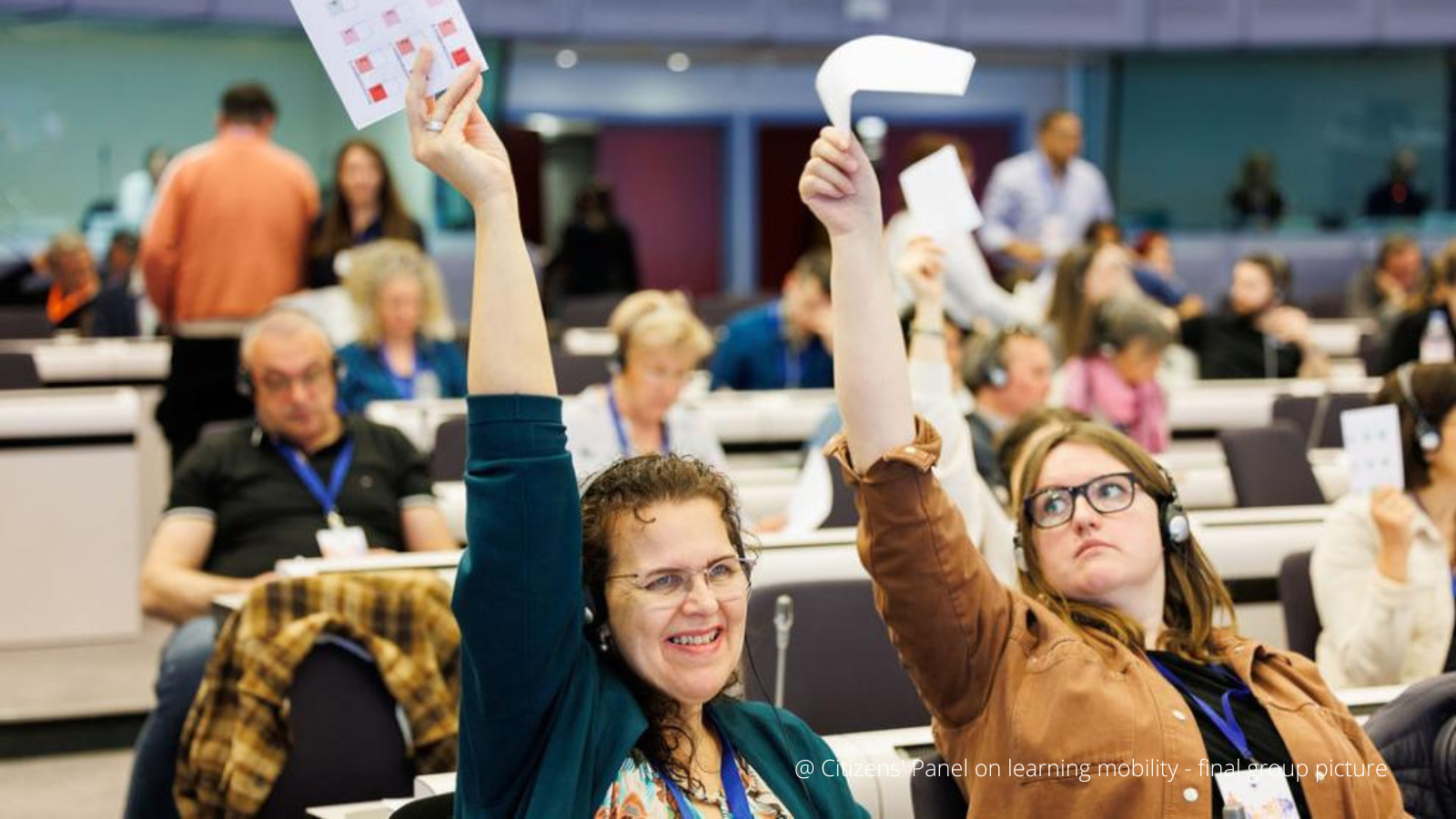
21 February 2024
Kicking-off the European Citizens’ Panel on Energy Efficiency
The European Panel on Energy Efficiency, spearheaded by the European Commission, stands as a pivotal moment in citizen engagement within the EU. •••
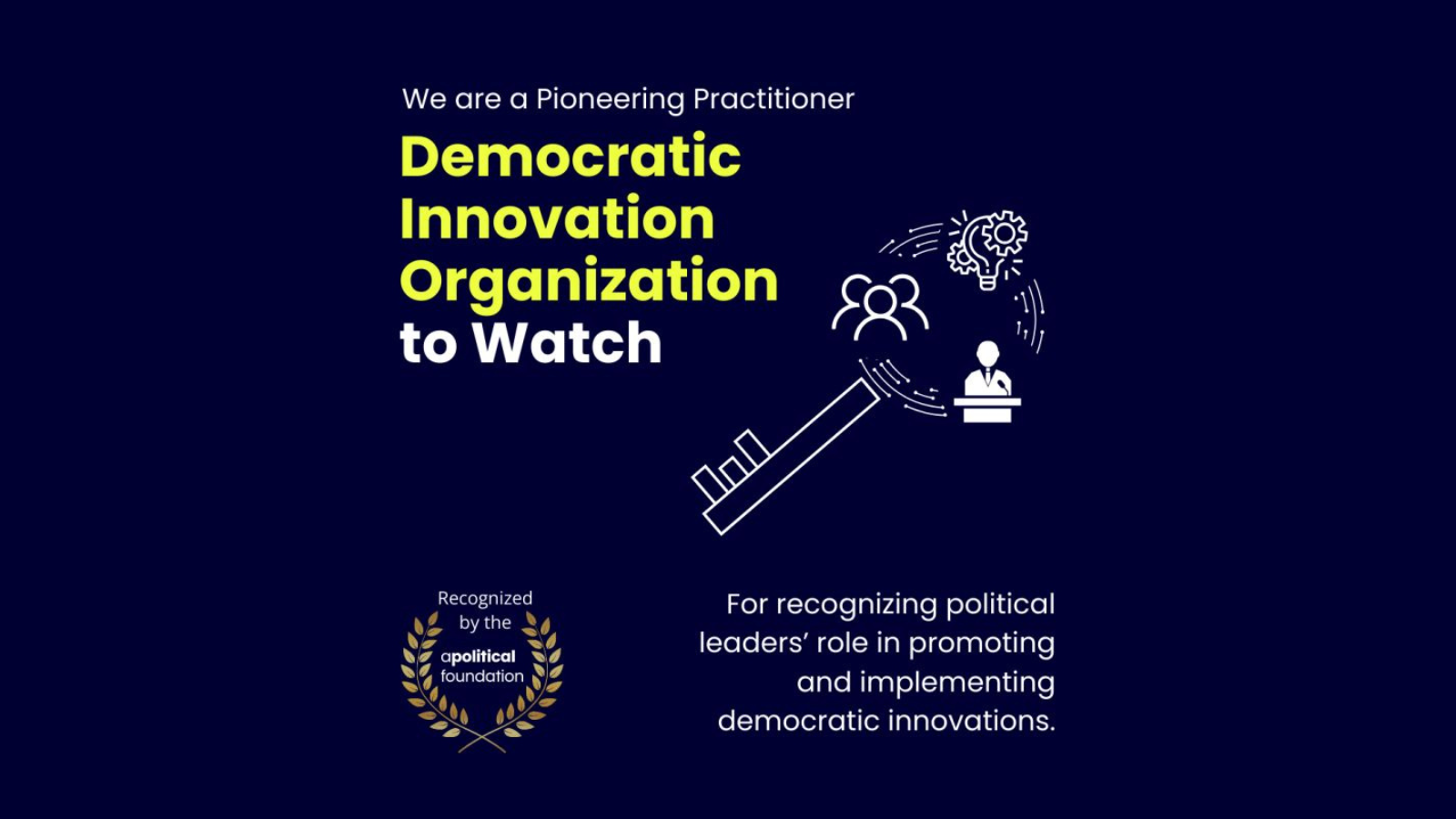
21 February 2024
Missions Publiques recognized “Pioneering practitioner” by Apolitical Foundation
At Missions Publiques, we are proud to have our efforts recognized by the Apolitical Foundation as pioneering in the field of “democratic innovations” for “supporting politicians to empower citizens and develop better policies for people and the planet”. •••
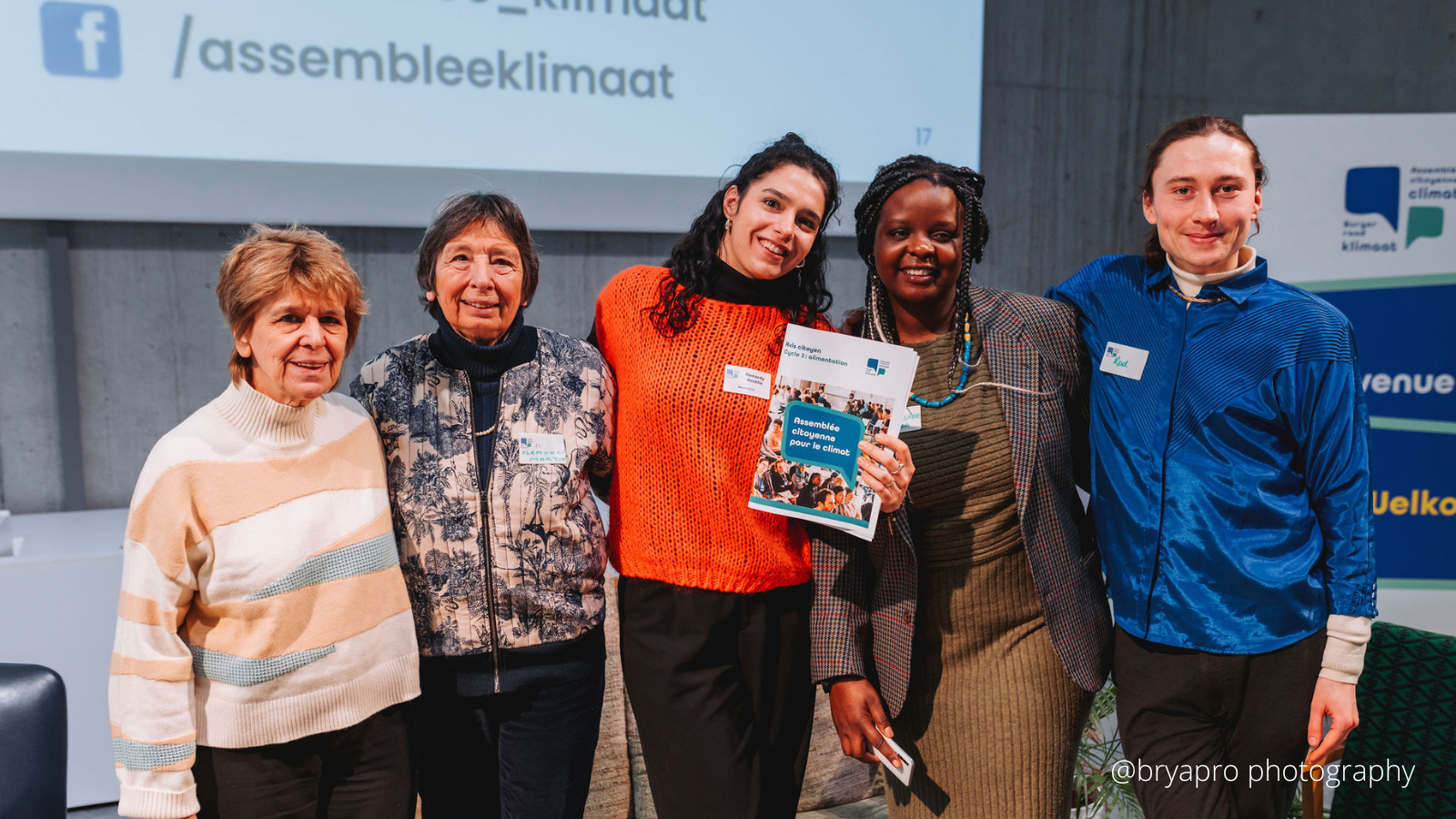
21 February 2024
Food Policy: Citizens submit their proposals to Brussels Government
On Tuesday, February 6th, participants of the second cycle of the Citizens’ Assembly for Climate officially presented their feedback to the Brussels Government. •••
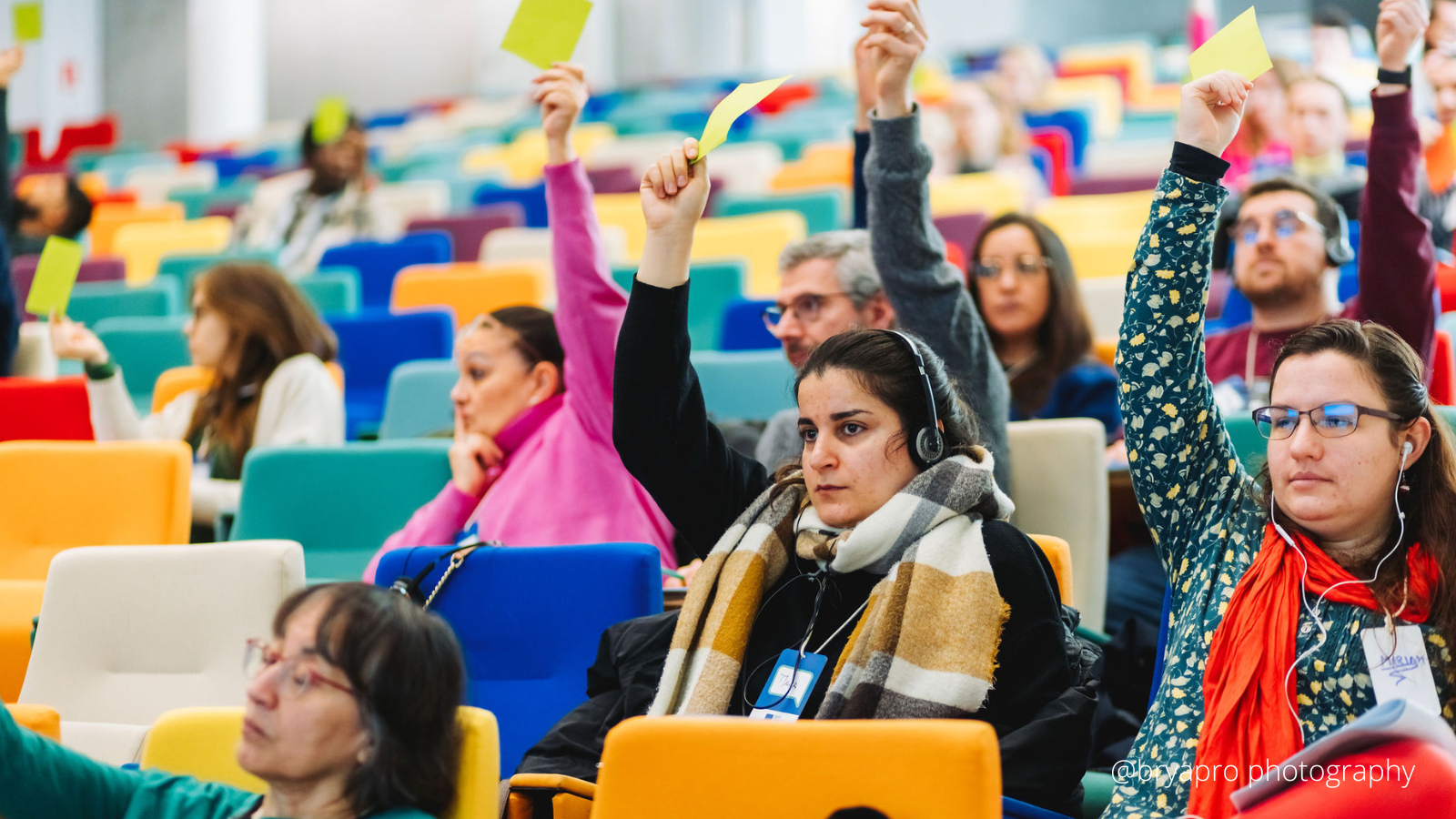
24 January 2024
Brussels Climate Assembly: what has been achieved after two cycles?
The second cycle of the Citizens' Assembly for Climate on food has just concluded. As with the first cycle on housing, the people of Brussels were supported in their reflections by an animation team. •••
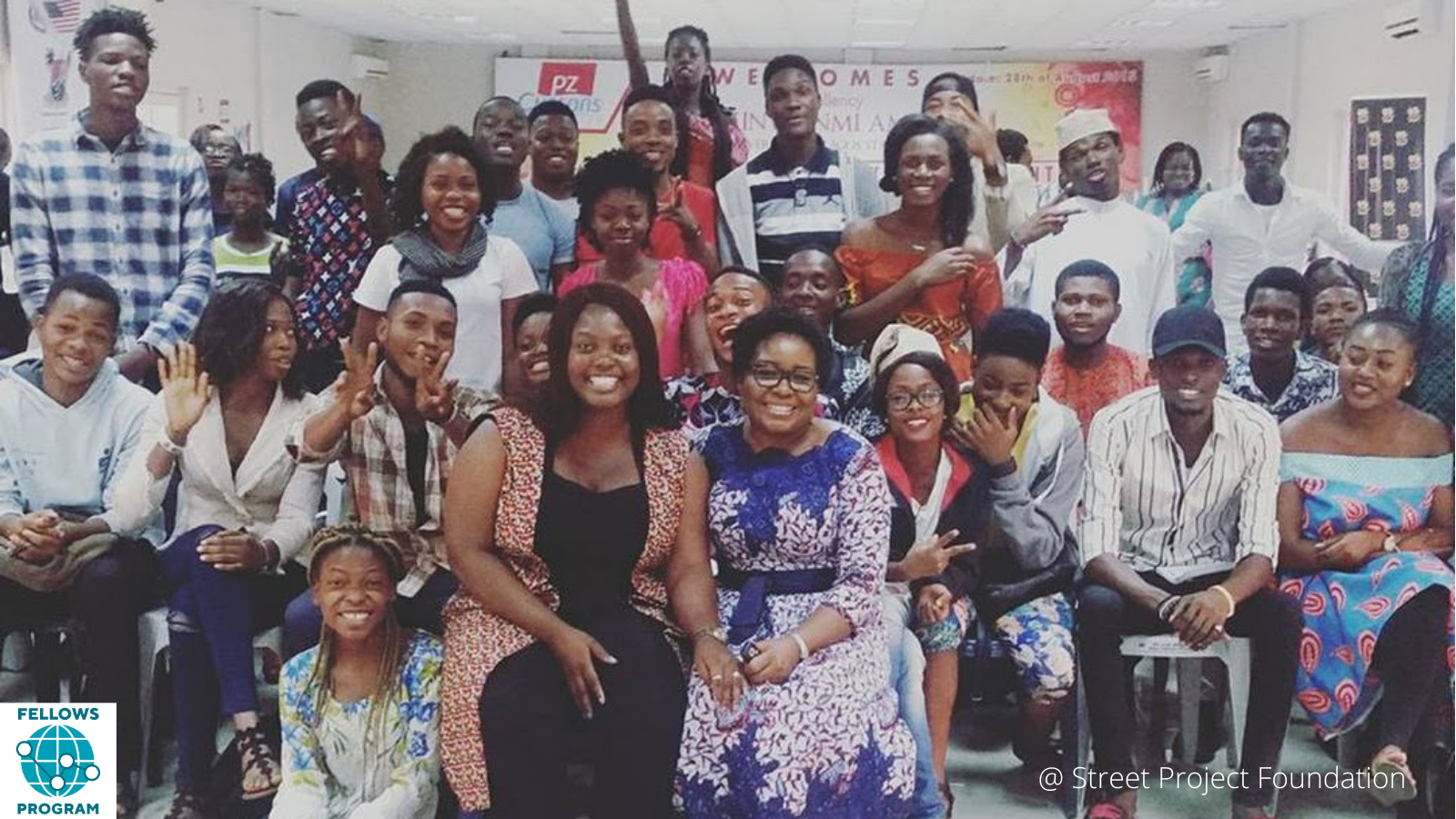
24 January 2024
Youth empowerment through art in Nigeria: Meet Rita and Ezenwa, drivers of the Street Project Foundation
Challenging the complexities of youth empowerment, Rita Ezenwa-Okoro and Ezenwa Okoro, the dynamic duo behind the Street Project Foundation in Nigeria, bring a unique blend of innovation to the field of citizen participation. •••
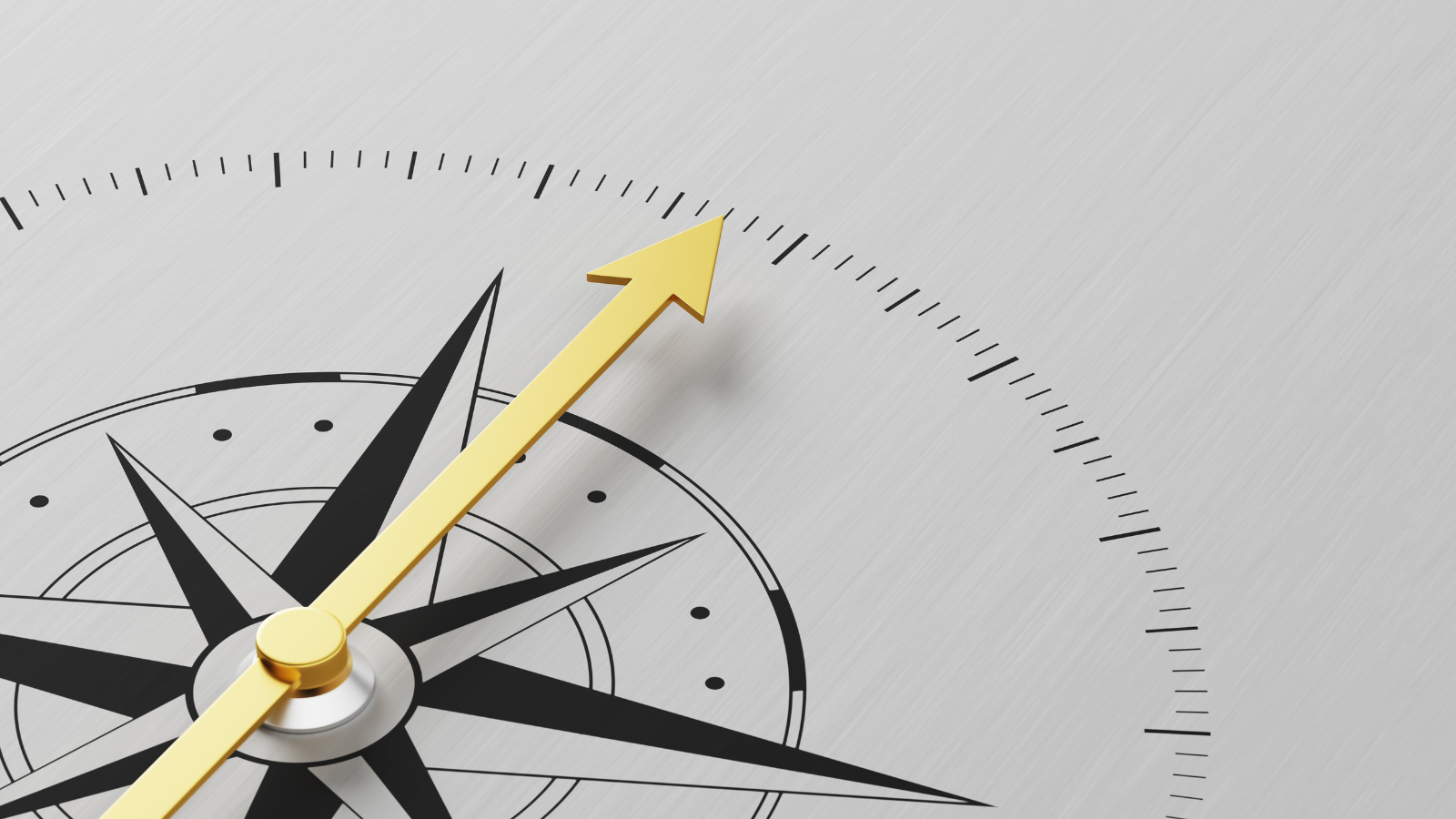
24 January 2024
What governance for the future?
Our governance models, developed in parallel with the industrial revolution and consumer society, are obsolete at all levels. •••
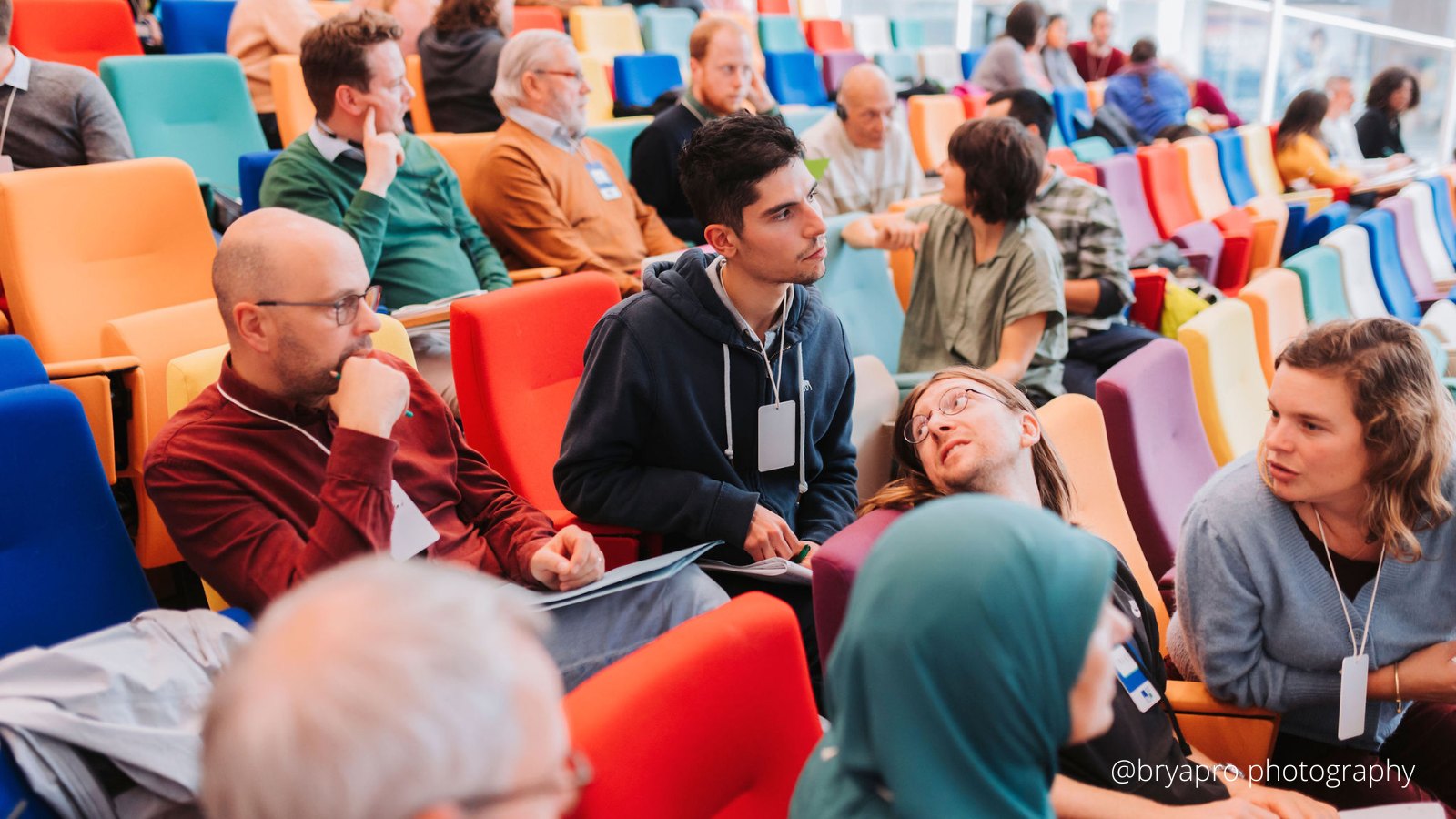
23 November 2023
Citizen Assembly for the Climate: the people behind the Belgian assembly
The Citizen Assembly for the Climate in Brussels started in October. In this second cycle, the inhabitants of the Belgian capital are focusing on the topic of food. Who are they? What is their relationship to the subject? •••
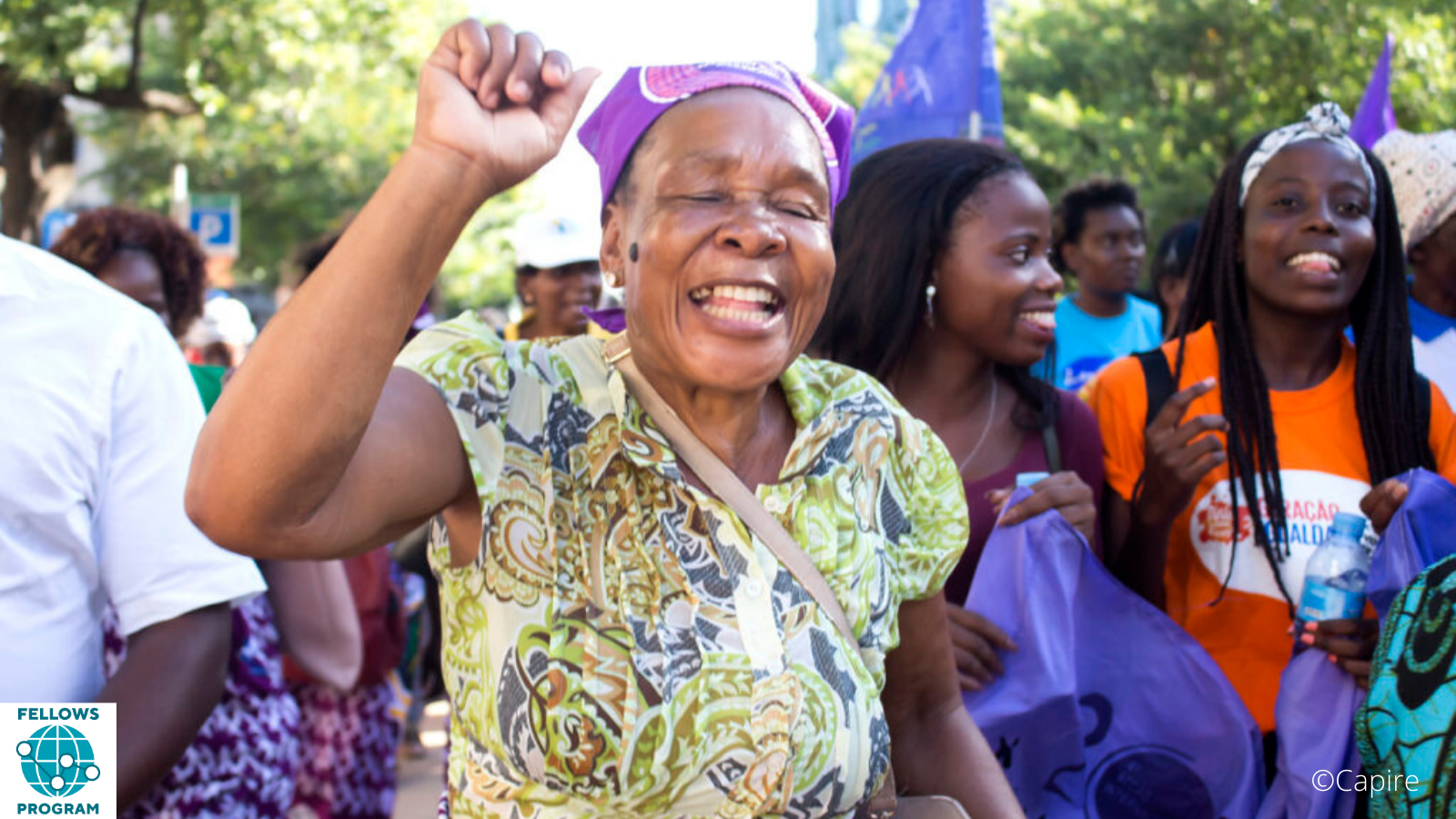
22 November 2023
Meet Claire Somerville, an anthropologist who addresses gendered and health inequalities
Claire Somerville is a distinguished anthropologist whose work is at the crossroads of global health, gender, power, inequalities and participation. •••
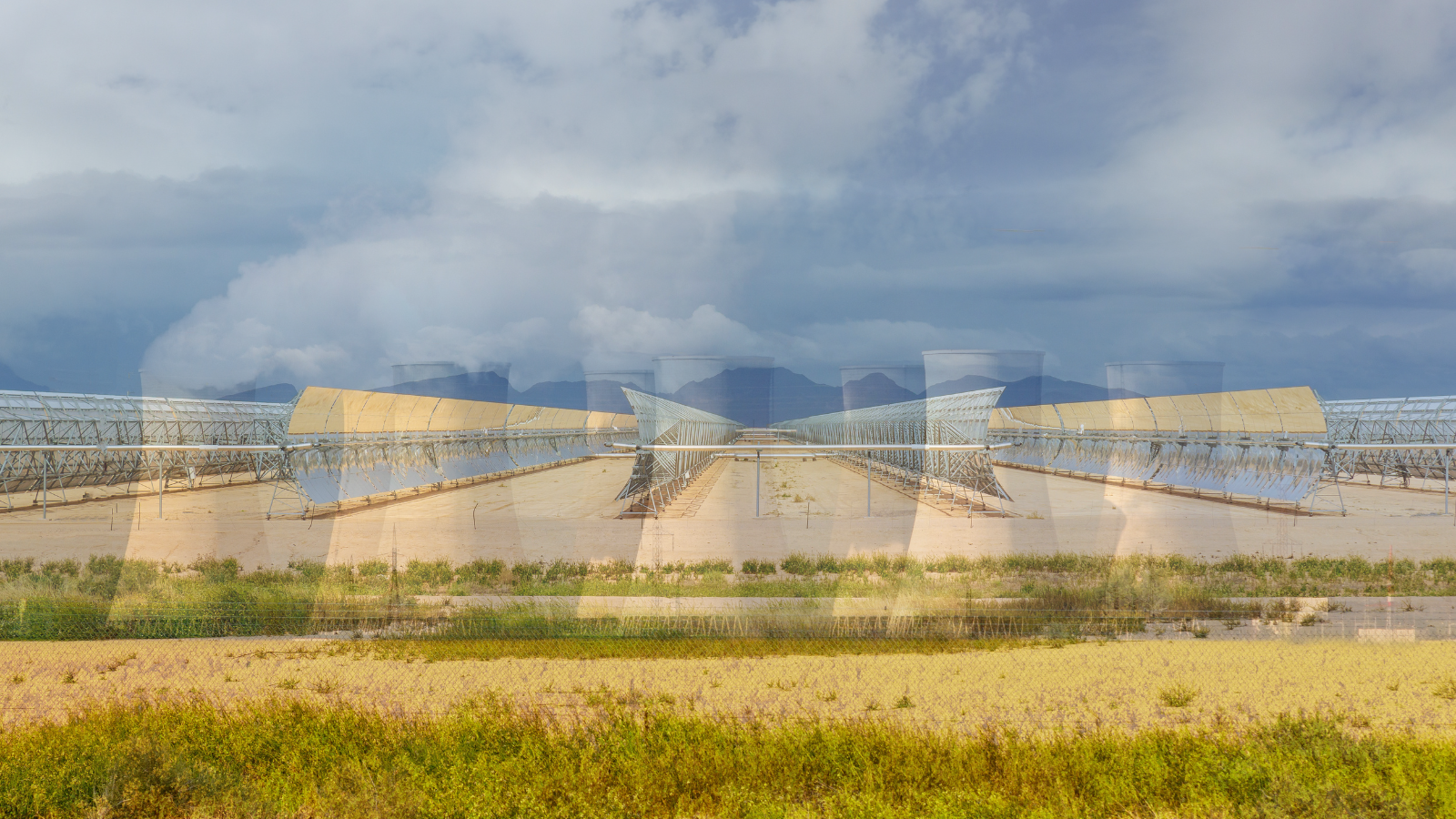
25 October 2023
“We combine the principles of deliberative democracy with a process known as technology assessment”
Mahmud Farooque, a researcher and associate director of the Consortium for Science, Policy & Outcomes (CSPO) at Arizona State University, is a long-standing partner of Missions Publiques. He is dedicated to making participatory technology assessment a valuable tool for public decision-making. •••
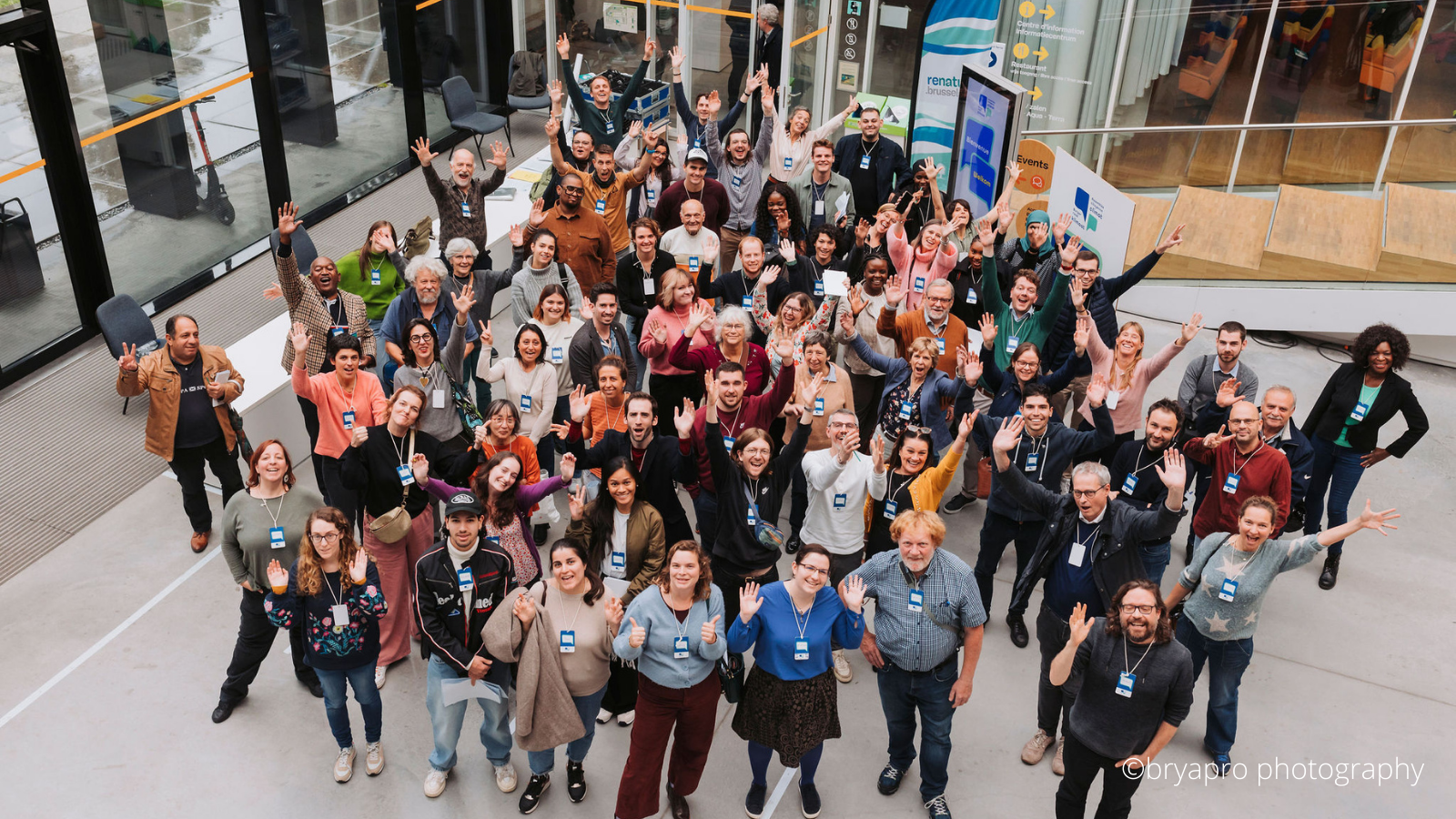
25 October 2023
Launching the Brussels Climate Assembly: let’s talk about food!
On the weekend of October 21st, 75 randomly selected residents answered the call to action initiated by the Brussels Government. This second edition of the Citizen Assembly for Climate focuses on the theme of food, building on the success of the inaugural assembly, which tackled housing. •••
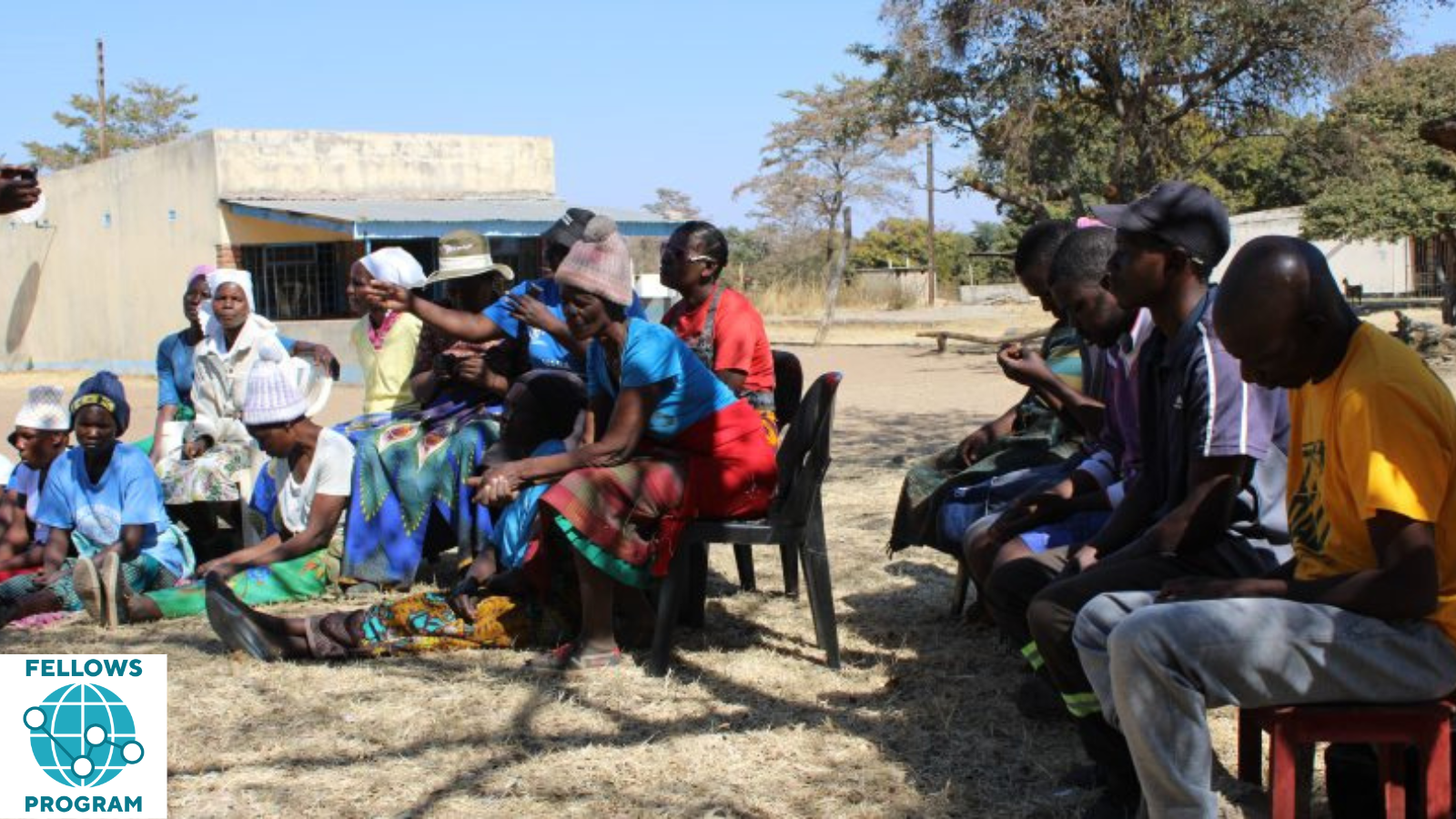
25 October 2023
Meet Jasper Maposa: “I’ve witnessed a growing interest among young people to engage in politics responsibly
In the heart of Zimbabwe, Jasper Maposa symbolizes hope and resilience, rising above the country's difficult political past. As a figure of press freedom in the country, Jasper is Deputy Chairperson of the Zimbabwe Media Commission, and also stands as an advocate for peaceful youth involvement in politics. •••
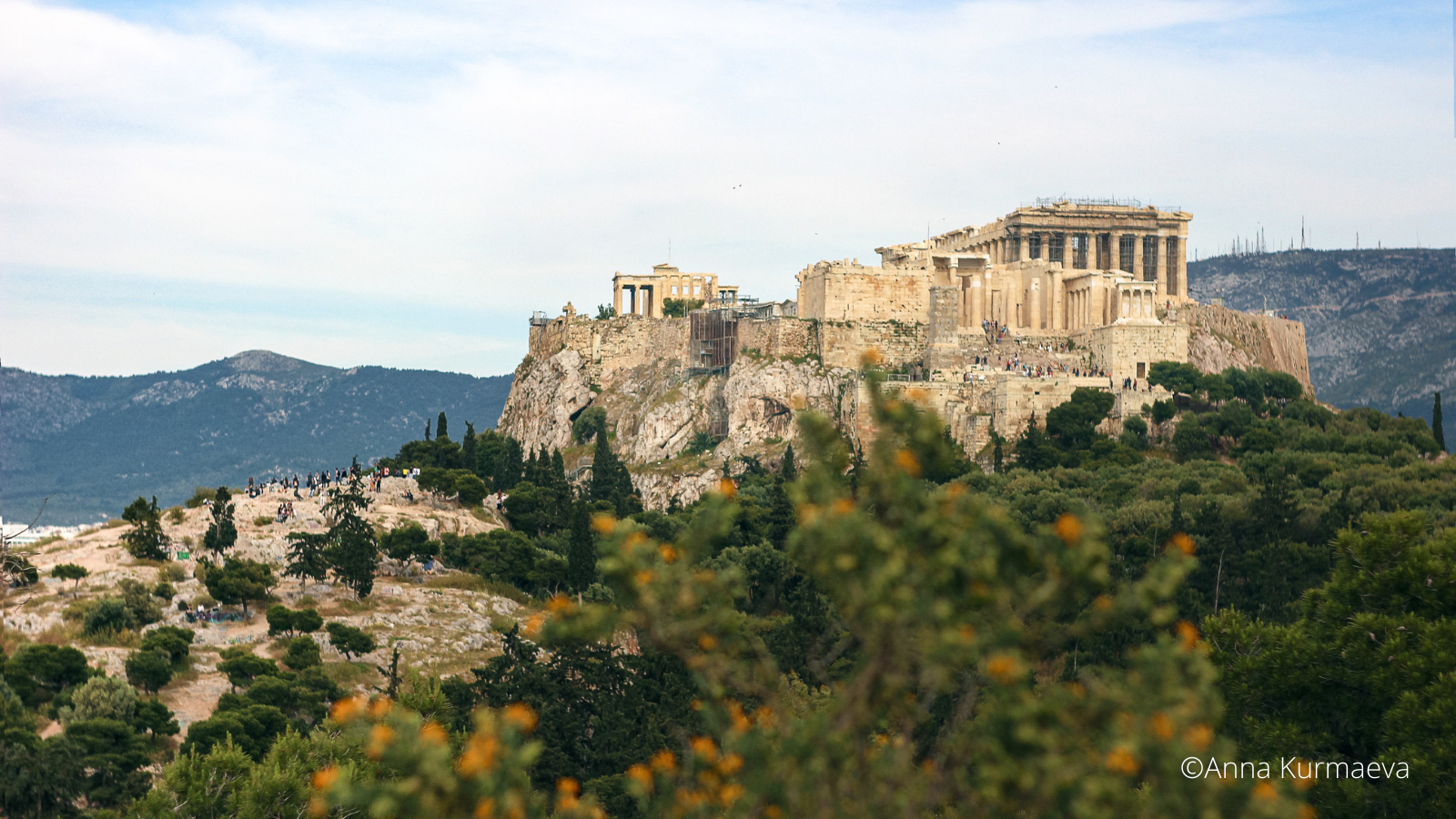
25 September 2023
What if a Citizens' Assembly became a fully-fledged body in the European political process?
Kalypso Nicolaidis is the Chair in Global Affairs at the School of Transnational Governance (EUI) and one of the co-leaders of the Democratic Odyssey project. Its aim? to create a permanent European citizens' assembly. It was launched on September 26th on the iconic Pnyx of Athens! •••
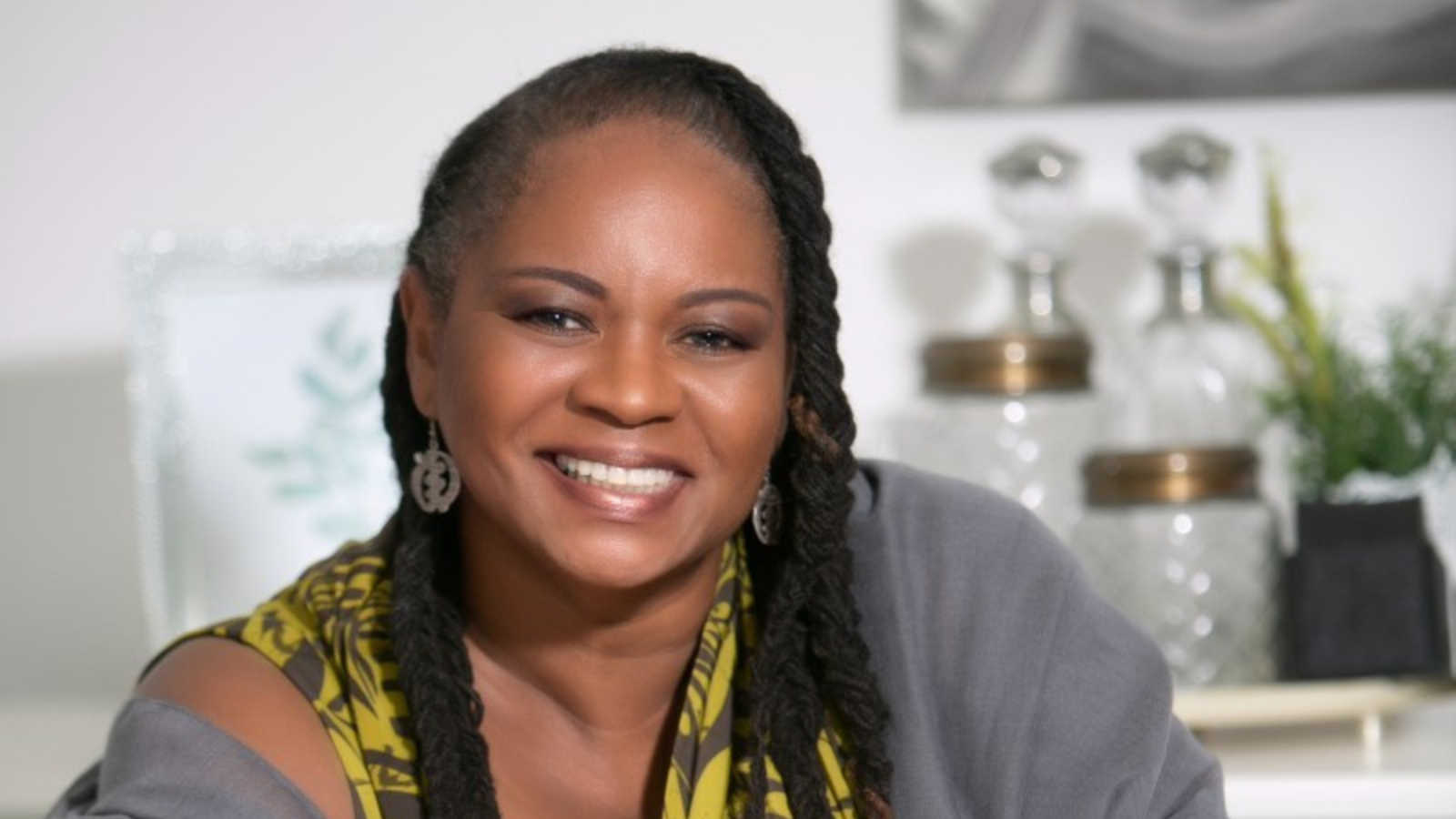
25 September 2023
“Let's tap into overlooked or underestimated knowledge from the Global majority”
Rosemary Campbell-Stephens is an international speaker, author, and leadership consultant who divides her time between the Caribbean and England. In her book "Educational Leadership and the Global Majority: Decolonising Narratives," she examines the concept of •••
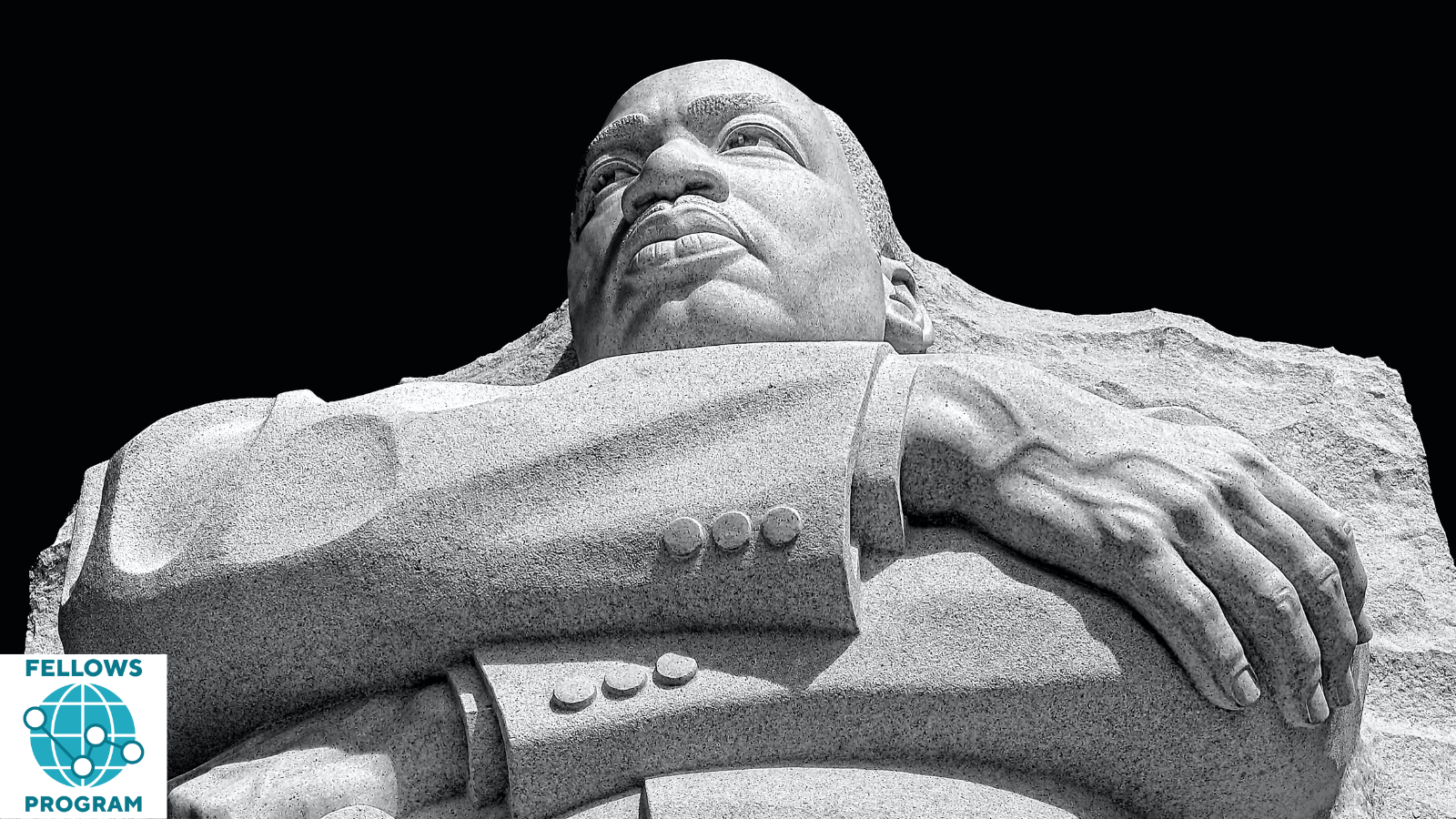
30 May 2023
Meet Carolina Earle: an interview on untold Histories and the power of monuments
How can we live in the city and face the climate challenges of 2050? This was the subject of the first Citizens' Climate Assembly of the Brussels Region, which was held from February to the end of April. •••
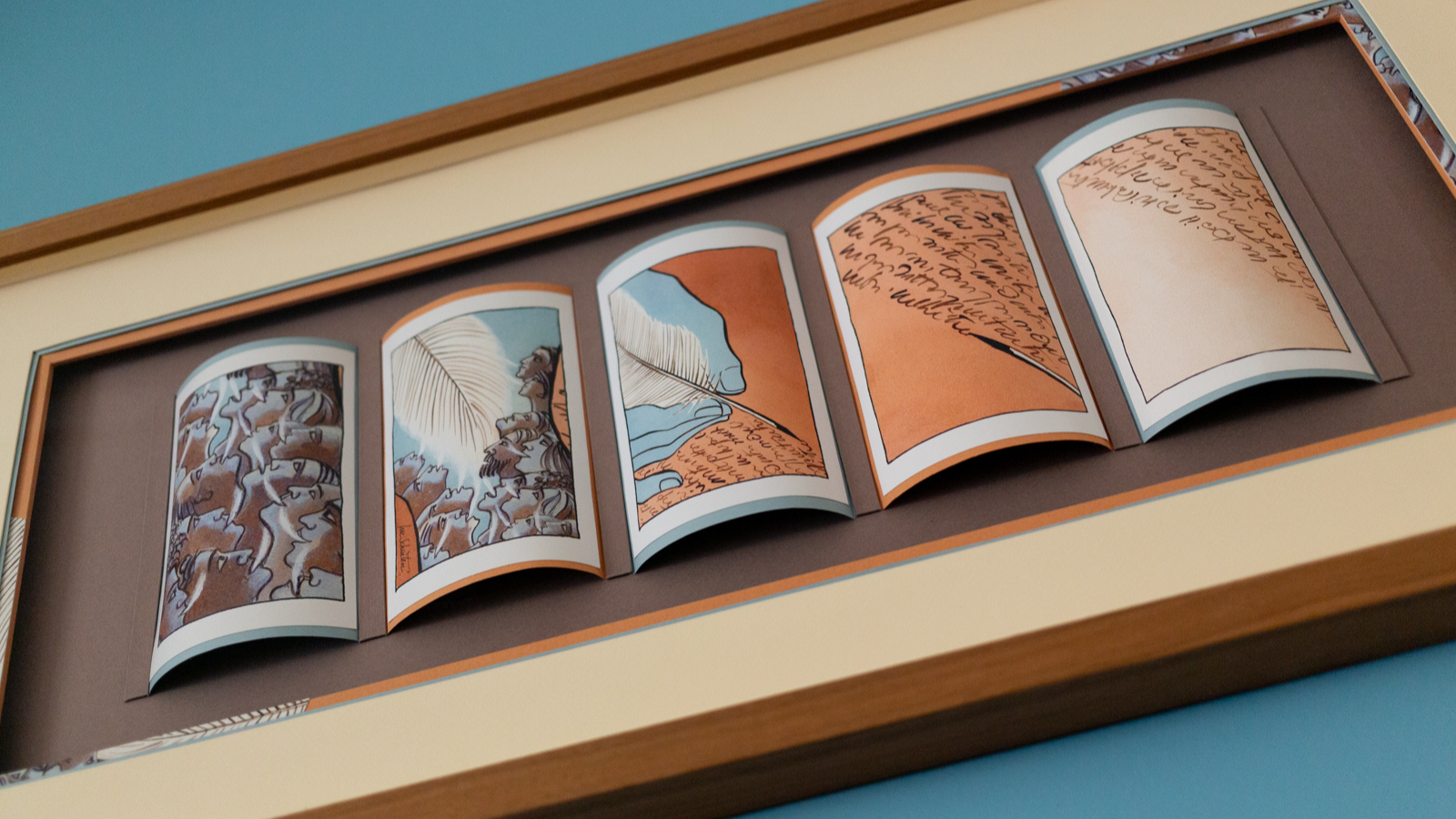
29 May 2023
Calling out for long-term thinking and integrating the 7th generation
The political choices we make today have consequences for future generations. Not just 30 years from now, but even 200 or 500 years from now. How can we ensure that our decisions consider and anticipate long-term effects? •••
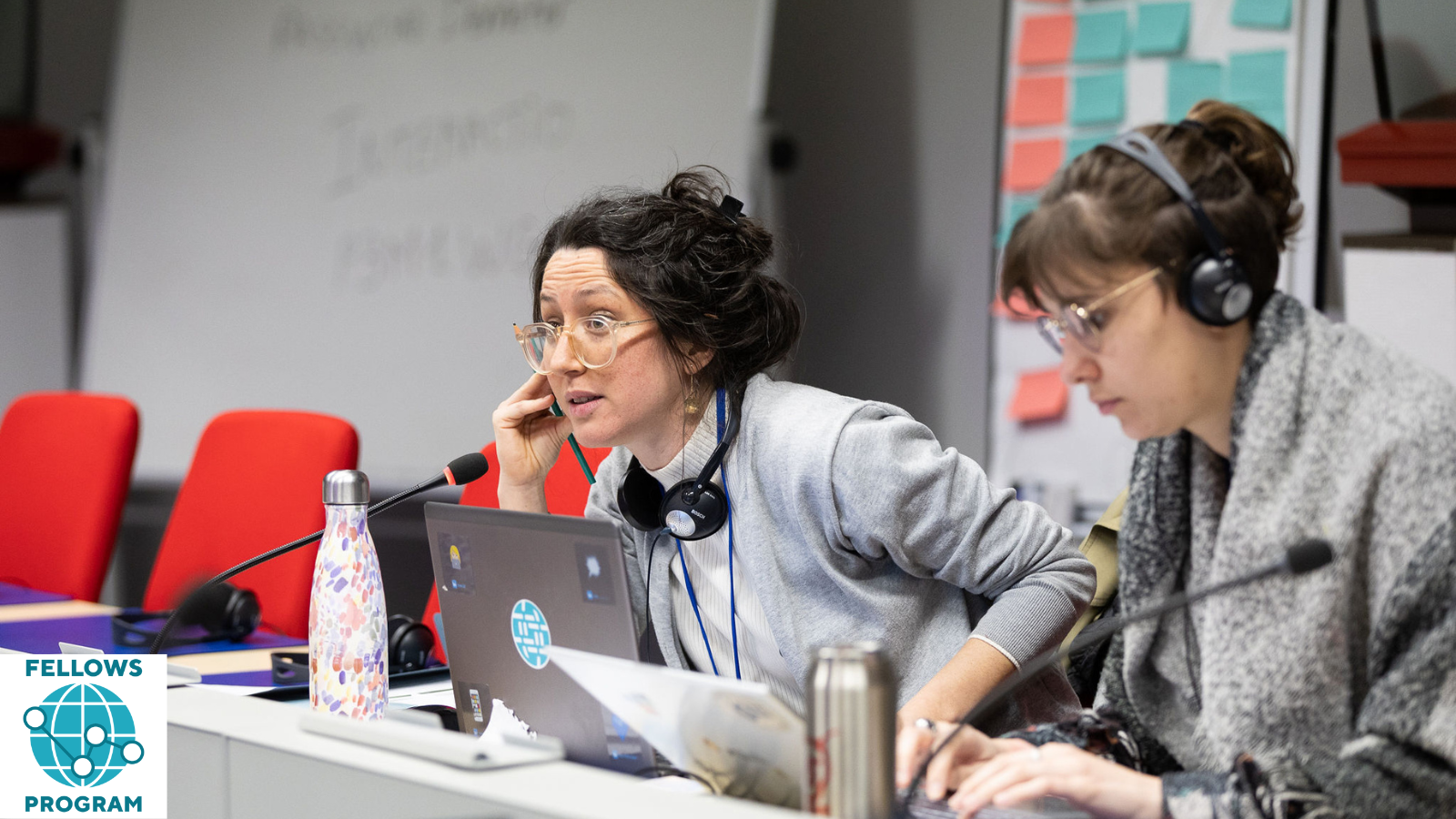
29 May 2023
"Transforming conflicts involves challenging and dismantling oppressive structures, systems, and behaviors"
In a multi-stakeholder dialogue or participatory process, conflicts are disruptive. But when they are dealt with effectively, they also offer opportunities. That's essentially what Pablo Lumerman shares with us about his job as a conflict facilitator and mediator between communities, companies and governments in Latin •••
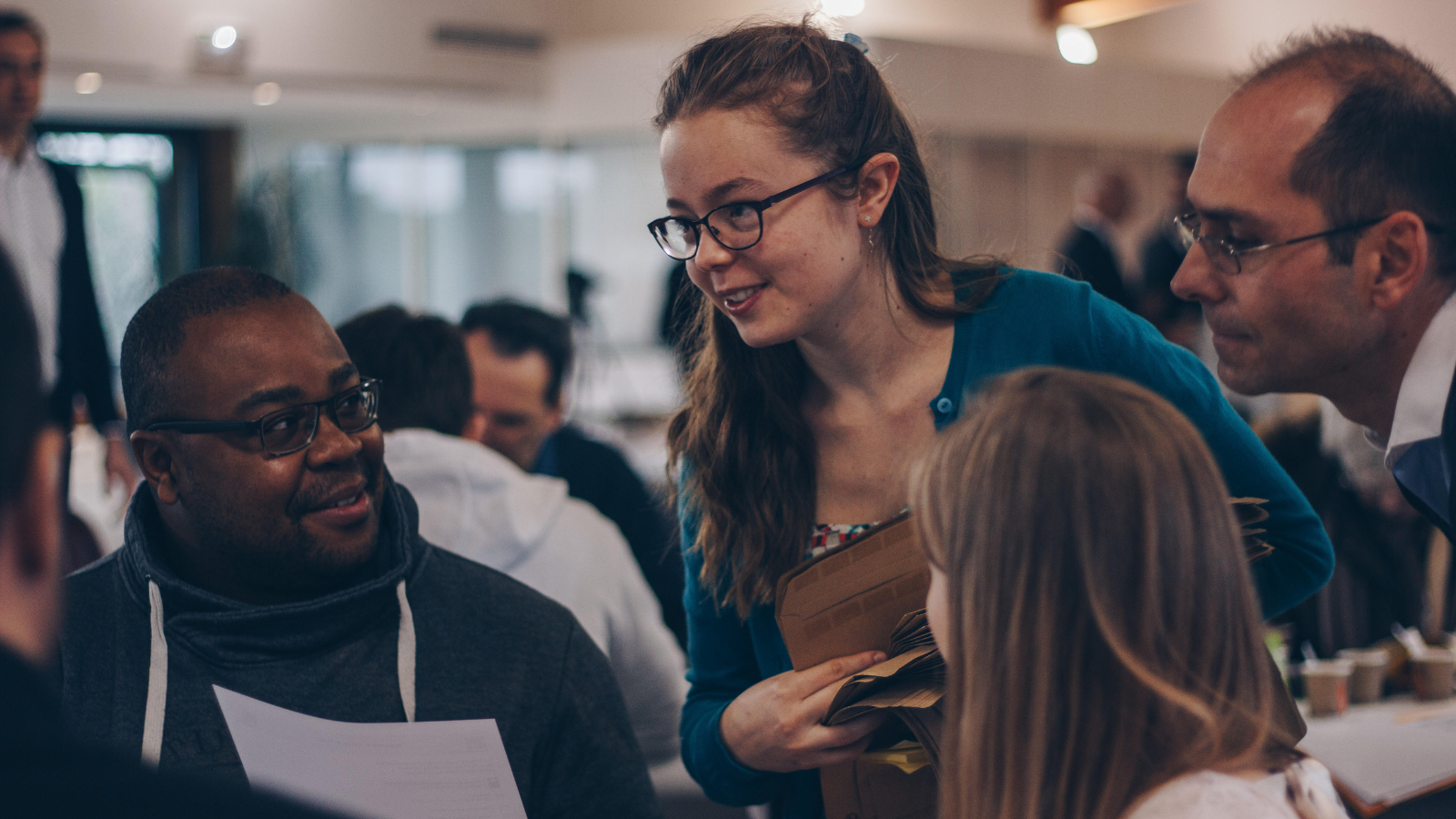
19 April 2023
"Seeking a job with a higher purpose is also a democratic aspiration"
Refusing bullshit jobs, working remotely, rethinking careers in the light of the ecological crisis...employees today want meaningful work, says Thomas Coutrot. •••
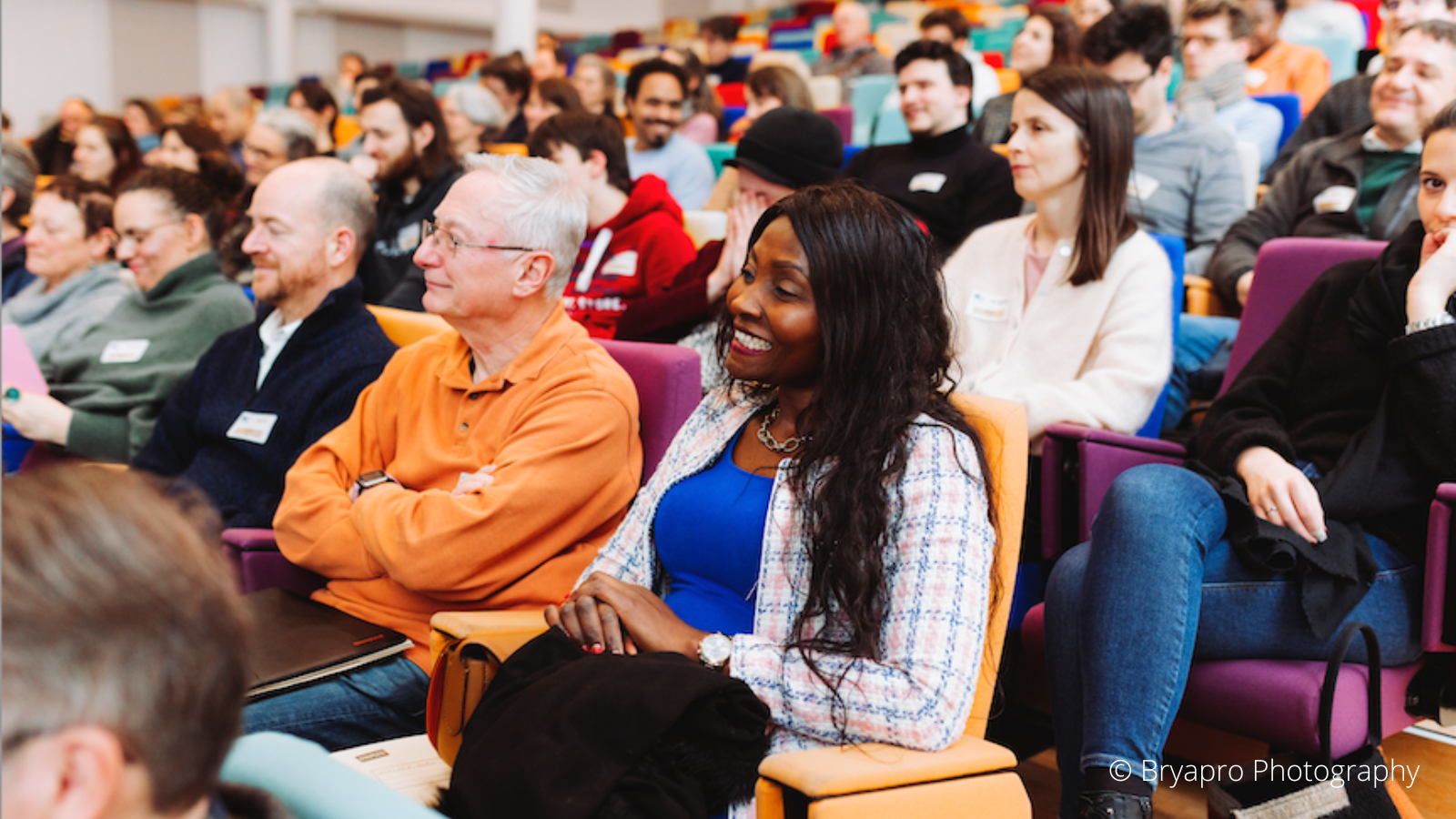
19 April 2023
The faces and stories behind the Brussels Climate Citizens’ Assembly
How can we live in the city and face the climate challenges of 2050? This was the subject of the first Citizens' Climate Assembly of the Brussels Region, which was held from February to the end of April. •••
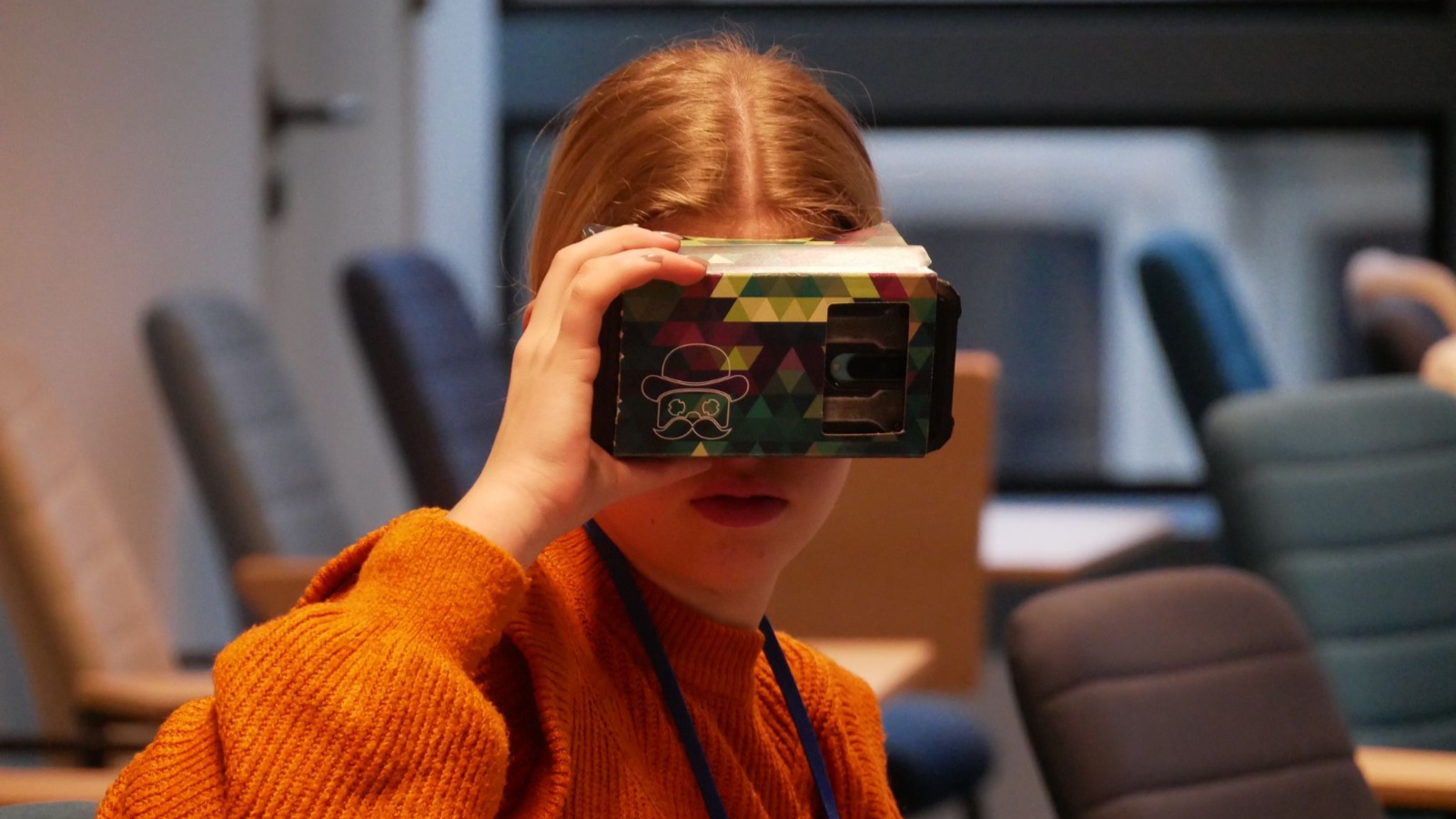
22 March 2023
“We can mirror our society in the virtual world and tackle problems we’re facing in the physical one”
Irina Karagyaur co-founded BQ9, a crypto-fintech advisory firm on a mission to “turn great ideas into great Web3 products”. She is Polkadot ambassador and Head of Metaverse Growth at Unique network among other positions. She is convinced that the Metaverse is a technology to empower and tells us why. •••
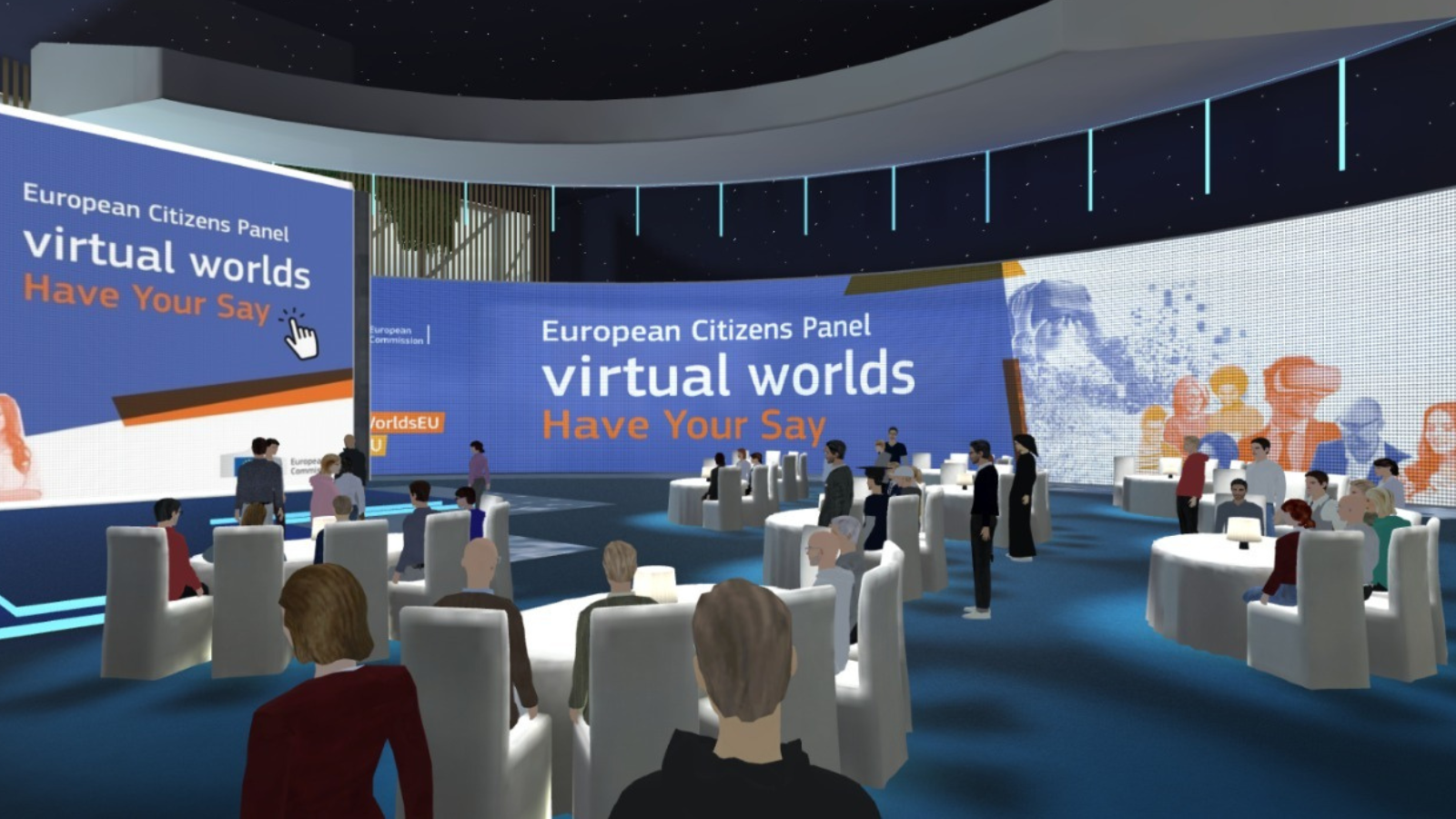
22 March 2023
Here’s what happened when 150 citizens deliberated on and in the Metaverse
During the second session of the European Citizens’ Panel on Virtual Worlds, 150 citizens from 24 European member States were invited by the European Commission to discuss what visions, principles and actions should guide the development of virtual worlds. •••

13 March 2023
The Metaverse, an artificial paradise?
In his third novel, Les liens artificiels, French writer and philosopher Nathan Devers unveils a critical vision of virtual worlds. From the crisis of reality to the disappearance of a common world in favor of a world "where everyone is in their own bubble," he delivers a narrative dictated by the giants of Silicon Valley, who, according to him, are replacing the search for truth with a religion for technology. •••
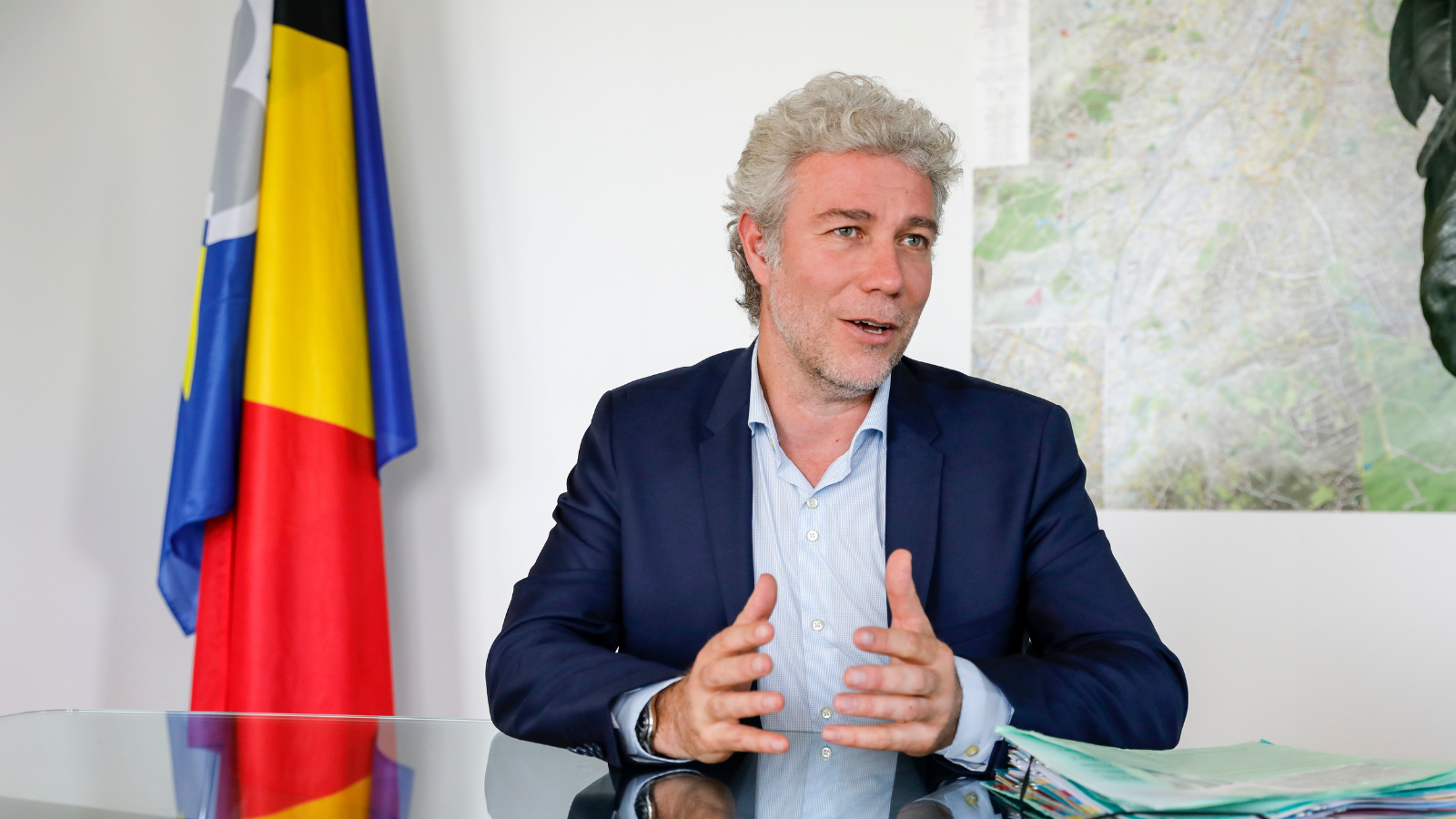
14 February 2023
Brussels inaugurates its first Citizens' Climate Assembly
Brussels is launching an ambitious Citizens' Climate Assembly. The 100 people chosen by lot who make up the Assembly will be renewed every year. •••
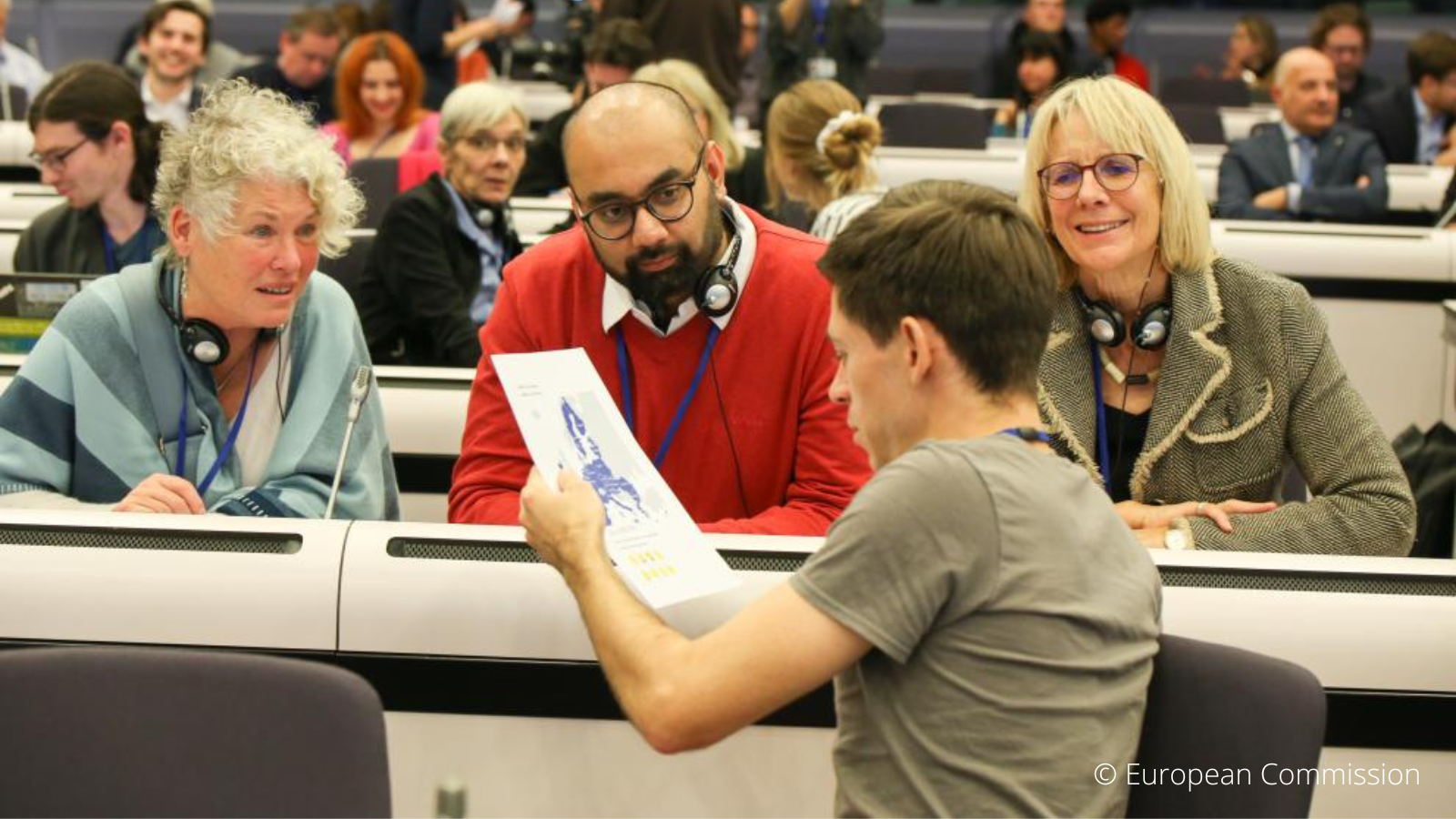
13 February 2023
“There is currently no holistic vision tackling food waste across Europe”
As a Waste Policy Officer at Zero Waste Europe, Theresa Mörsen acts within the EU institutional bubble, pushing for more ambitious legislation on waste management, food waste, or waste shipments. She also supports the Cities & Communities programme by making the link with European legislation and by identifying good practices to be disseminated across Europe. •••
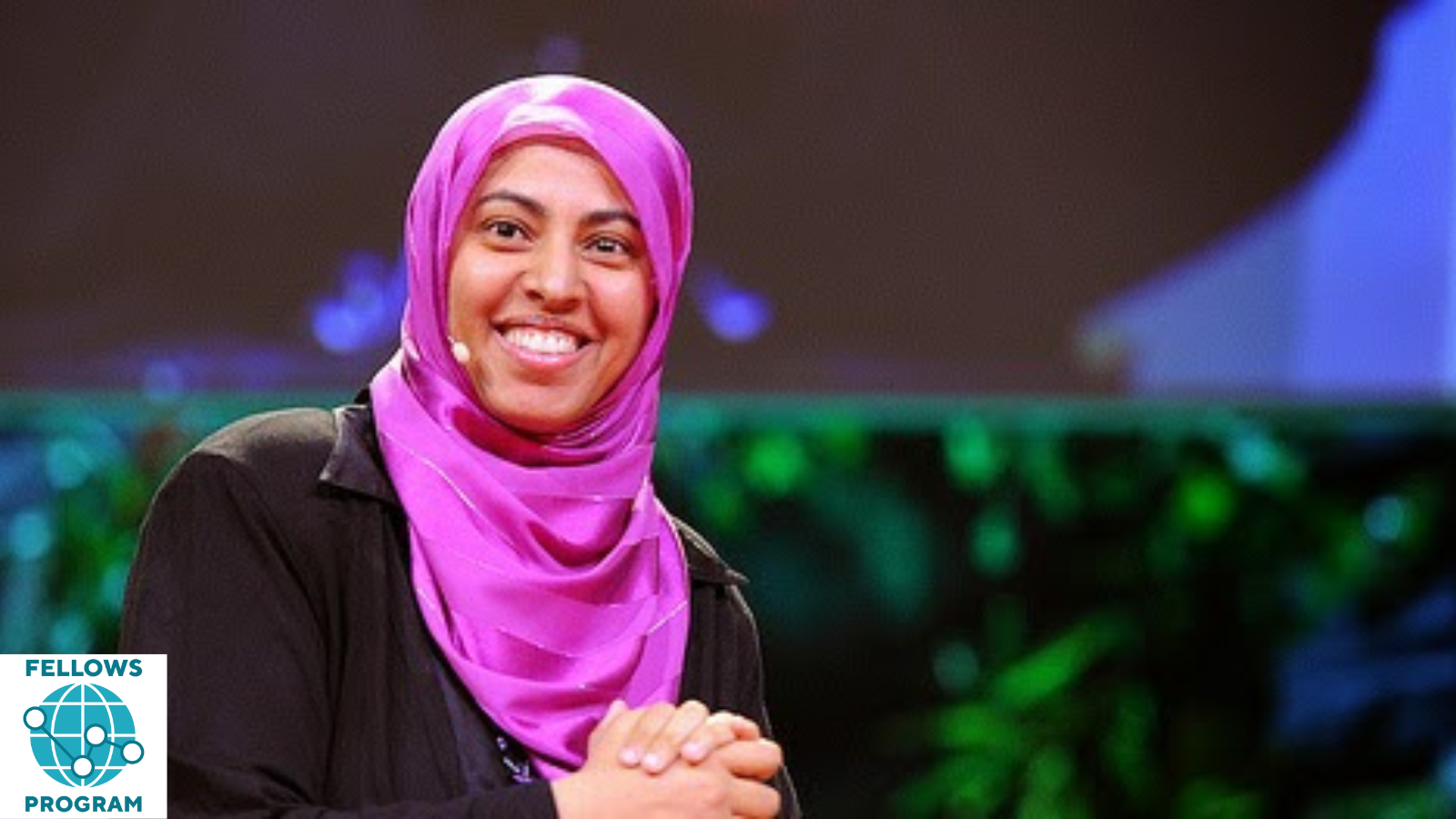
13 February 2023
Meet Nadia Al-Sakkaf, advocate for freedoms in Yemen
The raging conflict in Yemen is particularly violent for women and girls. Since the Houthi rebels came to power 8 years ago, women’s freedoms and rights have been constantly violated. Sentenced to death in absentia by this ultra conservative power, Dr. Nadia Al-Sakkaf, journalist and former Minister of Information had to flee her country. Today she lives in England, where she continues her work as a renowned journalist, an activist, a researcher and an expert in media, digital safety, climate change and gender. •••
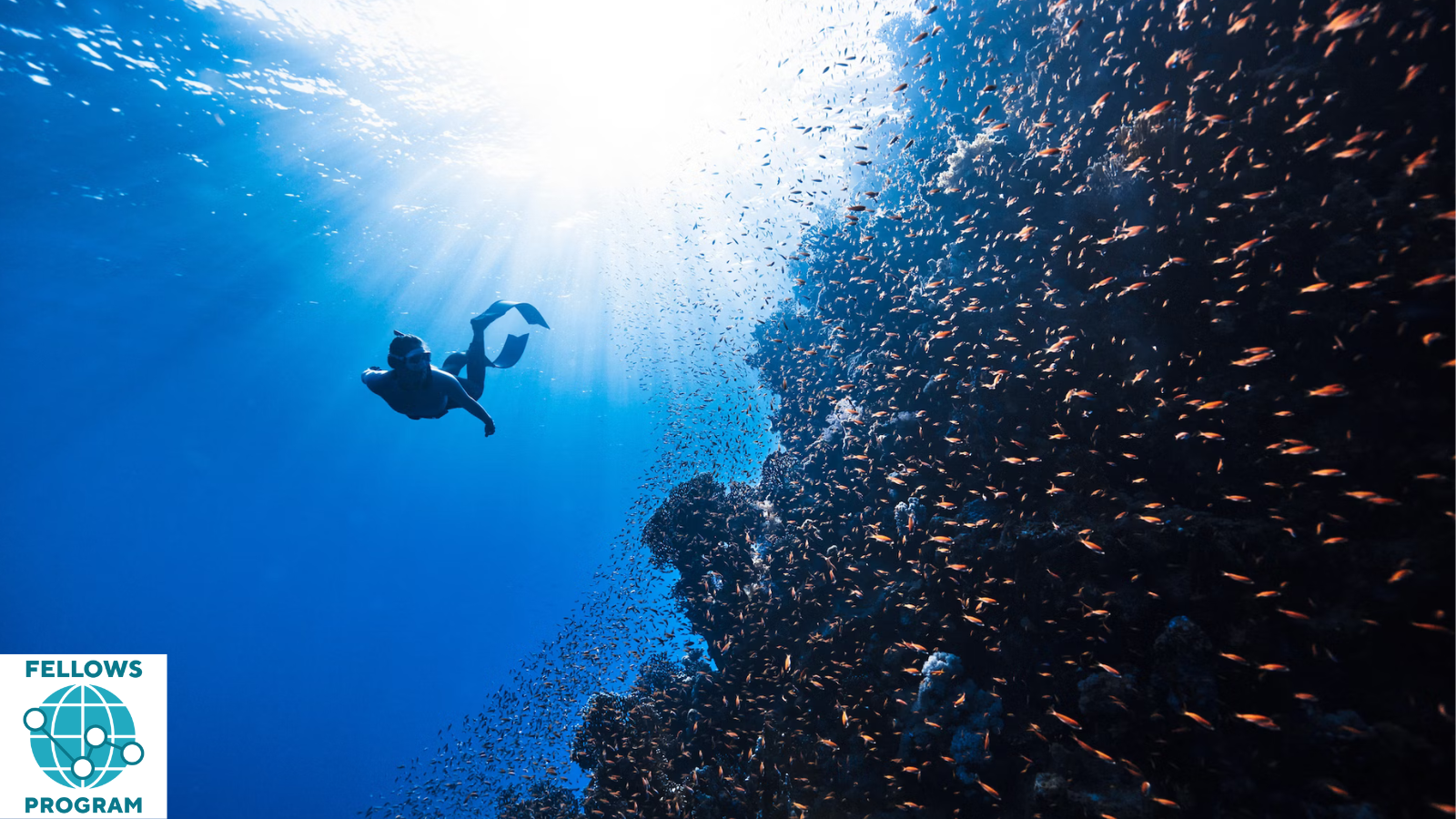
16 January 2023
Why all citizens must speak up to help protect the ocean
It's time to bring everyday citizens to the negotiating table so that decision-makers have access to real experiences and deep knowledge on the ground from those who are most impacted by the ocean. •••
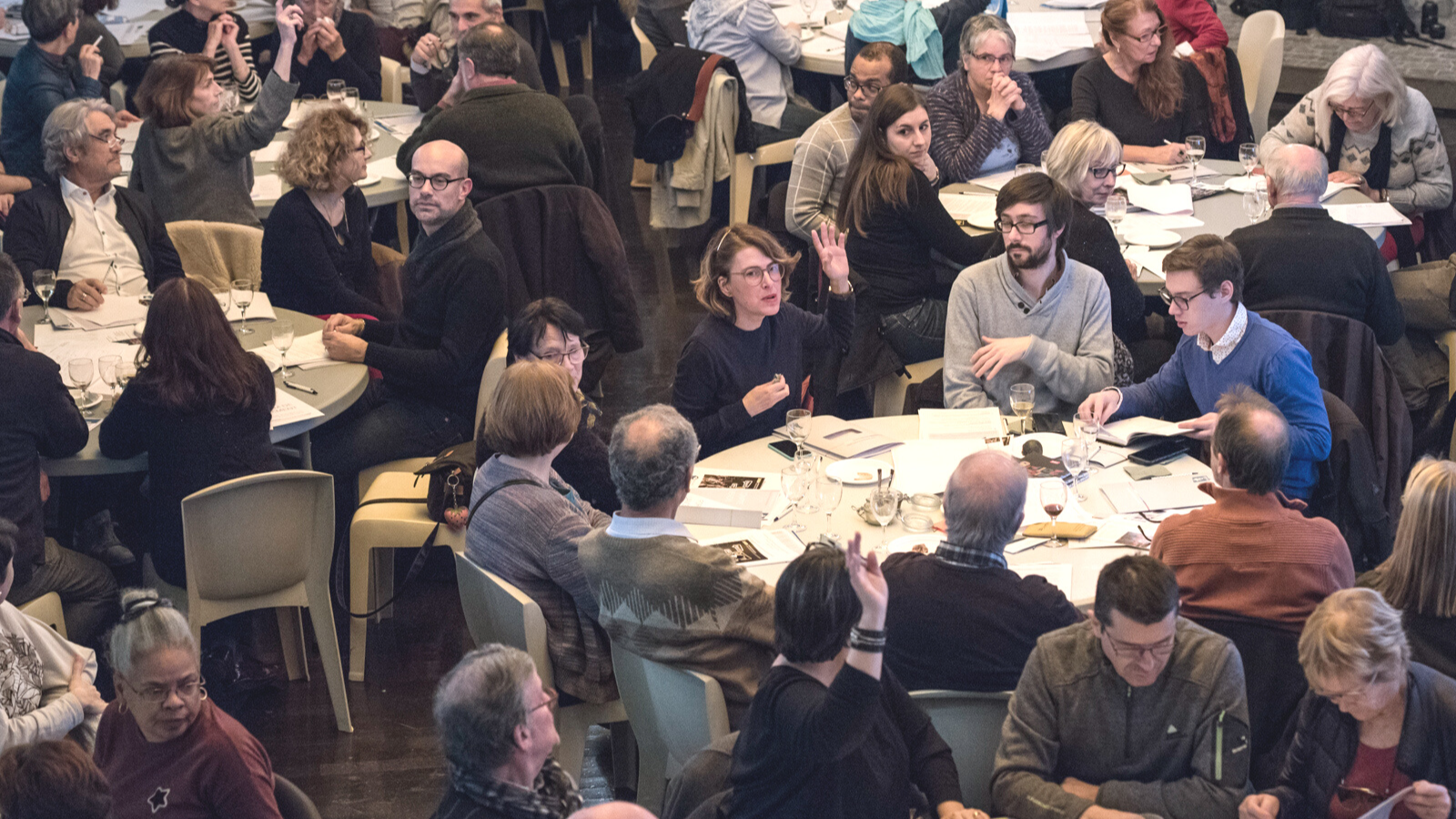
14 December 2022
"A legal status for randomly-selected citizens will help bypass personal or professional obligations"
The increase and complexity of citizen participation processes in France and abroad raises the question of a legalized official status. Judith Ferrando and Antoine Vergne, Co-Directors of Missions Publiques, wrote this paper for the latest edition of DicoPart, the French critical and interdisciplinary dictionary of participation, democracy and citizenship •••
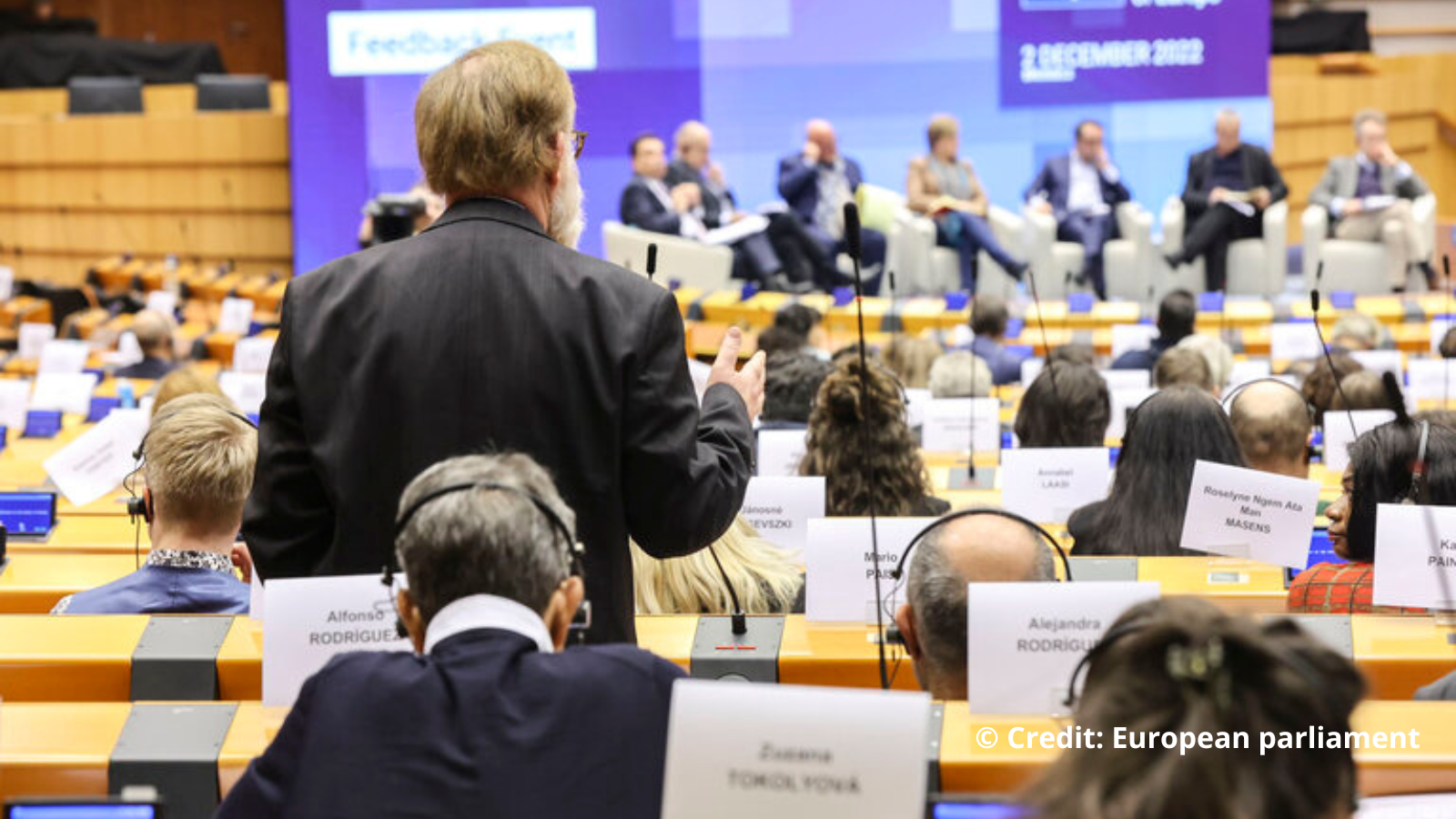
14 December 2022
Conference on the Future of Europe: 5 take-aways from the follow-up event
At the end of the Conference on the Future of Europe last May, the three European institutions had promised to follow-up on the 49 proposals, including 325 concrete measures put forward by citizens to shape their desired Europe •••
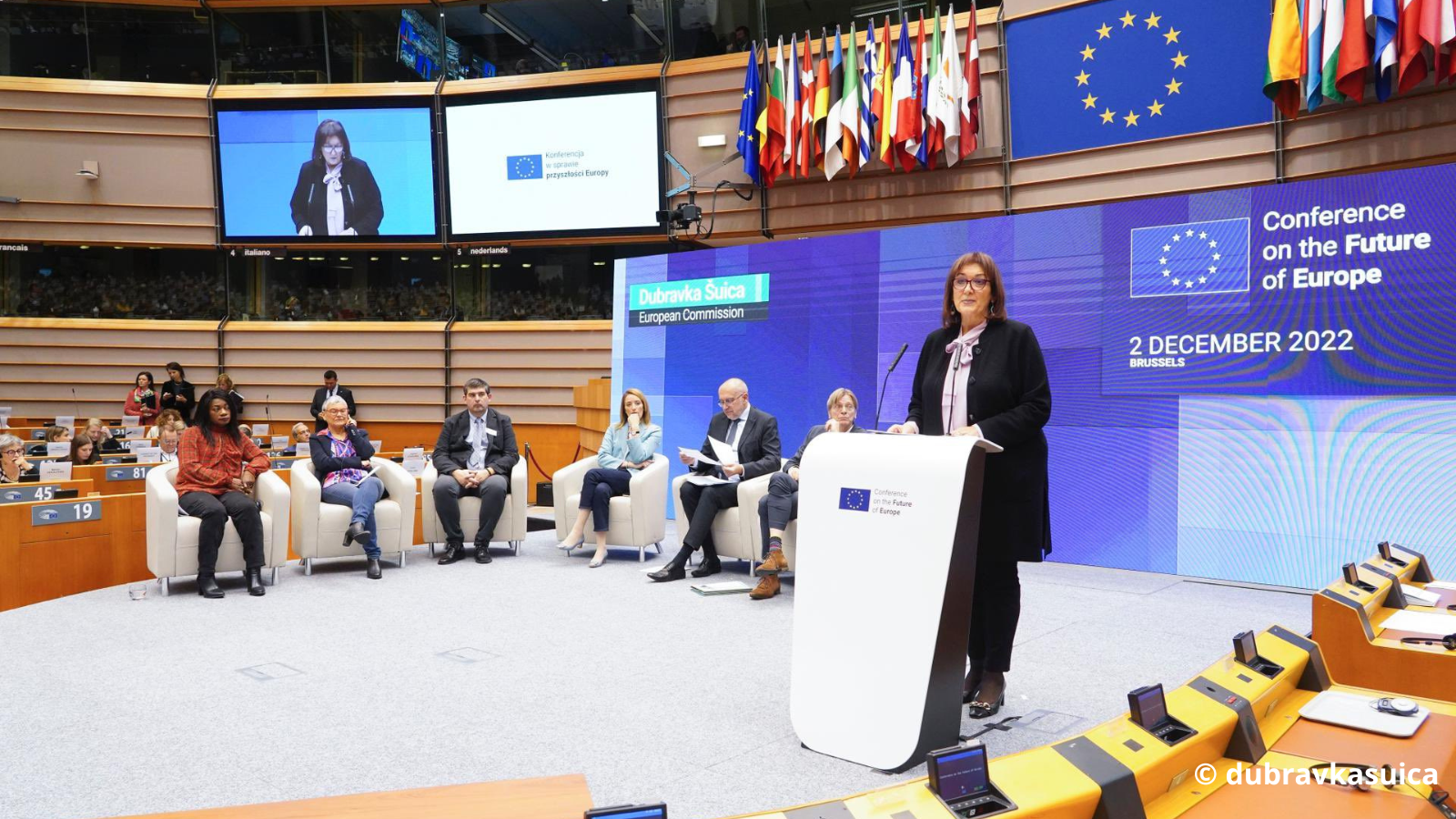
2 December 2022
"We have made deliberative democracy an integral part of our decision-making process"
Vice-President Dubravka Šuica, Co-Chair of the Conference on the Future of Europe and Commissioner for Democracy and Demography, leading the Commission's work on deliberative democracy, explains how the Commission has taken action since. •••

16 November 2022
Conference on the future of Europe: young people want action
Caterina, Nicolas, Kacper and Matous... four young people who have in common that they all experienced the Conference on the Future of Europe (CoFoE). We met them in during the Festival of Participation and Deliberative Democracy organized by the European Commission. •••
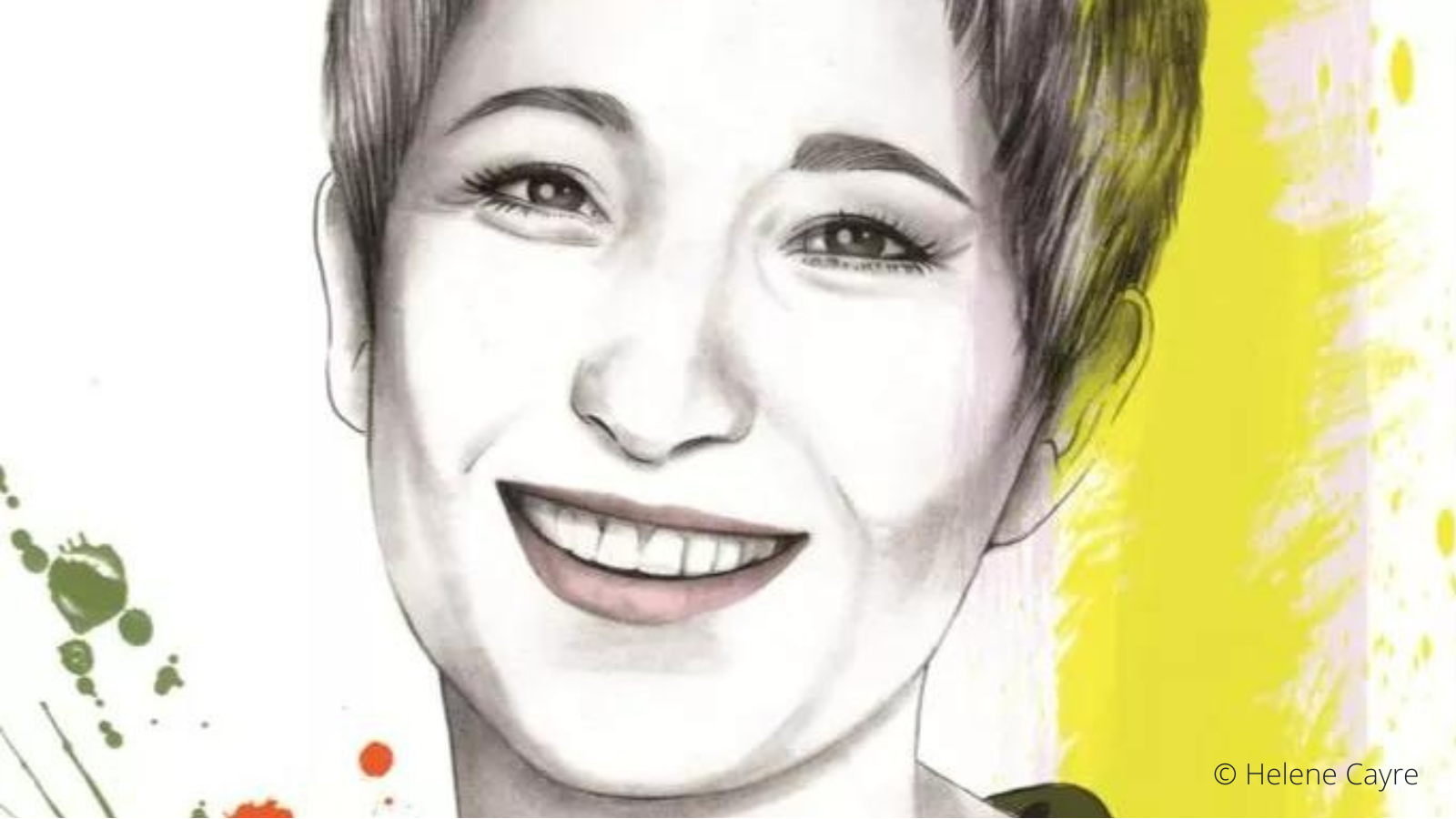
16 November 2022
"Replacing the abundance of goods with the abundance of connections"
Environmental storytelling is one thing. A concrete ecological future is another. Between both is Yasmina Auburtin, whose job it is to help scriptwriters and authors include sobriety in their stories. •••
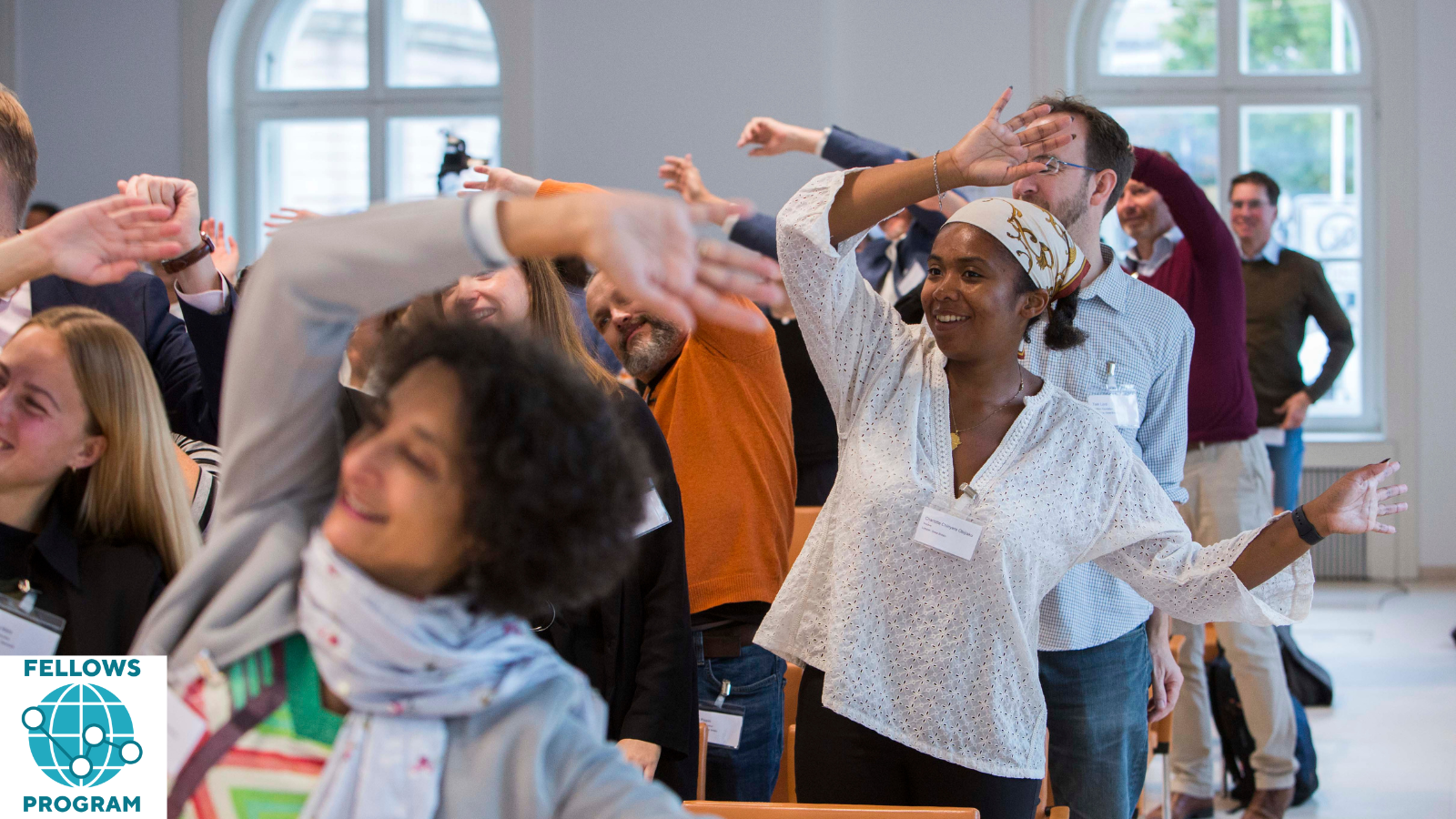
17 October 2022
“Let’s decolonize our knowledge about deliberative democracy”
Is deliberation universal? Should it be? Is our way of conceptualizing and organizing it in Europe (too) “Western-centric”? Are we ready, together, to acknowledge the answers to these questions? •••
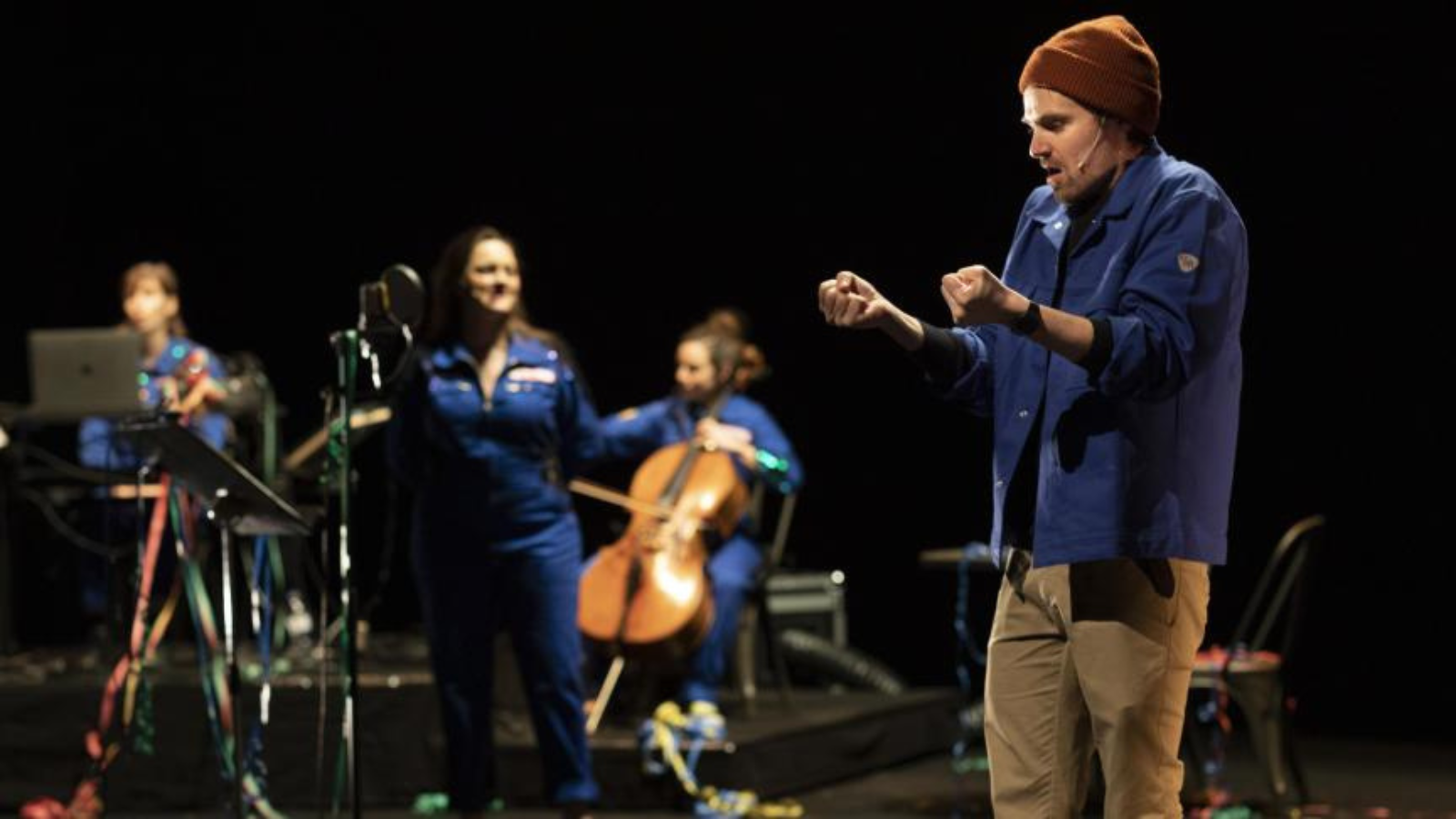
17 October 2022
Culture in the political arena: tackling climate change through humor
Vincent Hennebicq is a Belgian actor, director and author. His latest play "La Bombe Humaine" (The Human Bomb) is the story of the ecological awareness of a woman in a consumerist society. •••
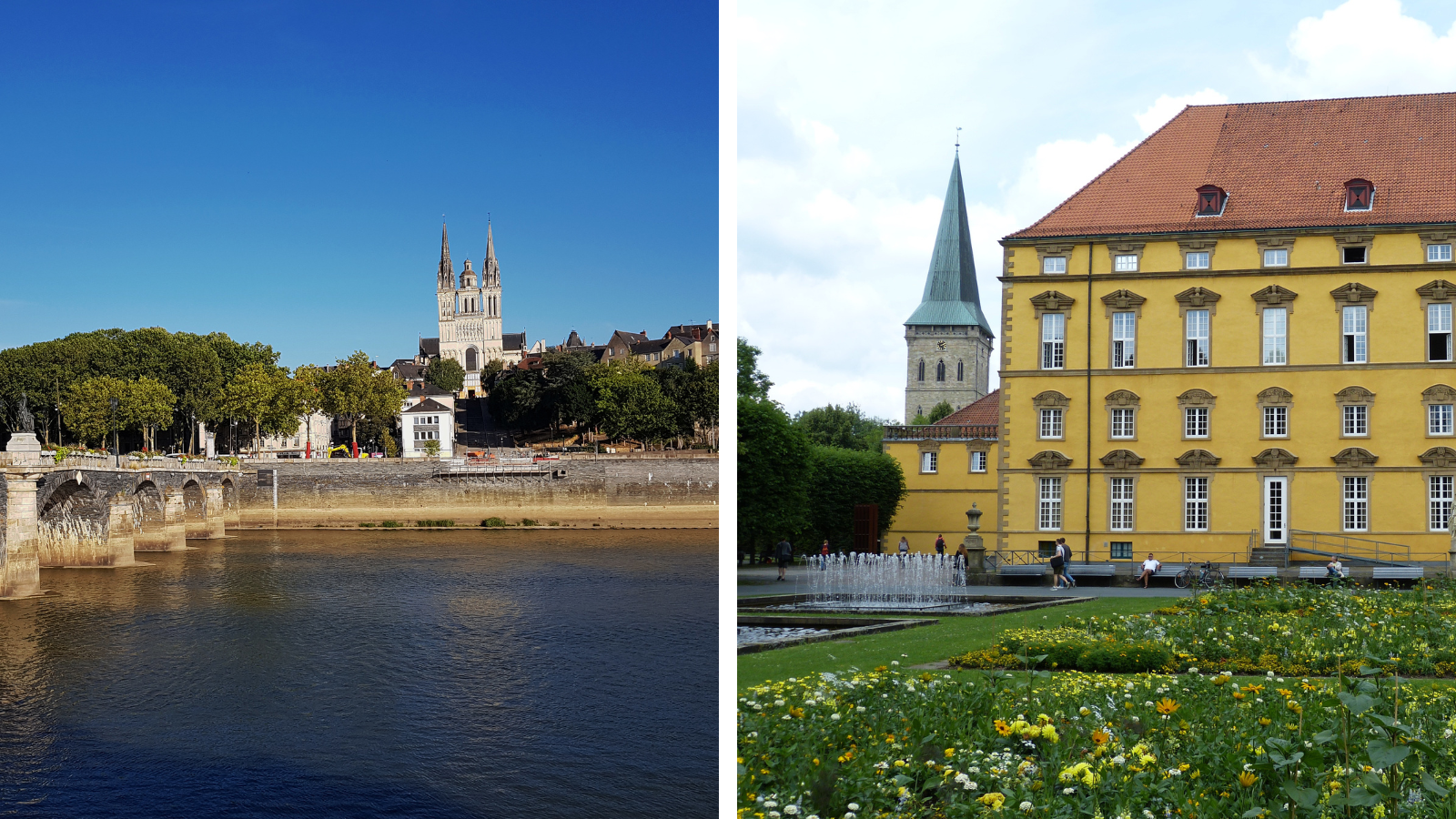
17 October 2022
Franco-German town twinnings at the cornerstone of EU cooperation
We met with Jean-Marc Minier, president of the "Maison de l'Europe Angers" and the head of the Osnabrück twinning office to talk about their vision of such a cross-border cooperation, currently very much focused on youth. •••
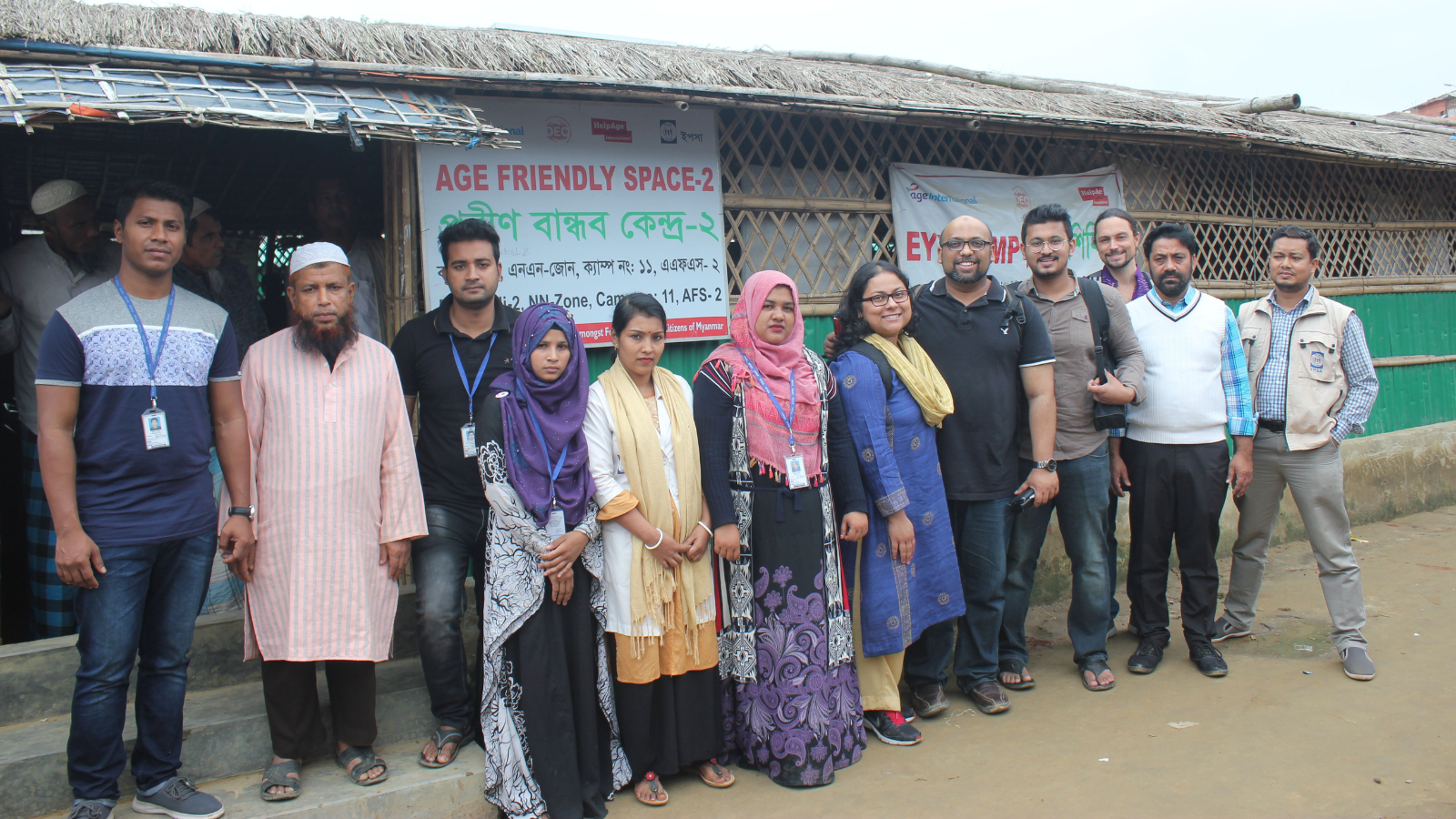
19 September 2022
“Breaking down power dynamics in a refugee camp”
Reaching out to those who are furthest from the discussion is the challenge of many participatory processes. Achieving this with refugees seems all the more incredible. However, this is the daring and successful bet of Dr. Faheem Hussain. •••
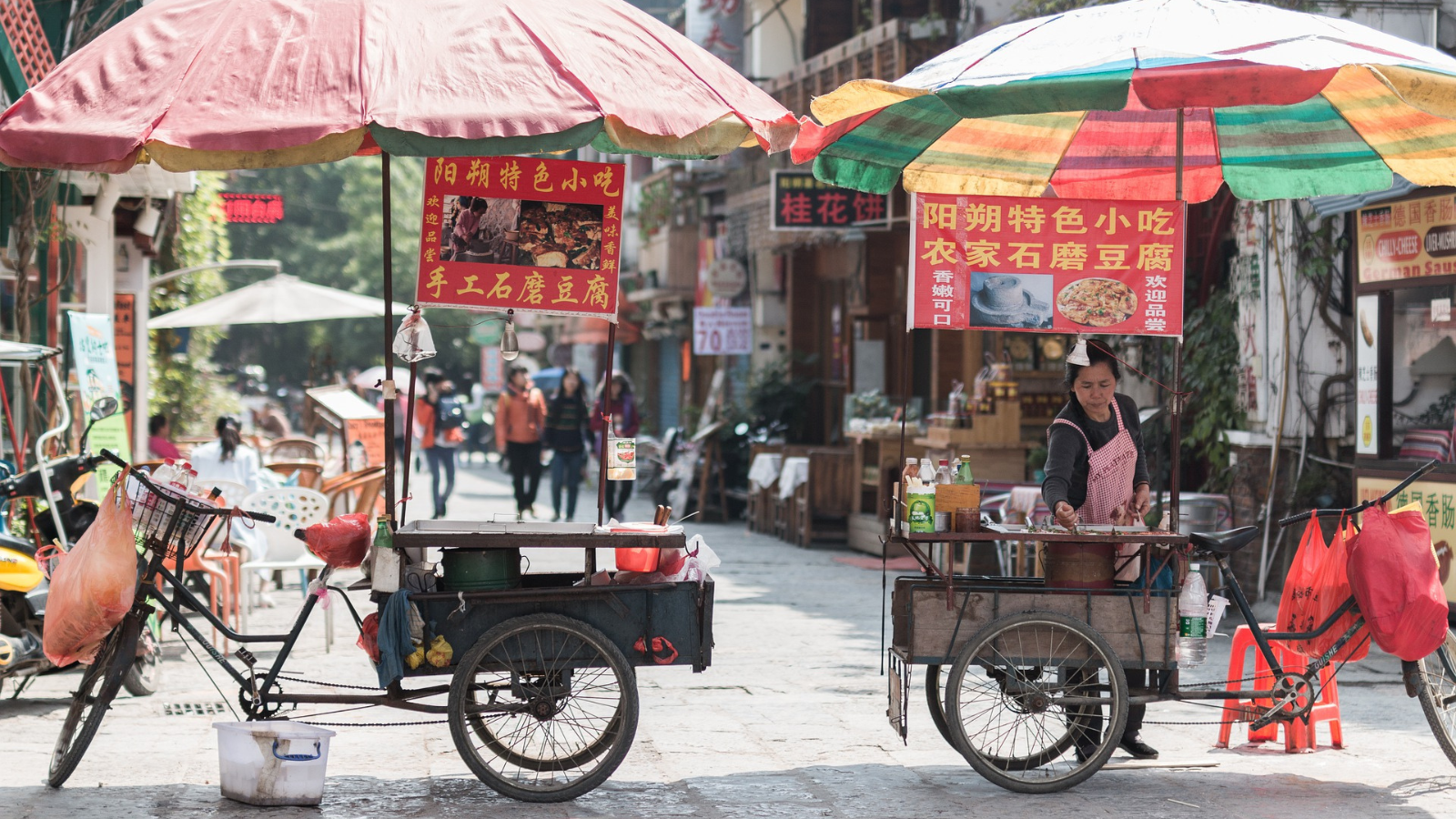
19 September 2022
“It might seem disconcerting to discuss democratic participation in authoritarian China…”
Talking about citizen participation in China may seem disconcerting. Between local traditions and the interests of the Communist Party, researcher Su Yun Woo offers a critical and nuanced analysis of a multi-faceted and often understood decision-making system. •••
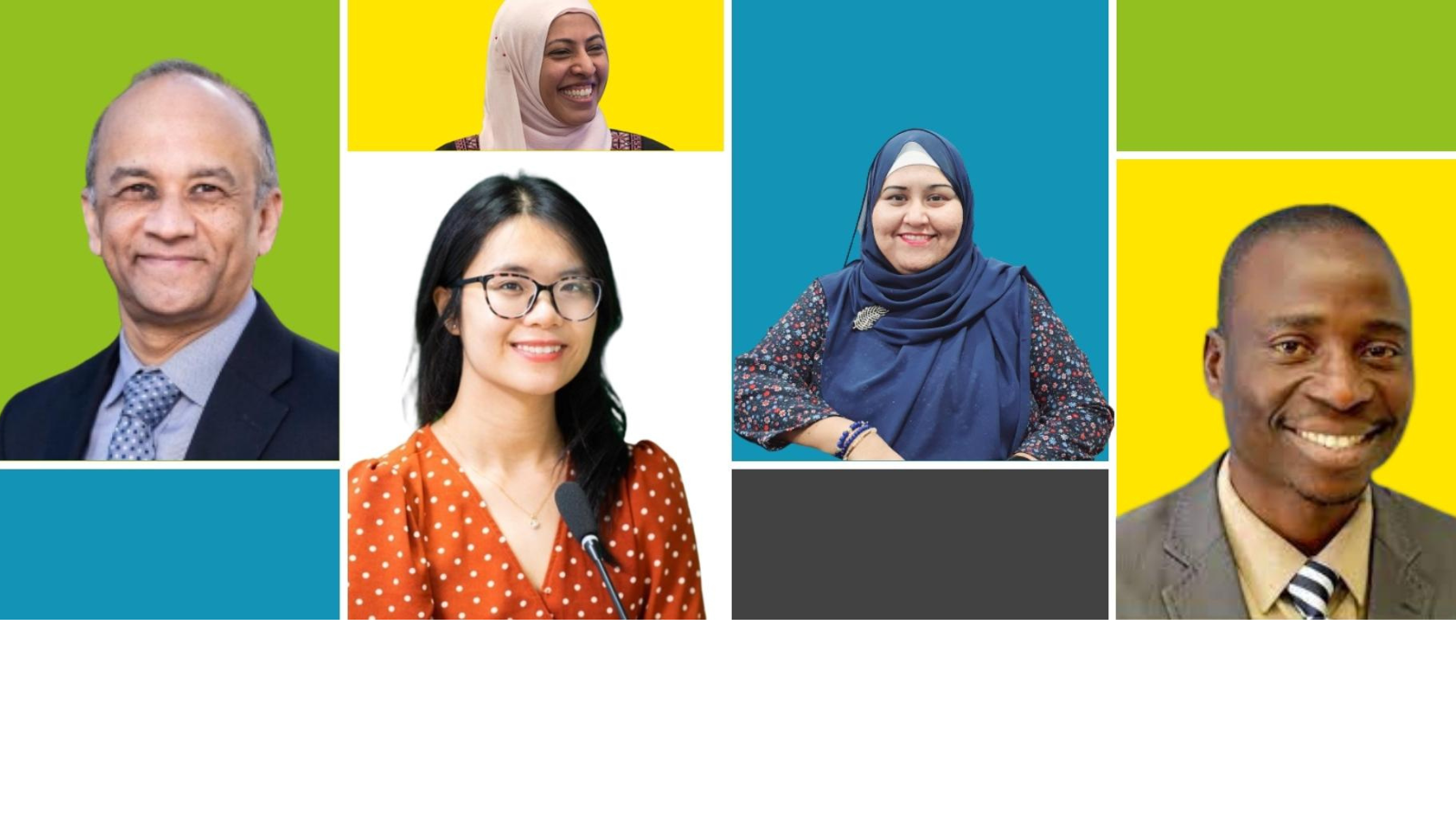
19 September 2022
Our Global Fellowship Program kicks-off
Today, we are excited to build our next chapter in our long history of global participation: the Fellowship Program. •••
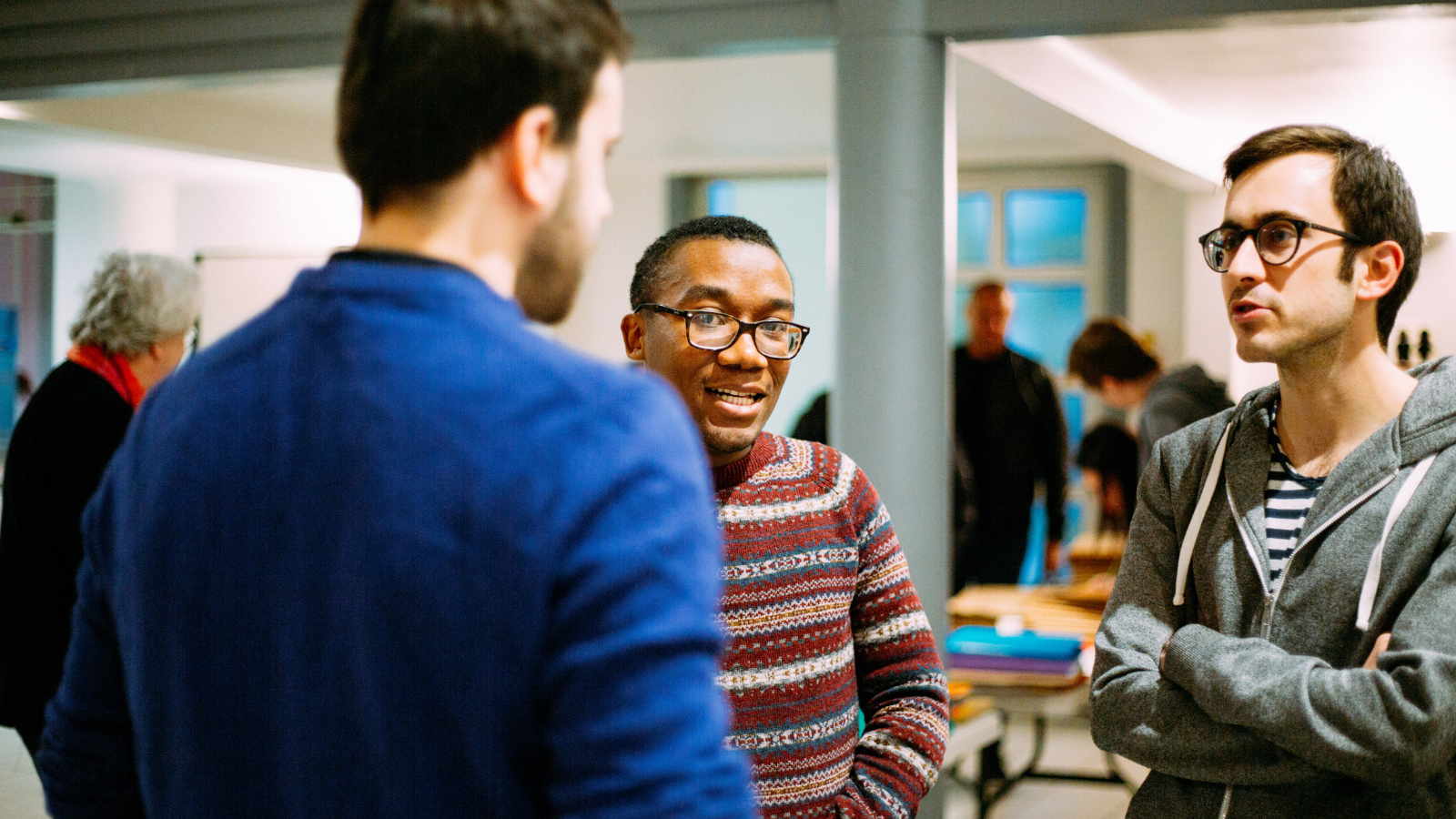
13 July 2022
"Democracy cannot exist without counter-power”
Marie-Hélène Bacqué is a French sociologist and professor of urban studies at the University of Paris-Ouest-Nanterre. Her work focuses on urban democracy, the transformation of working-class neighborhoods, segregation and empowerment •••
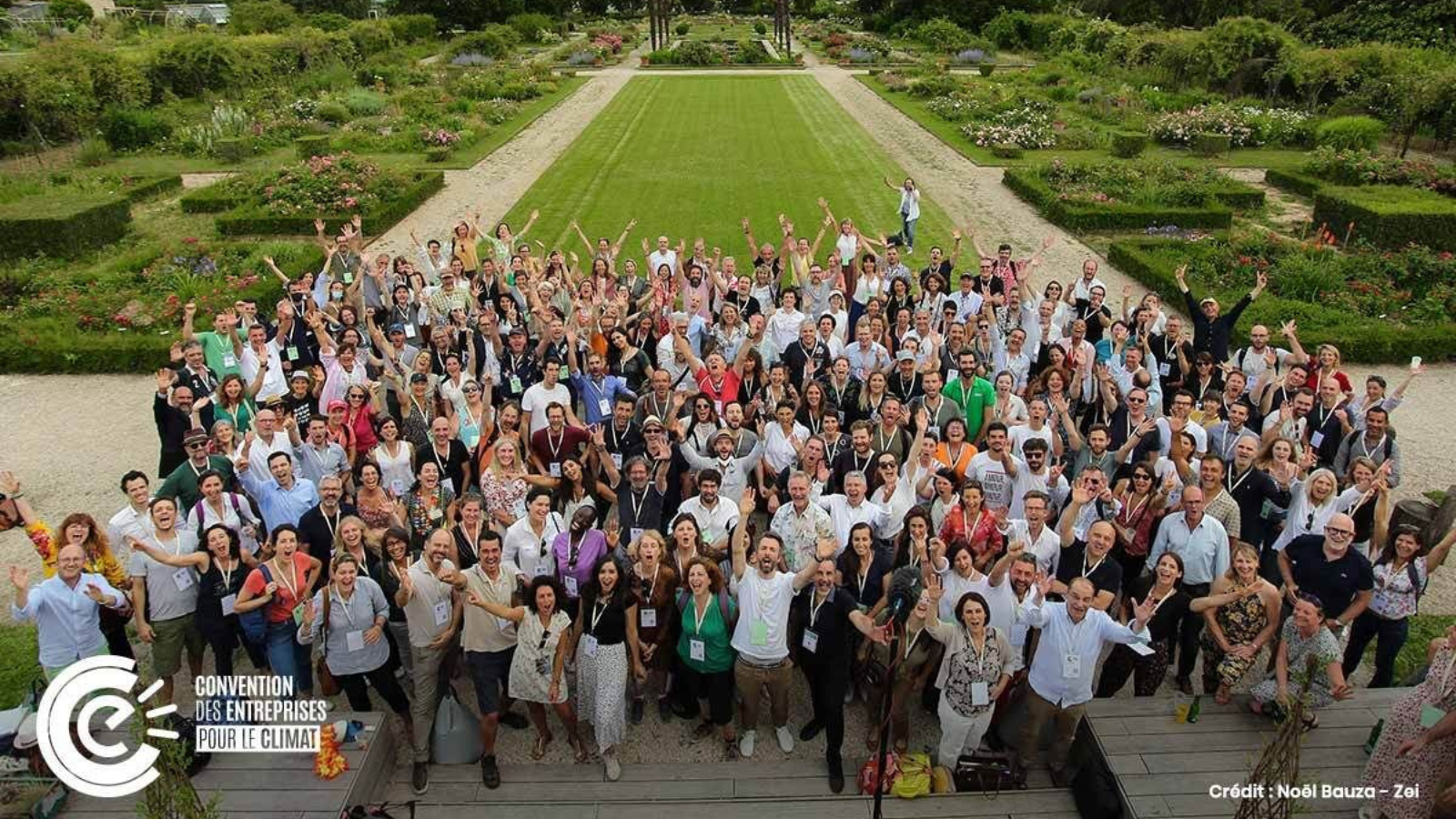
13 July 2022
"We are at the intersection of business and politics”
After eight months of intense work, the Business Climate Convention (BCC) has just ended. The process, which brought together a diversity of companies embodied by more than 150 executives •••
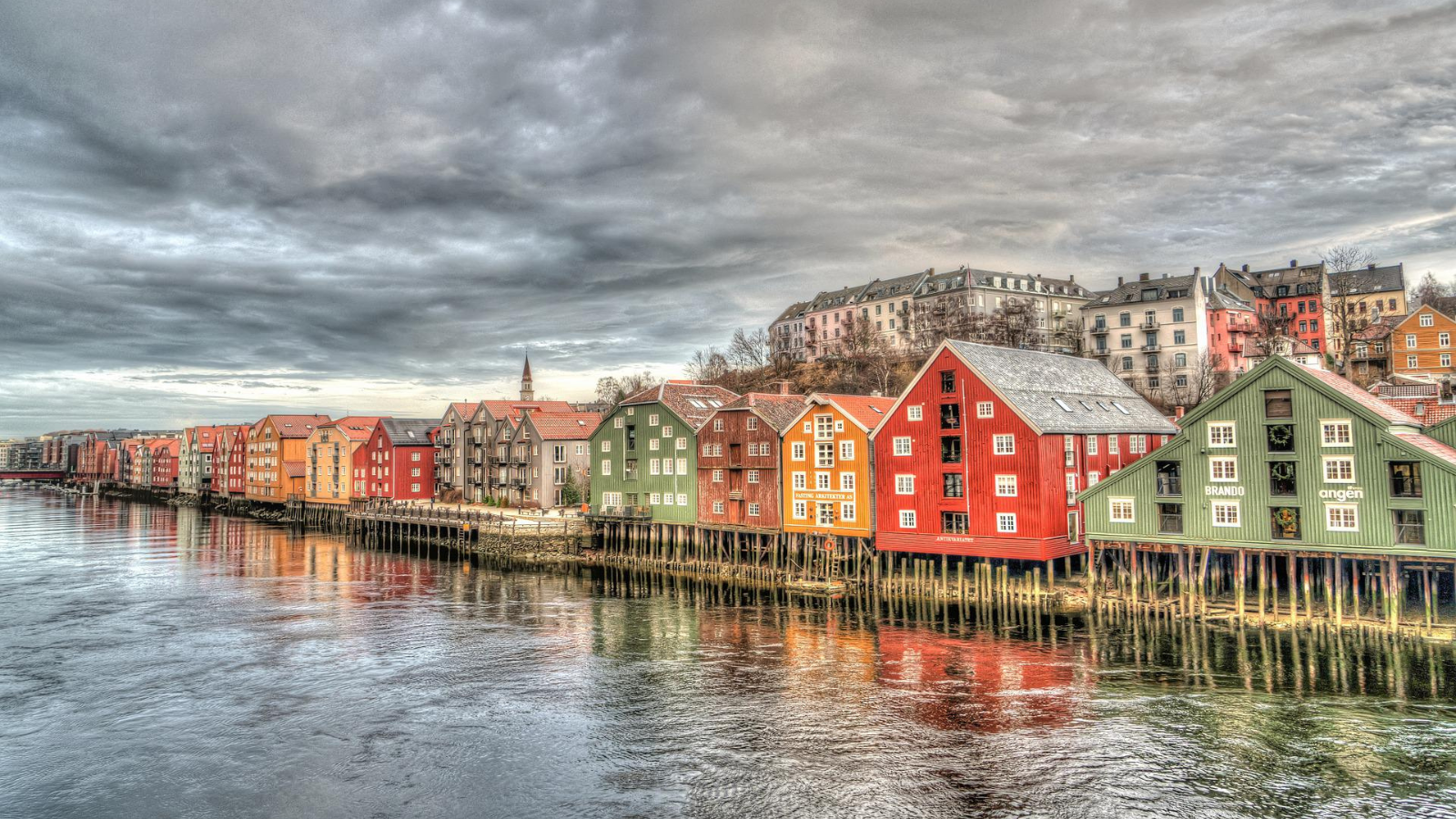
13 July 2022
“Our solution will help Thai women navigate the Norwegian regulatory tasks”
The Norwegian innovation camp, in the framework of the Equals EU project, was held last May around the topic “closing the digital divide for gender minorities”. •••

13 June 2022
How can we bring energy precarious populations into policy?
How can we achieve the international objectives of reducing greenhouse gases and avoid the further growth of social and economic inequalities? This is the ambition of the European project “Fair Energy Transition for All“(FETA) initiated and coordinated by the King Baudouin Foundation. With 1,000 citizens embarked, 200 experts and 90 discussion groups in 9 countries of the European Union, Pascale Taminiaux, coordinator of the project, reviews the objectives and the first results. •••
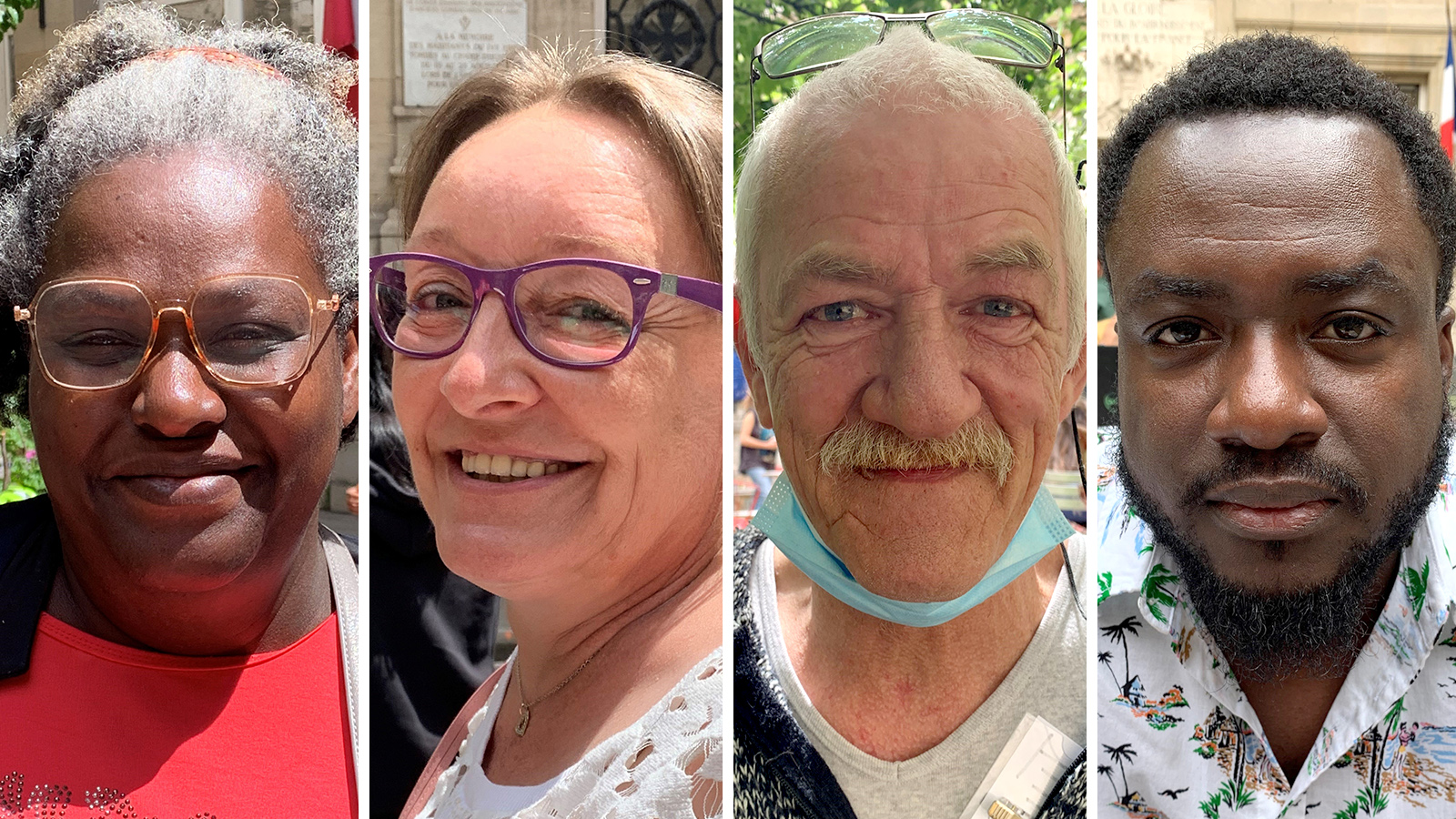
13 June 2022
Energy insecurity in Europe: participants share their life stories
Citizens from energy insecure households from Belgium, Denmark, France, Italy, Germany, the Netherlands, Poland, Portugal and Romania are being brought together for the European project "Fair Energy Transition for All" (FETA), during which Missions Publiques is organizing workshops in France. The objective: to bring energy insecure households into energy policies at EU level. We met Thierry, Irlaine, Valerie and Osnel who shared with the us their life stories and explain how energy insecurity impacts their lives. •••
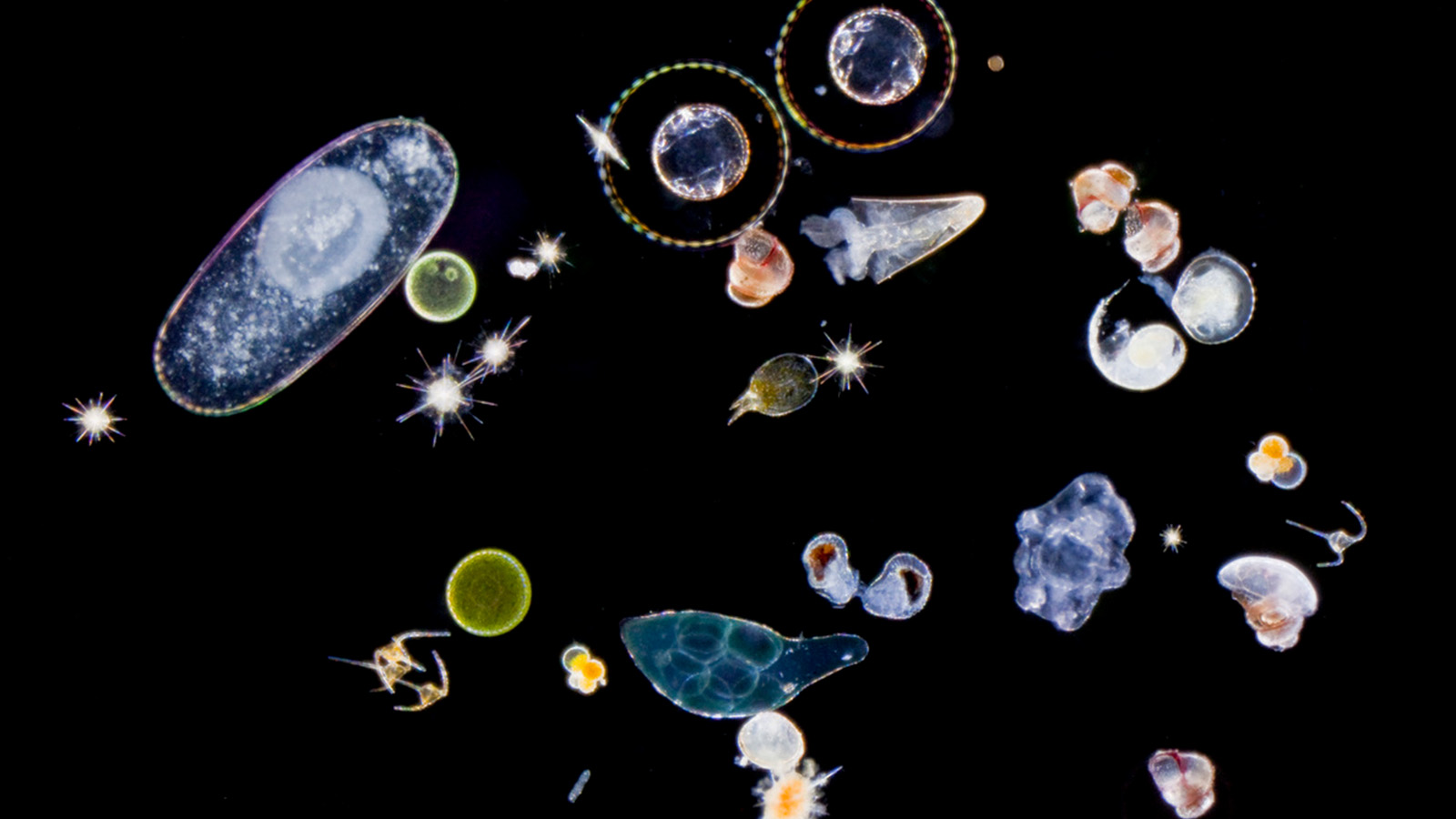
12 June 2022
“The real richness of life beneath the ocean surface is in the microscopic world”
Chris Bowler is a renowned scientist and expert in marine biodiversity. Head of Research at CNRS and Ecole Normale Supérieure Paris, his active participation in the Tara Oceans expedition program has made him one of the best-known scientists to the general public. His work addresses general issues of interest to society: the evolution of life, climate change, the functioning of the planet, pollution of the oceans and seas. For Ocean week, we asked him about our idea to launch a Dialogue on the Ocean to integrate the Oceans’ voice into international negotiations. •••
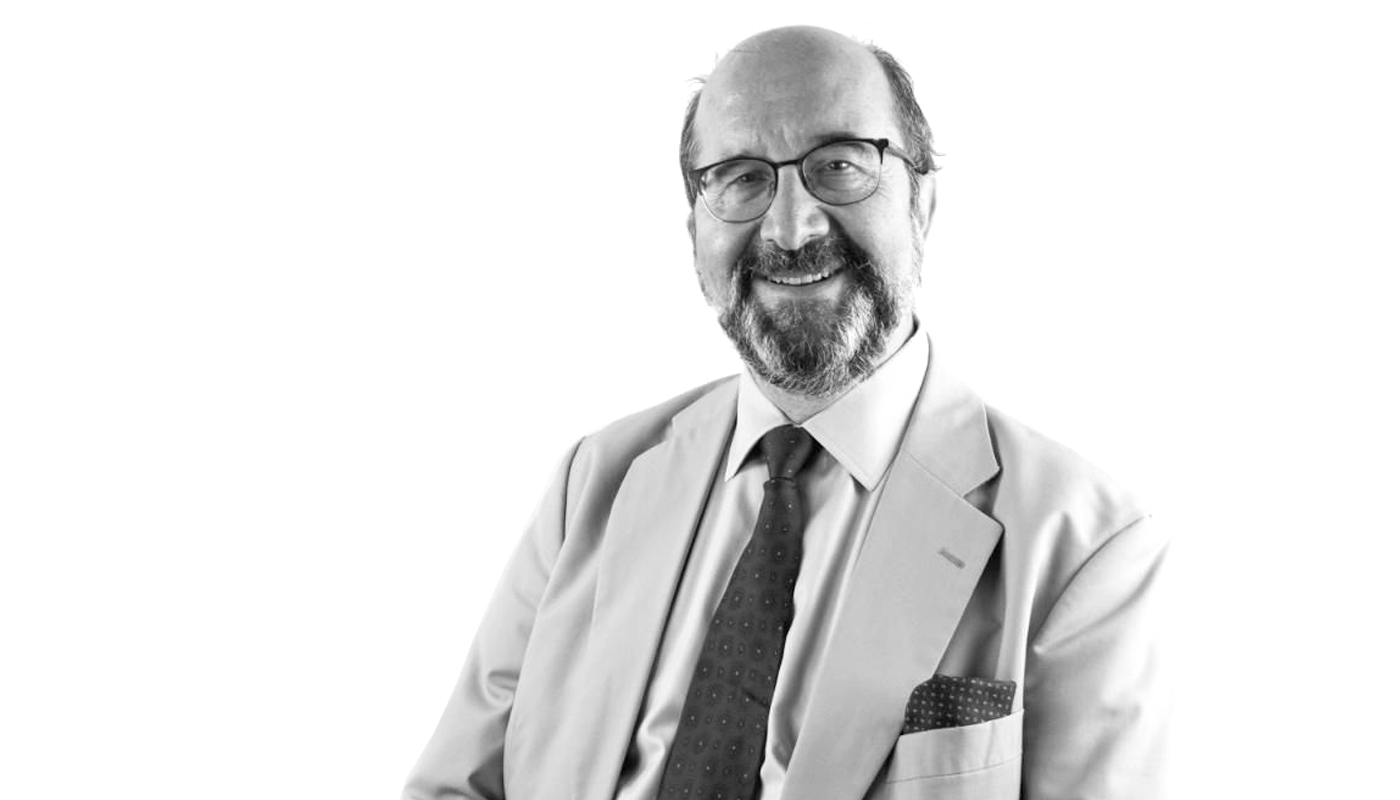
16 May 2022
“Deliberation made citizens more aware of where their true beliefs are.”
Pierangelo Isernia is Professor of Political Science at the University of Siena, Italy. During the last 15 years he has coordinated several European projects under the Horizon 2020 Framework Programme. •••
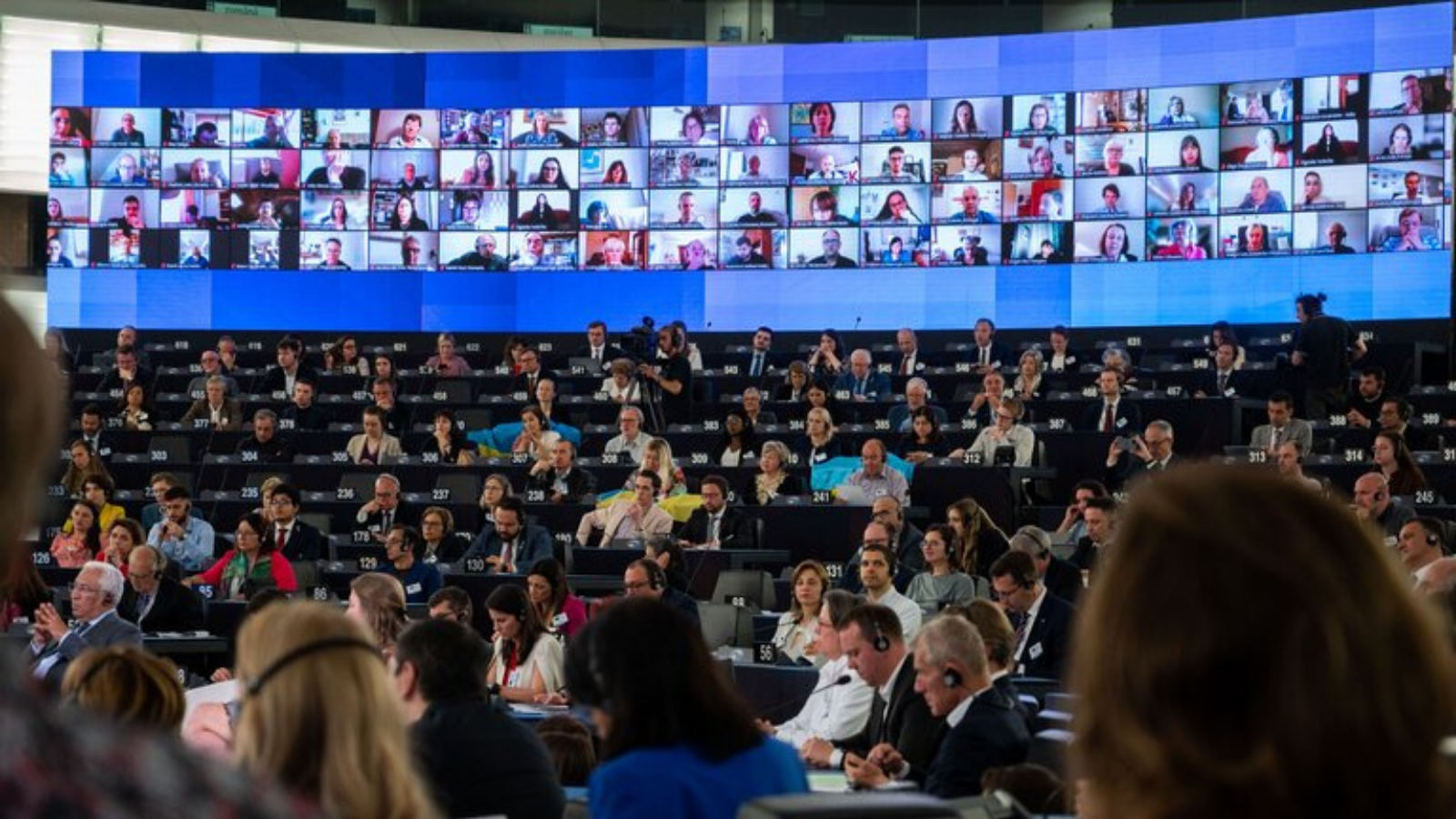
16 May 2022
Conference on the Future of Europe: could it be that citizens moved the European Union forward?
The Conference on the Future of Europe (CoFoE) came to a close on May 9th, also known as Europe Day. Although we cannot predict its exact impact, the first effects of the Conference are already visible: this unprecedented approach, both in terms of scale and methodology, has introduced a new participatory dynamic into what is often perceived as an ungraspable, complex institutional machine. •••
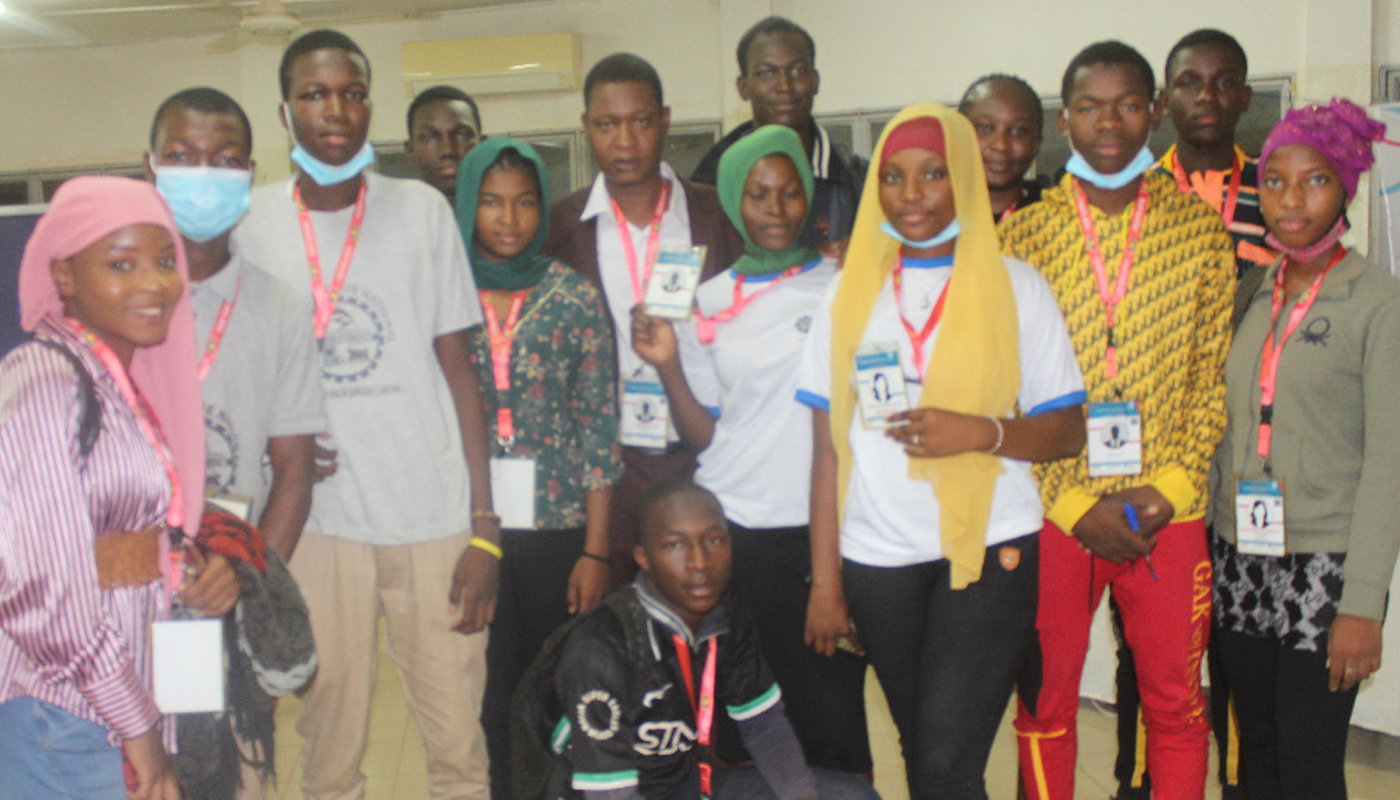
16 May 2022
We, the Internet 2022, Burkina Faso opens the ball
In May, Internet Society Burkina Faso and their partners, in collaboration with Missions Publiques, organised the first ever pilot dialogue in Ouagadougou, the country's capital. 200 citizens attended, we met three of them... •••
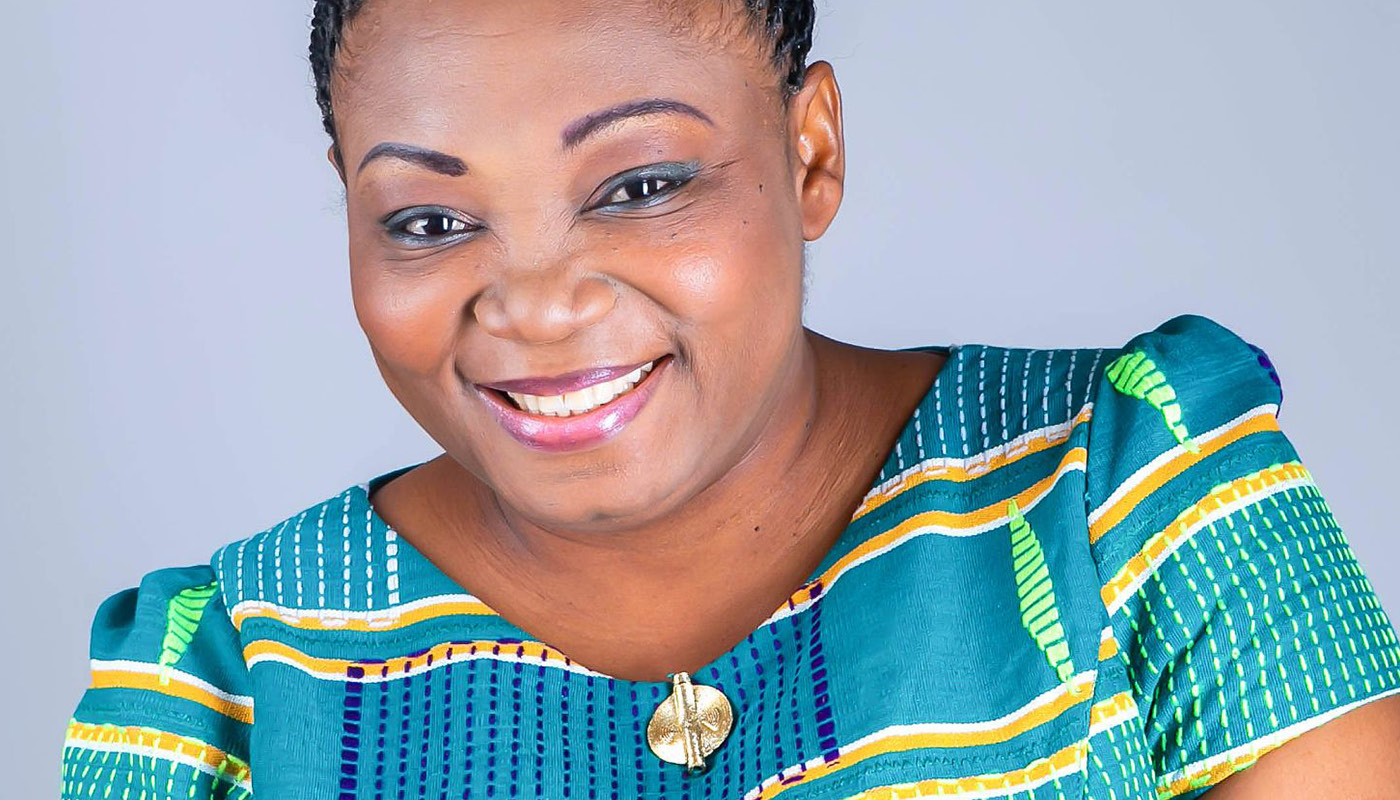
13 April 2022
“My call is to join forces to co-create a Global Digital Compact”
What started as an idea for people to share information went on to be a basic human right. Nnenna Nwakanma is Chief Web Advocate for the World Wide Web Foundation (WWWF), she reflects on the web’s creation, the necessity of co-creating it with citizens through We, the internet and the power of thinking the UN Global Digital Compact through a gender-perspective lens. •••
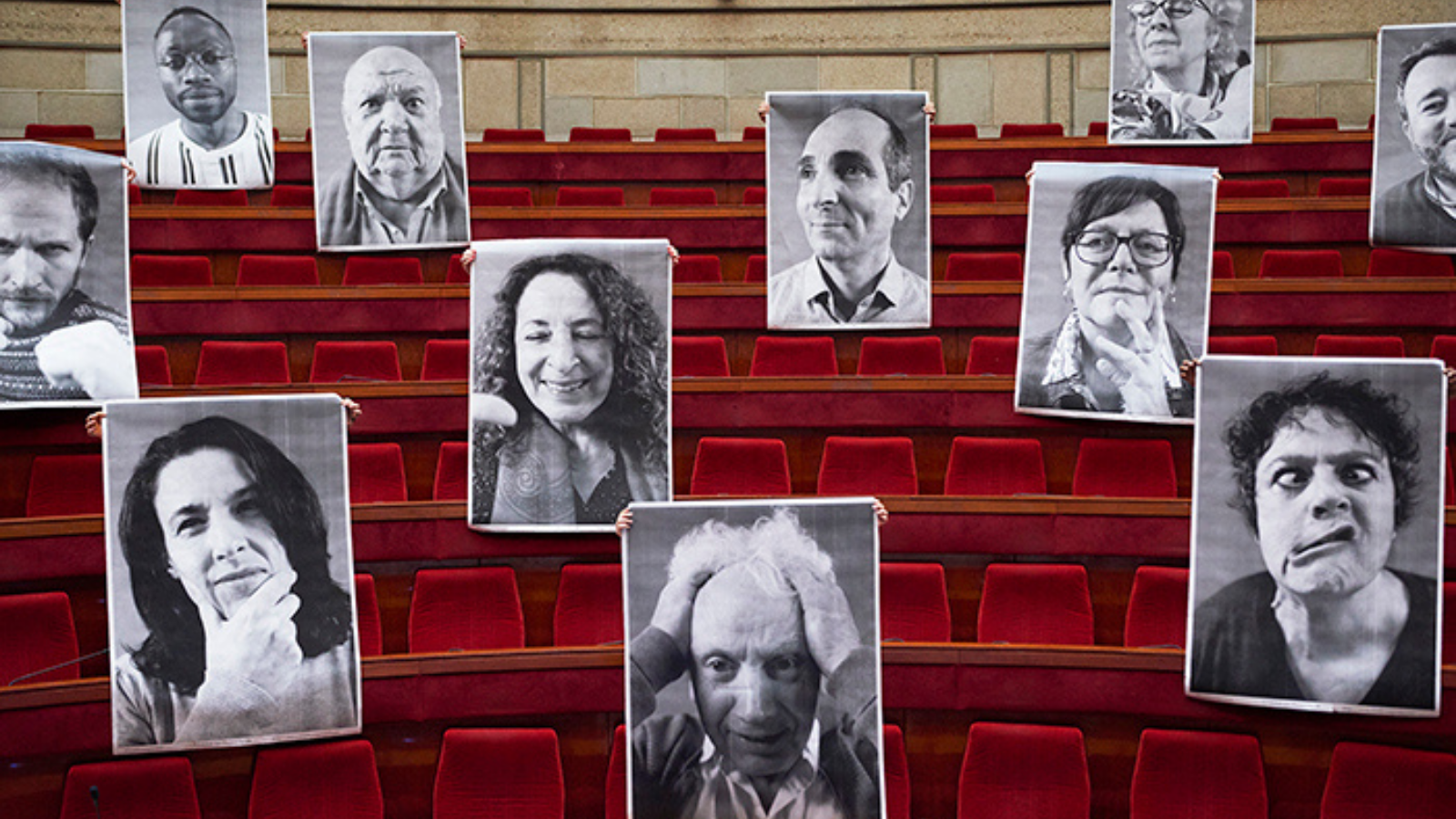
12 April 2022
Citizen consultations and private firms: what if we asked ourselves the right questions?
A French Senate report (1) on the influence of private consulting firms in the conduct of public policies has led to extensive press coverage here in France. Citizen consultations entrusted by the public sector to private consultants was also singled out in an article in the French and highly respected newspaper Le Monde's (2). As "modest actors specialized in collective intelligence" but especially as practitioners of citizen participation for more than 20 years, we would like to contribute to the public debate and bring some clarifications to what we consider is an ocean of confusion. •••

12 April 2022
“We want to bring politics to people, not people to politics”
In response to the report of the Conference Observatory High-level Advisory Group, we would like to provide a response regarding one of the four options provided by the Observatory on how to incorporate new participatory elements in the EU’s democratic process. The Observatory’ proposals is as following: ‘Big tent’ fora on the EU’s strategic priorities”. •••
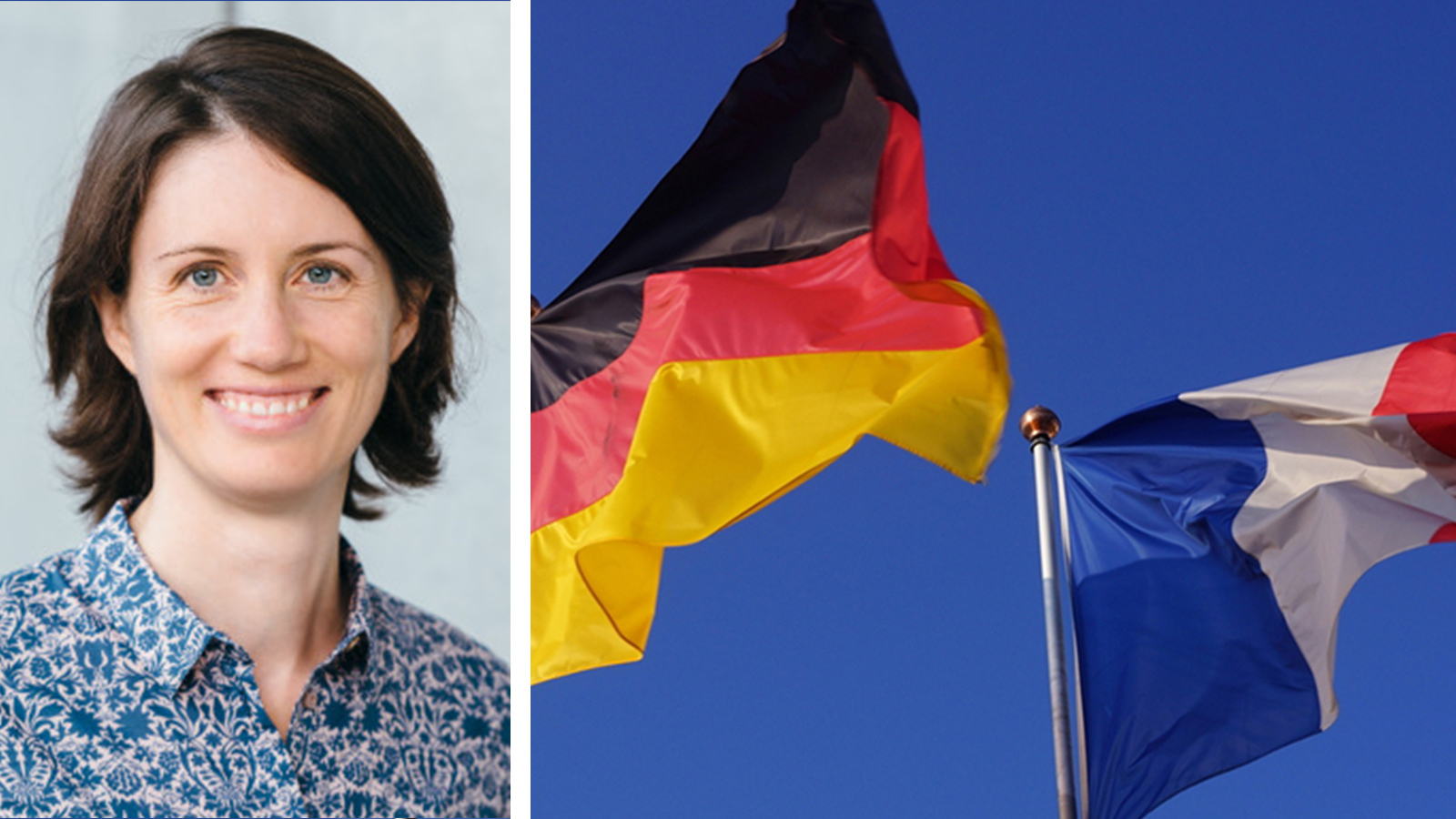
10 March 2022
Local differences are an incredible source of prosperity!
Anne-Gaëlle Javelle is Director of the German Secretariat of the Forum for the Franco-German Future , a platform for dialogue between actors from innovative French and German local authorities. She explains to us the ambitions of this project for decision-makers: to promote local experiences and draw lessons from them at the level of both countries. •••

9 March 2022
"Algorithms are not to blame; the only ones responsible are those who design them"
The first of 24 hackathons took place in Paris this weekend, in the framework of the Equals EU project led by Missions Publiques and in partnership with Willa and Maddyness. Women and gender minority groups came from Paris and its suburbs to showcase their talent and passion for building inclusive solutions for gender minorities. Their mission statement was clear: propose innovative solutions towards inclusion of gender minorities in decision-making. •••
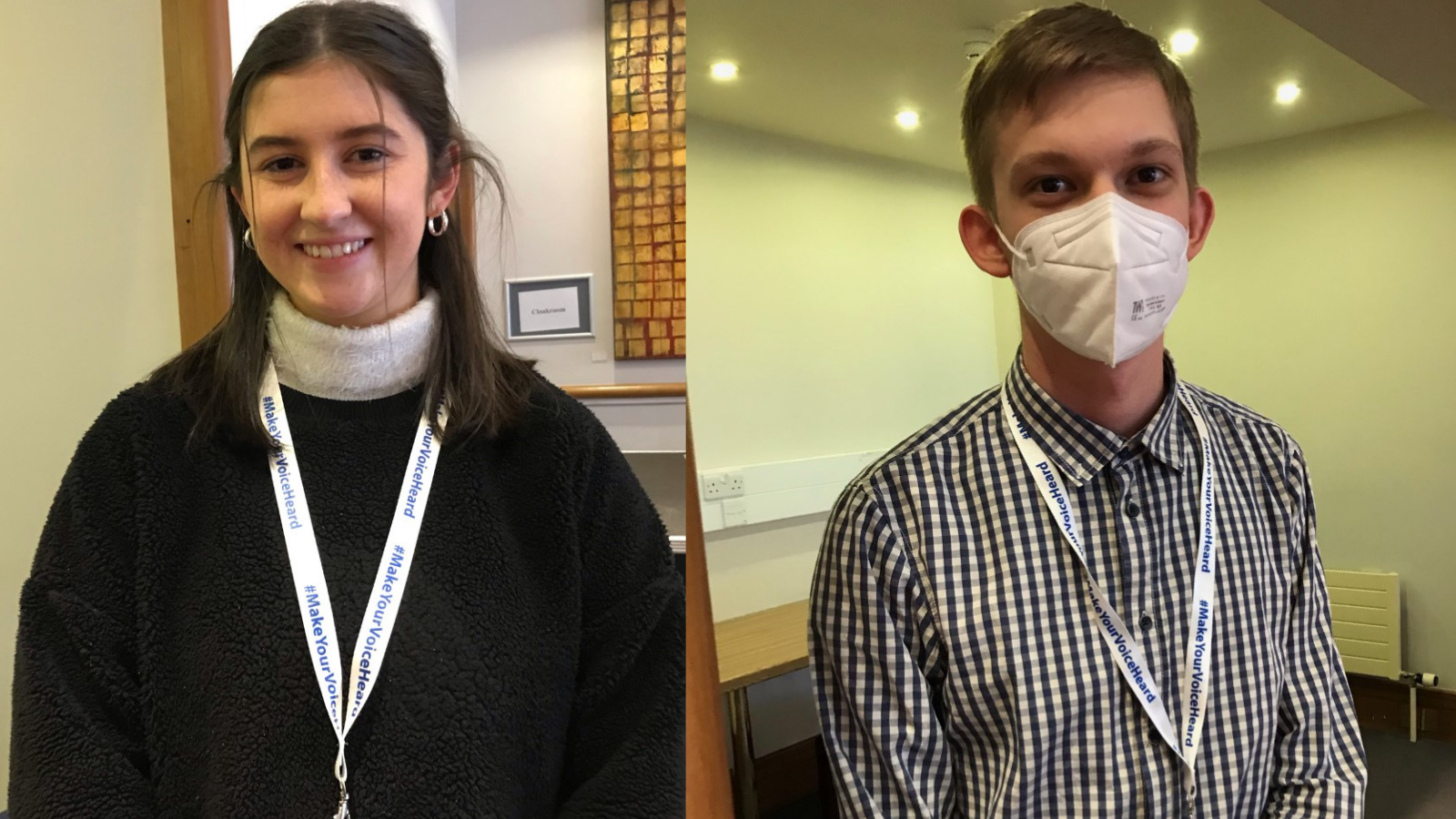
9 March 2022
Towards the plenary of the Conference on the Future of Europe!
The Conference on the Future of Europe, which will end in the spring of 2022, is an exercise in participatory democracy that is extraordinary in terms of its size, its ambition and its innovative political character. Its objective is to give the citizens of the 27 Member States the opportunity to express what they expect from the European Union. So, where do we stand? The last of the Panels ended in Dublin Castle, where citizens adopted a total of 48 recommendations that can now be forwarded to the March plenary in the European Parliament in Strasbourg for follow-up by the European institutions. But once the recommendations are adopted, what role do citizens play? The floor is given to two young ambassadors, Aoife and Philip, who will soon meet in the Strasbourg hemicycle to make the voice of their working groups heard. •••
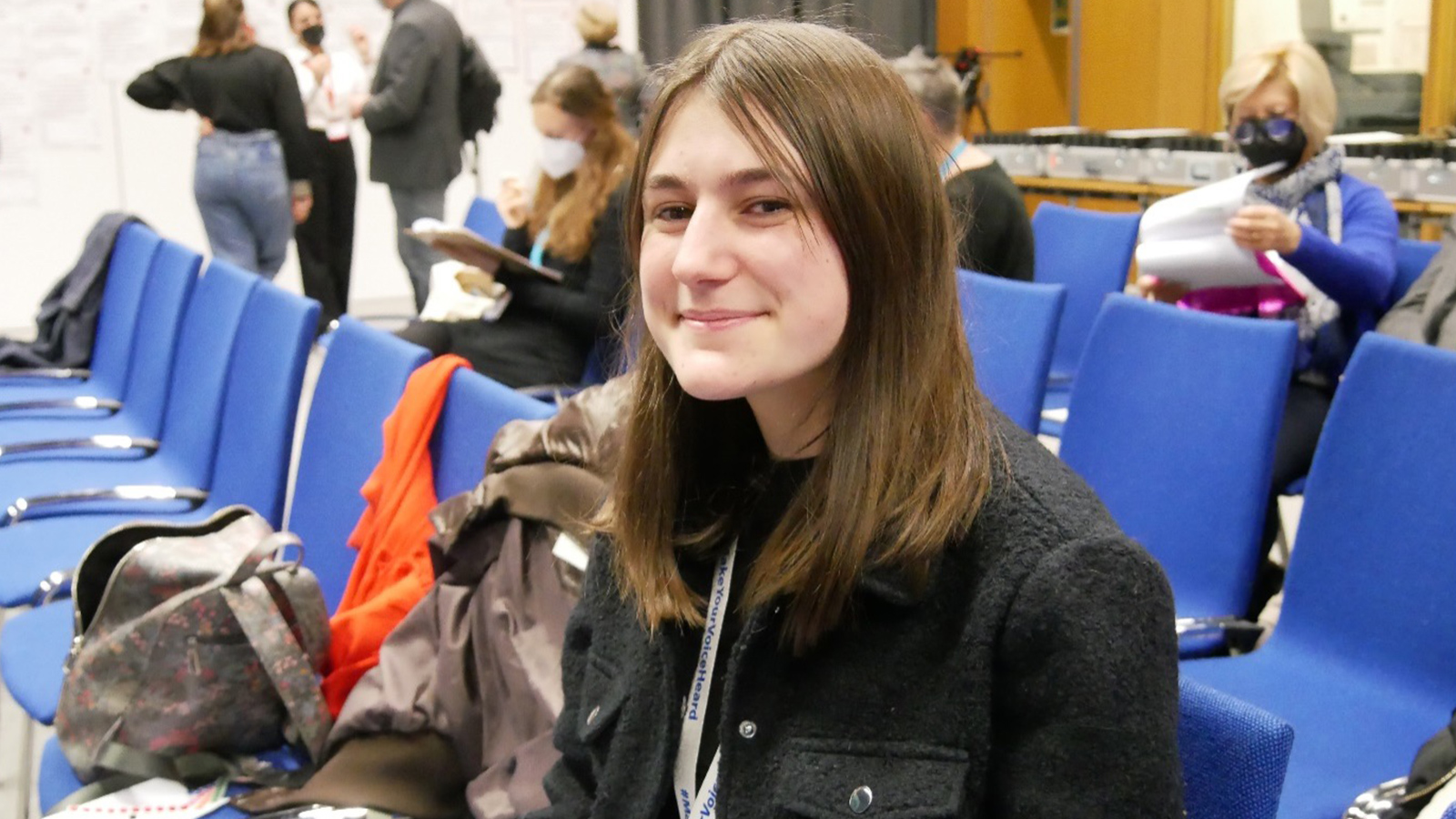
25 February 2022
Who are the citizens of the Citizens' Panel in Dublin?
In Dublin, Ireland, the 200 citizens of the latest session of the Citizens' Panels of the Conference on the Future of Europe are meeting in Dublin Castle. Meet Nedelina, Hristrian, Justine and Sibylline, respectively a computer scientist, a history enthusiast, a pop folk singer and a laboratory science student. •••

9 February 2022
Tech and gender, a multicultural struggle
It was in the midst of lockdown that Amalia Salle, choreographer, and Xuan-Vi Tran, known as "Vi", developer, decided to create VibZ, an app to learn how to dance with choreographers from all over the world. •••

9 February 2022
"Making decision-making accessible to marginalised people"
Lauren Lolo is a municipal councillor and co-founder of "Cité de Chances", an association that promotes civic engagement among young people from the economically disadvantaged Parisian suburbs. As a strong advocate of gender minority rights, she will be present at our hackathon on gender equality in tech. •••
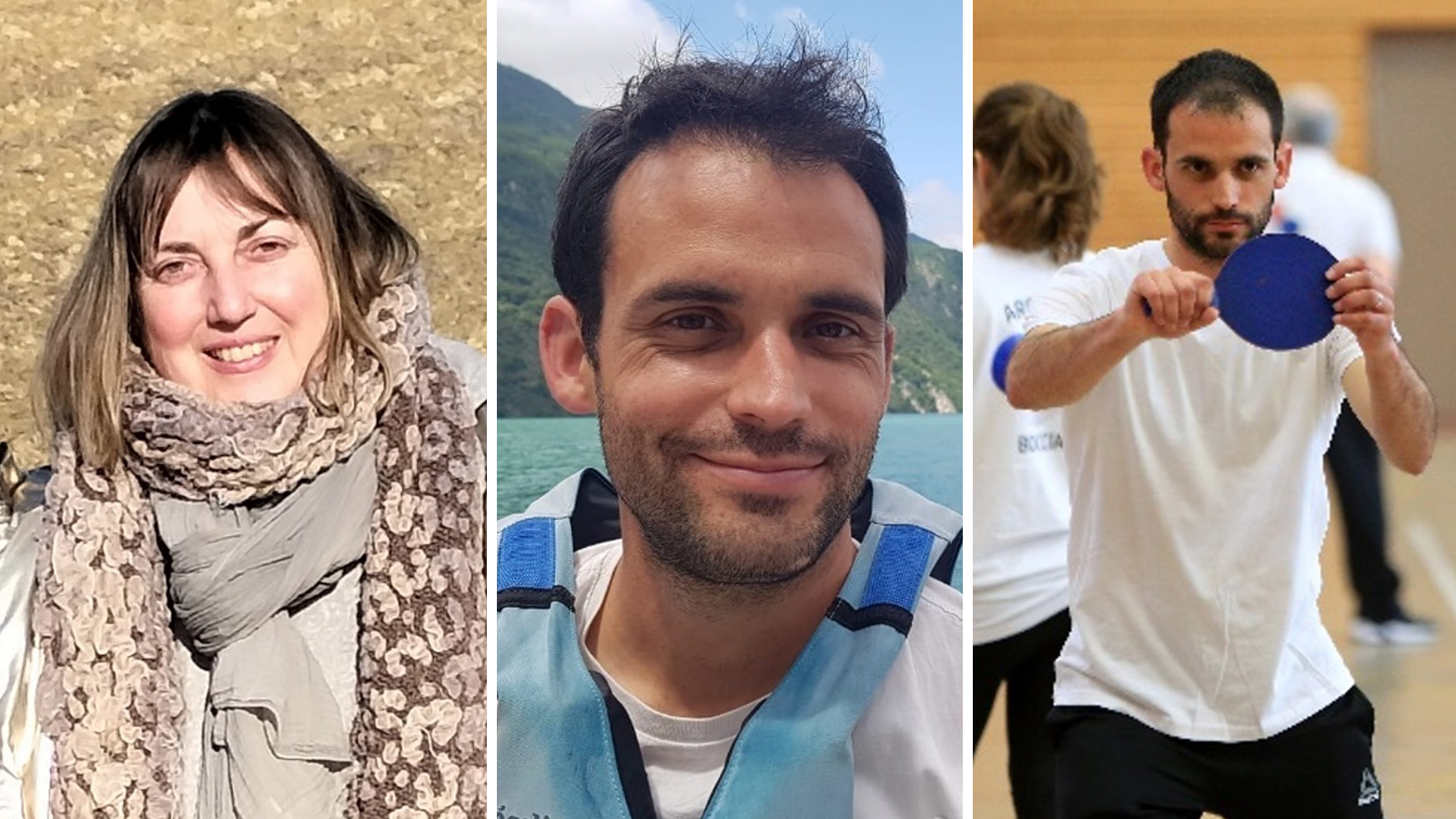
9 February 2022
"People have so much knowledge!"
Catherine is a 56-year-old woman from Toulouse, a major city in southwestern France. She graduated as a lawyer and now works as an insurer in the injury litigation department of an insurance company. For the past 30 years, she has been dealing with disability issues on a daily basis through taking statement from people who have lived through road traffic accidents, home-related accidents or even medical accidents. •••
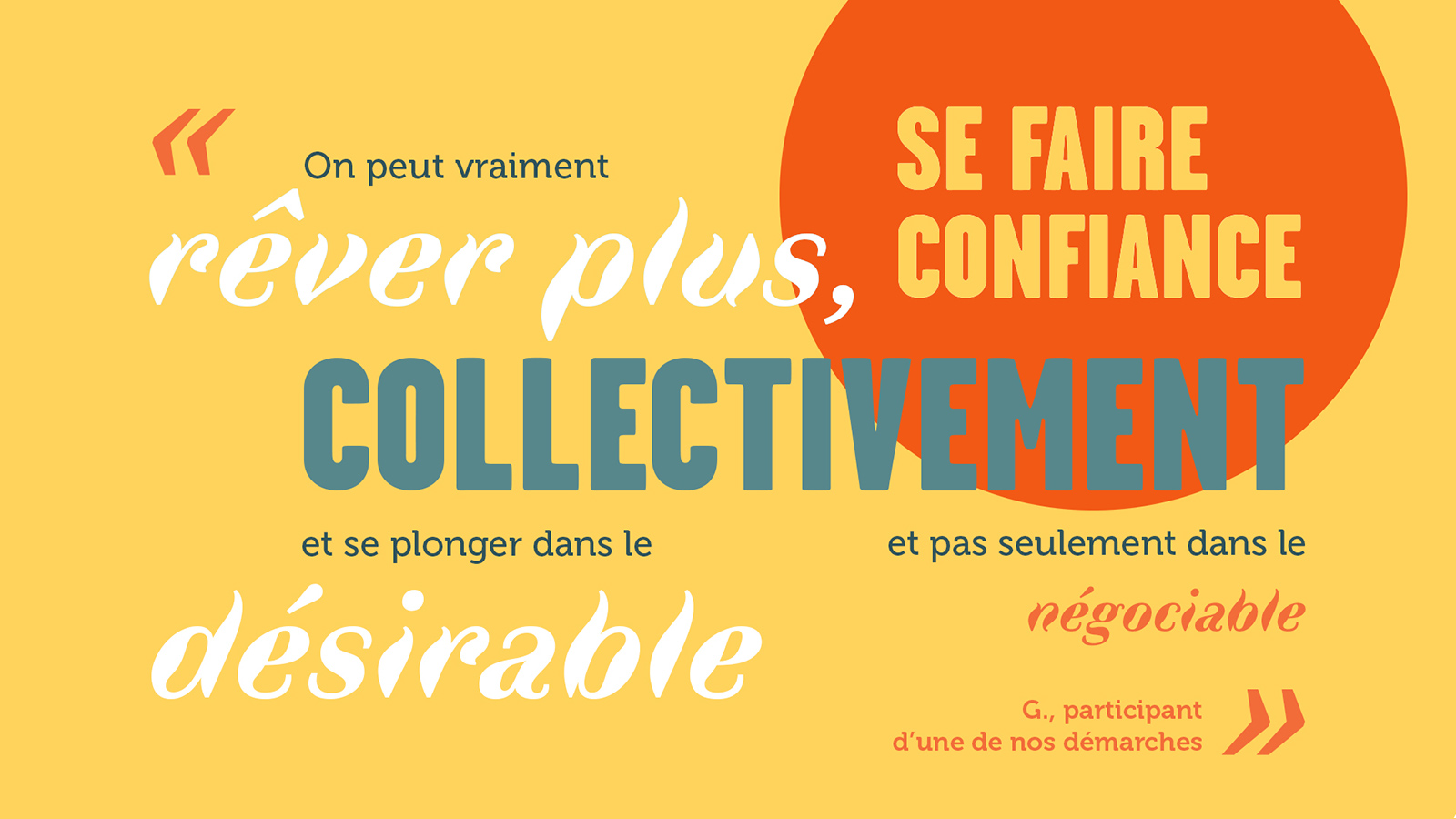
7 January 2022
2022 here we come!
Our entire team, from Paris to Brussels via Bonn, wishes you a happy new year in 2022. And what better way to illustrate this with the words of one of our participants? •••
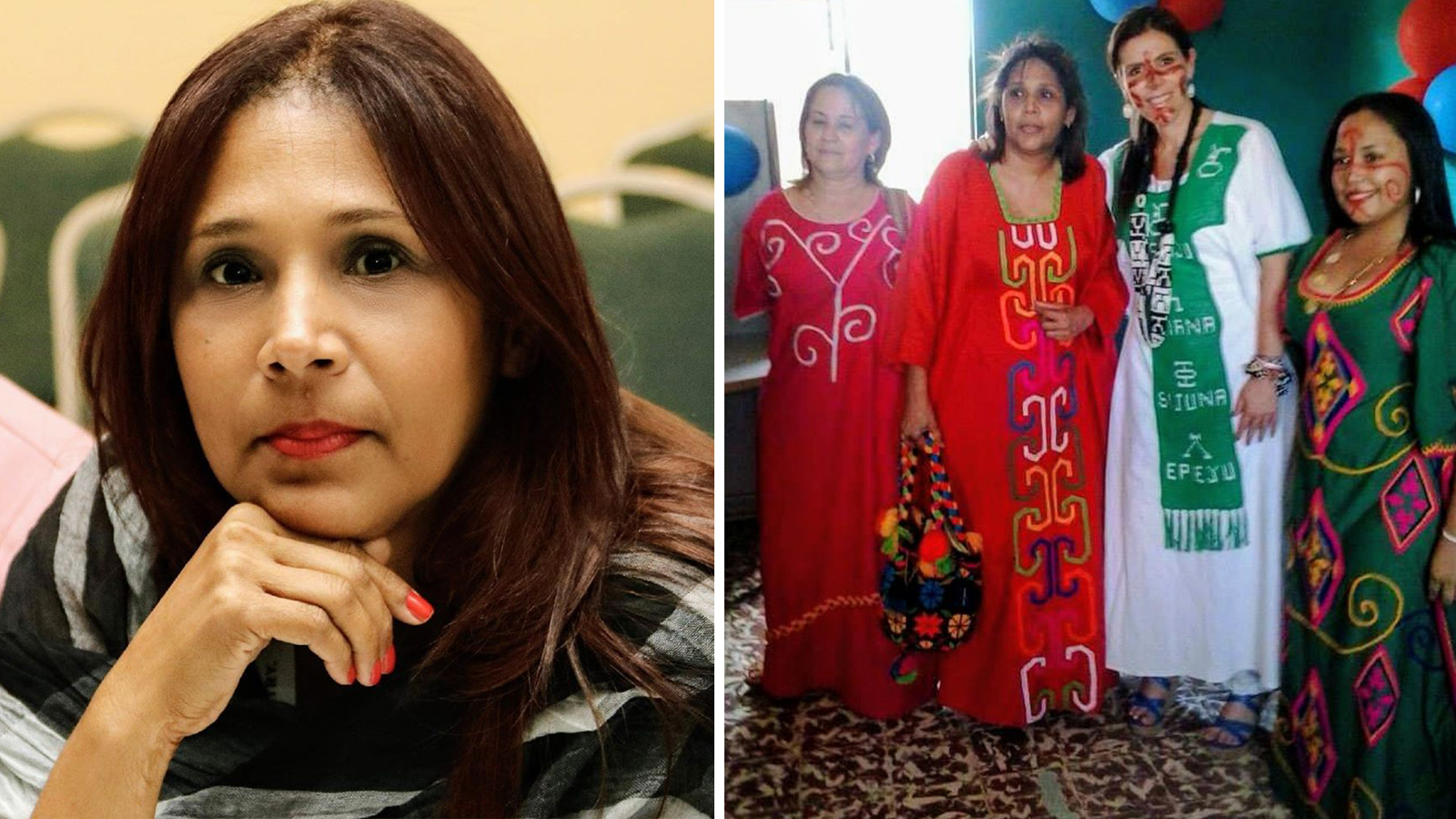
7 January 2022
"The Internet is essential for the survival of the Wayuu indigenous community"
Far from her hometown, located at the mouth of the Rancheria River in the Caribbean Sea, Lilian Ivette Luques de Bruges joined Missions Publiques in Katowice (Poland) during the 16th Internet Governance Forum. Between two sessions, this Colombian and director of communications and information technologies of a territorial entity and co-owner of a cybersecurity company in Medellín tells us why she chose to carry the voice of the Wayuu community to the forefront of the international scene. •••
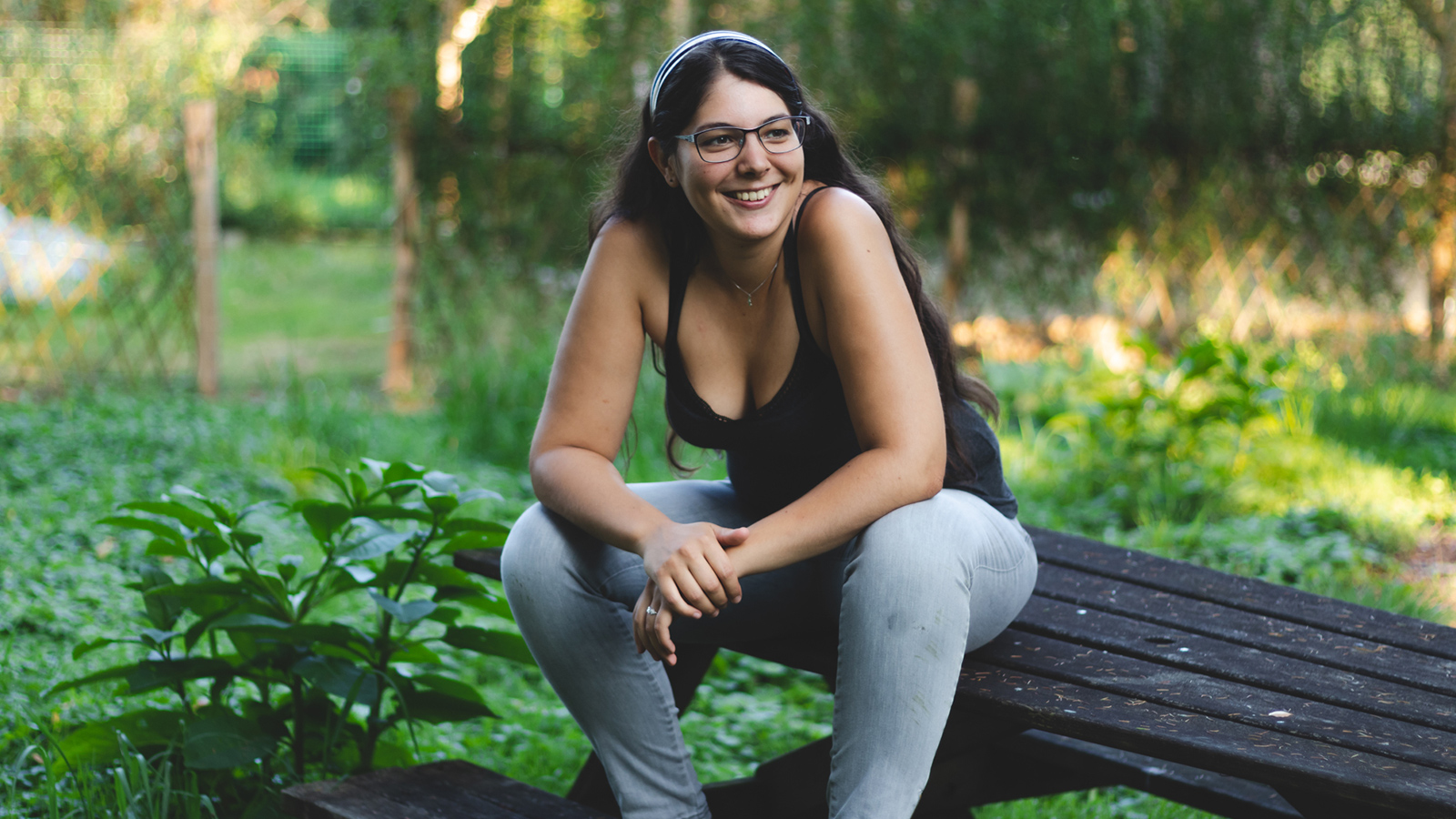
7 January 2022
"Depending on family solidarity is ludicrous"
APF France handicap is a French organisation that defends and represents people with disabilities and their families. In the context of the French presidential elections, the organisation is initiating a citizen debate on "social protection: what model for tomorrow?”. •••

9 December 2021
Citizen participation and digital? Yes, but one step at a time
Clément Mabi is a lecturer in Information and Communication Science at the UTC in Compiègne. For this researcher, who is interested in the mutations of our democratic activities, digital participative tools must embody values. The technical choices embody our ideals, values and principles that guide our actions. His theory? Starting from citizens and actors, from "doers" to build tools and put them at the service of citizen participation. •••

9 December 2021
"Virtual reality allows us to spatialize a collective experience"
The ELYX Foundation is positioned around three pillars: art, innovation and commitment to the Sustainable Development Goals. For the past 20 years, one of its founders, Yacine Ait Kaci, has studied the potential of virtual reality and the issues it raises for citizen participation. •••
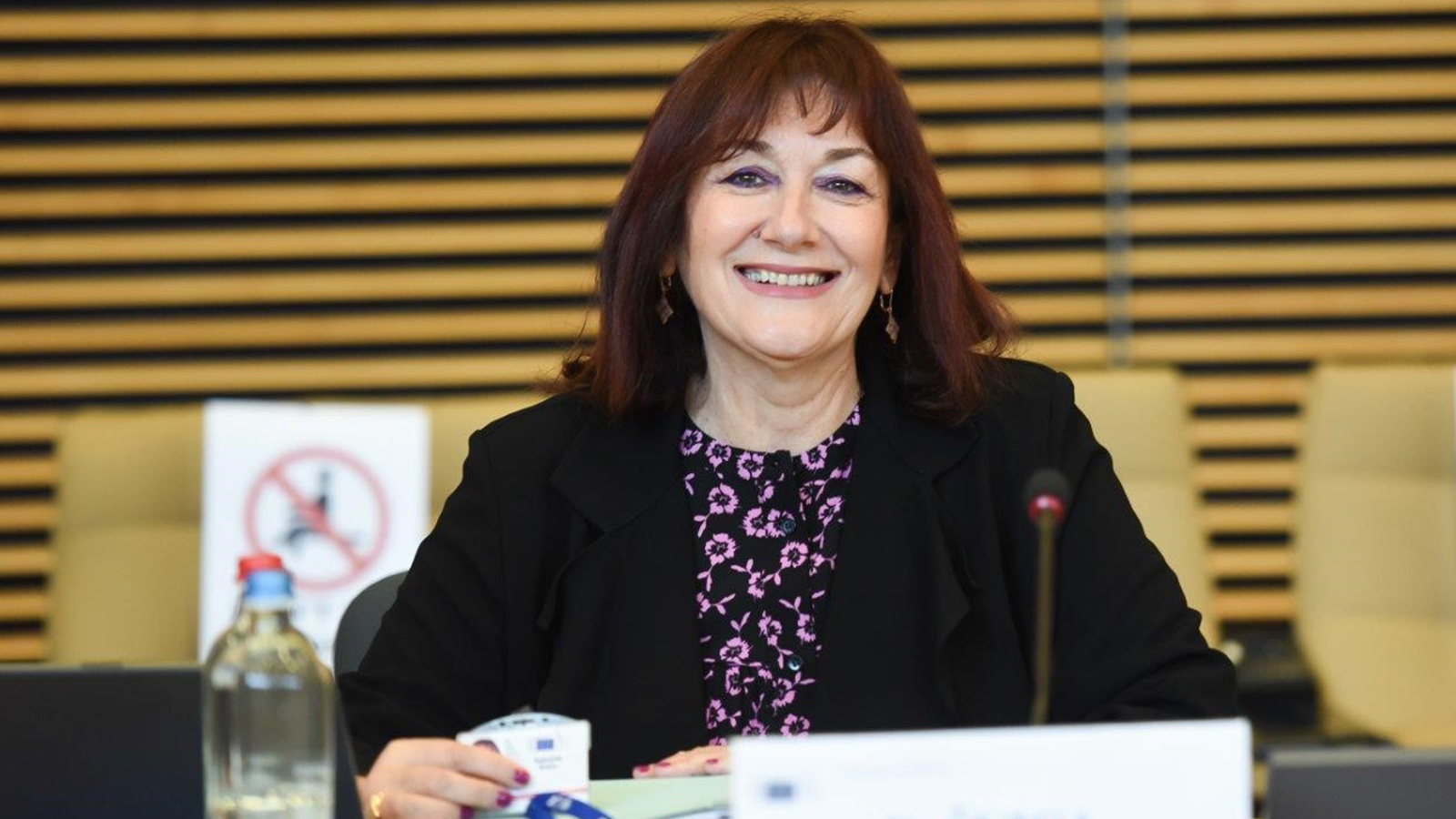
8 December 2021
“Democracy cannot be taken for granted”
Dubravka Suica is Vice President of the European Commission for Demography and Democracy and is Leading the Commission’s work on deliberative democracy and the Conference on the Future of Europe. As the Citizens’ Panels open a path towards new opportunities, we asked her about her perspective on her work, the challenges facing EU members States and the EU, and what it means to be a European today. •••
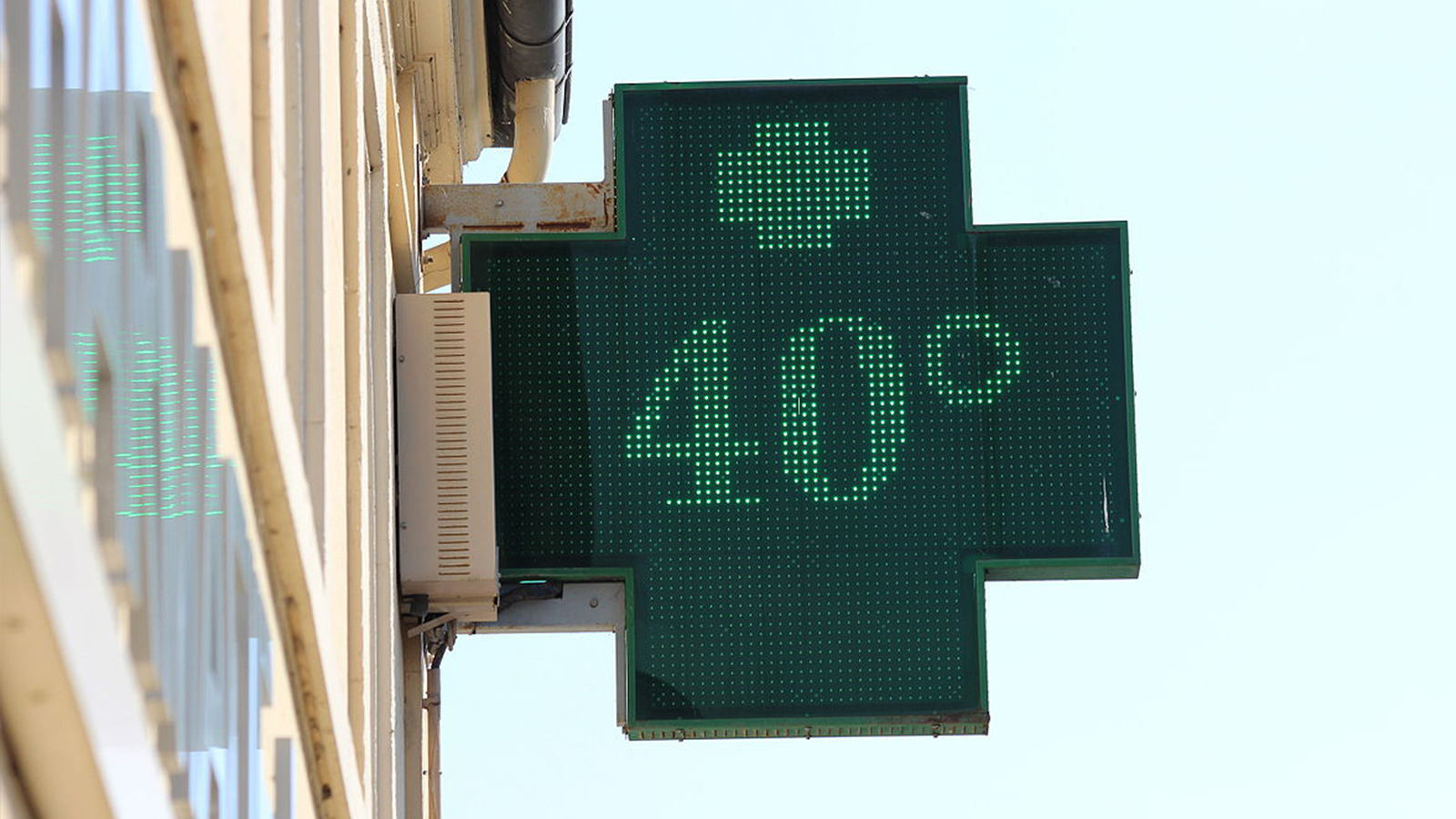
9 November 2021
"We are not equal when it comes to heat"
Climate change affects our physical and mental health. For Lisanne Groen, postdoctoral researcher at the Open Universiteit, global warming and mental health problems are intrinsically linked and allow us to address social issues such as inequality. She also discusses the need to consult with indigenous peoples and citizens for better policy responses. •••
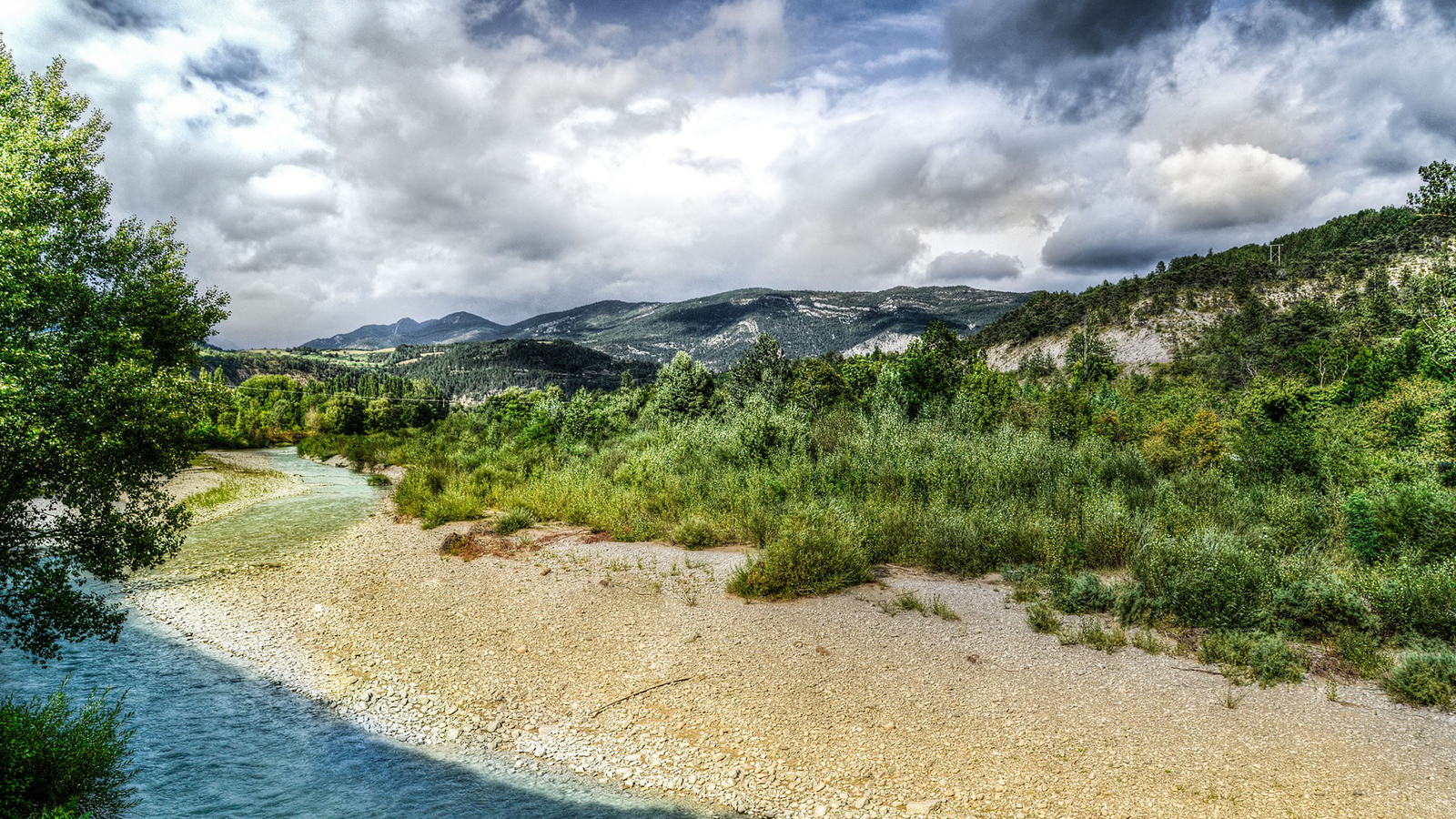
9 November 2021
Giving a voice to the Rhône River with a Citizens’ Assembly
Frédéric Pitaval is Head of Id-eau, a Swiss organisation for the protection and promotion of freshwater. In the continuity of its fight to have the Franco-Swiss Rhône River recognised as a legal entity, the organisation is launching a Citizens’ Assembly with the help of Missions Publiques. Is the law of nature a lever to fight against global warming? How does such a citizens’ assembly fit into a sustainable vision? Frédéric Pitaval explains what he expects from this participatory initiative. •••
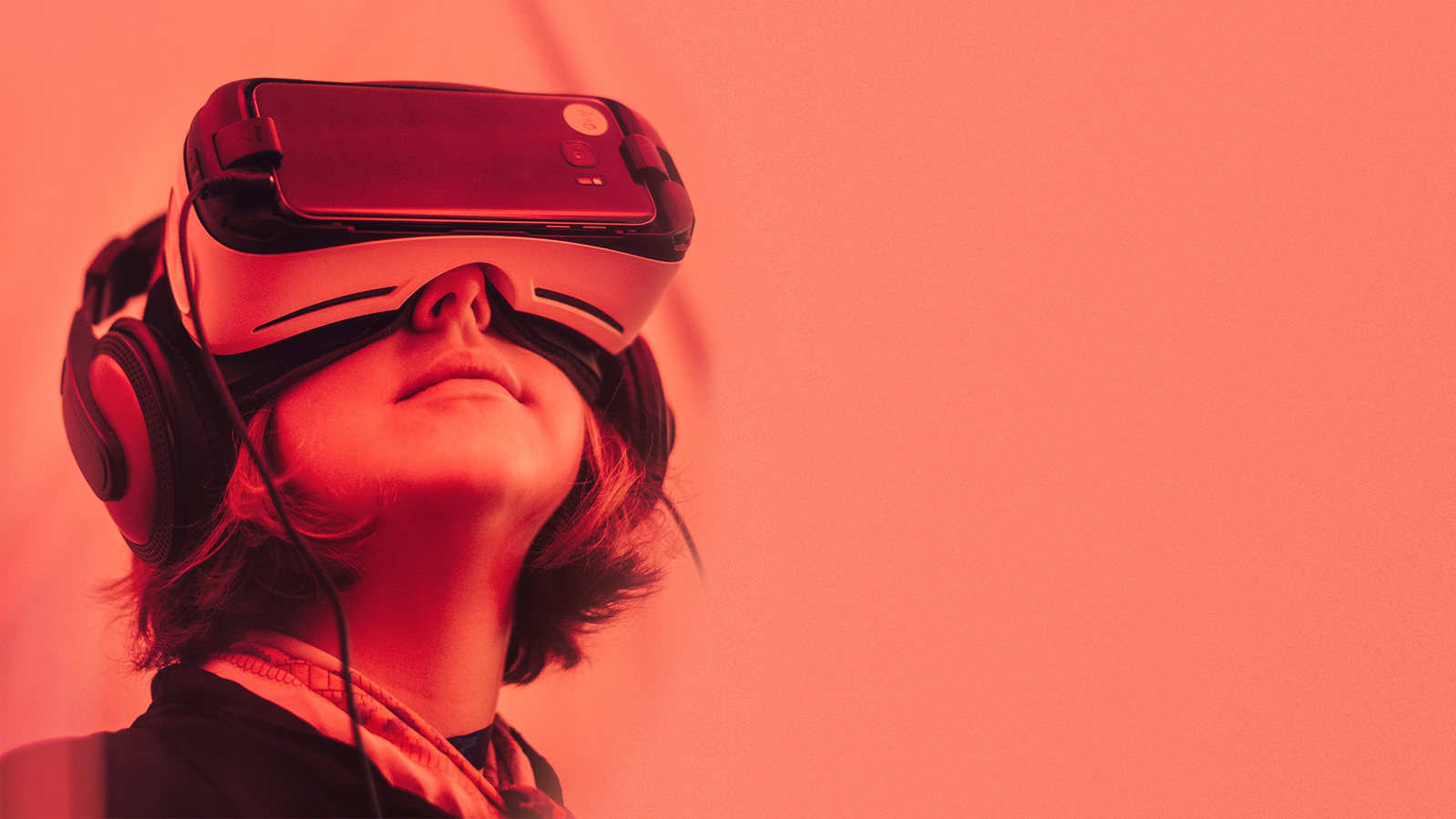
2 November 2021
Will virtual reality make its way into deliberative projects?
The field of application of virtual reality is widening. Initially conceived by and for the world of video games, virtual reality and the metaverse continue to attract professional actors in culture, education and even transport. When and how will virtual reality reach the world of citizen participation? Can it overcome the limitations of the current online dialogue platforms? We are launching an action research project on these technological developments with Arizona State University and the Elyx Foundation. •••

1 November 2021
When parliamentarians and citizens submit recommendations to the Parliament together
The French Climate Convention for Businesses starts in September. 150 leaders will meet for 8 months to co-construct roadmaps aligning their companies with European objectives: the reduction of 55% of greenhouse gas emissions by 2030 but also the regeneration of biodiversity and the writing of a desirable economic future. Eric Duverger, initiator and co-founder of the CCB, highlights its goals and its differences with the Citizens' Convention for Climate. •••

7 October 2021
"The EU's place in the world is a good entry point for deliberations"
Giulia Scalettaris is a lecturer in Political Science at the University of Lille, where she co-directs the Master in Humanitarian Action. Since her doctorate in anthropology from the École des hautes études en sciences sociales (Paris) with a thesis on the intervention of the Office of the High Commissioner for Refugees in the Afghan crisis, she continues to work on international asylum policies from the Afghan case. In the framework of the Conference on the Future of Europe, and the Citizens' Panels, Giulia comes back on the panel "The EU in the world / migrations" and offers us keys to bring the highly sensitive issue of immigration to the table of citizens. •••

7 October 2021
The story behind our new participatory installations
Last december, we had discussed our project “An itinerant venue for citizen participation” with architect Luc Schuiten in an interview entitled “An ideal place for public dialogue”. Today, our ideal place for public dialogue through deliberation is taking shape! Let’s have a look at how it all started, from its conception with Luc Schuiten to the live inauguration of two prototypes of the participative installations in our Brussels office last week. •••
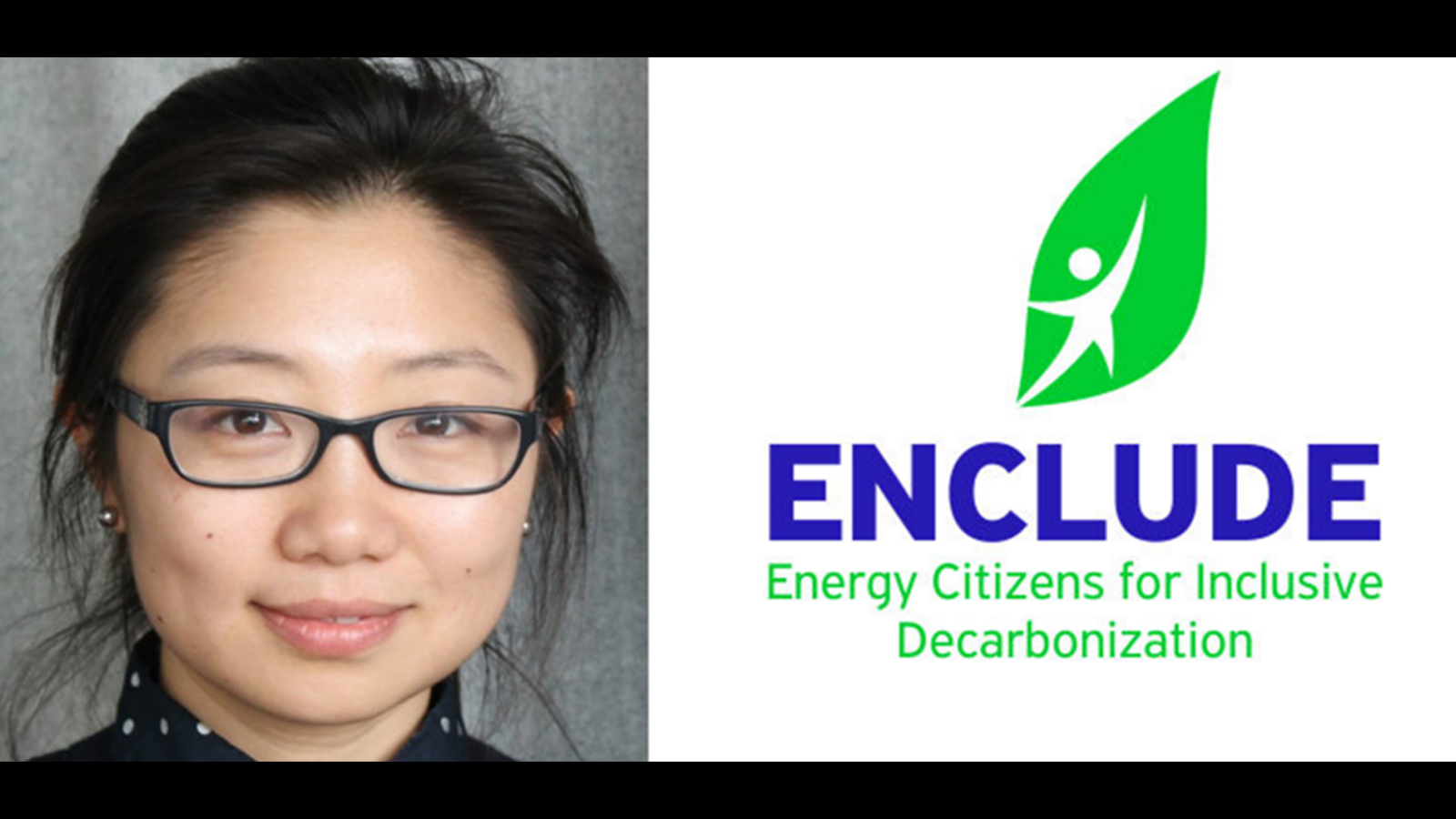
9 September 2021
“Progress means getting a grip on problems before finding solutions”
BinBin Pearce is a senior researcher and lecturer as a part of the USYS TdLab in Zürich and focuses her research on how stakeholders and experts can jointly identify, frame and act upon complex problems on diverse topics within the field of sustainable development (e.g., water use and sanitation, waste management, peace policy, etc.). •••
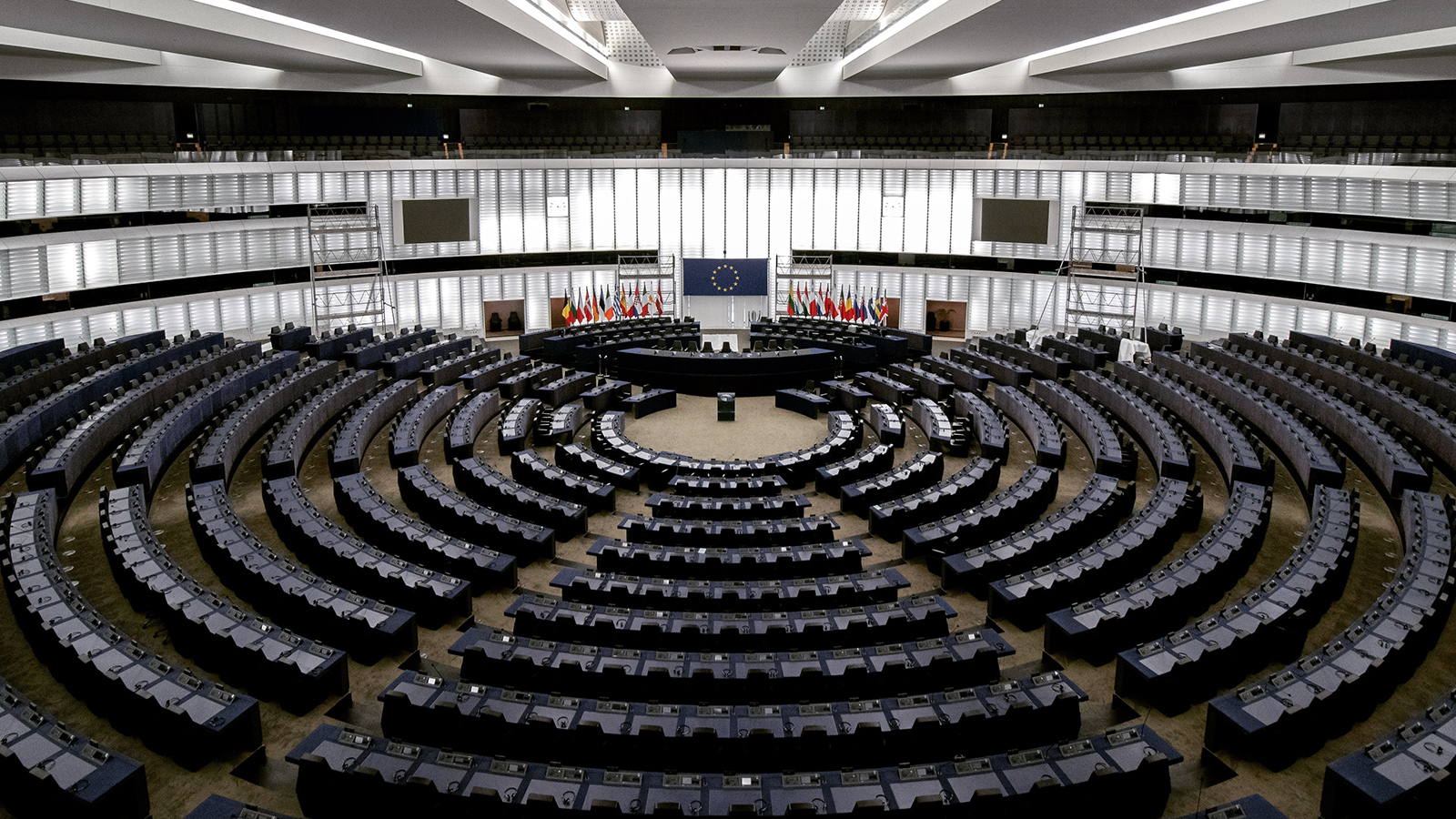
8 September 2021
"Democracy and European values": analysis of a CoFoE Citizens' Panel with Olivier Costa (CNRS)
A few days before the first Citizens' Panel of the Conference on the Future of Europe, Missions Publiques met Olivier Costa, Director of Research at the CNRS Cevipof, the Political Research Centre of Sciences Po, one of the best experts on the European Union. He discusses the choice of theme for the 3rd Citizens' Panel, which will focus in part on the common values of the European Union. •••

26 July 2021
The Franco-German Dialogue wins the 2021 European Citizen Prize
The Franco-German dialogue on strengthening cross-border cooperation within the framework of COVID-19 is the French winner of the 2021 European Citizen Prize. This participatory approach was initiated by Missions Publiques, alongside Particip Action, the Grand Est region and the German Land of Baden-Württemberg. This prize, given by the European Parliament in France, rewards initiatives that promote better understanding and integration between European citizens. •••
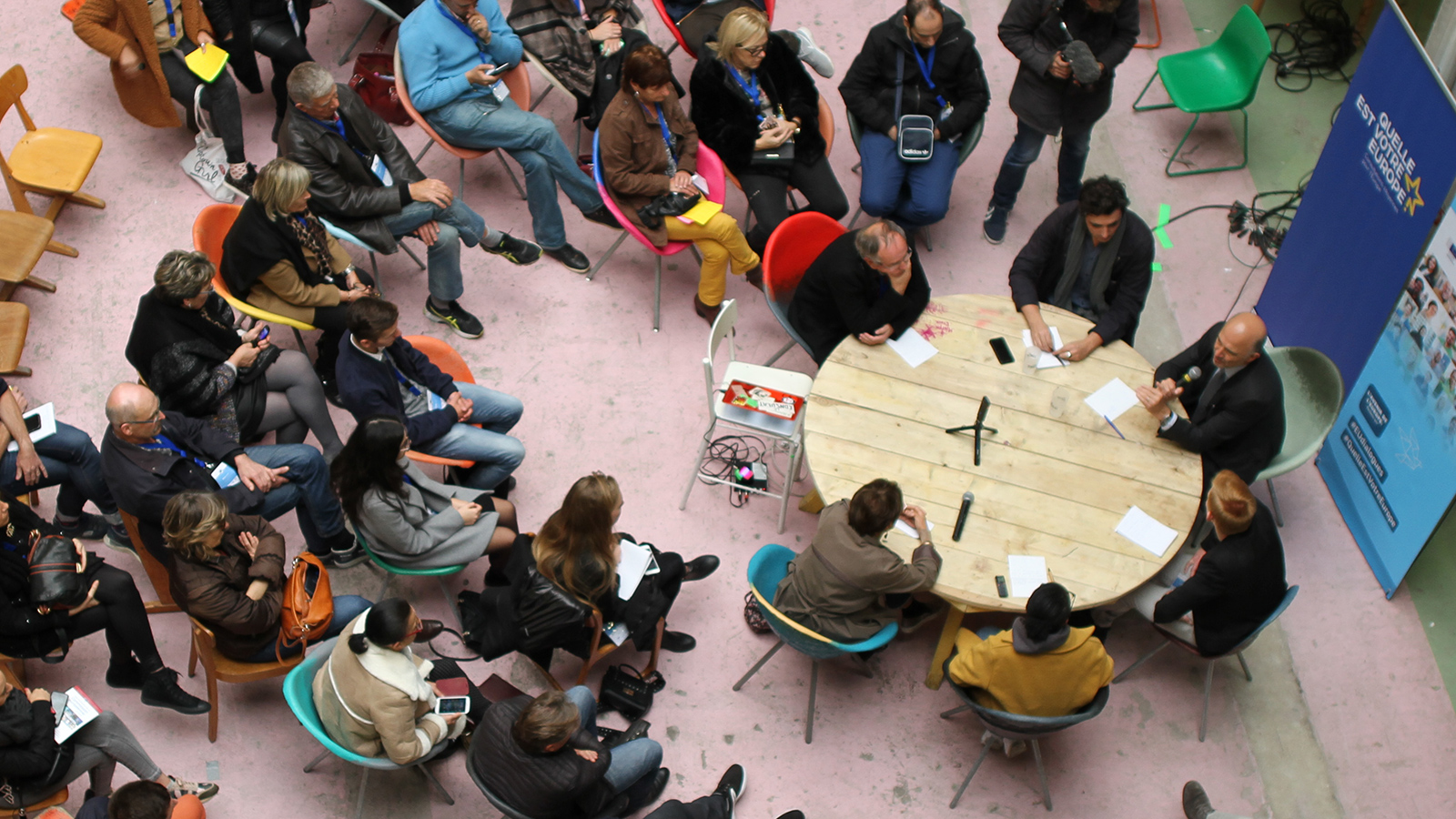
7 July 2021
By involving MEPs into the Agoras, they will feel a closer connection to their constituencies
The Conference on the Future of Europe is already in full swing but despite its noble aspirations, the process may need support from civil society to reach out to people at local, regional and national levels and bring their recommendations to the Conference’s Plenary discussions. Coordinated by the European Policy Center, the Moving EuropE Together (MEET) project will run alongside and interact with the Conference on the Future of Europe, connecting people, ideas and policies across borders. Paul Butcher and Johannes Greubel are both Policy Analysts in the European Policy Center and have agreed to explain to us why the MEET project is such a timely endeavor for the EU and its citizens. •••
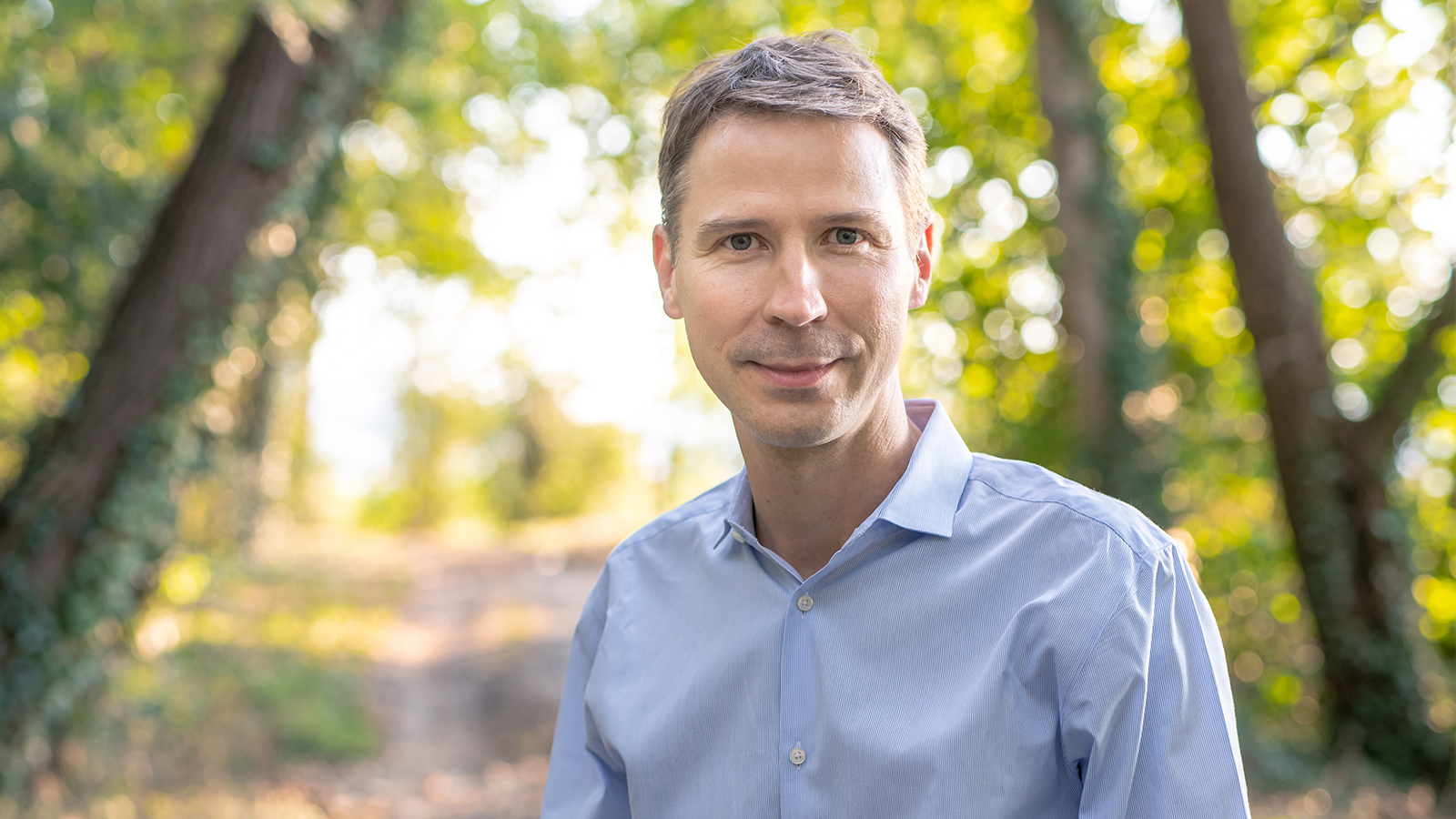
7 July 2021
"Addressing the divide between ecological urgency and economic priorities"
The French Climate Convention for Businesses starts in September. 150 leaders will meet for 8 months to co-construct roadmaps aligning their companies with European objectives: the reduction of 55% of greenhouse gas emissions by 2030 but also the regeneration of biodiversity and the writing of a desirable economic future. Eric Duverger, initiator and co-founder of the CCB, highlights its goals and its differences with the Citizens' Convention for Climate. •••
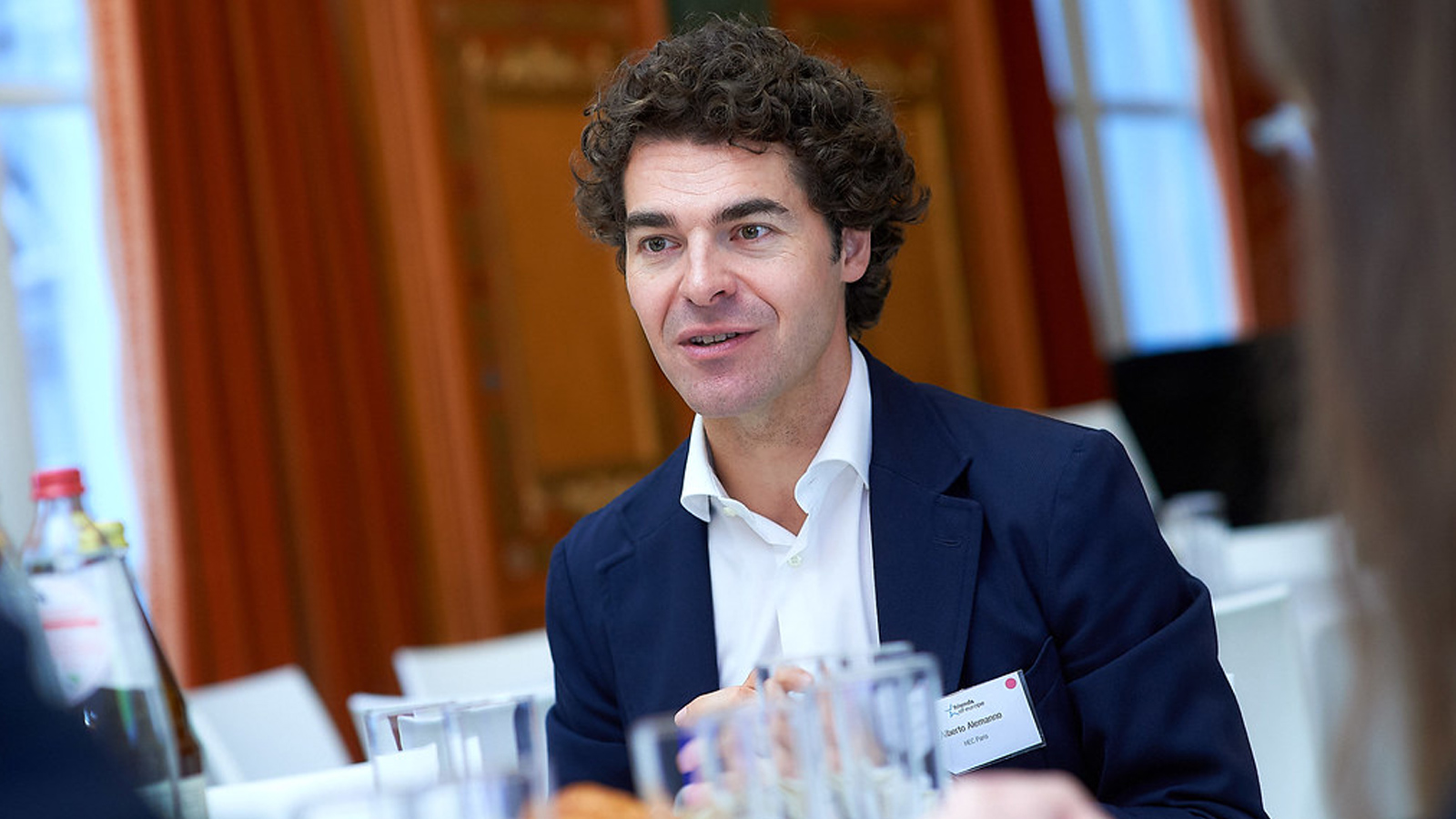
7 July 2021
“The Conference on the Future of Europe is the first exercise that the European institutions do not fully control”
Alberto Alemanno is an academic, civic advocate and one of the leading voices on the democratization of the European Union . He initially dismissed the Conference on the Future of Europe as yet another top-down attempt to fix EU’s democratic deficit before becoming one of his champions. He shared with us his views on the role that citizens' Panels might play during and after the Conference. •••
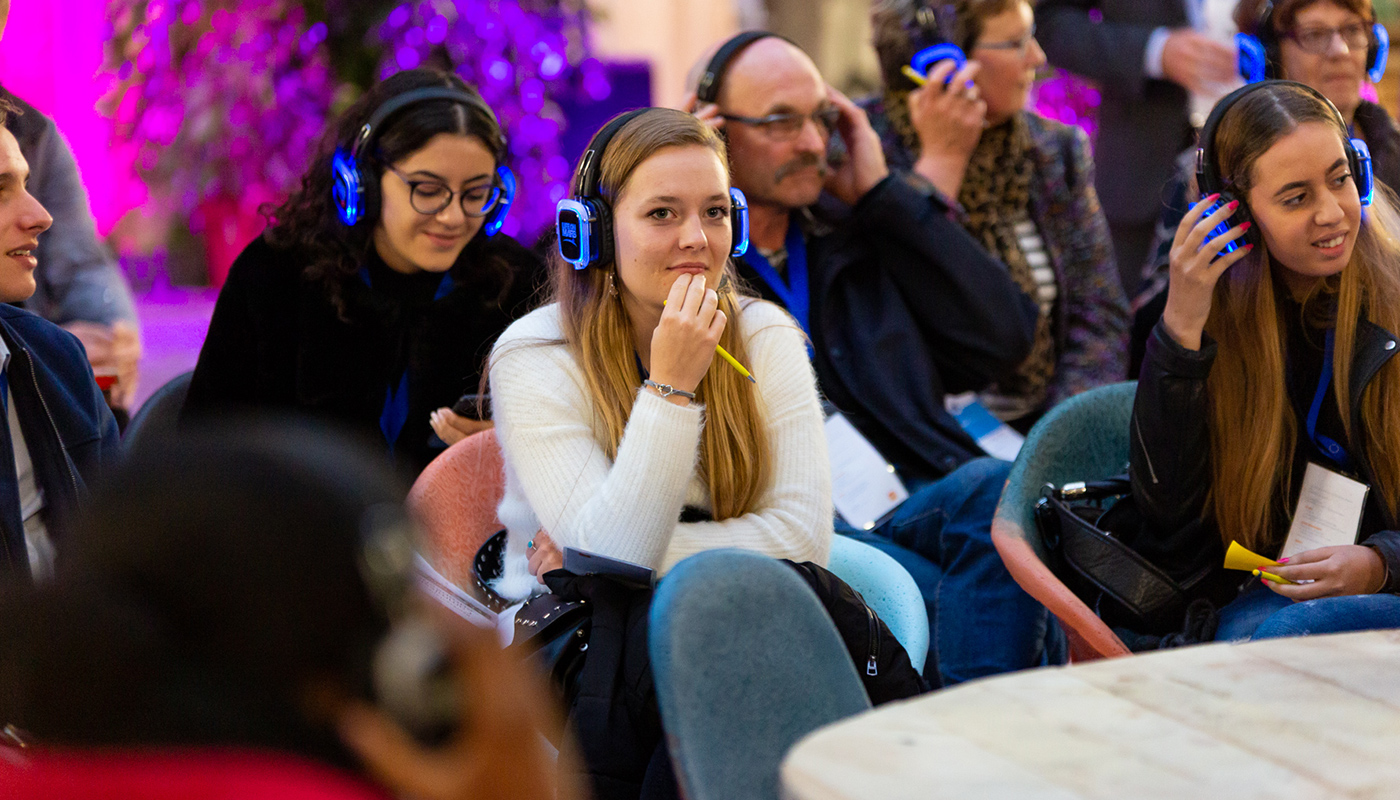
10 June 2021
Conference on the Future of Europe: towards a renewed European project with citizens?
The Conference on the Future of Europe (CoFoE) was officially launched on 9 May 2021. Scheduled to last one year, its ambition is to establish a programme for the Europe of tomorrow based on the proposals of European citizens. In order for the CoFoE to be an effective success, and to make the voices of Europeans heard, the process will rely on powerful participation methods, including transnational Citizens' Panels and a Digital Platform. •••
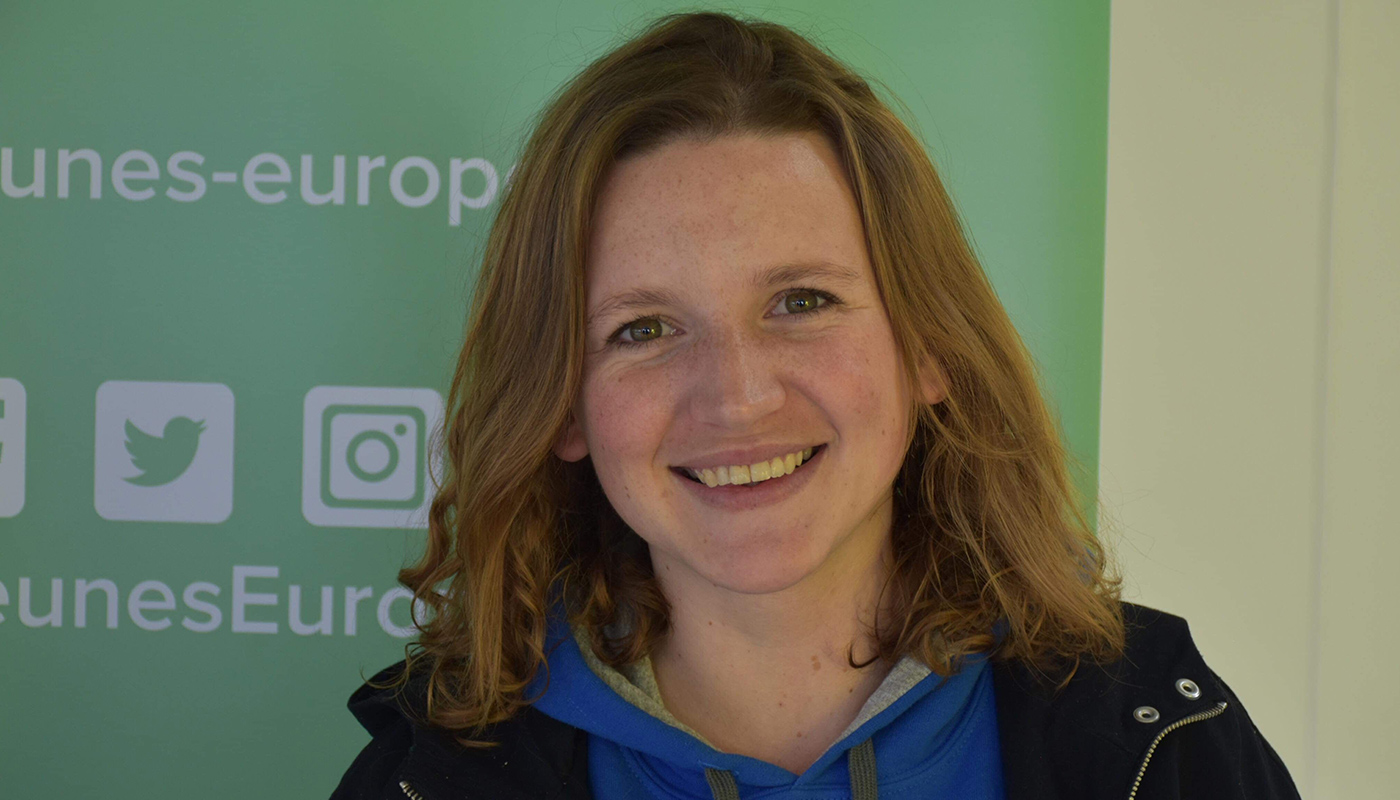
9 June 2021
"Europe must take a step towards its citizens”
The European Movement – France has been mobilising since 1950, across all generations, to promote a pluralist public debate on Europe. Marie Caillaud, elected President of the Young Europeans, tells us what are for her the stakes of the Conference on the Future of Europe, brings together the 27 countries of the EU around key themes such as the democratic crisis and global warming. She explains her programme, which is already underway, to make the European citizen a citizen who decides. •••
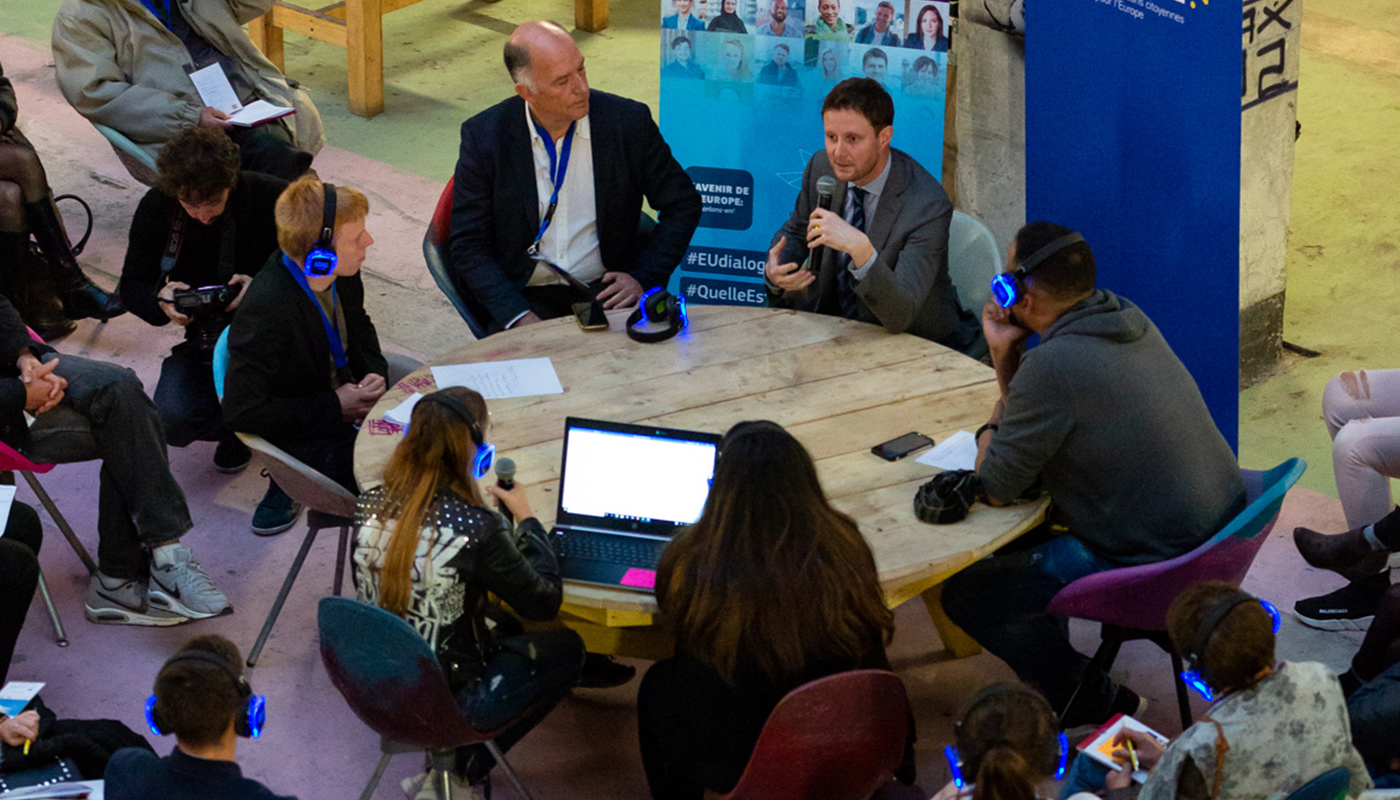
9 June 2021
CoFoE, a springboard for European democracy?
The Conference on the Future of Europe - CoFoE - was officially launched on May 9. Scheduled to last one year, its ambition is to allow "every" citizen to participate in the debate on the future of Europe. In a context of growing mistrust of the institutions, the backdrop of Brexit, the challenge is considerable. And for the CoFoE to be an effective success, i.e. for the voice of Europeans to be heard, Citizens' Panels will soon be set up. •••
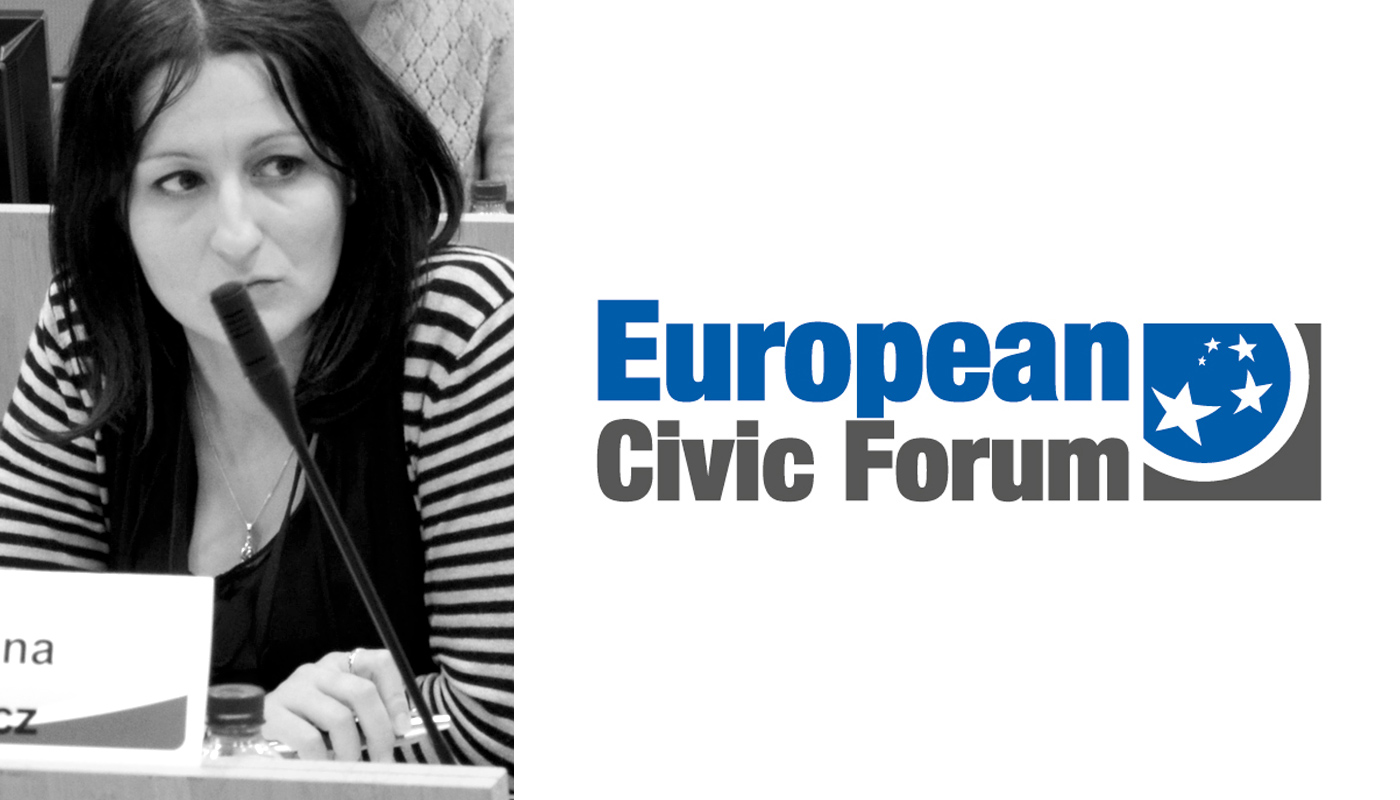
9 June 2021
“To rehabilitate European democracy, we must build on the bonds that bring us together”
Alexandrina Najmowicz is the Secretary General of the European Civic Forum (FCE), a network that brings together more than a hundred associations and NGOs across 27 European countries. Co-chair of the Civil Convention on the Future of Europe, she explains the ambitions and challenges of the ECF and the role of civil society organizations in the Conference on the Future of Europe. •••
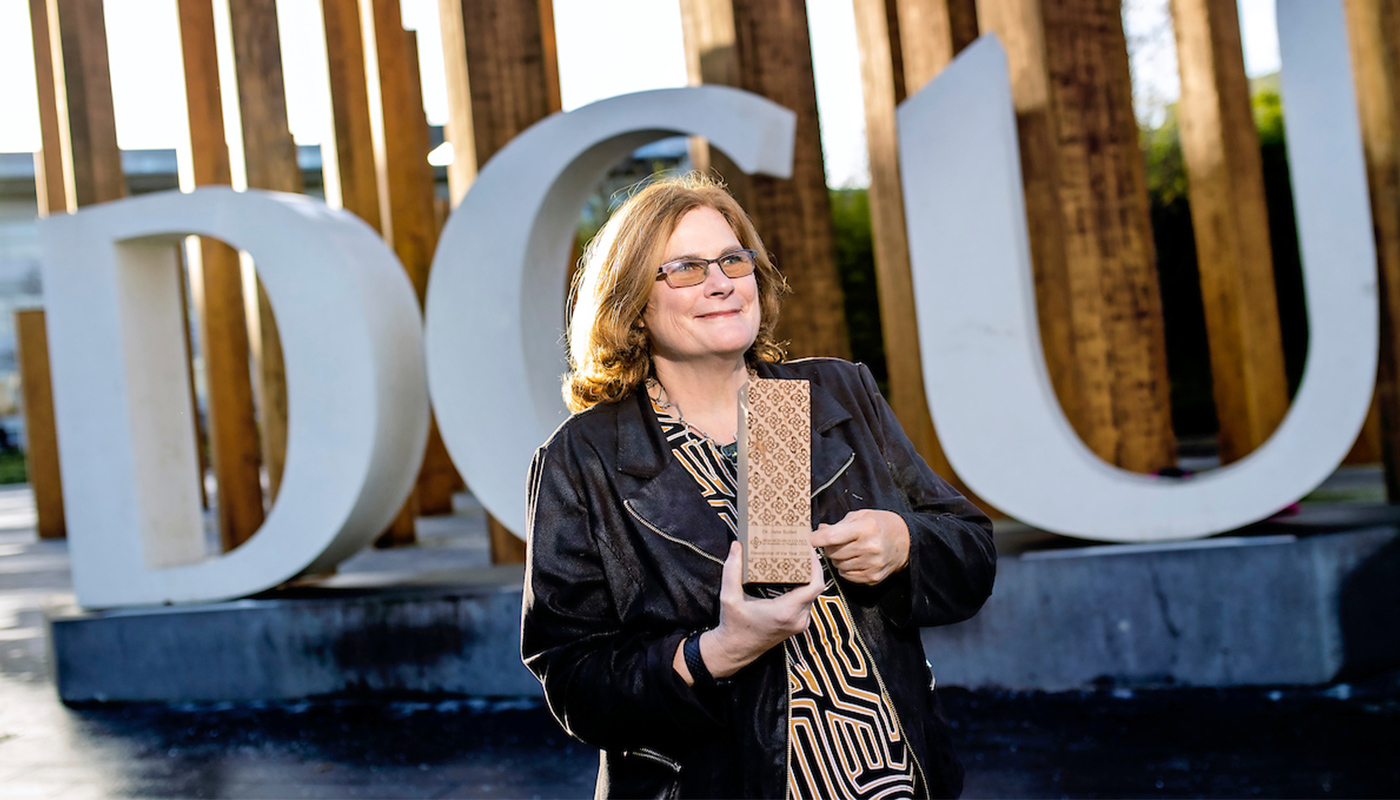
12 May 2021
From gender equality to peacebuilding in Northern Ireland: the power of Irish citizen assemblies
Dr. Jane Suiter is a Professor at Dublin City University. She is also the senior Research Fellow on the Irish Citizens’ Assembly on gender equality and is co-PI on the Irish Citizen Assembly (2016-2018) and the Irish Constitutional Convention (2012-2014) and a founder member of We the Citizens (2011), Ireland’s first deliberative experiment. She analyses the incredible momentum the Irish assemblies had on the country’s private, public and political sphere and looks ahead at how Northern Ireland could achieve peacebuilding through citizen participation. •••

12 May 2021
“Emotion, sensitivity and color arise if you listen to citizens”
Paul Vermeylen is a Belgian urban planner and a specialist in European cities and citizen devices. It is in this capacity that he agreed to be a member of the scientific committee of our project the on the Future of intermediate cities. He explains to us the challenges of the city of tomorrow, and imagines a city that reconnects with the senses, collective life, the memory of time and nature. •••
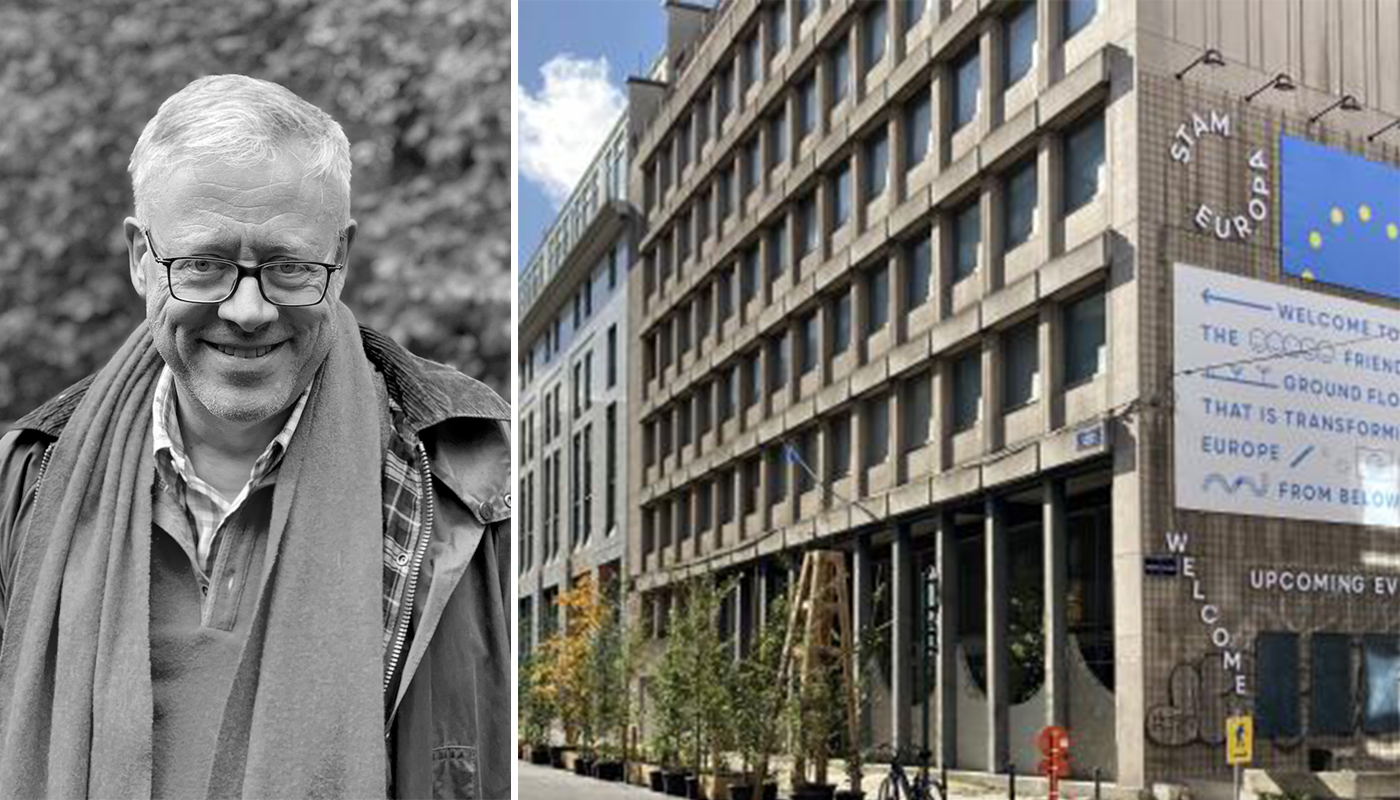
12 May 2021
StamEuropa, the place where Europeans feel at home
Alain Deneef is a Belgian entrepreneur who has set out to design and build a place for European democratic dialogue. StamEuropa is located in the heart of the European district of Brussels, a physical and virtual place where "Europe is at home and where European citizens feel at home in Europe". •••

12 April 2021
“The age of national borders is behind us!”
The Franco-German Citizens' dialogue on strengthening cross-border cooperation in the context of COVID-19 is an initiative of Missions Publiques and aims to bring together citizens from each side of the border in working sessions. Their mission: to help make cooperation arrangements more resilient to crises. The project is supported by the Franco-German Citizens' Fund. •••
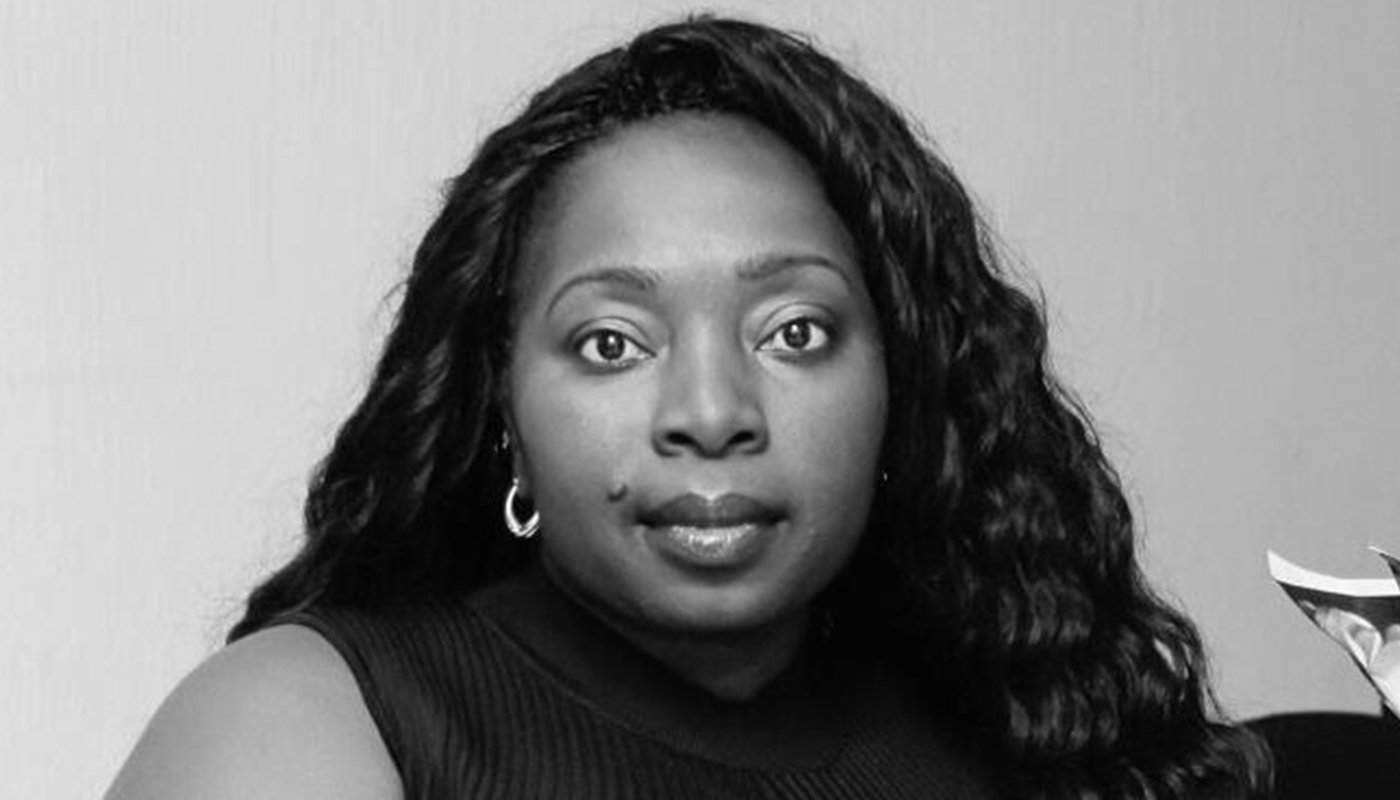
12 April 2021
"Developers must talk to sociologists and gender-scholars to ensure inclusion in tech solutions.”
Caroline Wamala-Larsson has been involved in tech since her early years. Born in Uganda, she was very early on confronted with the lack of Internet access among the women that surrounded her. Missions Publiques met Caroline as we collaborate on EQUALS EU, a European project to develop inclusive tech solutions in Europe. •••
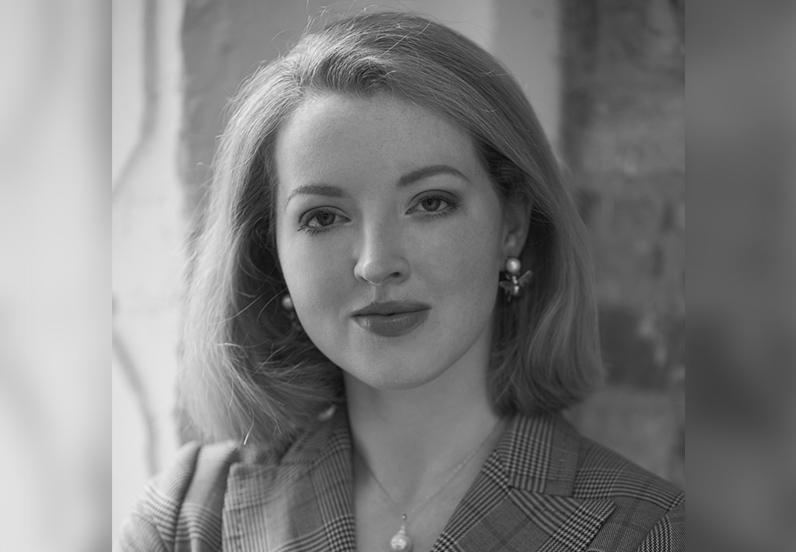
12 April 2021
“There is a real need to reset how we make decisions”
Joanna is a writer, consultant and Steering Committee member of the Constitution Reform Group, a cross-party organization which seeks a new constitutional settlement for the UK. Today she draws a parallel between her work with the Constitution Reform Group and citizen engagement and participation. •••

22 March 2021
Baden-Württemberg and Grand-Est: making the region a "laboratory" for integration and cooperation
The citizens of Baden-Württemberg and the Grand Est will soon begin the second session of the Franco-German citizen dialogue on cross-border cooperation in the time of Covid-19. Manon Potet, project coordinator at Missions Publiques, looks back at the issues at stake in this deliberative process and gives us an overview of the recommendations drawn up by the participants on both sides of the Rhine. •••
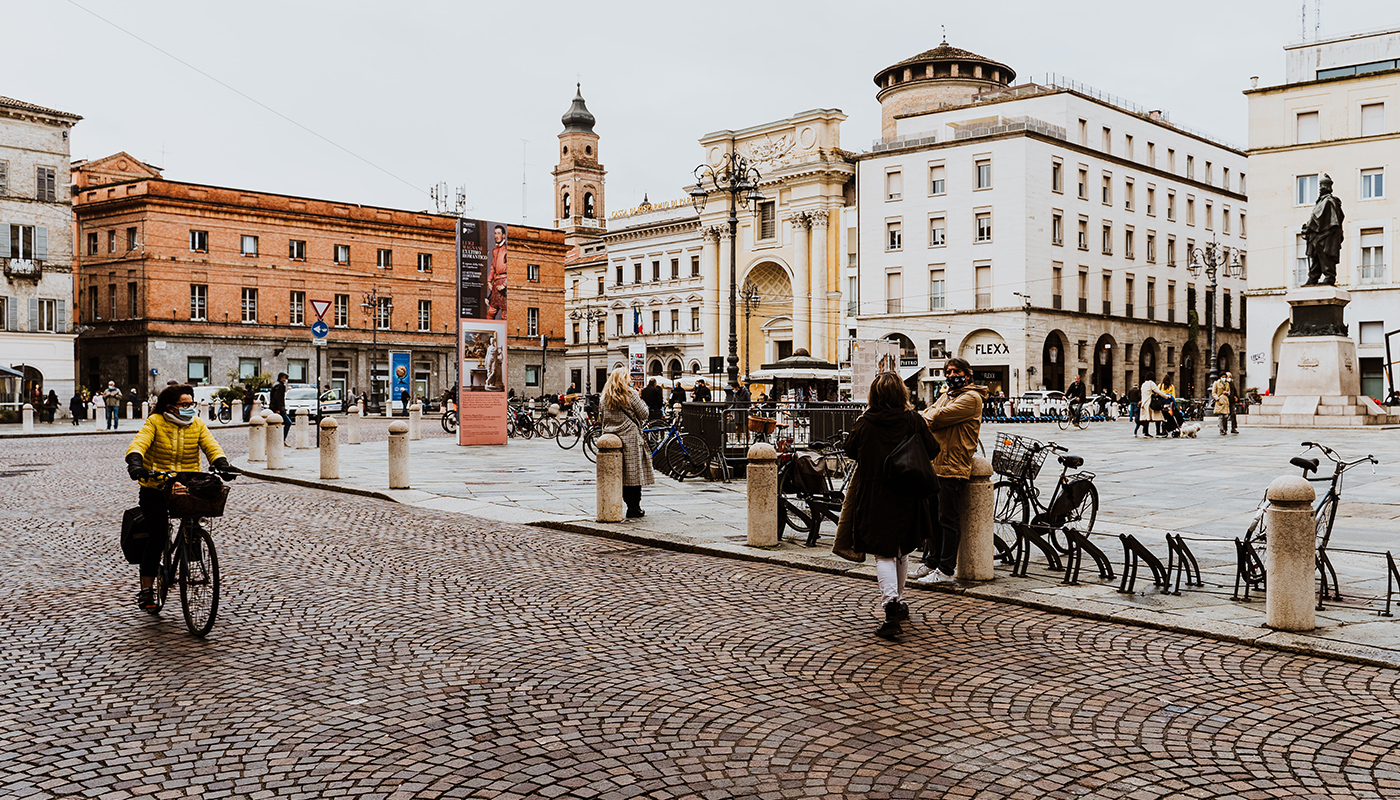
10 March 2021
“The pandemic is an opportunity to rethink the attractiveness of our intermediary cities”
Aziza Akhmouch is Head of the Cities, Urban policies and Sustainable Development Division at OECD Centre for Entrepreneurship, SMEs, Regions and Cities, and she believes it is necessary to raise the profile of intermediary cities in the research and the policy agenda, since they contribute to the goals of achieving smart, sustainable, and balanced urbanisation and growth in countries. •••

10 March 2021
Institutionalized deliberative processes: the Belgian example
At a time when in France, the Citizen Convention for the Climate is ending on a severe note for the government, Sophie Devillers comes back for us on the 2011 G1000, this citizen collective of 1,000 people drawn at random to discuss the future of Belgium at a time when the country was without an executive. •••
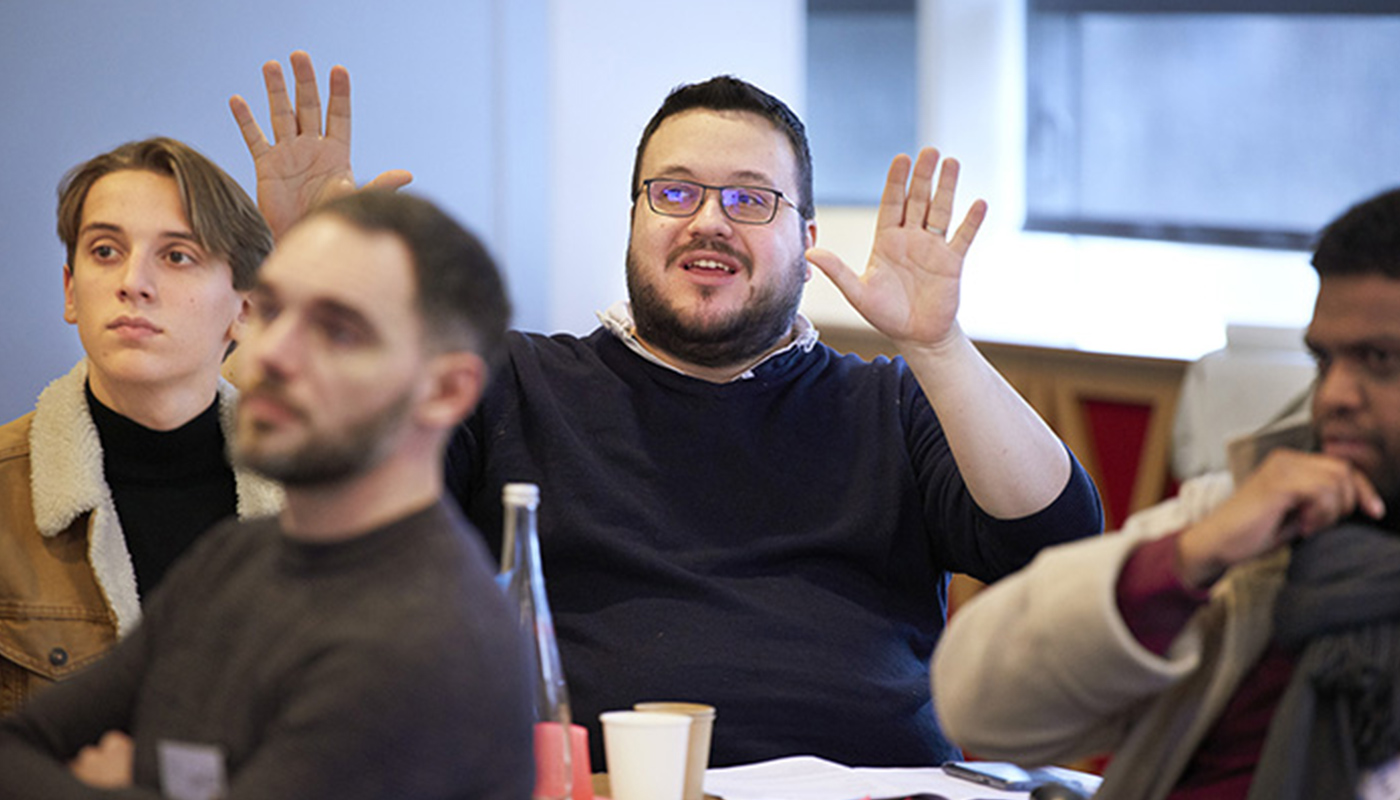
10 March 2021
"A slap in the face": becoming a climate activist after a deliberation
Grégoire Fraty is one of the 150 selected by lot for the Citizens' Climate Convention. 18 months of work that took him from ordinary citizen to militant citizen. A "marathon" commitment that he now intends to put to good use in his everyday life, and why not in politics. He tells us more about his book and the last session of the Convention. •••

11 February 2021
"Making people's desires known helps to see the world differently"
Sylvie Landriève is co-director of Mobile Lives Forum. The research institute works autonomously on physical and social mobility with the aim of preparing the transition towards desired and more sustainable lifestyles. Convinced that people are the best experts regarding their own lives, Sylvie Landriève sheds light on the Forum, a participatory approach to involve citizens in the development of new lifestyles. •••
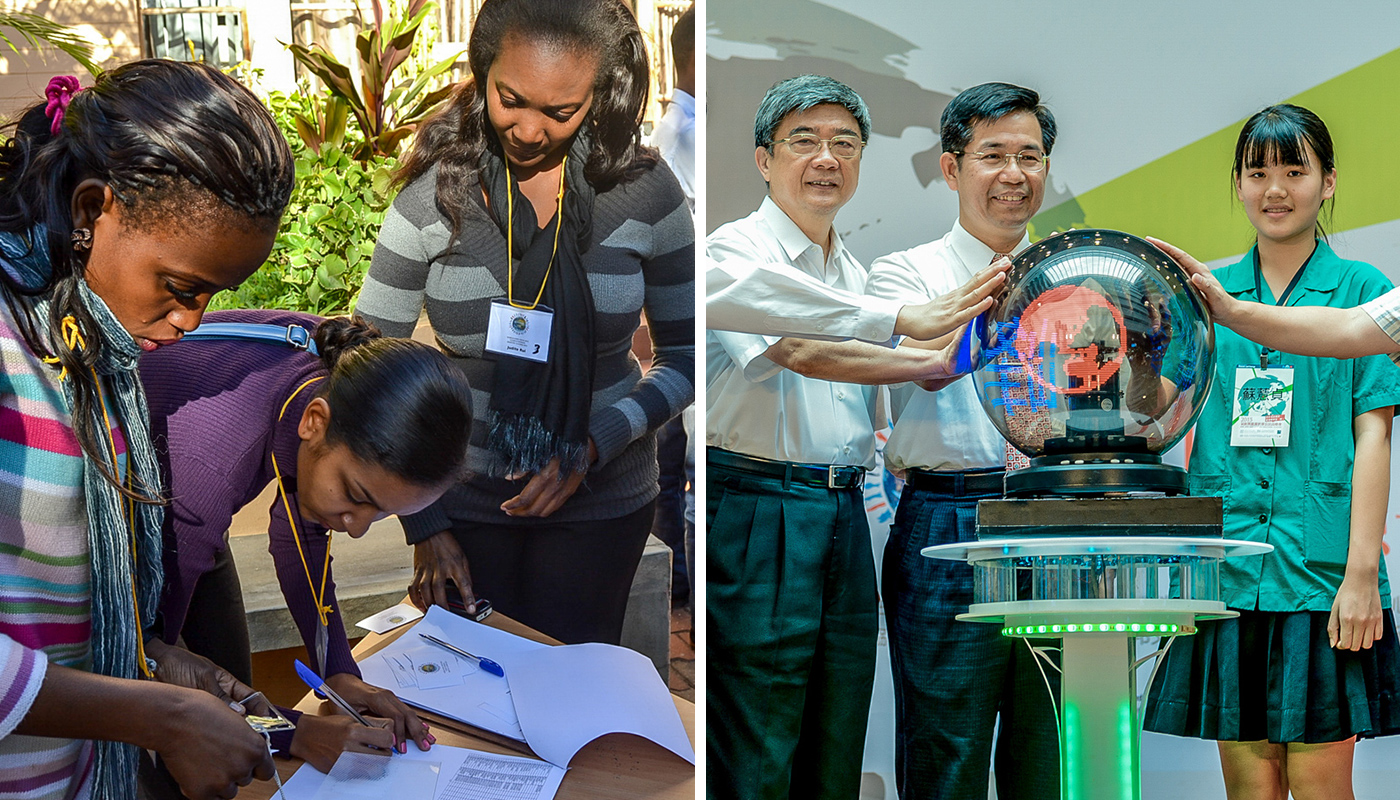
11 February 2021
Global warming: when citizens were ahead of the curve
Governments in many countries are still reluctant to take strong measures to fight global warming, considering that citizens are not ready for the changes these will have on their day-to-day lives. In 2015, a global citizens' dialogue on climate and energy (WorldWideViews on climate and energy) had silenced this rather false idea. What if, back then, we had listened to them? •••
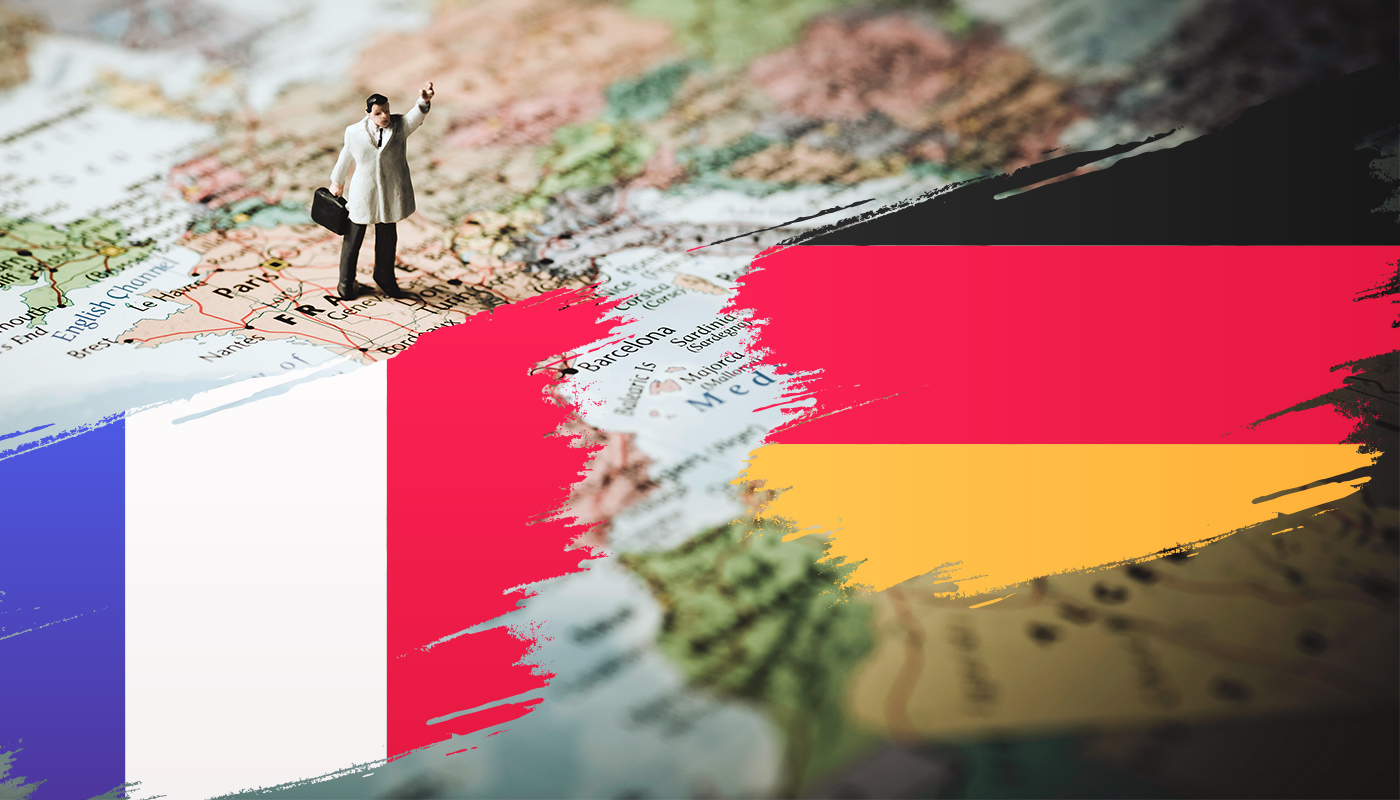
11 February 2021
France-Germany: cross-border cooperation during Covid-19
What is the reality of Franco-German cooperation in the midst of the pandemic? What are the experiences of crisis on both sides of the border? In order to take stock of the situation and initiate solutions for a more resilient territory, the Grand Est Region in France and the Land of Baden-Württemberg in Germany are organizing several sessions of deliberation. We met Muriel Temme, in charge of cross-border cooperation at the Grand Est Region and Timo Peters, advisor for citizen participation and civil society at the Ministry of Baden-Württemberg. •••
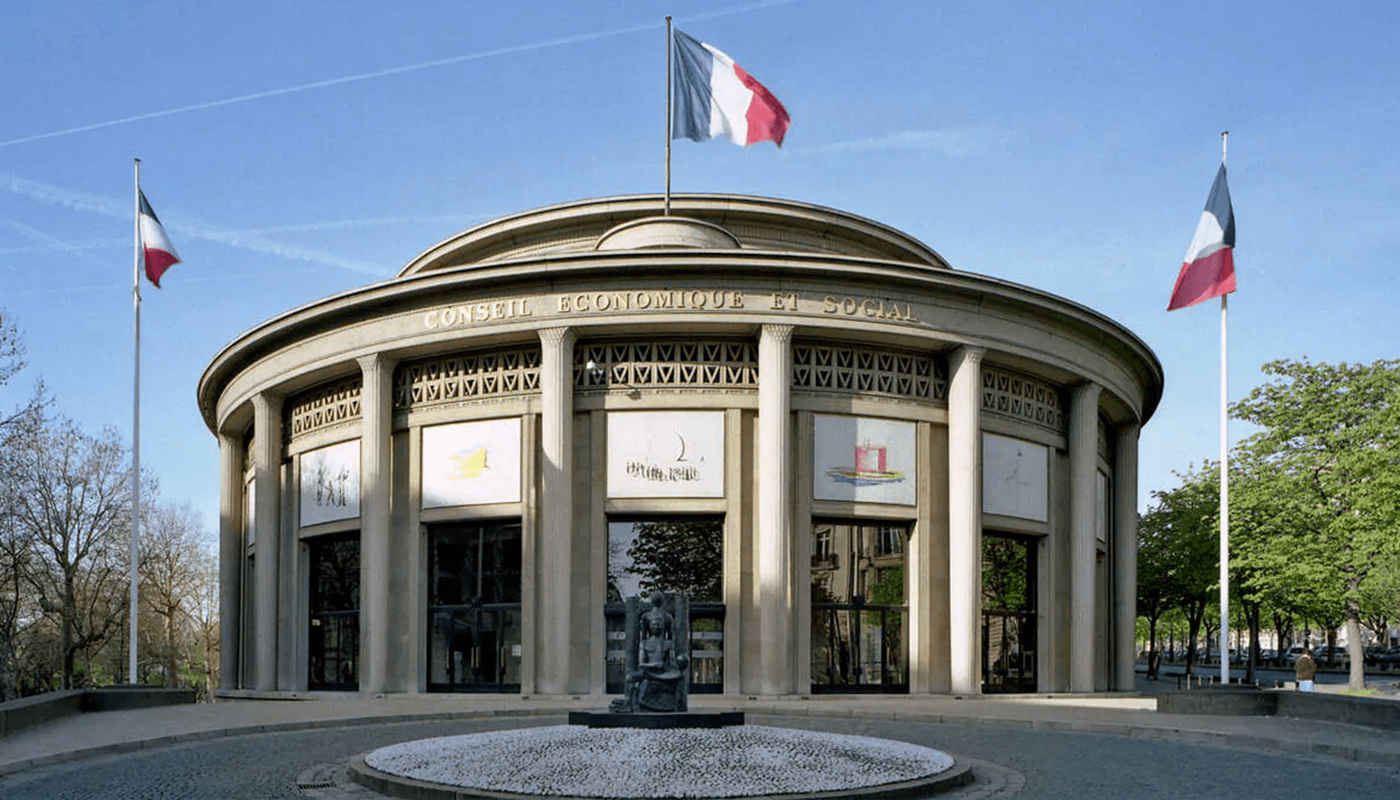
14 January 2021
Launch of citizens’ consultation on French COVID-19 vaccine campaign
As France boosts pace of its nation-wide vaccine campaign, French government has decided to refer the matter to the Economic, Social and Environmental Council (CESE) to monitor the Covid-19 vaccination strategy, at a time when 58% of French people do not wish to be vaccinated. But this skepticism goes way back. Already in 2016, Health Minister Marisol Touraine, worried about insufficient vaccination coverage and the resurgence of certain diseases in France, launched a public consultation through “Santé Publique France” to analyse the mechanisms and causes of this mistrust. •••

13 January 2021
2021: let's dream a little
At Missions Publiques, we have a wish for 2021: to bring to life the 21st century citizens' assembly. Let's dream a little. An assembly made up of 150 women and men, representing equally today's society but also other forms of life - animals, plants, oceans - and the 7th generation that will follow us. •••

8 January 2021
The ideal place for public dialogue? We designed it with architect Luc Schuiten
Places for citizen participation in our western societies are now almost non-existent and the spaces made available, be they town halls or reception halls, are not designed to make citizens feel comfortable enough to engage in dialogue under optimal conditions. On the basis of this observation, Missions Publiques and Luc Schuiten have imagined a space conducive to peaceful citizen debates. •••
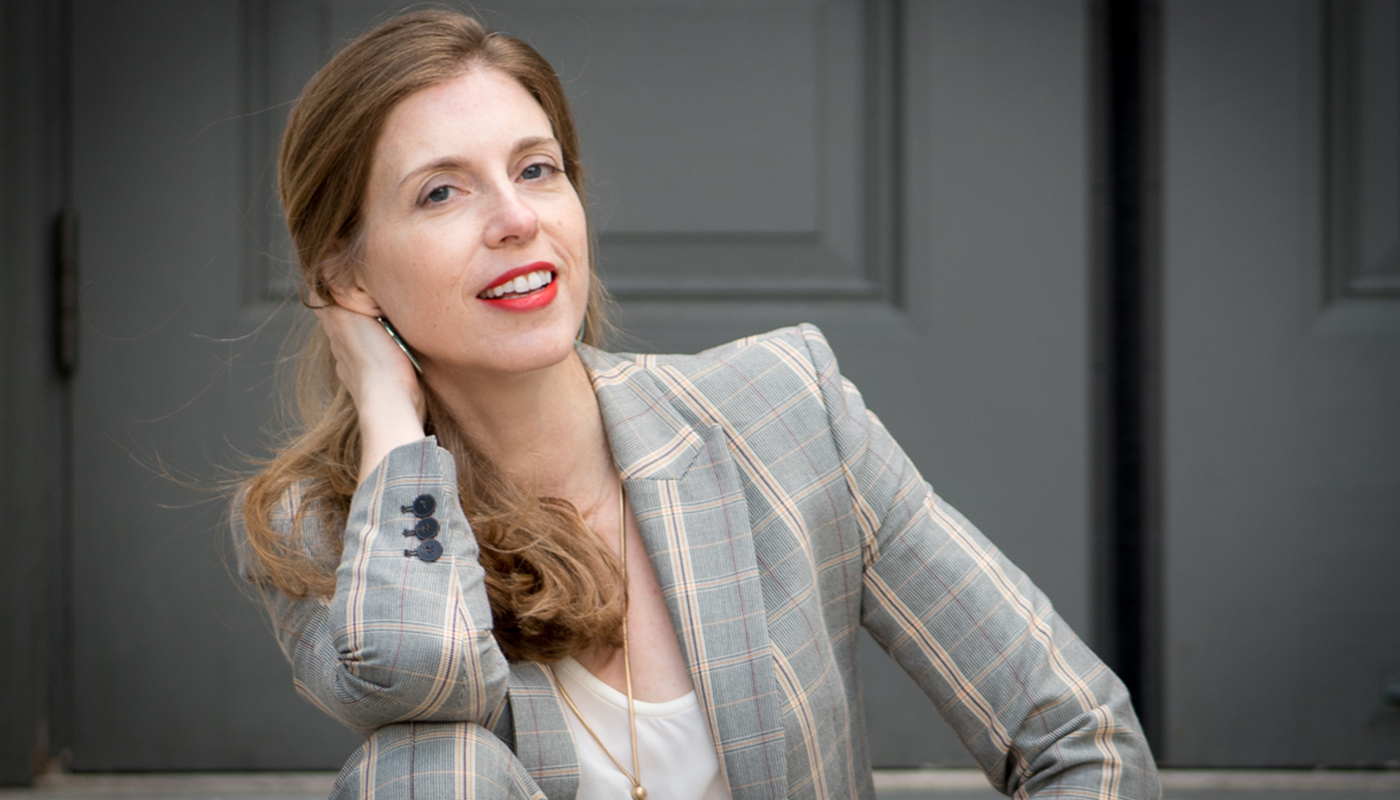
7 December 2020
“We must expect more from our ideal of democracy”
In her latest book "Open democracy: reinventing popular rule for the 21st century", Hélène Landemore, Associate Professor of Political Science at Yale University, envisions new non-electoral forms of democracy. For us, she looks back at the French Citizens' Climate Convention and imagines a future in which all the principles of genuine democracy, which she describes in her book, would have been adopted. A mere utopia? •••

7 December 2020
The Irish Citizens' Assembly, an example to follow?
Dimitri Courant, a French researcher in political science, observed the entire deliberations of the French Citizens' Climate Convention and the Irish Citizens' Assembly. For the sociologist, the Irish deliberation is a process that is more respectful of the norms of deliberative democracy but, by diverging from it, the French convention was able to produce more precise recommendations. •••
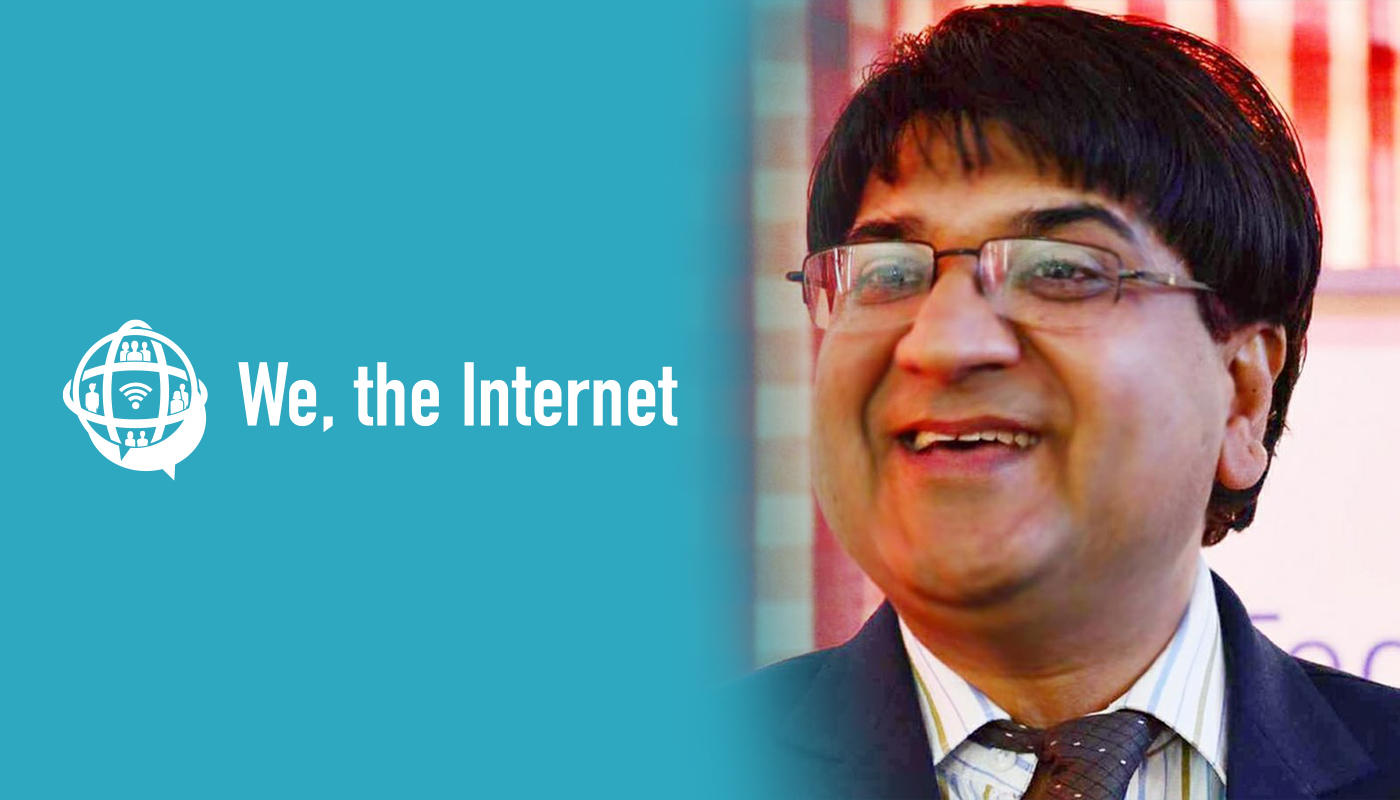
2 December 2020
Digital inclusion: bridging the divide with Professor DR. DP Sharma
People with disabilities are too often neglected or even forgotten in development processes, and their opinions as citizens are not, or very little, taken into account. This has been the struggle of a lifetime for Professor DR. DP Sharma, Indian computer scientist and disability rights activist. He has turned disability into ability through his fight against his own paralysis and his will to give power to those who need the “wings technology can offer”. •••

30 November 2020
They took a seat at the table. What did they think?
At first sight, one might be under the misconception that they have little in common, but they all played a key role in developing Internet Governance. In October, they participated in the Global Citizens’ Dialogue on the Future of Internet in their own countries and today they share with us their feelings, from worries to great expectations. •••
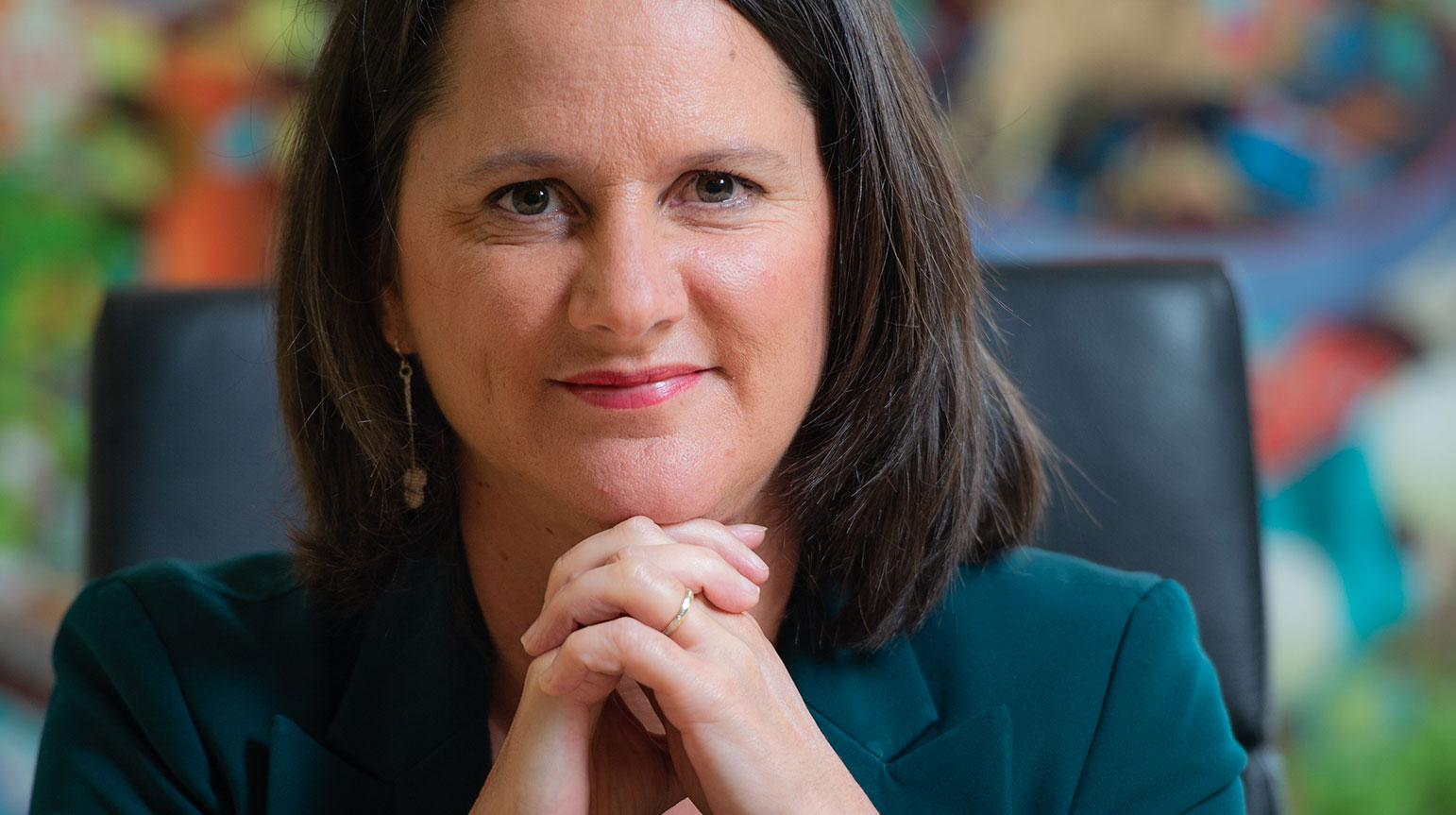
9 November 2020
"Participatory democracy must continue in these moments of crisis”
Nantes, the hub of Western France, is launching a Citizens' Convention across the entire region. 80 inhabitants from the 24 towns are invited to discuss the impacts of the health crisis. Their recommendations will feed into the city's draft mandate. Johanna Rolland, mayor of Nantes, speaks of the need for this democratic exercise which she has chosen to maintain - online - despite the lockdown. •••
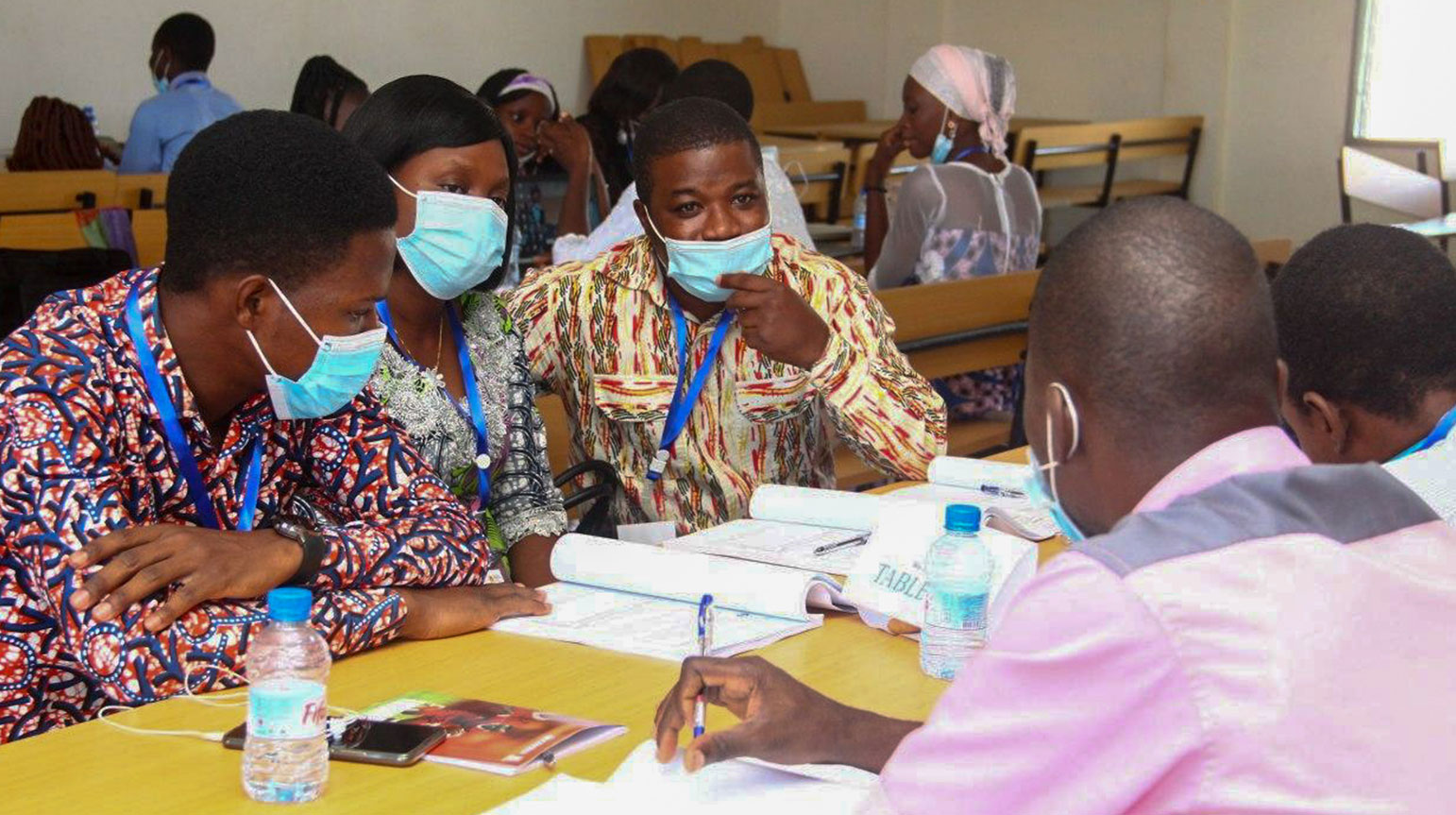
9 November 2020
What citizens think about the Internet and its future
We the Internet was conducted in over 70 countries around the world. This global deliberation on the future of the Internet has one main objective: to test, improve and institutionalize internet governance with and for citizens. During the 15th edition of the Internet Governance Forum (IGF), we revealed preliminary results to decision-makers at global level. •••
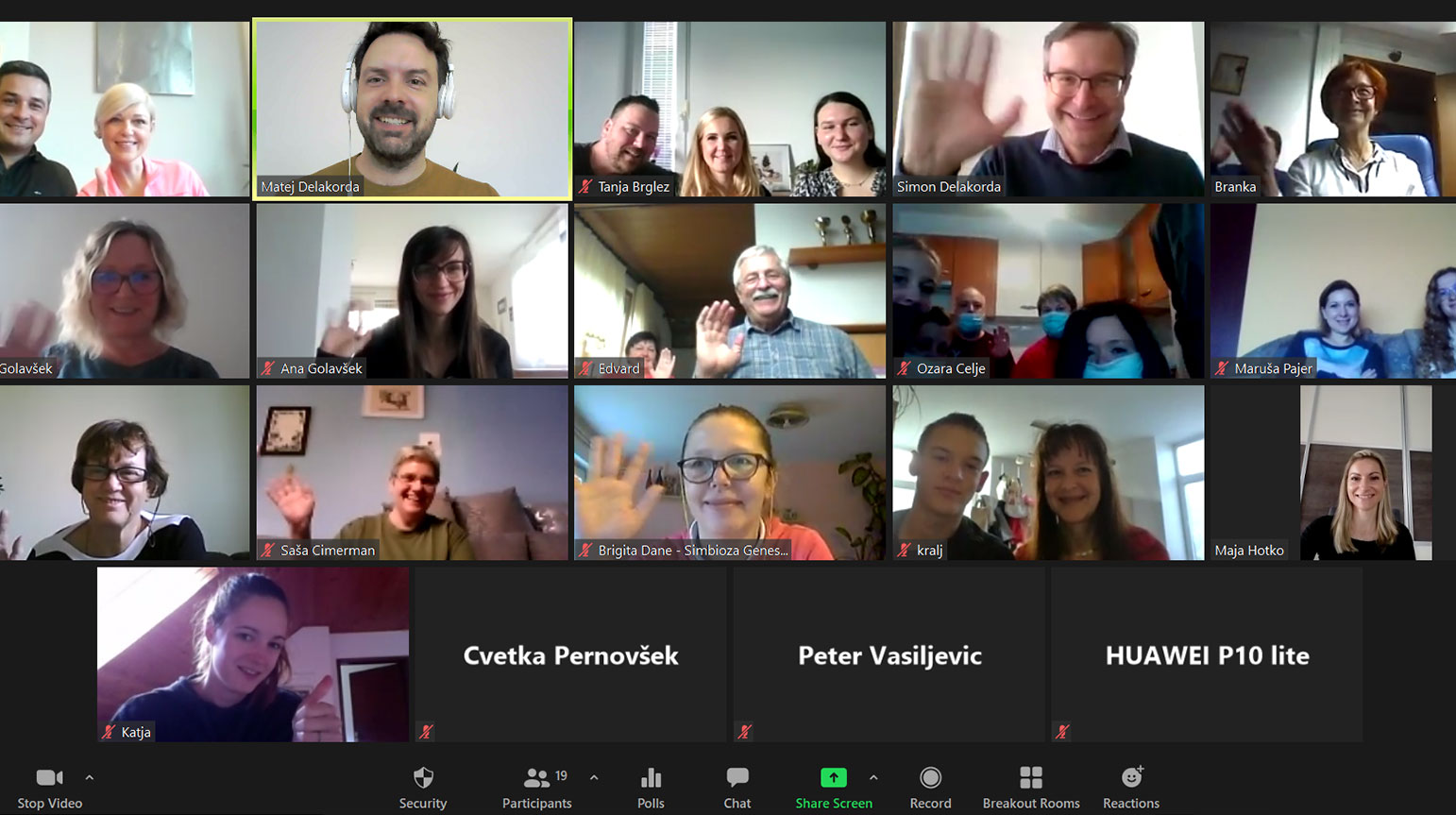
6 November 2020
The 5 key elements to successful online deliberation
The global pandemic is forcing us to imagine new ways of working, meeting our friends and “virtual” leisure activities. Here are the 5 tips for successful online deliberation •••
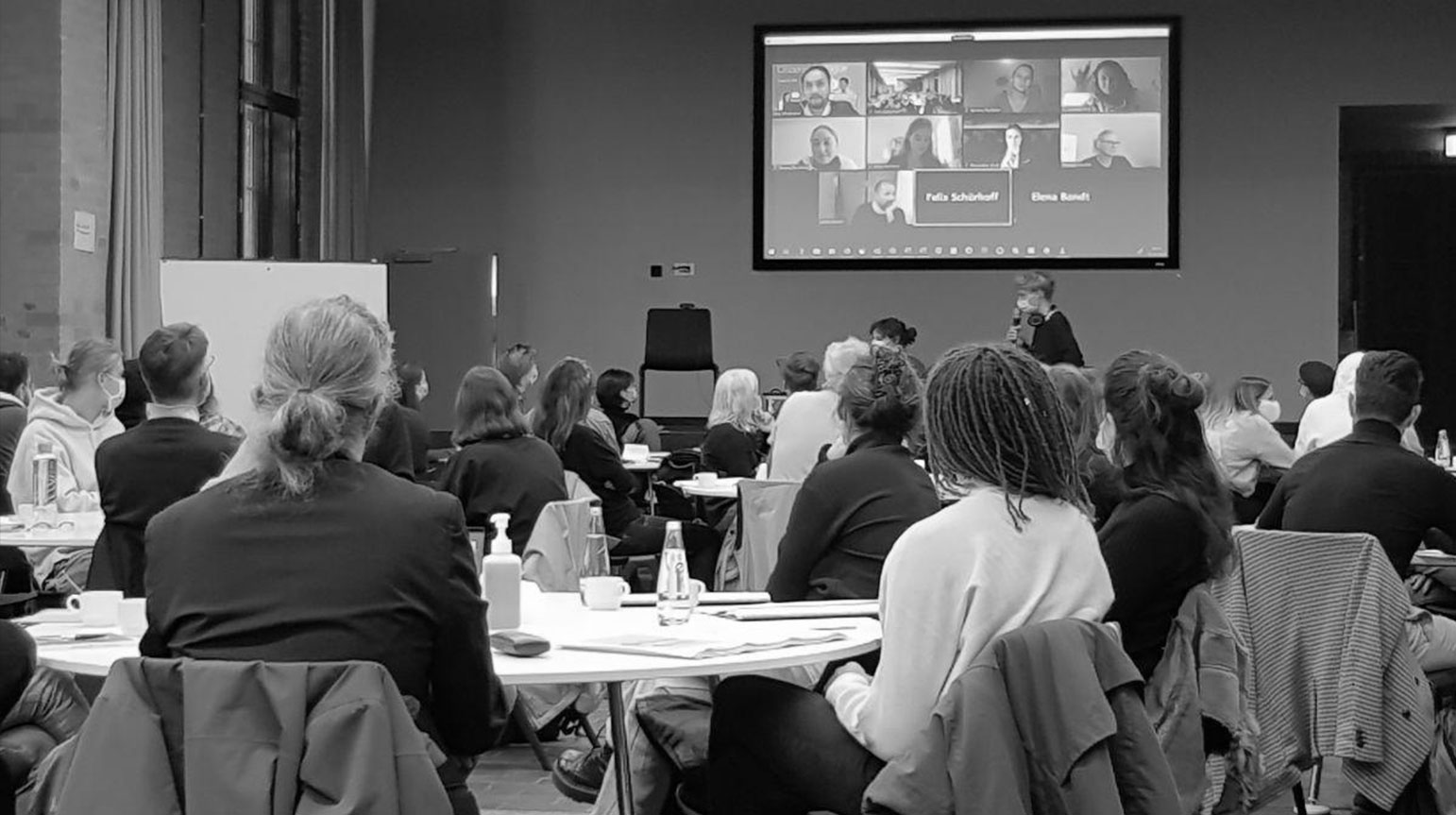
2 November 2020
We will be at IGF 2020 to present the Global Citizens’ Dialogue’s results
Governance issues are at the core of people’s digital human rights amidst the COVID-19 crisis but also for the future. It’s time to take action. Under the overarching theme “Internet for human resilience and solidarity”, Missions Publiques will present the results of its Global Citizens’ Dialogue on the Future of the Internet to the Internet Governance Forum on November 4th, 2020. •••
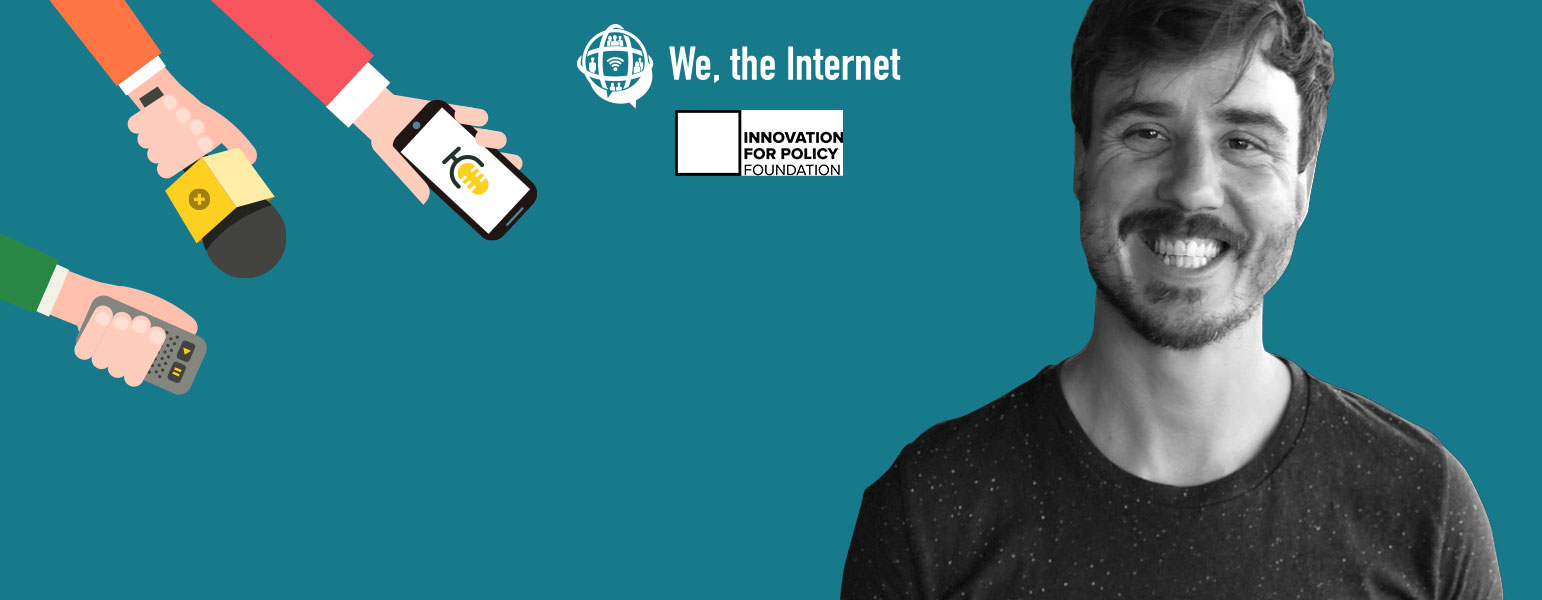
28 September 2020
“In Rwanda, the Citizens’ Dialogue is part of IGF 2020“
Jon Stever and Lorenzo Banno from Rwanda have decided to contribute to two ongoing policy processes in the country: one to develop a national Startup Act, and the other to develop a national Artificial Intelligence Policy. Let’s take a closer look at Jon’s vision of “reimagining global governance” with citizens. •••
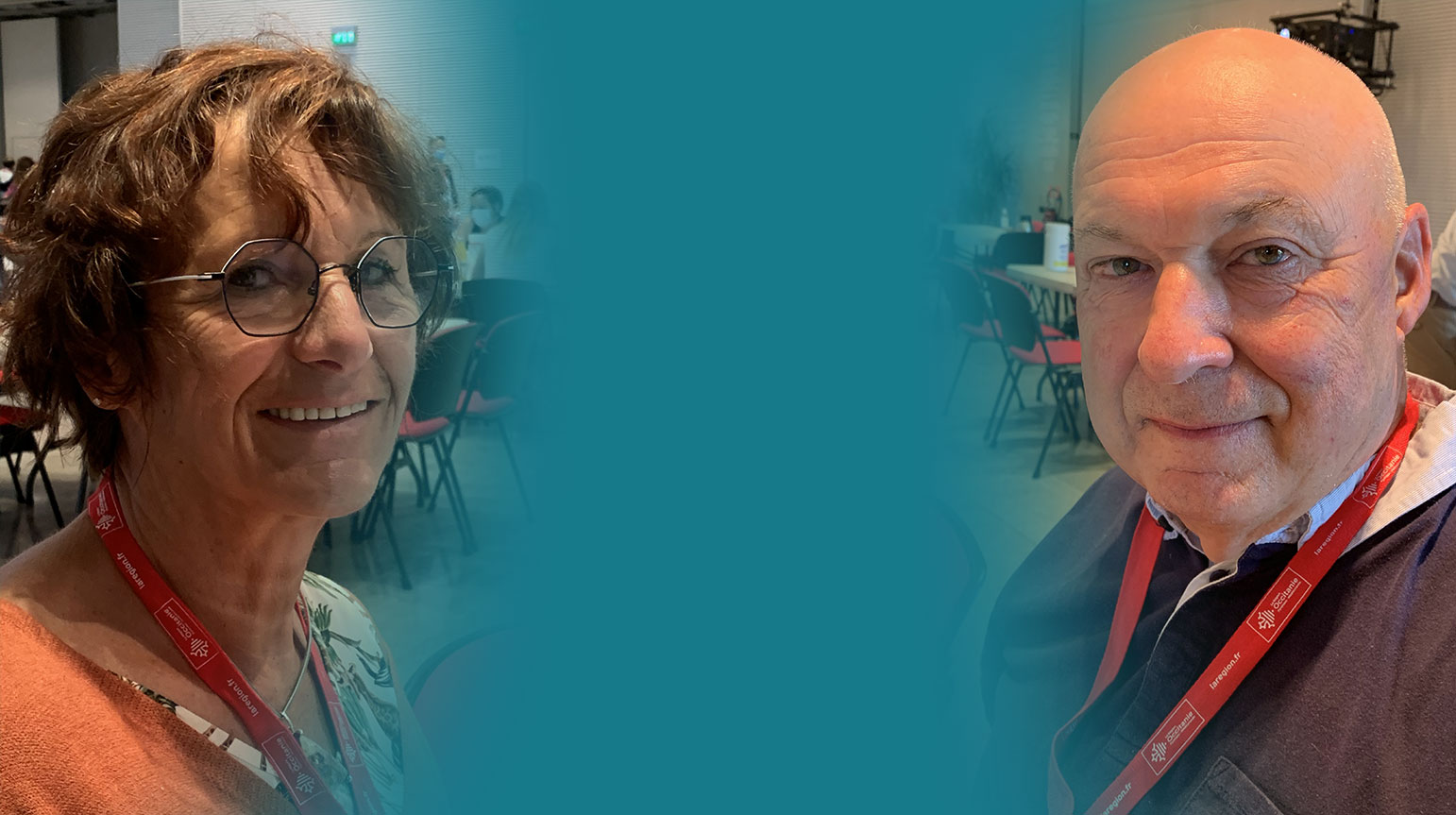
23 September 2020
Meet Colette and Francis, randomly-selected citizens
The French Occitanie Citizens' Convention began in mid-September. 104 citizens were randomly drawn by lot to reflect on a fairer and more sustainable territory. Meet Colette, a 66-year old retired teacher and Francis, a 71-year-old retired policeman. •••
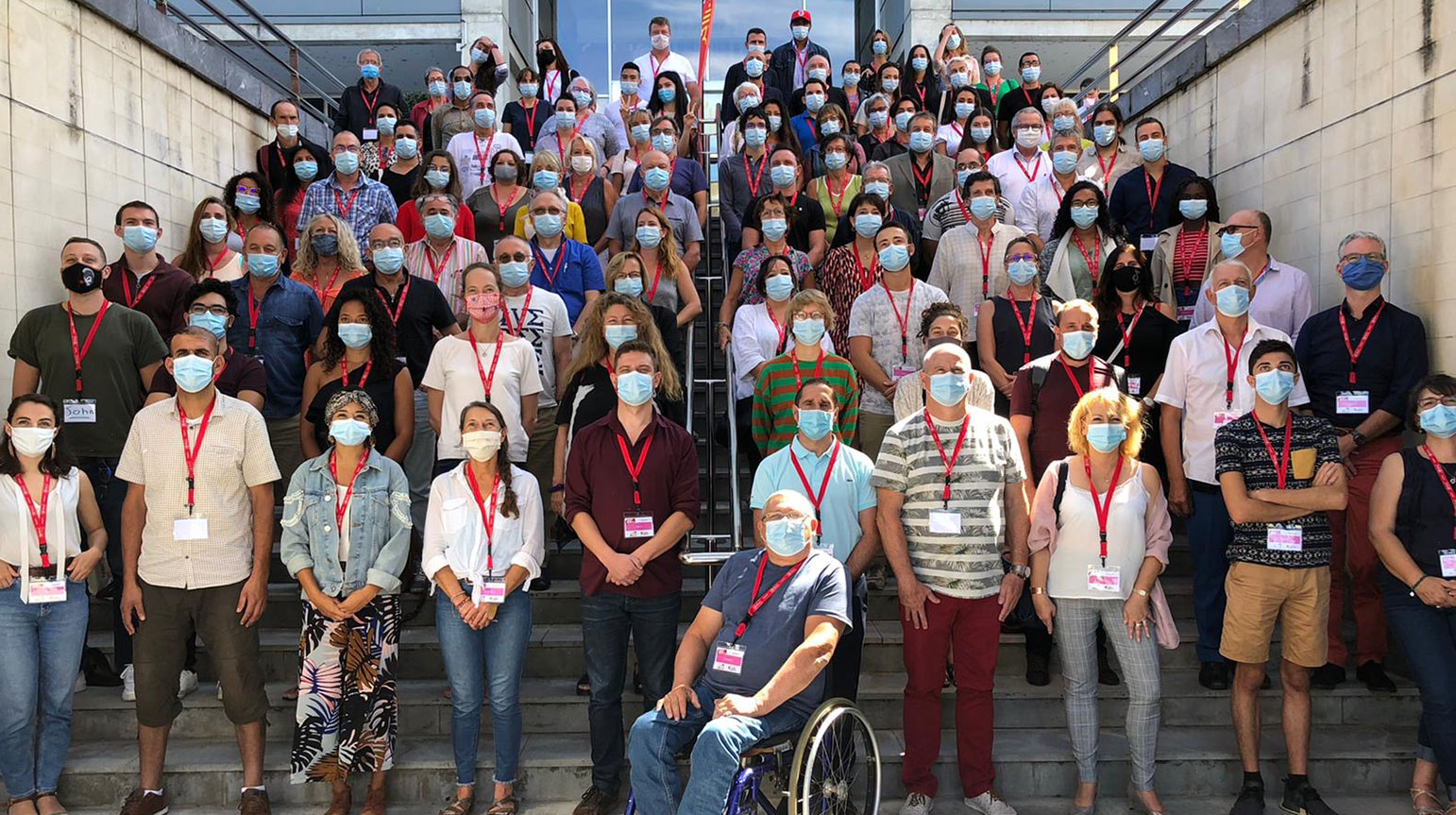
23 September 2020
Occitanie is the first European region to implement its Green New Deal
At regional level, the Occitanie region in the South-West of France, follows the model of the Citizens’ Climate Convention. Its objective? To anticipate tomorrow's world in order to face today's crisis. This consultation is part of a broader plan for economic recovery and transformation, the "Green New Deal". Missions Publiques and Eurogroup Consulting support the region in this approach which aims to drive a new model of development. •••
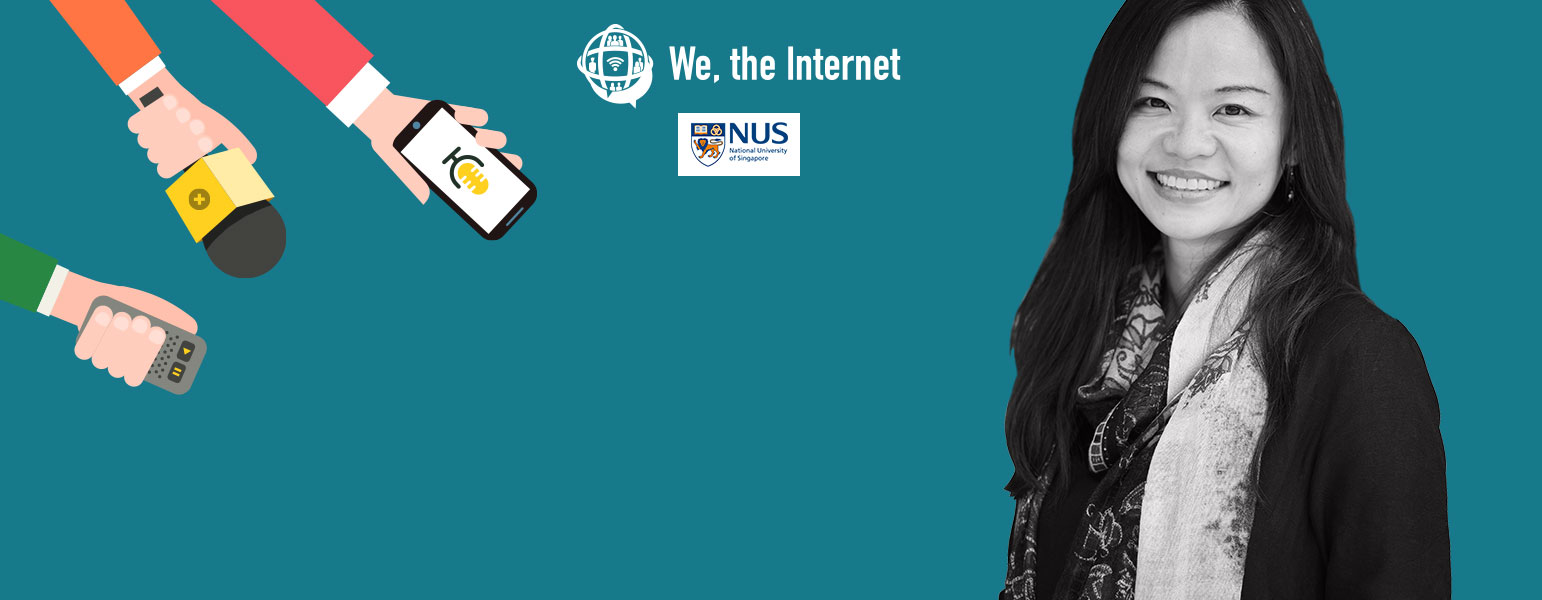
21 September 2020
“Digital inclusion goes beyond thinking about Internet connectivity“
As the Dialogue approaches, the coalition of partners are working hard to ensure a diverse discussion, recruiting citizens from all walks of life, whether they have access to the Internet or not. Let's take a closer look at our partner in Singapore, the Centre for Trusted Internet and Community, led by Natalie Pang, Senior Lecturer at the National University of Singapore. •••

21 September 2020
Learn about the principles and methods of deliberative democracy
On September 3rd, G1000 University 2020 gave the floor to experts of the field to disseminate these citizen convention practices. Watch the video and learn about how to use these methods in your own community from our Founder and Co-Director Yves Mathieu, who co-designed the French Convention for Climate. •••
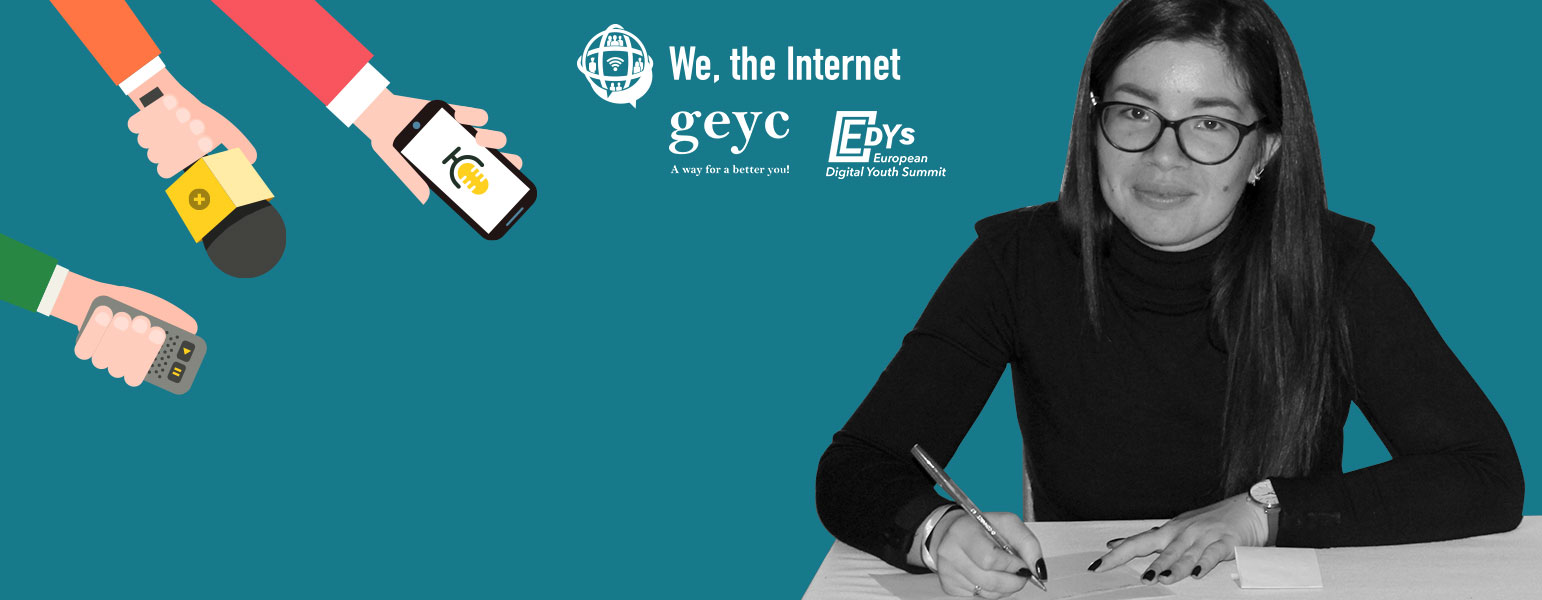
3 September 2020
"We must tackle cyberbullying and child protection on Internet"
One month away from the Global Citizens’ Dialogue on the Future of the Internet, we continue our world tour of national partners to show you how they are living “We the Internet” experience. Meet Alexandra Peca, Missions Publiques’ Romanian partner from GEYC (Group of the European Youth for Change), who implements the Citizens’ Dialogue on the future of Internet in Romania. •••

31 August 2020
The voice of the unconnected is just as valuable as the voice of the connected.
The Global Citizens’ Dialogue on the Future of the Internet will bring together more than 70 countries on October 10. One month before the event, Yao Sossou, Computer scientist and official partner of Missions Publiques in Benin, talks about the reasons for his commitment and what he expects from this dialogue for his country. •••

28 August 2020
The three reasons why deliberation is more than a poll
"What would citizens think if they really thought?" This quote from James Fishkin a leading figure in the world of deliberative democracy gives a pretty good idea on the profound difference between those methods. •••
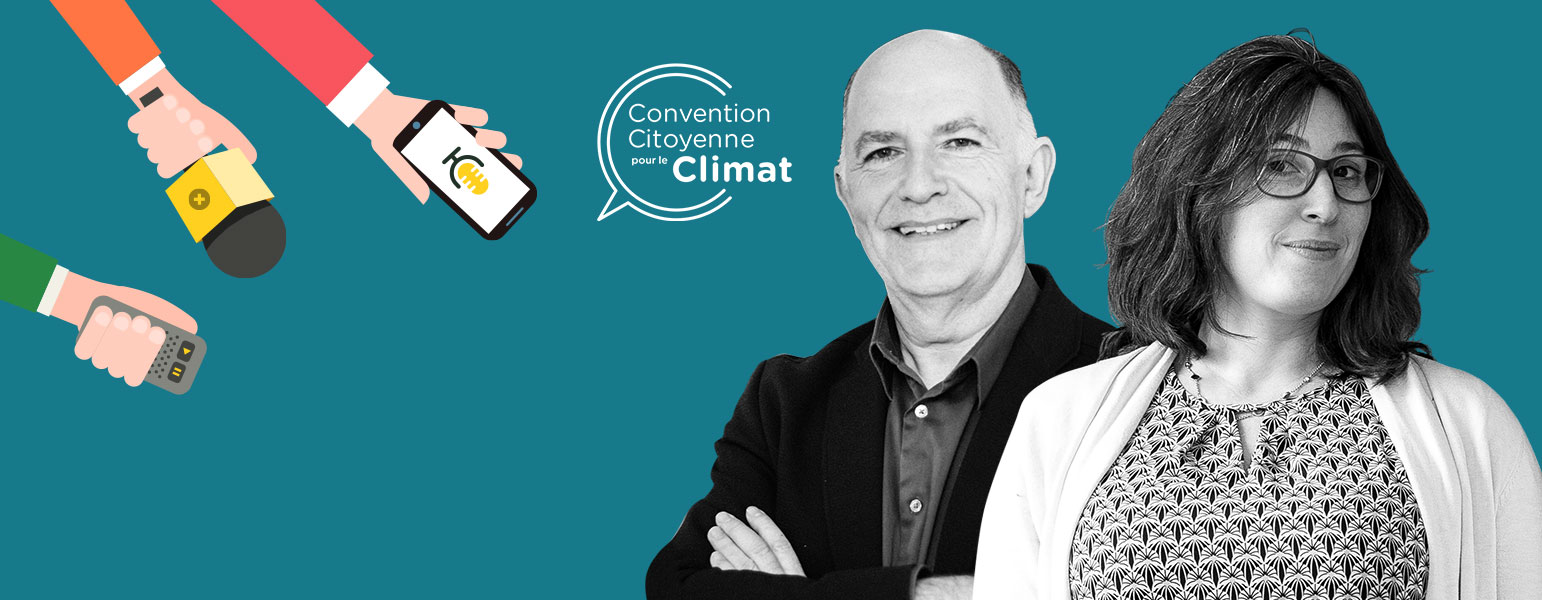
16 July 2020
Two insider views into the French Citizens’ Convention on Climate
One week after 150 citizens delivered a milestone proposal to French President Emmanuel Macron, Missions Publiques gave direct insight into the Citizens’ Convention for the Climate (CCC) via two online webinars. •••

12 June 2020
Crossed interview: looking back on Global Stakeholders' Dialogue
The first phase of the global dialogue on the future of the Internet, which brought together stakeholders from around the world, ended on Saturday 6 June online. We interviewed two of the participants so they could share with us their insights. •••
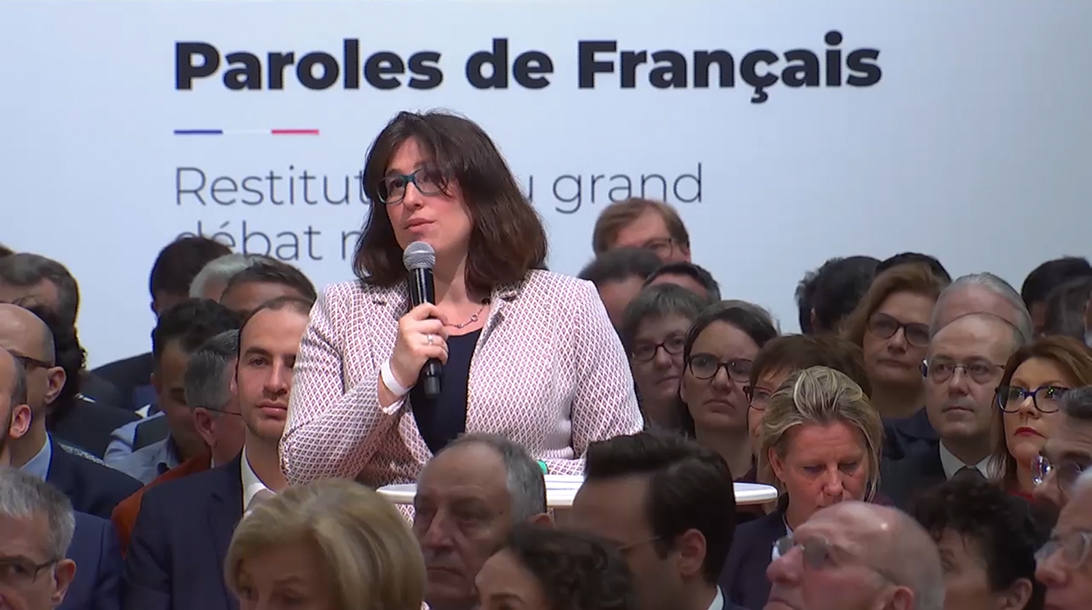
18 February 2020
Grand Débat National 2019: a word from Judith Ferrando
On the initiative of the President of the Republic, the Government ran the Grand Débat National from January to March 2019. The debate covered four themes reflecting the major national issues: taxation and public spending, the organization of public services, ecological transition, and democracy and citizenship. The aim was to give everyone the chance to debate issues that are crucial to French people, in a number of different ways. •••
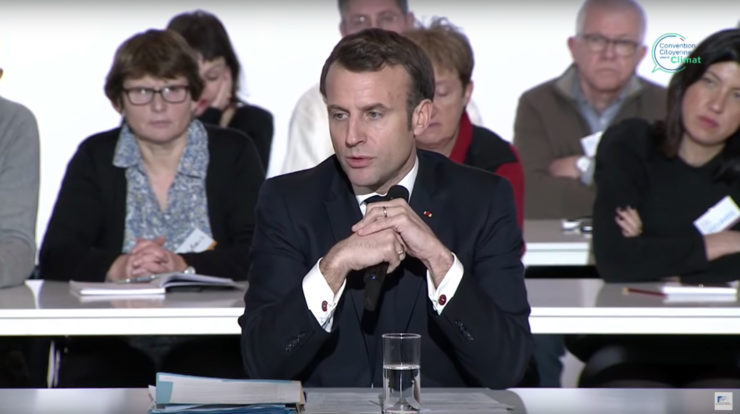
31 January 2020
Missions Publiques supporting the Citizens’ Assembly on Climate
The Citizens’ Assembly on Climate brings together a group of 150 randomly selected citizens who represent the diversity of French society and whose task is to put forward a series of measures “to achieve a minimum reduction of 40% in greenhouse gas emissions by 2030, in a spirit of social justice.” •••

17 October 2019
Saint-Nazaire, maritime and coastal ambition
“Ambition Maritime Saint-Nazaire Pornichet” is a project backed jointly by the area’s public stakeholders and by elected representatives for the municipalities of Saint-Nazaire and Pornichet, the Communauté d’agglomération de la Région Nazairienne et de l’Estuaire (or CARENE, the urban community) and the Nantes Saint-Nazaire urban area. •••

15 October 2019
A partnership charter and action plan for Sensitive Natural Areas in Val-de-Marne
The Val-de-Marne départment is a long-standing partner of Missions Publiques, aiming to open dialogue on its projects. It has a proactive environmental policy and, in 2018, it set up a departmental plan for its Sensitive Natural Areas (ENS). •••

11 October 2019
Haute-Garonne tomorrow: citizens’ aspirations guiding public action
Missions Publiques, Eclectic Experience, and the Institute for Desirable Futures have supported Haute-Garonne Council through an exciting process: envisioning life and Haute-Garonne in 2050. •••

26 June 2019
Citizens’ debate on driverless vehicles: what future for our mobility?
From June 6–1, 2019, Missions Publiques and its partners brought together nearly 700 people in several countries around the world (Singapore, Europe and North America) to air their views on the future of driverless mobility. The aim was to think about how the emergence of driverless transport could affect our lives, and to work together on some likely or desirable scenarios. •••
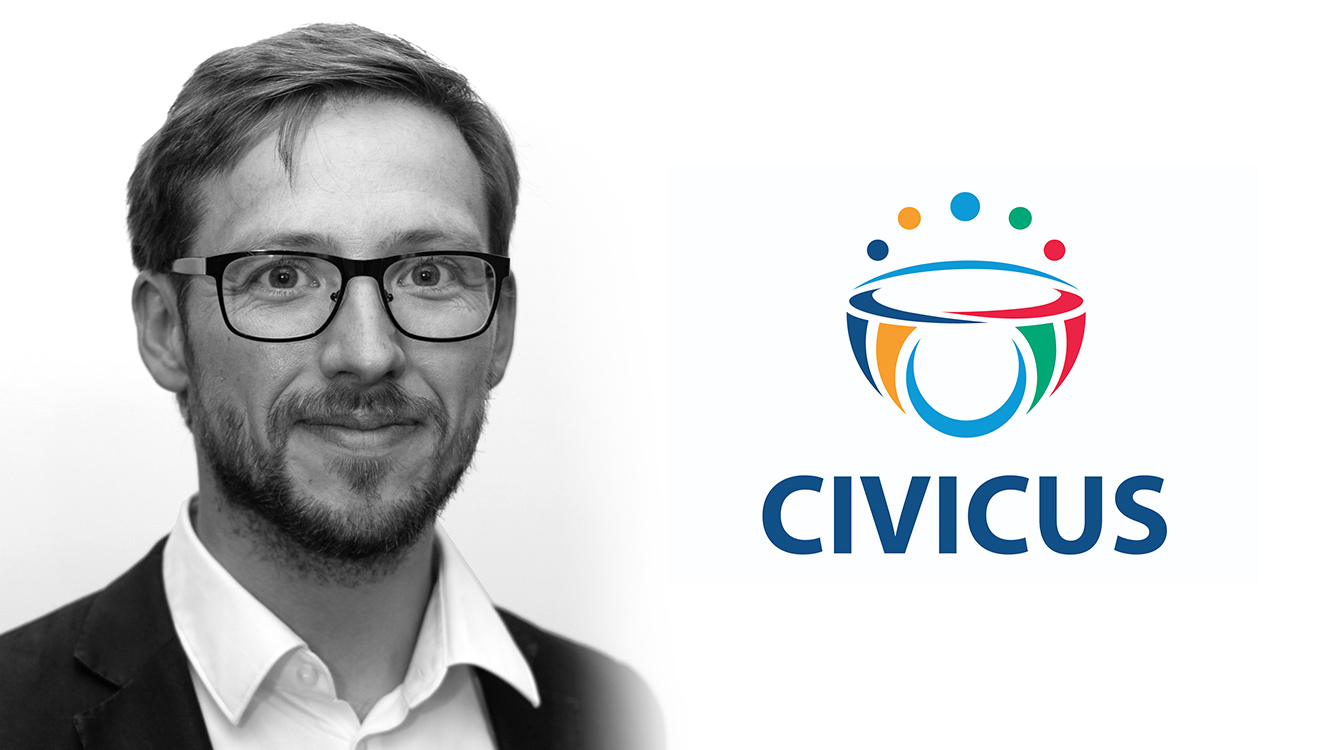
19 June 2019
Antoine Vergne’s interview on Civicus
CIVICUS speaks to Antoine Vergne, Director of Strategic Partnerships at Missions Publiques. •••
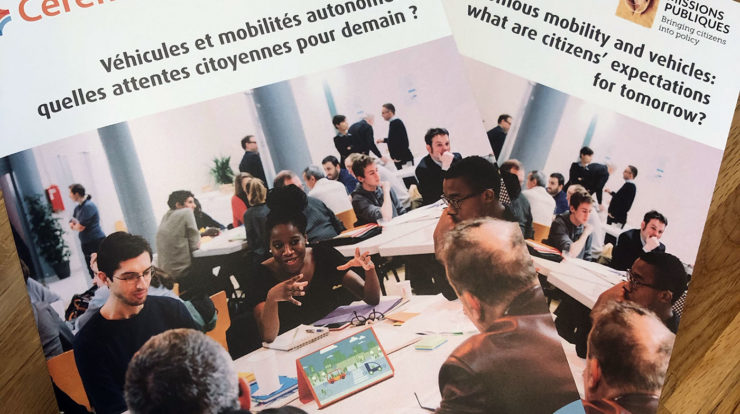
29 May 2019
Autonomous mobility and vehicles: what are citizens’ expectations for tomorrow?
This Cerema publication builds on the lessons learned from a citizens’ debate on the questions of driverless vehicles and the future of day-to-day mobility. It presents them in the light of current and future sustainable mobility issues. It also examines the role of public entities and civil society when developing public mobility policies around the deployment of driverless vehicles. •••
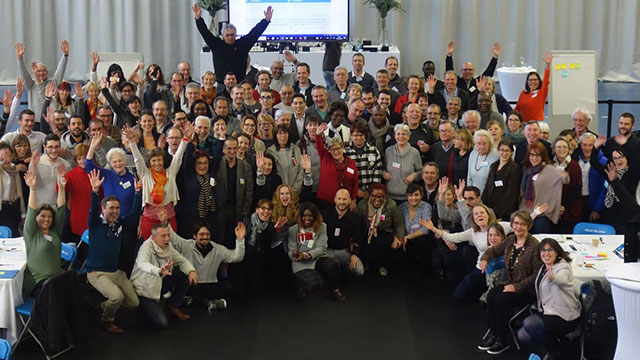
9 May 2019
Grand Débat National: regional citizens’ conferences to reconnect people and politics
Teams from Missions Publiques and Res publica worked with the Grand Débat mission to run a series of regional citizens’ conferences over several weeks in various cities in mainland France and the French overseas territories. •••
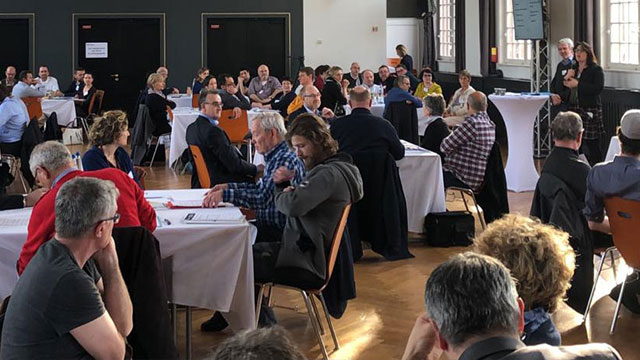
26 April 2019
Grand Débat National: the ecological transition can no longer wait
On March 16, almost 350,000 citizens marched in 220 towns and cities in France to highlight the urgent need to tackle the climate crisis. At what was called the March of the Century, the shared feeling was that it is no longer time for debate, but time for action. And now! •••
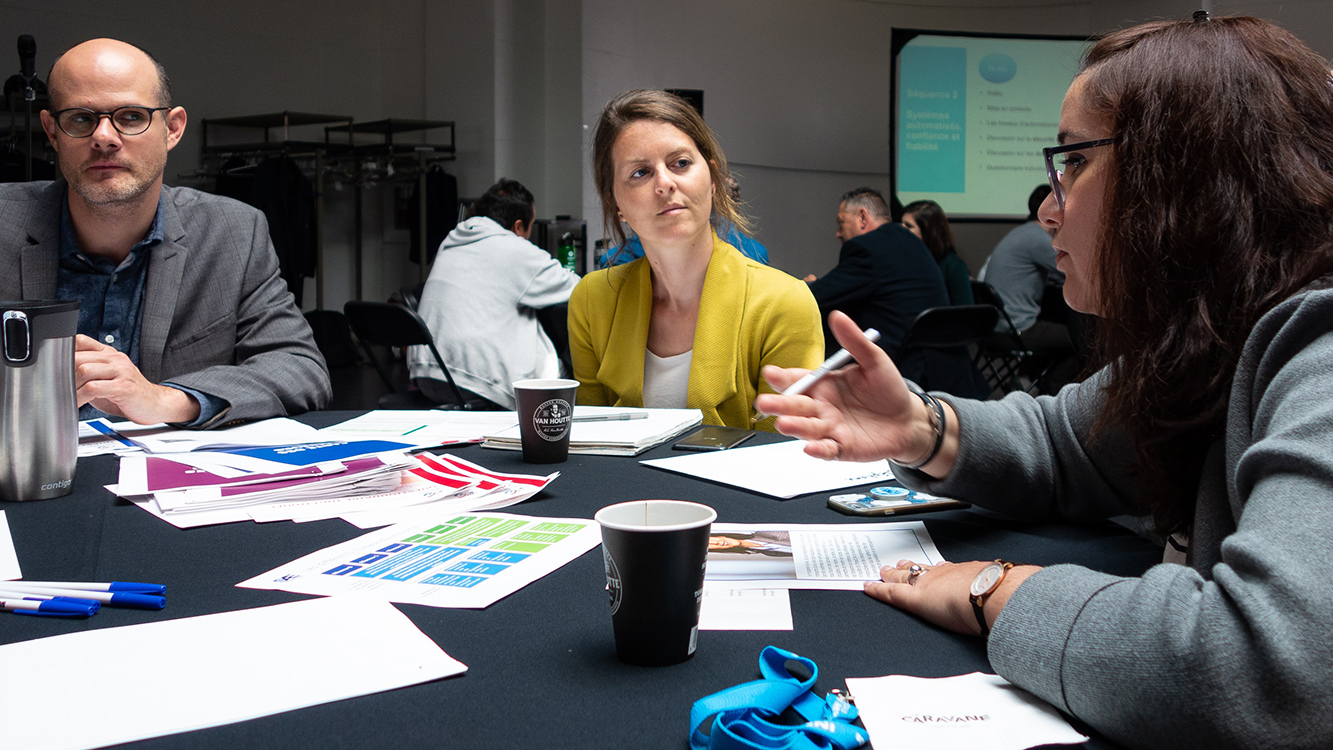
23 April 2019
CSP&O and its partners design the US Driverless vehicles debates
In mid-April, the Consortium for Science, Policy & Outcomes and its local partners, the Museum of Science in Boston, the Center for Smart Cities and Regions at Arizona State University, and the University of Maryland, convened meetings to design the local sessions for the US debates. •••
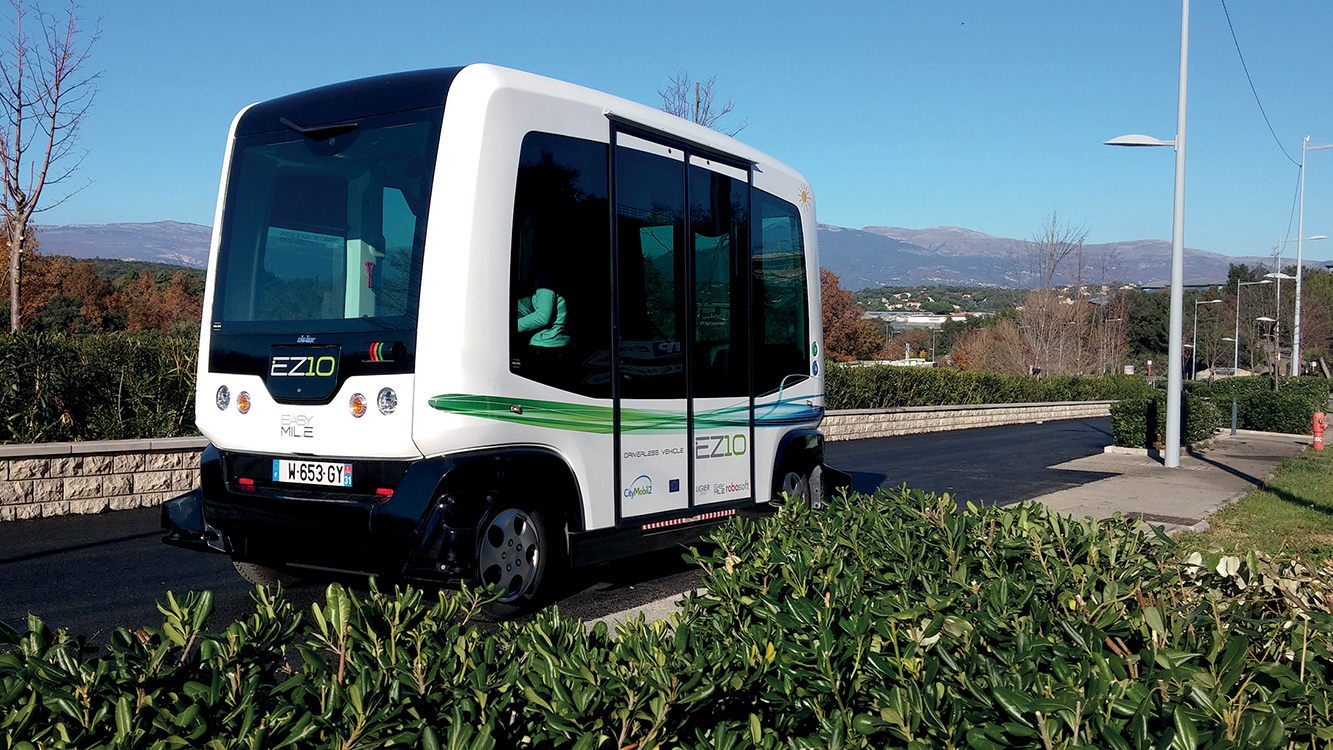
23 April 2019
Citizen’s debate on driverless vehicles in Aachen
As part of the international consortium of the citizen’s debate on driverless mobility, the City of Aachen joined up with RWTH Aachen University to invite 2000 people to the register for the debate on April 6th, 2019. •••

15 February 2019
Background: The transition towards automated and connected driving in Germany
Automated and connected driving is an area of technology of paramount importance for Germany, as it is fundamental for the future of the domestic automotive industry. •••
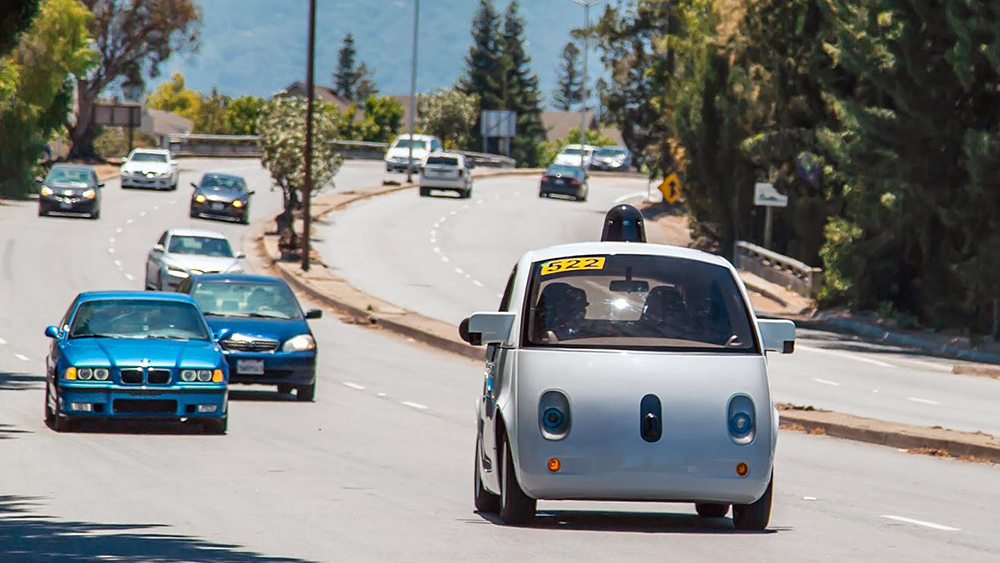
15 February 2019
Every opinion counts – The Austrian approach to automated mobility
With Vienna, Graz, Klagenfurt, Linz and Salzburg, five Austrian cities have signed up for the discussion on April 6, 2019, and will each host a debate of 100 people. •••
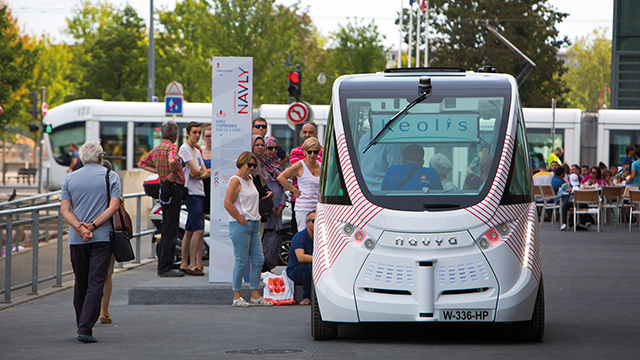
14 February 2019
Why Keolis is supporting the citizens debate on driverless mobility
As urban growth accelerates and mobility needs increase, the challenge in the coming years will be to develop new mobility solutions that are shared, sustainable, driverless and adapted to passenger expectations (in terms of services). •••
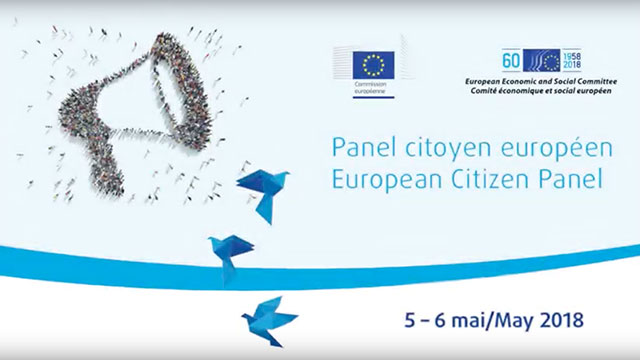
29 January 2019
Citizens’ panel on the future of Europe
Three citizens’ debates on the future of Europe were held in 2018. •••
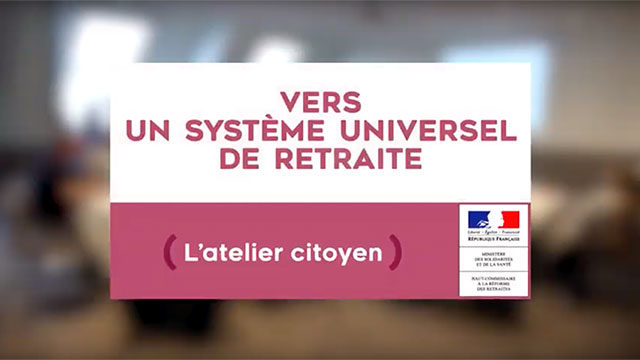
29 January 2019
A citizens’ jury to discuss the future of our pension system
In France, the overhaul of the pension system is being steered by the High Commissioner for Pension Reform, Jean-Paul Delevoye. The entire population will be affected so eight debates were held in various regions across the country giving people the chance to set out their questions, wishes and red lines and thus contribute to the reform. •••
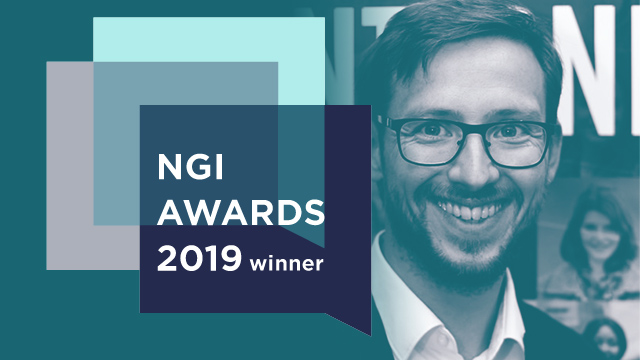
6 December 2018
Missions Publiques receives a 2019 NGI Award
The NGI Awards, a European Commission initiative, seek to reward individuals and organizations that help shape Digital Europe. Each year, nine winners are selected by a jury of European experts in three categories: Research, Culture and Start-ups. •••
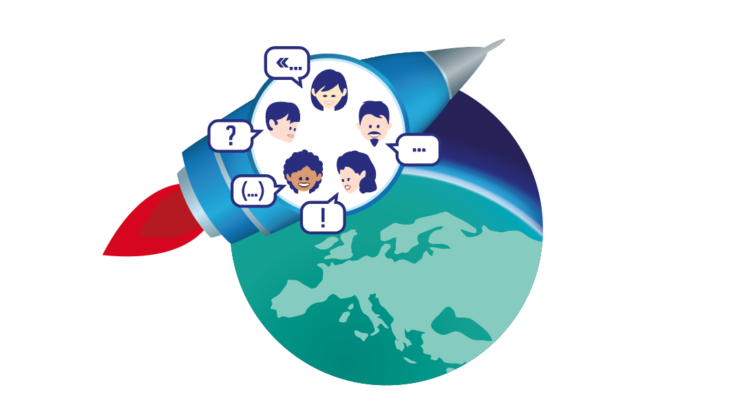
18 July 2017
Europe has found its place among the stars
Has the idea of space, and the opportunities it opens up, become obvious to the general public? The response is positive but not completely clear-cut. •••

